M List of Movie Reviews
(For optimum viewing, adjust the zoom level of your browser to 125%.)
M (1931)
Rate:
3
Viewed:
8/05
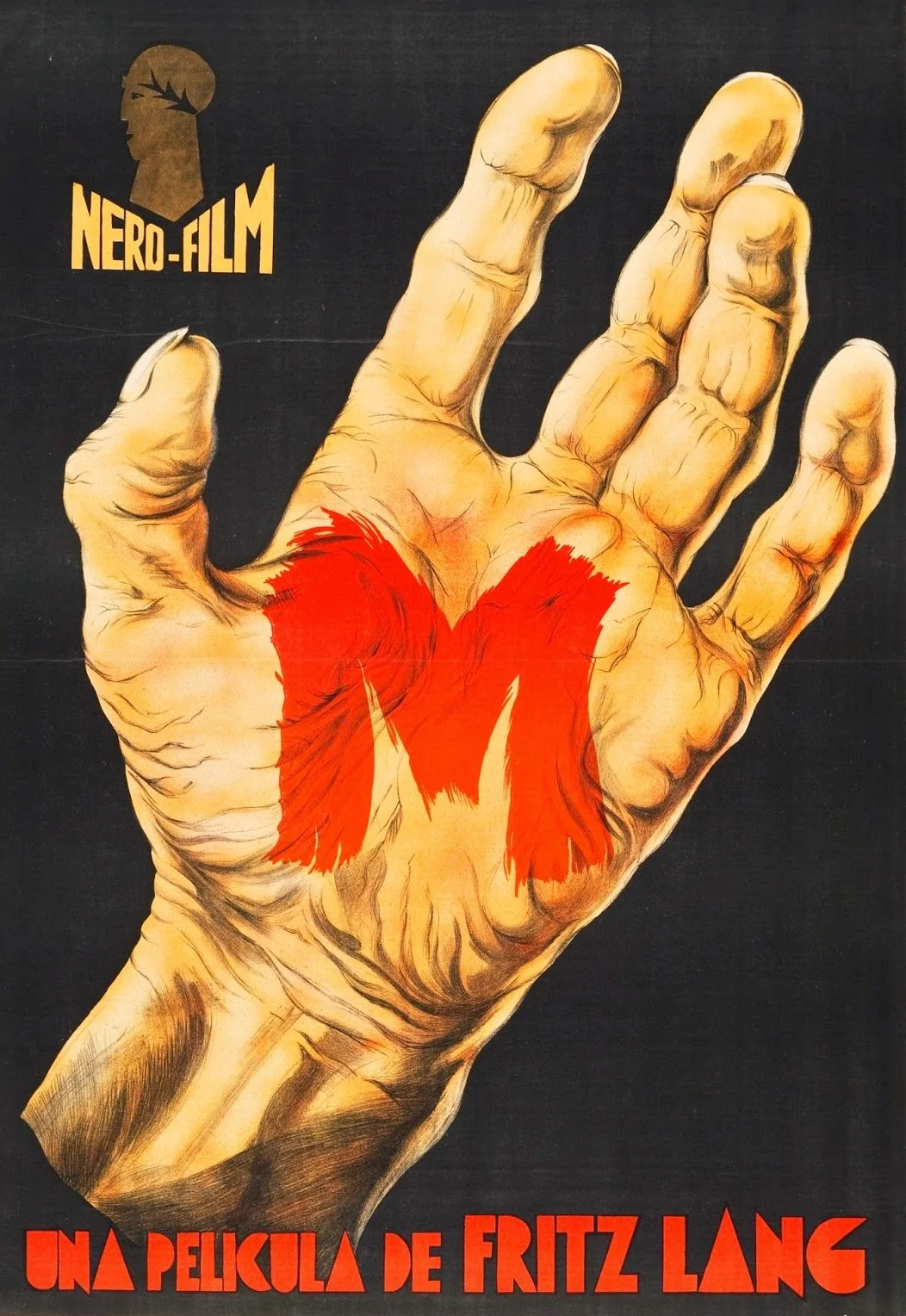
8/05:
M is boring, boring, boring with a capital B.
A so-called film noir, this good-looking German picture has me falling asleep. What makes
it dull is the constant focus on a single thing, dragging down the pace. Thank goodness for montages.
Organized criminals turn to a beggars union for help to catch the child killer? Oh, please.
All in all, Fritz Lang is one of the most hokey directors ever, and Peter Lorre has been overrated for so long.
M*A*S*H (1970)
Rate:
10
Viewed:
11/03, 1/05, 1/08, 10/10
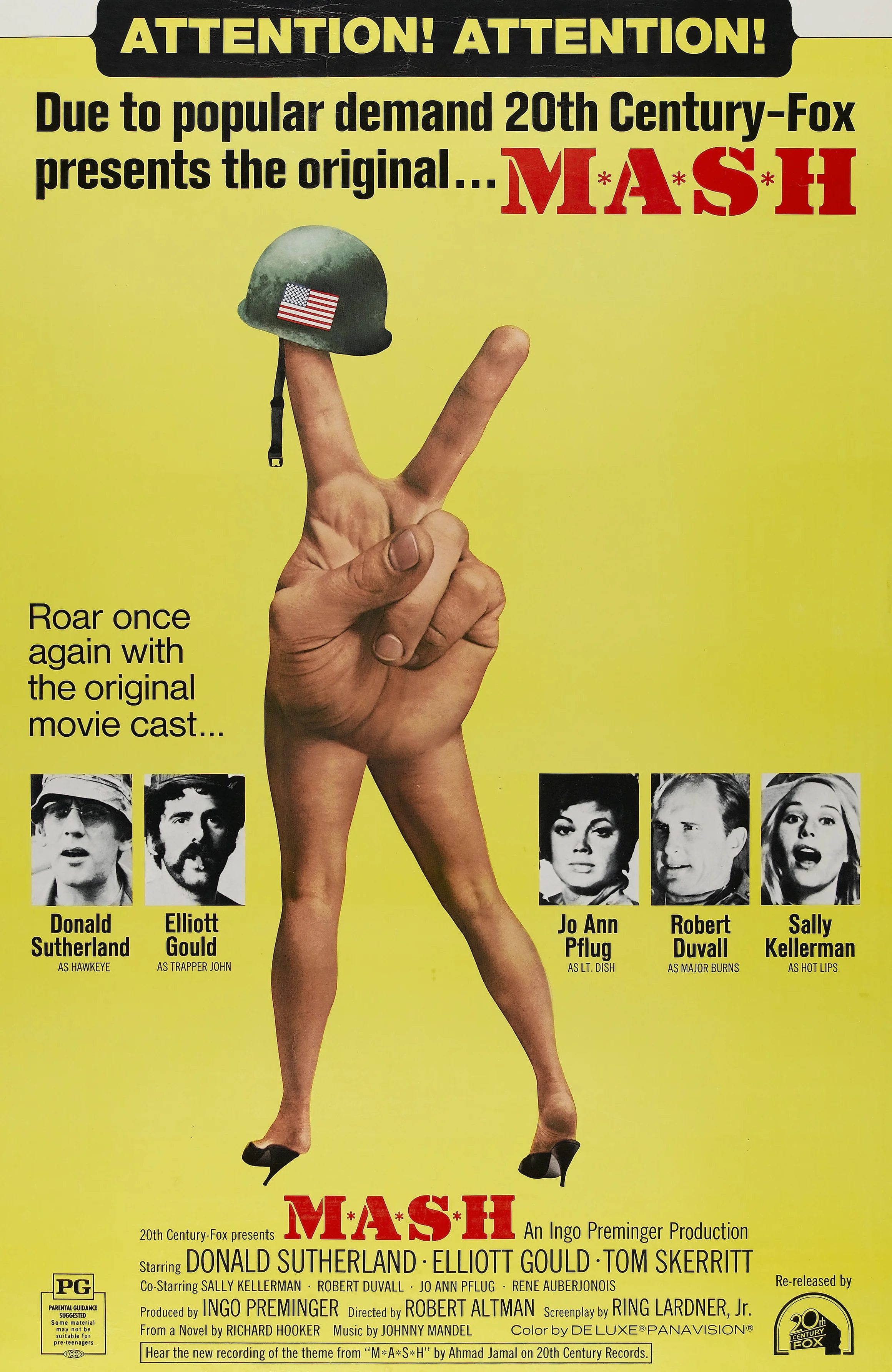
1/08:
M*A*S*H is the best and most intelligent comedy film I've ever seen.
I may hate Robert Altman's output of eccentric films, but I'm glad that he directed M*A*S*H which is the
best of his career. There are many aspects I love, but it's the outstanding cast, playing some of the most unforgettable
characters, that wins me over. The performances are unbelievable: Donald Sutherland, Elliott Gould, Sally Kellerman,
Robert Duvall, Tom Skerritt, Rene Auberjonois, John Schuck, Roger Bowen, and Gary Burghoff, among others.
Oh, the stories. They're fun to watch, and my favorite of them all is "Suicide Is Painless." "The Last Supper" scene
is brilliant as well. The others are clever such as the agony and eruption of Major Frank Burns, the jaunt to
Japan, the twenty-dollar bet, the origin of the nickname "Hot Lips," the stolen jeep, the football game, the random
conversations during operations, and the announcements on loudspeaker.
All in all, M*A*S*H is a genius work of art.
10/10:
M*A*S*H is a top 50 film of all time.
What a cast. The stories are unbelievable. Bobby Troup's line "goddamn army" is a classic. By the way, M*A*S*H
stands for Mobile Army Surgical Hospital, and the unit was retired in 2006.
All in all, M*A*S*H is a timeless war comedy classic.
Mabel's Married Life (1914)
Rate:
1
Viewed:
9/06
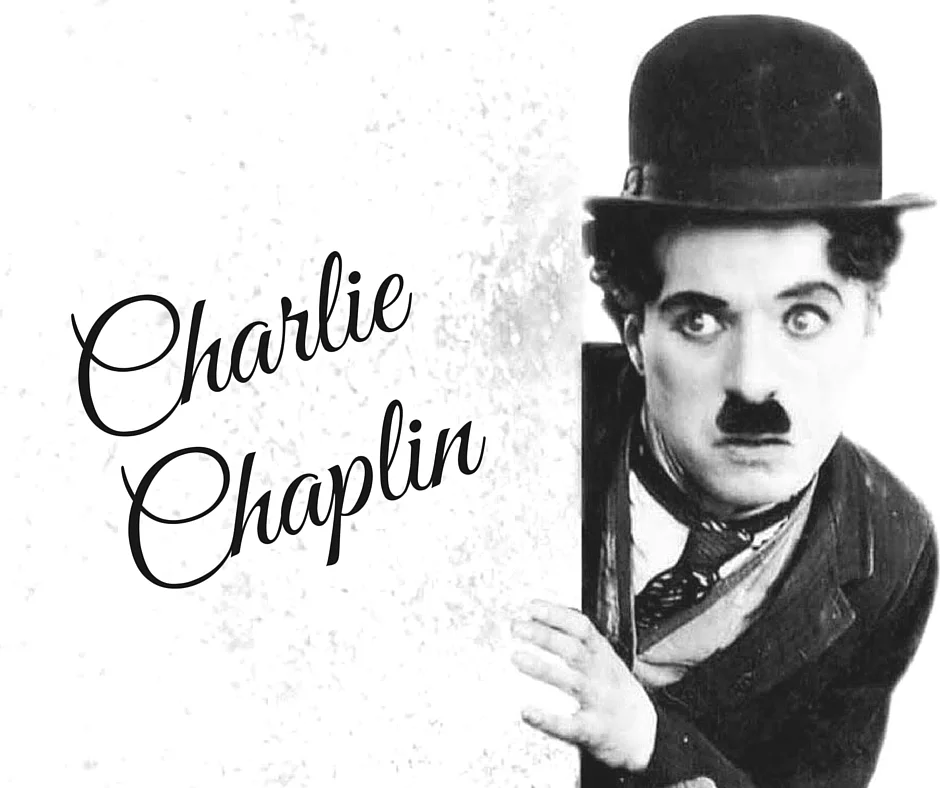
9/06:
Mabel's Married Life is pure nonsense.
It's becoming clear that Charlie Chaplin was a moron and that his tramp character was one of the worst
ever conceived.
All in all, Mabel's Married Life must be added to the list of films that should be thrown into
a blazing bonfire.
Mabel's Strange Predicament (1914)
Rate:
2
Viewed:
8/06

8/06:
Pretty bad, yeah.
Mabel's Strange Predicament is about people pushing each other and running around while Charlie Chaplin is
stone drunk. It has no comedy to speak of. In fact, I don't think anyone knew what the word meant back then.
All in all, The Birth of a Nation came out the following year,
changing everything in terms of filmmaking.
Macao (1952)
Rate:
3
Viewed:
2/24
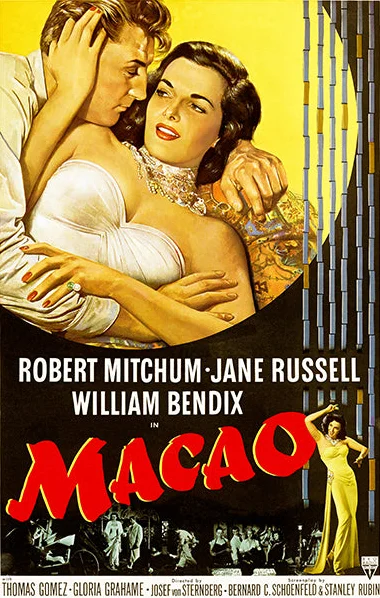
2/24:
Robert Mitchum and Jane Russell did two films together: His Kind of Woman
and Macao.
After seeing the first, I went for the second. Wow, it's a bad movie and a complete change of scenery at that
despite the outstanding intro. The filmmakers tried to make it seem like the stars were in Macao, but they
actually never were. It's just a lot of fake background stuff with the rest done on a soundstage in Hollywood.
The oft-reliable Gloria Grahame is wasted in the process. Being able to wear a different fancy dress daily, Jane
Russell sure has a lot of room in her luggage.
The only positive thing out of this mess is the pairing of Robert Mitchum and Jane Russell, but they were far
better in His Kind of Woman which had a good script and a
noir-like setting to begin with. It didn't hurt one bit when Vincent Price ultimately stole the show.
Sadly, Macao has none of them. The production was troubled from the start because of director Joseph von
Sternberg who was eventually replaced by Nicolas Ray which went for naught anyway.
All in all, His Kind of Woman is a must-see for fans of Robert Mitchum
and Jane Russell while Macao can be safely skipped.
MacArthur (1977)
Rate:
8
Viewed:
1/22
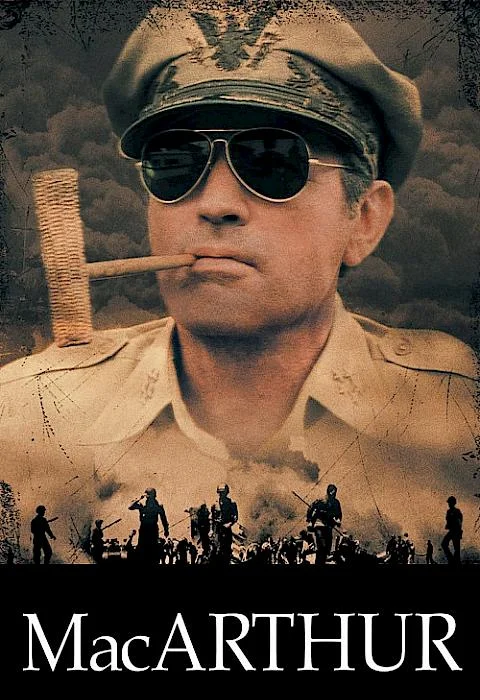
1/22:
For MacArthur, Gregory Peck does what George C. Scott did for Patton.
In fact, it's handled by the same production team. A forgotten but very controversial military figure, General
Douglas MacArthur was among a handful of famous generals during the 20th century. It's obvious from the outset
only Gregory Peck could play him. Not only he gets the job done, but he is MacArthur, period. Gregory Peck can
even carry a corncob pipe convincingly well.
It's a fascinating biopic, recounting the events that happened during the latter stages of MacArthur's career.
That's why the secret relationship with a Filipina actress is not mentioned because he ended it in 1934 and the
movie starts eight years later. Ditto for his disgraceful razing of the Bonus Army in 1932. Of course, the farewell
speech, of which he's remembered most for, is included: "Old soldiers never die—they just fade away." The
most memorable line of his life is: "I came through, and I shall return." So he egotistically did with resounding
victories in the Pacific Theater during WWII. Unfortunately, the actual landing was restaged by MacArthur himself
for dramatic effect.
There's the historic battle between President Harry S. Truman and General Douglas MacArthur. You can't have a
biopic without it. Having had enough of the messiah, Truman fired him during the Korean War for blatant
insubordination as he nearly caused WWIII by roping the Chinese into action. As a result, Truman's popularity
plummeted so badly (which is still the lowest approval rating to date) that he was shut out of the chance to run
for second term. MacArthur tried to seek the presidency a few times but couldn't get any support due to his
contradictory viewpoints.
Douglas' father, Arthur MacArthur, Jr., was awarded the Medal of Honor, and Douglas also received the medal although
it was a travesty, hence the nickname Dugout Doug for staying in the bunker the entire time while losing the islands
in the Philippines which led to Dwight D. Eisenhower's objections. Then, his son Arthur MacArthur IV was destined
to be one of the greats, and yet...nothing.
So, what happened? I was curious to know and found out that Arthur became a recluse, changing his name, and never
appeared in public again. The last news of him is that he was bought out of his residence at the
soon-to-be-demolished Mayflower Hotel in New York City and that the developers were shocked to learn he was
General Douglas MacArthur's son.
Understandably, the following damaging info wasn't uncovered until 1979. For his services, General Douglas MacArthur
was paid $500,000 by the Philippine government during the siege of Corregidor and Bataan. If you think about it,
why not the soldiers who did the bulk of the work? There was a loophole: MacArthur wasn't working for the U.S.
government, having been retired. Either way, it doesn't look good for his legacy although he gets the credit for
modernizing Japan.
All in all, Gregory Peck gives a top three performance in MacArthur, but it doesn't sink its teeth into
his character's worst qualities deep enough.
The Machinist (2004)
Rate:
4
Viewed:
1/22

1/22:
It wasn't going anywhere in The Machinist for the longest time until the final ten minutes (hence,
the constant reference to 1:30) which explained everything beforehand.
Well, that's not good enough in my book, and Alfred Hitchcock did it so much better in
Vertigo. There's a great deal of "you
see it-now you don't see it anymore" crap. If the movie looks foreign although the setting is supposed to be in
the United States, it's because they shot it in Barcelona, Spain.
Christian Bale lost sixty pounds for the role. It's nothing extraordinary, but I feel he did a fair job. They
could've gotten a skinny person, and the result was going to be the same anyway. If anyone is interested to
know how, water, apple (or a can of tuna, a bowl of salad, or whatever), and lots of smoking and coffee
with an occasional drink of whiskey are needed per day to achieve that kind of drastic weight loss in mere months.
The character of Trevor Reznik seems tailor-made for Anthony James in his prime. Ironically, John Sharian,
as Ivan, has an Anthony James-like performance, conjuring up the image of the chauffeur in
Burnt Offerings except
this time he speaks. At any rate, Sharian is a bit more memorable than Christian Bale.
All in all, Hollywood needs to put a limit on actors who use extreme and unsafe methods to achieve their character.
The Mack (1973)
Rate:
7
Viewed:
11/16
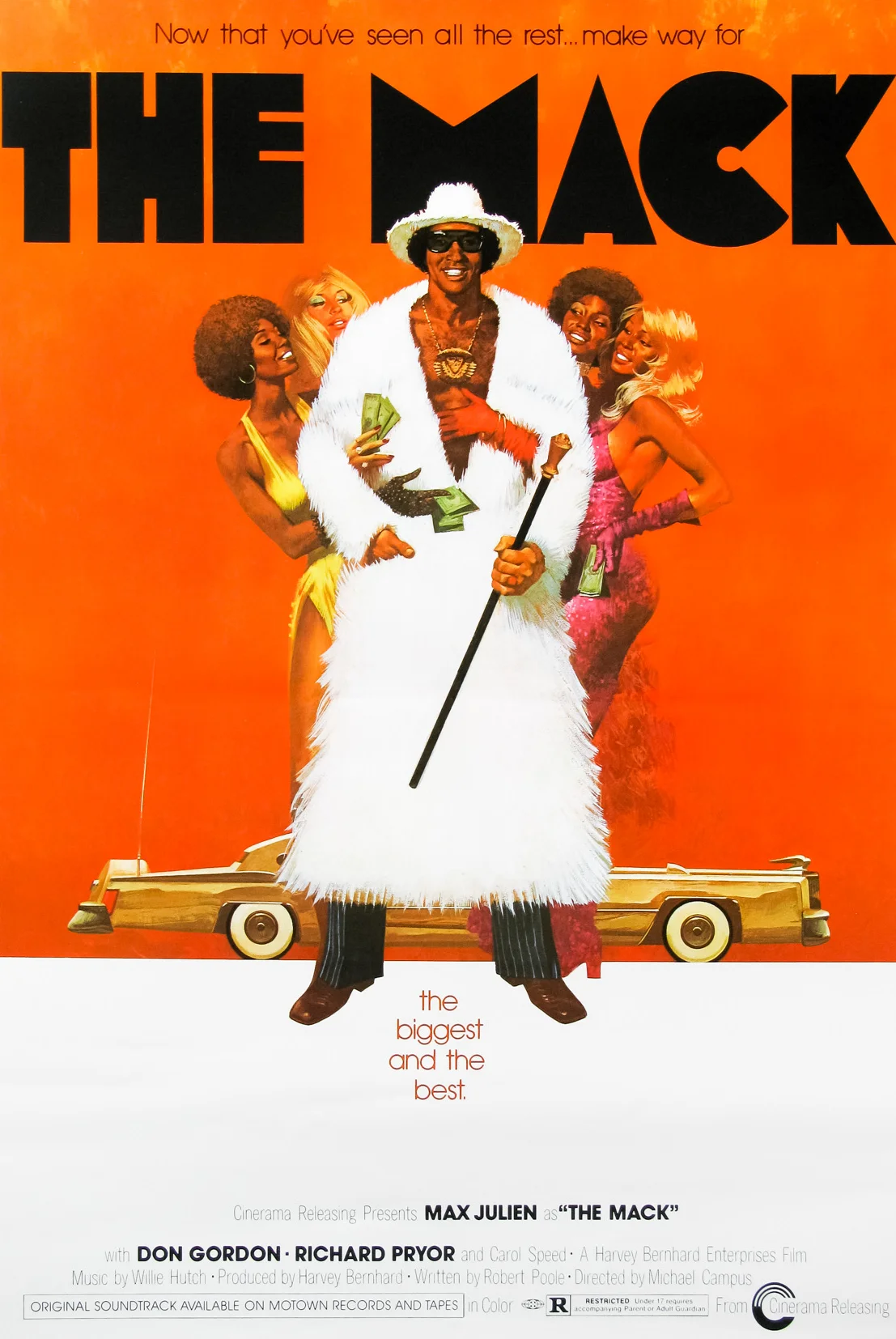
11/16:
Offering an insight into the black underworld of pimps and harlots that's heartily supplied by the city of Oakland during 1973,
The Mack is a prime example of the Blaxploitation genre.
The title is derived from the French word "maquereau" which stands for "pimp." The first hour is weak, but it's the last thirty
minutes that erases the problems and has a nice finish. The flaw can be attributed to the low budget although the potential
to become something great is there. It's also a bit of a mess which has turned The Mack into an episodic
movie by capturing some of this and that.
The filmmakers more than make up for it with a decent cast which includes Max Julien, Richard Pryor, Don Gordon, and Roger E.
Mosley. Soon thereafter, Julien wouldn't act again for over two decades while Pryor was high the whole time. They all make
the movie watchable, and time does fly by fast.
By far the most interesting aspect is the "Players Ball" scene, an annual gala honoring the most successful
pimps from the Bay Area. It was largely Richard Pryor's idea which was aided by Oakland's real-life black pimps. It may look
silly or stupid, but go to YouTube for video clips of such events. These blacks, however small the group is, do take it
seriously. It'll be the basis of Antonio Vargas' character Flyguy in I'm Gonna Git You Sucka.
I'll say the tone of The Mack is on the light side, but there's one scene that seems offensive and unnecessary. It's
when Don Gordon had a monologue while the fat black naked female was sitting by the bed.
Meanwhile, the film was shot on location in Oakland, California, where the Black Panther Party was founded in 1966. Although full of
platitudes, the speech by Roger E. Mosley's character is actually word-for-word as taken from Huey P. Newton. The
party didn't last long, showing little to no improvement in black lives.
All in all, The Mack is the pimp version of Saturday Night Fever for the Blaxploitation genre.
Macon County Line (1974)
Rate:
8
Viewed:
6/15, 3/17
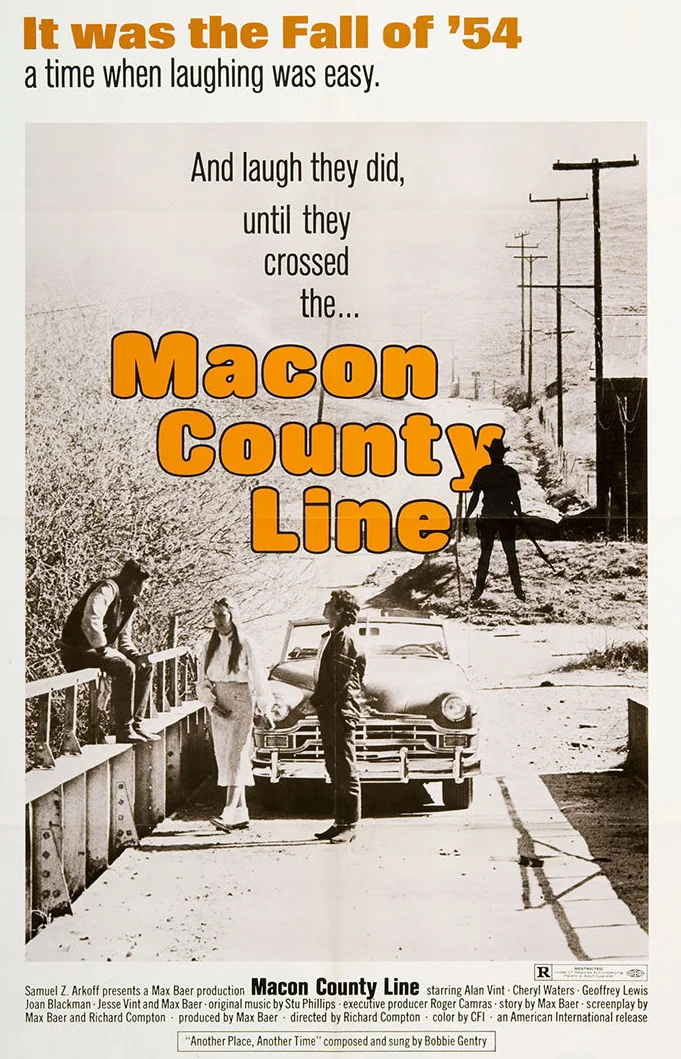
6/15:
Macon County Line is a brilliant piece of work that's in the same vein of Easy Rider and
The Town That Dreaded Sundown.
All the credit goes to Max Baer, Jr., who wrote, produced, and starred in the film. His performance as a small-town police
officer in Georgia is something else. My favorite part is when he had a polite conversation with his son about mingling with
his black peers. Another one, which is equally disquieting, is when he casually bought a big shotgun and walked around with it,
all for his ten-year-old boy.
Macon County Line is the kind of picture that takes its time with the atmospheric setting and mood, and once the
climax is reached, the film explodes in the final twenty minutes that makes it unforgettable. Helped by the characters, the
Southern Gothic style comes alive which works to its advantage. Also, let's not forget to mention the great
performances by the Vint brothers: Alan and Jesse.
What sells the film to the audience is the announcement that it's based on a true story which is followed up with the aftermath
of the characters' fates. However, the whole thing turned out to be fictional, having been a figment of Max Baer, Jr.'s
imagination. The coincidence of three characters' car stopping in front of the police officer's house is too fantastic
to believe.
Regardless, the film was made for $225,000 and went on to rake in over $30 million worldwide, becoming the highest grossing film
in terms of cost-to-profit ratio, a record that stood until it was broken by
The Blair Witch Project. So, good work, Max.
All in all, Macon County Line is a well-directed Southern Gothic thriller.
3/17:
Originally made as a "drive-in" picture, Macon County Line was a surprise winner in 1974, having been shot on a $225,000
budget and eventually grossing over $30 million worldwide, a record that stood until
The Blair Witch Project broke it.
Max Baer, Jr., who's famous as Jethro Bodine in The Beverly Hillbillies, was frustrated by being typecast and
couldn't land a job in Hollywood for several years. Hence, he decided to put up his money by turning his screenplay into a
feature length film. The result is Macon County Line, a Southern Gothic thriller with one of the most explosive
finales ever filmed that's capped by a surprising revelation.
I wanted to view the picture again to see if it still held up. The answer is a resounding yes even though it's a bit
slow to get things going. Great performances are rendered by the cast. The standouts are the Vint brothers, Max Baer, Jr.,
Geoffrey Lewis, and Sam Gilman. Max's portrayal of Deputy Reed Morgan is something else. Sure, he looks Jethro at first, but
when Max puts his dark sunglasses on, he's a completely different character.
All in all, the last twenty minutes of Macon County Line is the clincher for its high replayability value.
Mad City (1997)
Rate:
7
Viewed:
8/18
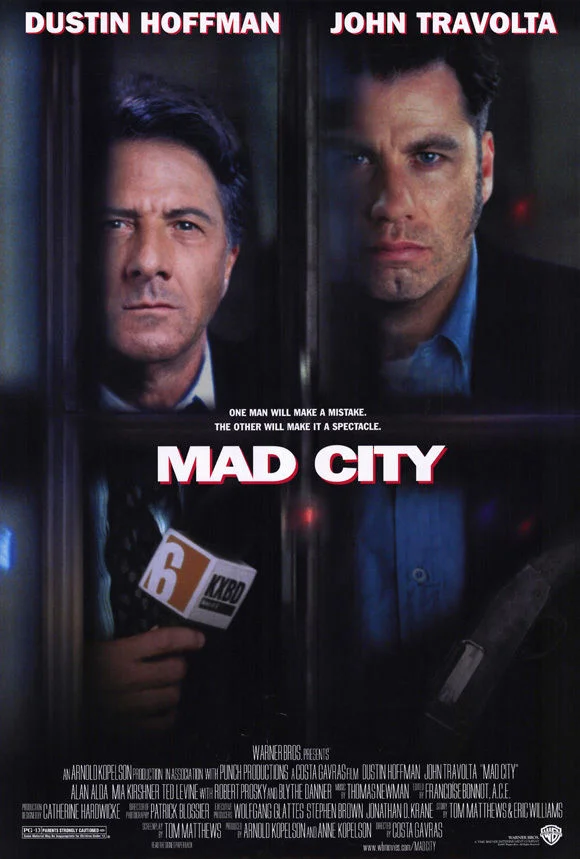
8/18:
Costa-Gavras made his name by directing the critically acclaimed picture Z which won the Oscar for Best Foreign
Language Film.
While watching Mad City, it was easy to see the similar themes from Z as the director tried to make a
statement how the media only cared about the ratings potential of a story and therefore blew it out of proportion. At the same
time, I couldn't help feeling it's 80% Ace in the Hole and 20%
Dog Day Afternoon. It was like check, check, check on the to-do list.
The premise is silly and has many flaws. For example, there's no way the cops will concede control of the
situation to a reporter. Once he left the museum, his duty was essentially over. The sight of the swarming media on the front
steps to interview the recently released hostages will never happen, either.
Another aspect I don't like is the manipulation. Because the low-IQ hostage taker is played by John Travolta, it's easy to
generate some sympathy among the audience. How can people not like him? Imagine how quickly it's dissipated if he had been
replaced by an ugly weirdo or perhaps a turban-wearing Muslim, and they'll be like, "Just kill him already."
I find it weird the sharpshooters atop the roof couldn't shoot through the glass when they had a clear target. They also
had many chances to check out the windows and try to spot the hostage taker. The museum is too damn big for one person to
handle.
Yet I appreciate the ending because it's rather realistic. What's interesting to notice is everybody makes the mistake of
pushing the envelope further by agitating the hostage taker when everybody should be focusing on keeping him cool-headed.
Otherwise, being emotional will lead to disastrous decisions which is exactly what happened at the end.
Dustin Hoffman is too good of an actor to appear in Mad City, and I don't think he should've done it. I don't
get why he still looked so good and fresh while his co-star is haggard and sleep deprived. Regardless,
he's the sole reason for getting me through the film along with the somewhat compelling, if recycled,
storyline. The point of his character is well-taken because he contradicts himself many times by pretending to take
the moral high ground. All I could think of was "Is this about the story, getting back into the big business, or an ego trip?"
All in all, Mad City lacks originality, but I've enjoyed the movie, regardless.
Mad Max (1979)
Rate:
5
Viewed:
7/04, 7/07, 6/21
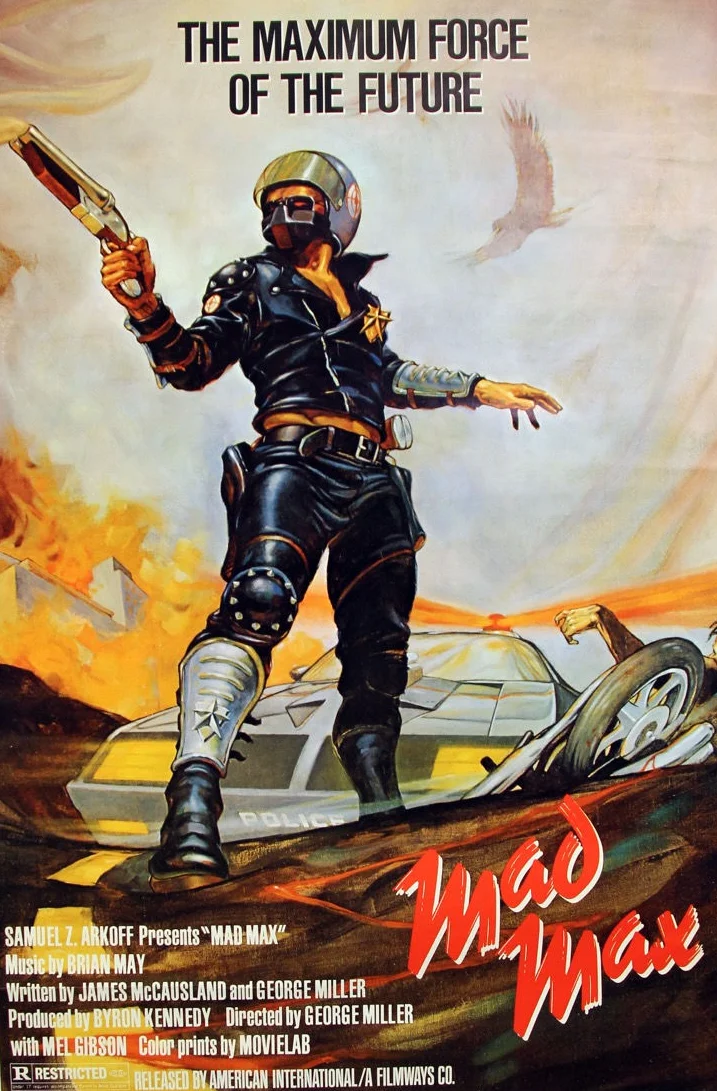
7/07:
I wish I could say Mad Max was entertaining, but it's tedious.
The best parts occur in the first fifteen and the last twenty minutes. The middle hour is dull
to get through, causing me to fall asleep. Most of the dialogue is painful to listen to. There isn't much of a story, either.
However, I have to admit the stunts for the action sequences are legendary and groundbreaking.
Unfortunately, Mel Gibson is average, but that's okay. He's more memorable as Martin Riggs and William Wallace.
Instead, Hugh Keays-Byrne is the show.
All in all, it's the mind-blowing stunts that cemented Mad Max's reputation.
6/21:
The one that put Mel Gibson on Hollywood map, Mad Max is a dated dystopian movie.
It's slow, there's hardly a plot, and everybody is a mental midget by having to scream constantly. The spectacular action,
however little, is often cheated by the shoddy editing which explains how the kid mysteriously disappeared. Dulling my senses,
Mad Max takes a while to get to the conflict; once it happens, the movie is almost over.
Mel Gibson is okay, but he's too clean-cut to believe. If his character is supposed to be "mad" after what happened to his wife
and baby, I don't see it. Ironically, Hugh Keays-Byrne steals the show as Toecutter and has the best lines of anyone.
Like El Mariachi and
The Blair Witch Project, Mad Max holds the distinction of having one of the highest
profit-to-cost ratio ever, grossing over $100 million against a budget of approximately $350,000. The enusuing
sequel is The Road Warrior which exceeds all expectations.
All in all, Mad Max may have been something else during the late 70's, but it hasn't aged well.
Mad Max Beyond Thunderdome (1985)
Rate:
9
Viewed:
7/04, 11/05, 7/21

11/05:
I was hoping that Mad Max Beyond Thunderdome would have a lot of high-octane stunts.
But nope, there aren't much of them. As usual, it lacks the excitement of the first two films. Things hardly happen,
and the plot is brainless as ever. "Two men enter, one man leaves" is the franchise's greatest line. Sadly, that's all the
second sequel has going for itself.
All in all, to call Mad Max Beyond Thunderdome a true sequel of the Mad Max franchise is a stretch as it's more
like Peter Pan Beyond Thunderdome.
7/21:
Was it a career mistake for Tina Turner to turn down the role of Shug Avery for
The Color Purple to appear in
Mad Max: Beyond Thunderdome?
After seeing the film, I'll have to say no. It's perfect for her. She even shaved her head to ensure the wig would fit
properly. I bet Tina Turner had a lot of fun calling Mel Gibson "raggedy man." On the other hand,
The Color Purple had a
perfect cast, and I can't see where Tina Turner would fit in.
The most famous line of the entire Mad Max franchise is: "Two men enter, one man leaves." What I like about these
installments is every one of them is completely different. That's why it's hard to make comparisons.
Of all, Mad Max Beyond Thunderdome is the most creative, having a Peter Pan slant. It must have taken a lot of
work to build up the interior sets and the unique clothes for the characters. To go further, they've made each
world distinct from each other, and the Thunderdome is the most interesting of them all. The screenplay is well-written as well.
Notice at the end of the film, it says: "For Bryon." And then notice in the beginning that the directors are George Miller and
George Ogilvie. What happened is that producer Byron Kennedy was killed in a 1983 helicopter crash while scouting for potential
filming locations. Miller didn't think he could do it alone, so he enlisted the help of Ogilvie to get through it.
All in all, while The Road Warrior may be the best
post-apocalyptic picture made, Mad Max Beyond Thunderdome isn't that far behind.
Madame X (1966)
Rate:
7
Viewed:
4/25

4/25:
"You have to be the most beautiful woman in the world."
Yeah, duh...her name is Lana Turner. There are lots of versions of Madame X, but this is the only one
I've seen. Lana Turner gives a top five performance of her career and gets to wear nice clothes, designed
by Jean Louis, at the beginning. What a surprise that she wasn't given an Oscar nomination. You won't see her
looking so unglamorous or ugly in any other film.
It's unique story. There are slight differences compared to Alexandre Bisson's play, but the structure remains
the same. I was hoping the son would discover the irony at the end with his father confirming the truth,
but nothing came of it. No matter what, the whole thing is fine as it is.
If there's anything to be let down by the film, it's emotionally underwhelming. The director needed
to coax more out of his cast apart from Lana Turner. Then again, who the hell is David Lowell Rich? When Burgess
Meredith showed up, the energy was back after it felt low for a while. The cinematography is okay, but producer
Ross Hunter should've tried harder to get Douglas Sirk and his team to reach for that oomph.
All in all, Lana Turner continues to be an underrated actress, and Madame X is among her best films.
Made (2001)
Rate:
3
Viewed:
1/05, 2/06
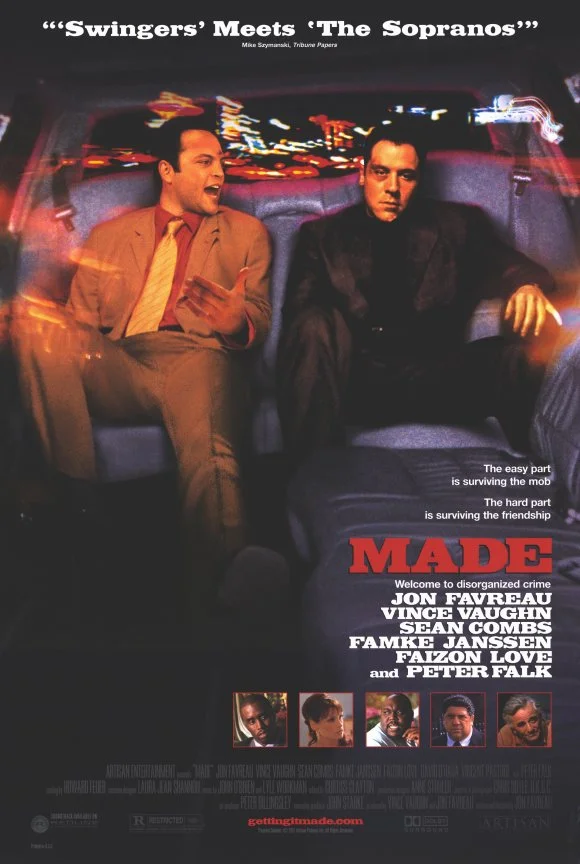
2/06:
In so many words, Made sucks.
I hate everything about it. The worst character is Ricky Slade. Annoying to the nth degree, he won't shut
the fuck up. Peter Falk is awful, and his character makes me sick. Because I liked
Swingers, I'm disappointed with Vince Vaughn and Jon Favreau for coming up
with this crap.
All in all, Made shouldn't have been green-lit in the first place.
Madigan (1968)
Rate:
4
Viewed:
10/14

10/14:
If you want to watch the most mundane and linear cop picture made, look no further than Madigan.
It's amazing what the detectives do on the job: walk, smoke, talk, drive, smoke, go home to see the wife, eat,
drink wine, sleep, hit the streets, question informants, walk, smoke, drive, talk, smoke, eat, sip some more wine,
smoke, sleep, go back home to see the wife again, get up, and so on. So illuminated I am by their daily routine
of life that I should try it someday.
Oh, how I love the age differences for a couple of pairs. Richard Widmark is 54 while Inger Stevens is 34; it's
a difference of twenty years. Sheree North, who plays the lounge club singer mistress, is slightly older at 36.
Henry Fonda takes it further as he's 63 while Susan Clark is 28, a healthy difference of 35 years. There's no
question that appropriate-age actresses should be insulted by having to be replaced by their significantly
younger counterparts.
The other problem is the two parallel threads: the search for the killer and the commissioner's conscience. Just
pick one and stick with it. Not only the commissioner pretends to be sanctimonious, but he also sleeps around
with a married woman and gives the corrupt Chief Inspector a free pass which is based on one and only one reason:
their childhood friendship. Before getting into the shootout with the killer who happens to be holed up in some
apartment, Madigan is given a bulletproof vest but decides to forego it which proves to be an idiotic move,
costing his life.
By the way, Inger Stevens committed suicide by ingesting an overdose of barbiturates on April 30, 1970, in Los
Angeles, California, just two years after the completion of Madigan.
All in all, here's a rule of thumb: if coming up with a new policier story that isn't more exciting than
Madigan, don't ever make it.
Madman (1981)
Rate:
3
Viewed:
10/16
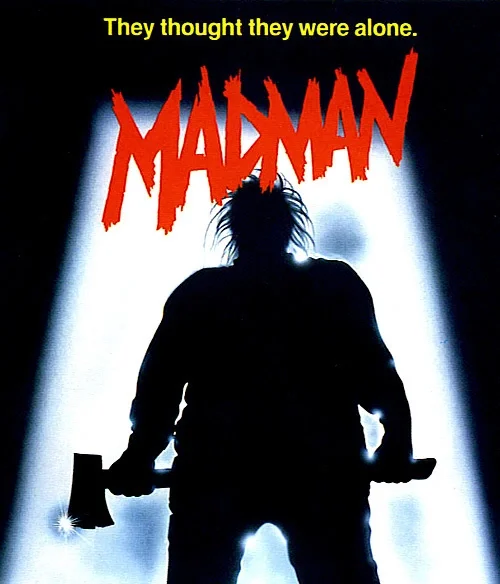
10/16:
Madman Martz.
Yep, that's his name. It's what the slasher is called in Madman. How unoriginal. Jeez, where did it
go wrong? Well, for starters, it's a low-budget B picture of D quality. Hardly much happens. Bad acting is all
over the place. The pace is slow. I was like, "Hurry the fuck up. Just kill them all already."
Whenever somebody dies, the death scene is always clichéd to the point of having been done a thousand of times
before. One woman is so annoying that she's practically screaming the entire time. Just die already, and stop
screaming, for Pete's sake.
Hey, you. Yes, you the reader. Do yourself a favor. Go out in the woods during the middle of the night. Tell
me if you're blind as a bat. In the movie, searchlights are all over the woods, and it's easy to see everything
as if it's daytime.
All in all, Madman is a run-of-the-mill slasher flick made by idiots for idiots.
The Madness of King George (1994)
Rate:
9
Viewed:
8/19
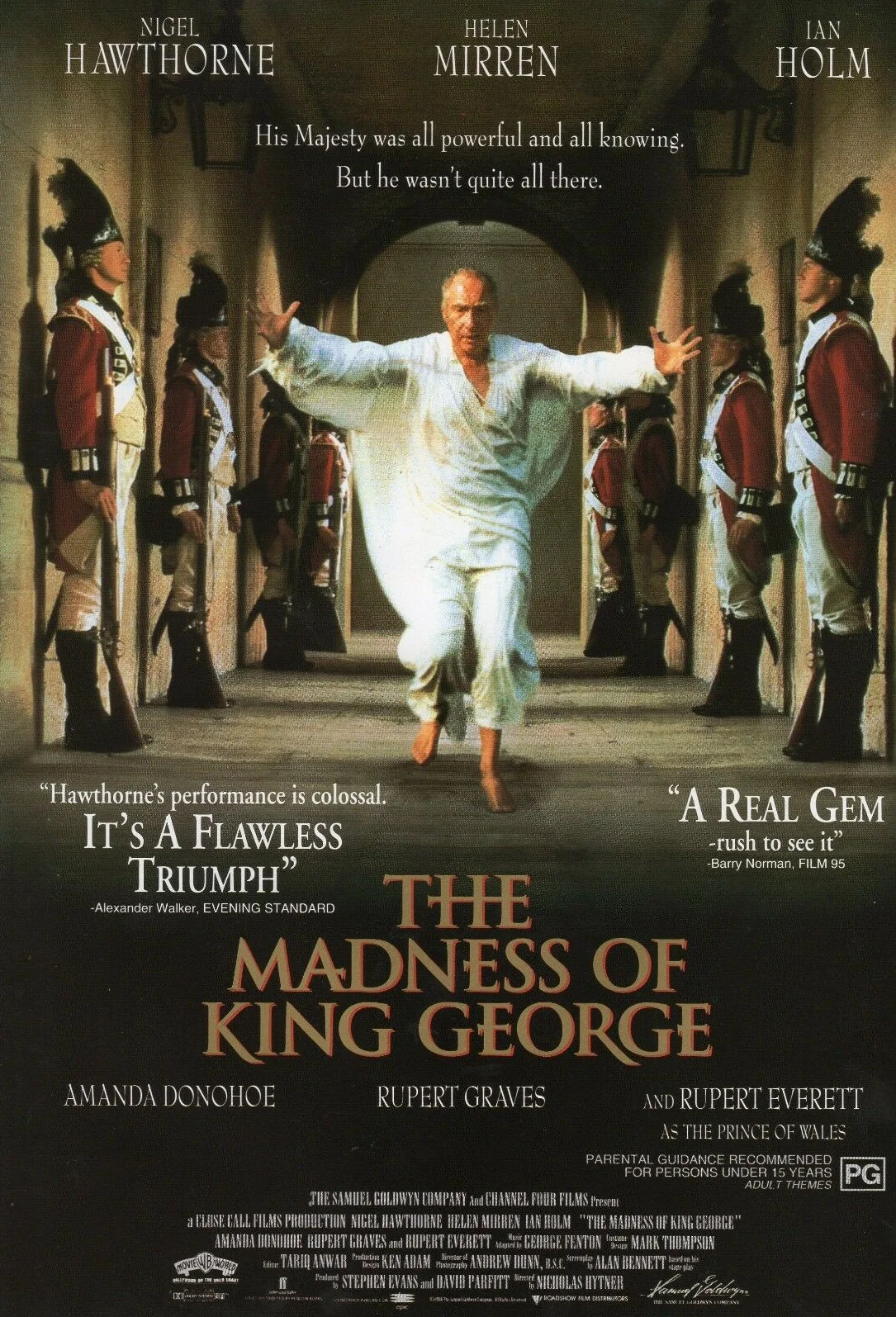
8/19:
Great writing, great acting, and great story are the hallmarks of The Madness of King George.
One of the 1994's five Oscar nominations for Best Actor in a Leading Role went to Nigel Hawthorne, and he
deserved it. It's a terrific performance. I also think Rupert Everett should've gotten credit. He's funny and
sardonic as the Prince of Wales.
Writing is the reason why British films are often superior to American films. Refined theatrical acting is another.
The Madness of King George has a good sense of humor which is a play on historical fact, and it ends well
with everybody going through a bad period of time with his or her loyalty put to the test.
All in all, The Madness of King George is a charming British royalty picture with fine performances.
Mafioso (1962)
Rate:
8
Viewed:
5/12

5/12:
Mafioso works because of Alberto Sordi's outstanding performance.
If not for him, I doubt the film would see the light of the day nowadays. His personality reminds me of Chevy Chase's Clark
Griswold. However, the last twenty minutes is disappointing. I wish the filmmakers came up with a better finish.
The idea of Antonio being boxed up in a crate en route to New York City from Sicily is absurd, thus ruining the movie.
It's stupid and senseless. If it happened somewhere in Italy, fine...I'll accept it. But New York City? That's far
and therefore impossible.
All in all, Alberto Sordi's brilliant performance is the chief reason to see Mafioso.
The Magnificent Ambersons (1942)
Rate:
10
Viewed:
3/14, 12/20
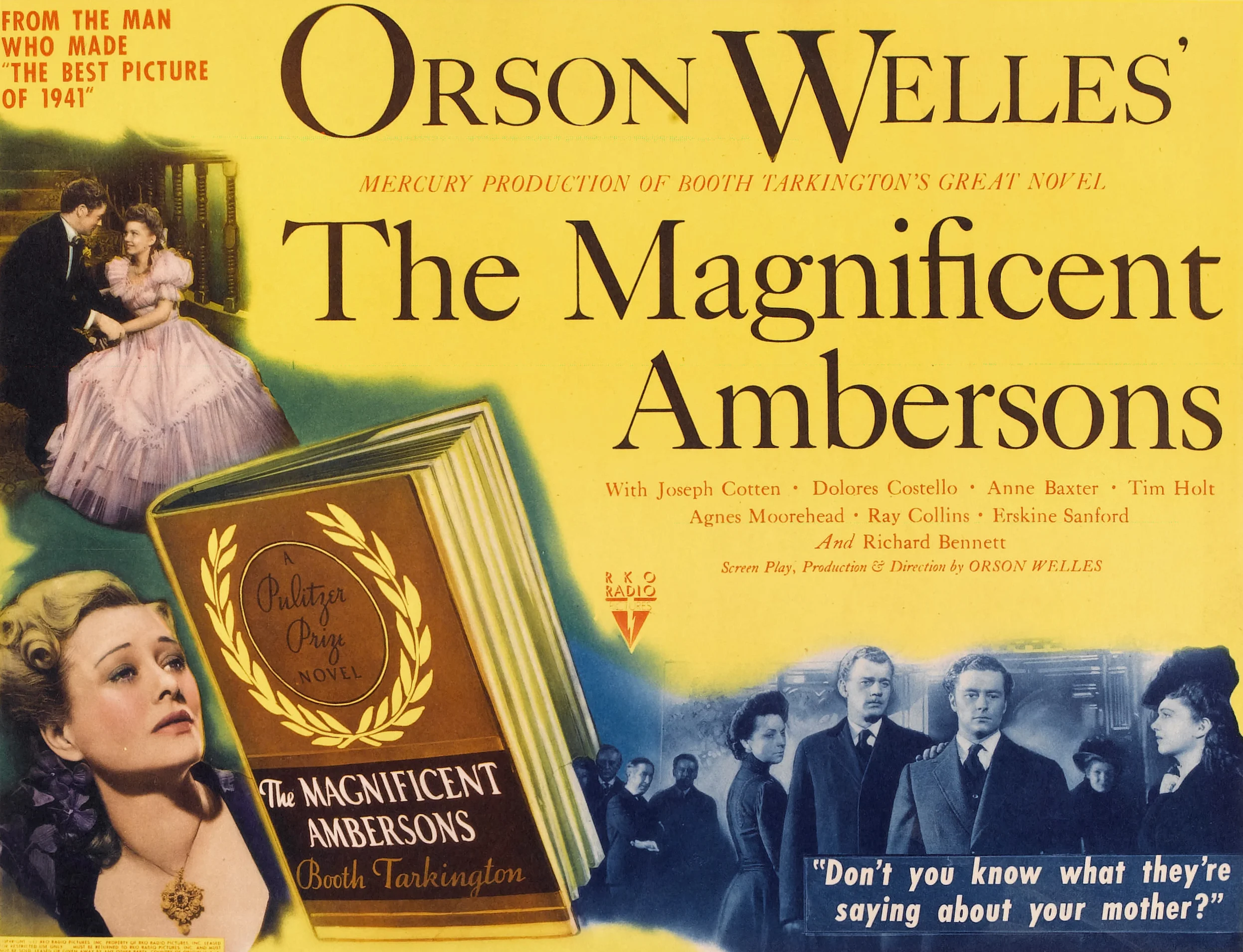
3/14:
If you can't get enough of Citizen Kane, The Magnificent Ambersons promises you more of the same.
Written by Orson Welles which was adapted from Booth Tarkington's novel, the plot is sweeping, innovative, and captivating that's
coupled with a wonderful raconteur style. Orson Welles was a rare director because he brought to the screen revolutionary
cinematic elements that had never been done again ever since. They are so advanced that it'll take a genius to
repeat them.
The Magnificent Ambersons is a moral story. The war didn't kill the Ambersons; pride did. It's a swift and shocking
fall from grace. Yet such a tale like theirs was common back then. That's what makes it so interesting: a character's
personality flaw leads to his own family's downfall.
A unique aspect is the dramatic stylized closing screen credits sequence that's capped off by the immortal line: "I wrote the
script and directed it. My name is Orson Welles." Labeled as an egotistical, he caught a lot of flack for it.
Nonetheless, it's powerful.
All in all, like Citizen Kane and
The Lady From Shanghai, The Magnificent Ambersons has to be seen
multiple times for film appreciation.
12/20:
Orson Welles was the master of advanced and complicated scenes.
Citizen Kane, The Magnificent Ambersons, and
The Lady From Shanghai are evidence of his genius
filmmaking. They're strange, deep, and mesmerizing. No one has ever shot black-and-white movies the same way like them. In
a classic dramatic fashion, the wunderkind finishes off The Magnificent Ambersons with his voice-over during the
closing screen credits as the microphone is pulled away: "I wrote the script and directed it. My name is Orson Welles."
Yes, The Magnificent Ambersons is Citizen Kane all over again, but it's still interesting nevertheless: the
downfall of a family because of one man's pride amidst the technological changes. The whole ordeal reminds me of the lavish,
monstrous, and overblown 19th century monuments that were left behind in cemeteries, prompting me to ask, "Who were these
people? What happened to their vast properties because they're all gone?"
The best moment is Lucy Morgan's reaction which is in the form of "who the hell cares?!?" when George told her that he would
be going away for good. Honestly, he's just an insignificant, small-minded man-child who knows nothing about real life. When
George got his comeuppance, he deserved it, and when it happened, people were long past caring.
Terrific performances are rendered by two Mercury players: Joseph Cotten and Agnes Moorehead. Two young thespians make their
presence felt: Tim Holt and Anne Baxter. Playing the mother, Dolores Costello stopped acting afterwards, having been badly
scarred by makeup in her early screen appearances; she was Drew Barrymore's grandmother via marriage to John Barrymore. Orson Welles
doesn't star, but he provides the powerful narration.
All in all, studio interference or not (more than 40 minutes were deleted from the final print),
The Magnificent Ambersons is a Wellesian masterpiece.
Magnificent Obsession (1935)
Rate:
3
Viewed:
5/14

5/14:
Magnificent Obsession is a hopelessly dated picture.
I'm sure the film made for a fine viewing during 1935, but it fails to stand the test of time for a couple of reasons.
First, notice how the scenes between characters are filmed with dialogue in a long continuous shot. There's no energy
to keep me awake. Hence, John Stahl must have not seen
Bronenosets Potyomkin. Because I got bored, it took me four days to
finish the film.
Second, there's no life behind the spoken words. The players say their lines and segue to the next scene with no feeling. When
they went through the motions, I ultimately asked myself, "Why should I care, either?" That's when the movie fell apart.
The artificiality of emotions and the lifelessness of characters will always spell doom. Films like
Casablanca,
Gone with the Wind, and
All Quiet on the Western Front, all products of the 30's, have stood the test of time
because they're emotionally powerful. Unfortunately, Magnificent Obsession has been sneered at for its fatuousness and
soap opera themes, and I concur.
All in all, Magnificent Obsession it is not.
Magnificent Obsession (1954)
Rate:
5
Viewed:
4/14

4/14:
Not as good as I hoped it would be, Douglas Sirk's Magnificent Obsession pales in comparison to
All That Heaven Allows.
The most serious problem is the pace. It'll move back and forth between fast and slow constantly. The other is the plot that's
never convincing. There isn't much of chemistry between Rock Hudson and Jane Wyman. I just can't see her attraction to him.
Nevertheless, they'll more than make up for it in All That Heaven Allows. On the
positive side, the cinematography is beautiful. Douglas Sirk sure knew how to film color like no one could.
All in all, All That Heaven Allows is the film to see, not Magnificent Obsession.
The Magnificent Seven (1960)
Rate:
9
Viewed:
12/03, 4/14

4/14:
Last time, I rated The Magnificent Seven '4' because it was a slow picture.
Having seen it again, my opinion is more improved. I look at acting as part of my criteria. Hence, most
of the players have done well, but it's Yul Brynner, Charles Bronson, and Horst Buchholz who stand out the most.
Without question, Yul Brynner is the undisputed leader of the ensemble cast. He has a quiet commanding presence, setting
the tone of the film. Sorry, Steve McQueen...you lost. And it's not even close.
Charles Bronson is likeable and personable, and the relationship his character has with the three Mexican boys is touching.
The best scene is when he talked about the definition of responsibility after hearing from them what cowards their fathers were.
Not much credit is given to Horst Buchholz who's the true star of the show. He's charming and funny in an affable
way and surely wears his heart on his sleeve.
Many Western pictures are more or less the same: bandits accost a flock of people and the good guys come to their rescue and
defeat them. That's why I had a lowered opinion of The Magnificent Seven the first time around. The redundant plot is
somewhat the same for Valdez Is Coming and Guns for San Sebastian. However, I didn't realize
The Magnificent Seven predates them by an average of nine years, setting an example for others to follow. I've seen
Shichinin no samurai twice, and it's such an overlong, boring film. Hence, I prefer the other one.
All in all, if I want to see The Magnificent Seven again, Yul Brynner is the reason why.
The Magnificent Seven Ride! (1972)
Rate:
8
Viewed:
6/14
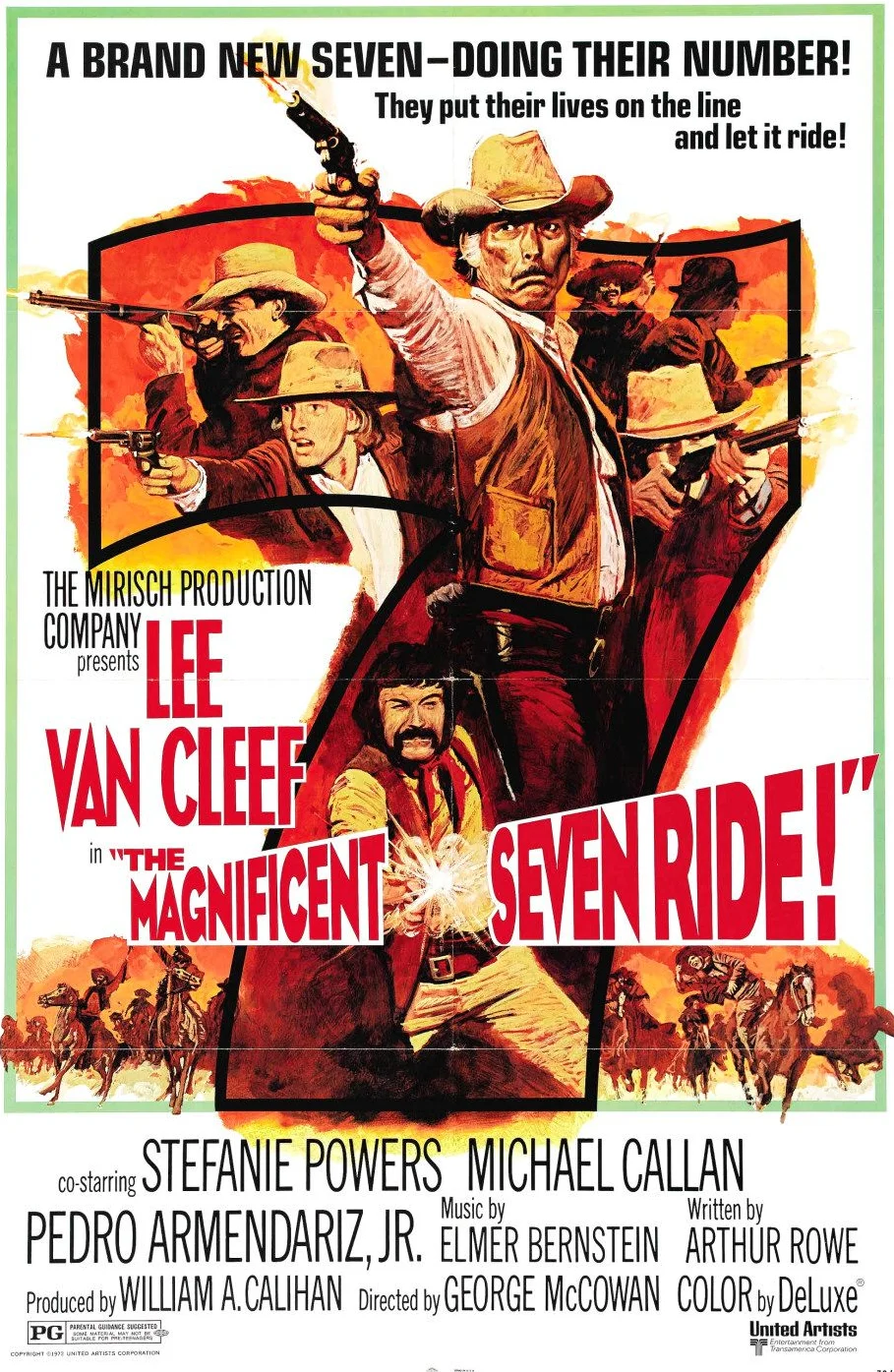
6/14:
After completing the first three parts, I started The Magnificent Seven Ride!, expecting it to be the worst yet.
And the astounding thing happened. It turns out to be the best sequel by far. I'm pleasantly surprised,
thanks to Lee Van Cleef who can almost stand toe-to-toe with Yul Brynner.
Lee Van Cleef makes the film, and he's very good, even for third sequel; it's a tough feat to pull off. What
helps it the most is, for the first time ever, the cast is perfectly assembled. Not a single actor looks out of the
part; thus, they're natural and fit their characters.
The story is the same, but somehow, it doesn't feel like
The Magnificent Seven. Showing off a good old-fashioned but
refreshing Western feel, it has several scenes of cold, hard truths about the Old West.
All in all, good job, Lee Van Cleef...you're the man.
Magnum Force (1973)
Rate:
6
Viewed:
1/05, 10/07, 1/26

10/07:
As much as I like Clint Eastwood as Dirty Harry, he doesn't make Magnum Force an exciting picture.
Actually, it's not his fault but rather the director's. The other reason is John Milius and Michael
Cimino who penned the screenplay. The former wrote the first half of the picture which did work for me. Then,
the latter took over, causing the show to go downhill.
The result is a bland movie with boring villains (Hal Holbrook? Oh, please) and a predictable plot. Also,
it's too long, clocking at two hours and four minutes. Not much happens. Even the ending is a snoozefest.
All in all, Magnum Force fails to live up to the expectations of a
Dirty Harry picture.
1/26:
Magnum Force is the second part of the Dirty Harry franchise.
I will agree that it's a very slow, long movie by being a thorough policier. Clint Eastwood isn't funny
in a sardonic way this time. My favorite moment is Suzanne Somers shrieking like a bitch about her new ring,
taking off her top, and getting killed by a vigilante cop. If she acted normally, perhaps nothing would've
happened to her, hence a possible paraphrased line: "A woman's got to know her limitations."
All in all, Magnum Force is rather forgettable, and even Dirty Harry's last name is misspelled in the
closing credits.
The Magus (1968)
Rate:
3
Viewed:
1/24

1/24:
Michael Caine said publicly that The Magus was among the worst films he had been involved with because
nobody understood the plot.
Yeah, no kidding. Every time a question is asked, it's never answered. Stories are invented and then reinvented.
Identities are changed constantly like underwear. It's all patently ridiculous to me. Even Peter Sellers had
this to say when asked about going back in time to make changes in his life, "I would do everything exactly
the same except I wouldn't see The Magus."
The acting is fine. I like the cinematography. Unfortunately, it wasn't shot on location in Greece but in
Majorca, Spain, for the most part. Regardless, both got me through the ordeal rather nicely. Most of
The Magus reminds me of Deadfall which came out during the same
year, and it's the latter that I recommend you to see instead along with Sleuth.
What I don't understand is Nicholas was hired to teach English and yet was barely shown working at the school.
Back to Michael Caine, he said in an interview for Time Out magazine that he had been obliged to star
in the two aforementioned films for 20th Century Fox and that he couldn't finish reading John Fowles' book
because of the incomprehensible story. While making the film, he was still unable to figure out what's going on
despite wanting to star in a Fowles picture, which was anything at all, after seeing
The Collector.
All in all, if nobody could understand the book for The Magus, then why proceed to make the movie?
Mahogany (1975)
Rate:
8
Viewed:
3/24
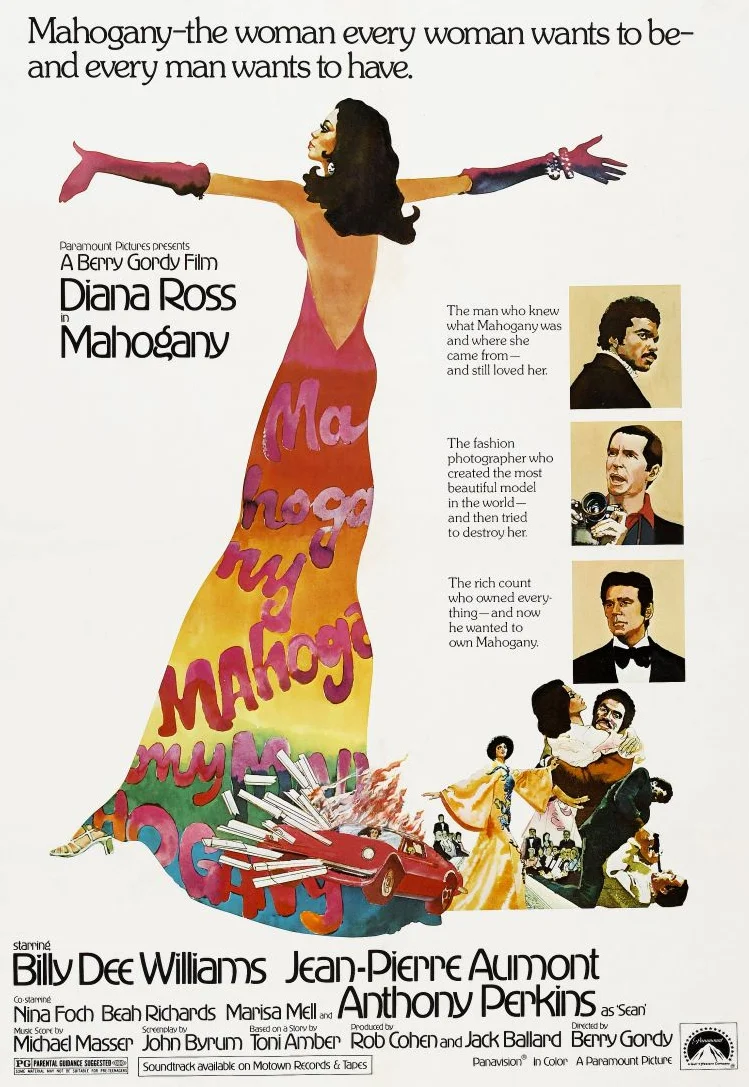
3/24:
Mahogany is an impressive film that was unfairly dismissed by critics back in the day.
One thing to remember, there was a dearth of classy pictures featuring black people in leading roles during the 70's. Happily,
Diana Ross and Billy Dee Williams reunite after appearing together in
Lady Sings the Blues, and the results are
terrific. Their chemistry is also electric.
What surprised me the most is Anthony Perkins. It's the best performance I've seen out of him since
Psycho. I
think his character was meant to be gay and wanted to deny that fact by trying to fall in love with beautiful women.
That's why Sean went for Tracy Chambers aka Mahogany. But it's only an illusion which got shattered in his mind
after she denied him. As a result, he became resentful toward Tracy when he was just torturing himself, hence the crazy
car crash that killed him.
Another plus is the cinematography by David Watkin. He's among the best in the business, winning an Oscar for
Out of Africa. It's one of the biggest differences in the film's watchability. Sure, the
plot can be somewhat all over the place, but the theme remains consistent: it's about men telling a beautiful woman to serve them
when all she wanted to do is focus on herself. Yet what Brian Walker said is nice: "Let me tell you something, and don't you ever
forget it: that success is nothing without someone you love to share it with."
All in all, Mahogany is a fine piece of work, and Diana Ross and Billy Dee Williams could have done more movies together.
Maid in Manhattan (2002)
Rate:
9
Viewed:
6/25

6/25:
Finally, here's a classy romantic picture that's on the same level as
Roman Holiday and Pretty Woman:
Maid in Manhattan.
So, why the hate? Jennifer Lopez has done a very good job, and this is among her best films. Given the
opportunity to work with the right material and cast, she's a competent actress, and many people don't seem
to realize that. It would be easy to detect traces of divaness in any actress and therefore call her out for
it, but Jennifer Lopez didn't show any in this one.
Recently, I watched several pictures involving Ralph Fiennes and complained at the end of
The Constant Gardener, "I know he's an excellent actor, but why
can't he appear in something that's normal for once with a coherent screenplay, still camera work, and solid
performances? It's like all I have from him are Schindler's List,
Quiz Show, and Sunshine." My wish was
finally met in Maid in Manhattan...it's what I wanted to see out of him.
I like the story although some of it can come off as snobbish and elitist. Plus, it's only believable because
Jennifer Lopez looks great. She and Ralph Fiennes make for an interesting pair and have good chemistry. There's
a screwball effect in order to cover up the true identity of the maid, so the film can be Cinderella-like.
Additionally, I'm impressed with the supporting performances by Natasha Richardson, Marissa Matrone, and Bob
Hoskins. It's hard for me to make the transition in regard to Stanley Tucci because of his former character
in Murder One. On the other hand, child stars tend to be annoying, but
Tyler Posey passes the test.
All in all, you should ignore the negative reviews for Maid in Manhattan; it's a well-made film.
Mail (2004)
Rate:
2
Viewed:
1/08
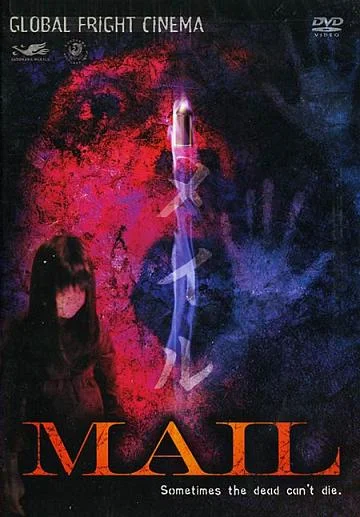
1/08:
I've only seen one Japanese movie to this date, and that's
Shichinin no samurai.
Hence, Mail became next, and I wasn't looking forward to it. As usual, it took me some time to get
used to the Japanese style. The annoying look isn't helping, and it's like peering through some soft wax paper.
It's simply a bunch of 15-minute episodes that have nothing to do with each other. The acting is dreadful as if
the thespians are doing a bad soap opera show. Advertised as a horror film, Mail isn't so. Rather, it's
about...nothing.
The filmmakers try for a weak attempt at Vertigo and fail miserably. Plus,
it's littered with lousy special effects as in "oh, dear, you people have a lot to learn." I noticed Mikoto
resembling the Japanese girl from Kill Bill. Then, I looked up the
internet which confirmed my suspicion. Maybe that's how Mail found its way to the United States?
All in all, why is the movie called Mail when it deals with e-mails?
Major Dundee (1965)
Rate:
3
Viewed:
3/25
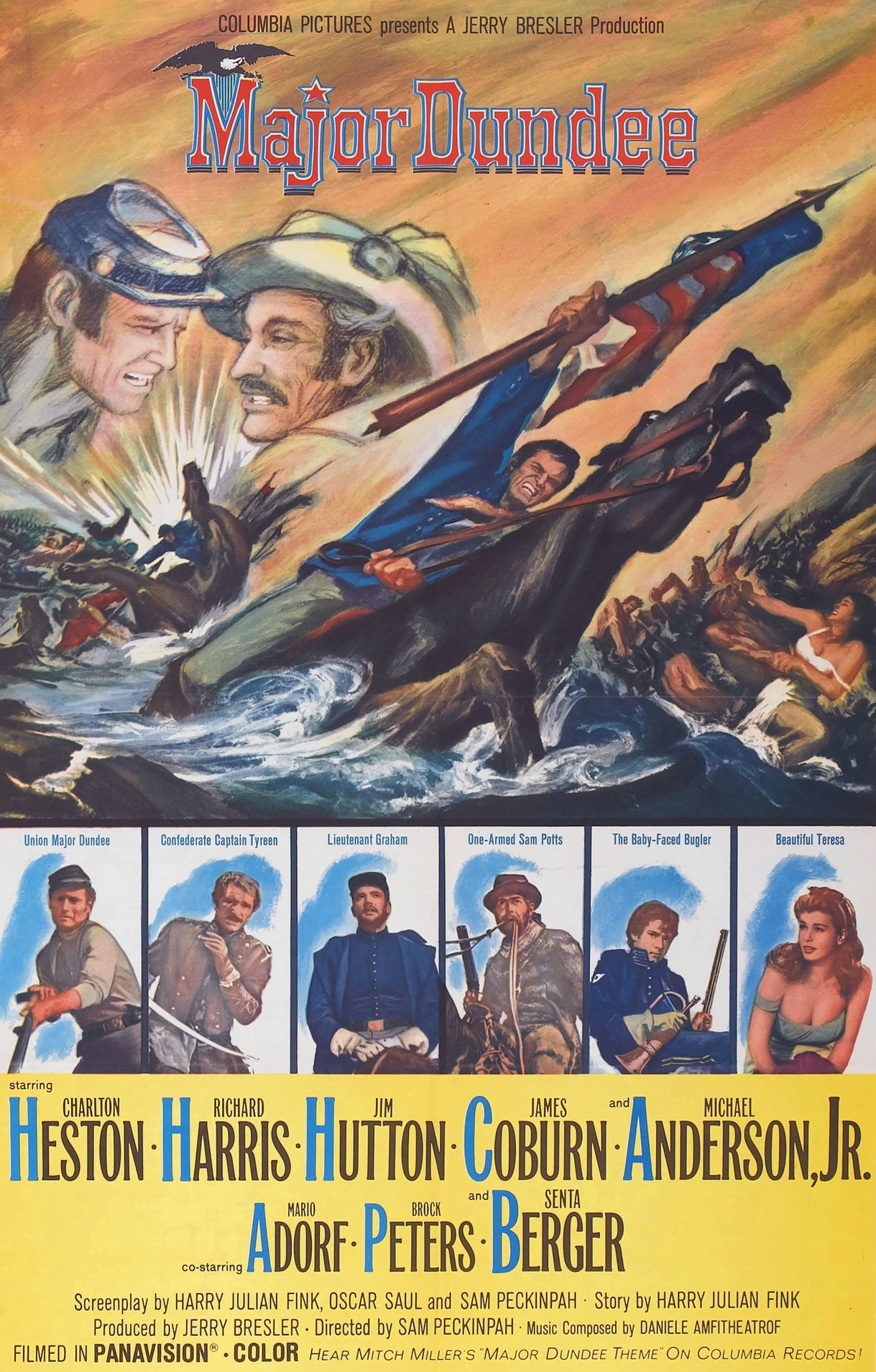
3/25:
Take away the 'n' and the double 'e', and we'll have the correct title: Major Dud.
I'm convinced now that Sam Peckinpah was an incompetent filmmaker. He doesn't know how to tell a
coherent story. Don't fall for the trick that the studio took away his film and butchered it; I'm sure the execs
also thought the same as I did. I won't be surprised to learn Peckinpah was so drunk that he didn't know
what movie he was making.
Upon receiving the original script, the director said, "There's a lot of good work in it, but I'm more than
a little disappointed. The characters are there, and the bones of the story, but there's a lot of excess
mishmash." Then, he rewrote it himself. Afterwards, Charlton Heston commented, "There are holes in it; serious
holes, I think. That means either he knows a lot less about scripts than I do...or a lot more.
I'm perfectly willing to accept the latter premise, but it's a bit spooky just now. The main thing wrong is
the girl's part, which is very sloppily written."
Therefore, Major Dud is two hours and thirty-six minutes of nothing. If I were you, I would just fast
forward to the end with fifteen minutes left. Don't worry if it looks random, and forget that Sam Peckinpah
pulled off the impossible by creating a Western masterpiece called
The Wild Bunch. You'll find nothing of that kind in this film.
The point of Senta Berger is uh...? Amos cheating on her character with a Mexican says what? Ben crossing
the Rio Grande River for the final glorious fight of his life is senseless when remaining behind will suffice;
otherwise, it's a declaration of war between two countries. The voice-over narration is worthless, and I keep
forgetting who's that from because he barely appears.
What a cast...and what a waste. I keep seeing guys who'll appear in a Sam Peckinpah film down the road. Charlton
Heston is usually a strong actor, but he's unbelievably wooden here as Amos. But to his credit, he knew the
whole film was a gigantic mistake by saying "never, never, never start shooting without a complete script...it
was a major stumbling block on Dundee." Richard Harris is no better, either. Speaking of the rivalry bteween
their characters, it was so much better done in Vera Cruz. The amount of
fighting is surprisingly sparse and uninteresting, occurring almost on the hour.
All in all, instead of Major Dud, I recommend Ulzana's Raid.
Major League (1989)
Rate:
8
Viewed:
10/03, 4/08, 6/11

3/08:
Probably the best baseball picture made, Major League wins points when it comes to the cast, characters, comedy,
classic moments, one-liners, and direction.
Charlie Sheen, Wesley Snipes, Corbin Bernsen, Tom Berenger, James Gammon, Dennis Haysbert, Bob Uecker, and Margaret Whitton
are memorable for playing fan favorite "Wild Thing" Rick Vaughn, Willie Mays Hayes, Roger Dorn, Jake Taylor, Lou Brown, Pedro
Cerrano, Harry Doyle, and Rachel Phelps, respectively.
These quirky characters make the clichéd story work, allowing the comedic aspect to come alive rather easily. There are
many moments that make the film a time-tested classic. As funny as it sounds, I have the cues memorized for
commercial breaks because I've seen it a million of times on television.
Back then, I was trying to figure out the "Hayes" part for a while when Willie Mays Hayes said he "hits like Mays
and runs like Hayes." It turns out that "Bullet" Bob Hayes was a wide receiver for the Dallas Cowboys during the
60's and remains the only NFL player to win a Super Bowl ring and an Olympic Gold Medal (two of them). During the
1964 Tokyo Olympiad Games, he ran the 4x100m relay and was reported to be clocked at 8.5 seconds on a borrowed shoe.
All in all, as much as I hate the sport, Major League is to baseball as
Days of Thunder is to auto racing.
6/11:
Just after I finished Major League, Charlie Sheen confessed to steroid use during the filming, so his 70-MPH
fastball could be increased by at least 10 MPH.
Oh, my...shocking news. Not. I guess it's pretty much the reason why baseball has been long dead for decades. Hence,
Major League makes for a good substitute whenever I think of the tarnished sport. Any time I feel like watching
baseball, the video gets popped in, and my fulfillment is met. It's simple as that.
Major League is a great from-rags-to-riches story of a motley set of characters who make most of their chance to be
champions for once in their sad, pathetic lives. What sucks the most is the lack of a real ending because I have no idea what
happened to the Cleveland Indians team afterwards although it'll be revealed in the following sequel.
Two notable aspects must be mentioned. First, it's humorous to see Tom Berenger teaming up with Charlie Sheen
for a common cause, considering their characters' fall-out wasn't pretty in
Platoon. Second,
Wesley Snipes was an unknown before starring in Major League although he was somewhat familiar in an old Goldie
Hawn flick called Wildcats. Afterwards, he became a big star in his own right, going on a huge run of successful
films in the next four years.
All in all, great acting, well-scripted story, and lots of classic moments make Major League an instant winner.
Major League II (1994)
Rate:
7
Viewed:
11/14
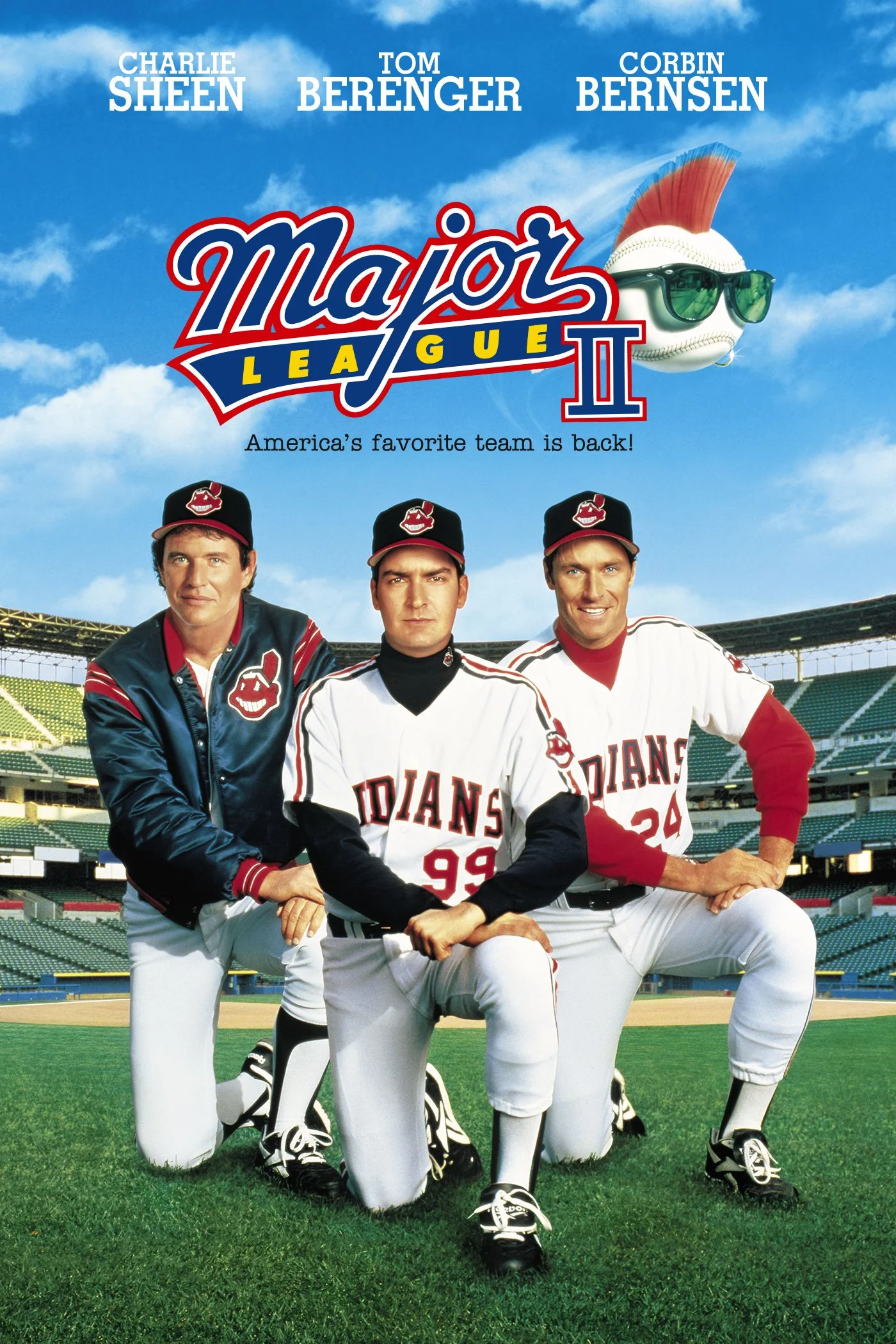
11/14:
Everybody can agree that Major League is the best baseball picture ever made.
That makes it a tough act for the sequel to follow, but it turns out Major League II isn't bad. There are
some parts I don't like, and it can never recreate the classic moments that the original had in abundance.
Whenever a sequel is made, the number one noticeable change is that many of the original cast members don't come back.
But for Major League II, most actually did which is a nice thing. However, it's Omar Epps this time instead
of Wesley Snipes. That's why the sequel can be such a downer at times.
Another is Charlie Sheen who doesn't get to be Wild Thing for the majority of the time until the last five minutes.
I rather see him this way throughout, and I hate the relationship between Rick Vaughn and Nikki. She's like, "We had a nice one
night stand, but you left your jacket at my home." And he's like, "Hey, thanks. Wanna do it again?" And in front of the kids.
He's so shameless. Beyond than that, there's nothing between these two.
Of all characters, Randy Quaid's is obnoxious and needless and can be safely dispensed without any loss in continuity.
David Keith is a surprise because I didn't recognize him as Jack Parkman since I never figured him for a ballplayer. By
far, Bob Uecker gets my vote as the funniest character because his lines are so good and original. He may have written them, too.
The first hour is hilarious and has good moments. By the time the Cleveland Indians team makes to the playoffs, there's a lull for
the most part until the final inning of Game 7 with the team predictably winning the series. However, the
World Series is skipped; hence, I have no idea of the team's fate. In case if you're wondering what happened after the
winner-take-all game from the previous film, they lost to the Chicago White Sox in the American League Championship Series.
By the way, if you notice the wall that's pasted with ads during spring training, it appears the stadium is located somewhere
in the Delaware Valley, probably the southeast section of Pennsylvania. During the funny interview with Jay Leno, Charlie
Sheen was describing the plot of his upcoming movie The Chase.
All in all, Major League II is a worthy sequel that manages to recapture approximately three-quarters
of the original.
Major League:
Back to the Minors (1998)
Rate:
6
Viewed:
12/14

12/14:
I thought Major League: Back to the Minors would suck before seeing it, but I have to admit it's not bad.
By the way, what's with the ball? If not for it, the rating would've been higher although there should be more jokes.
What's particularly remarkable is how clean and wholesome the film is. That is, there are no gross-out jokes, sex innuendoes,
or ribald language. It's a relief, really.
The returning characters from either of the two parts make this one easy to watch, and I like how Scott Bakula
is being a good sport about it. I can't believe the filmmakers had Taka halo-transplanted on screen when he was
throwing the ball from the outfield.
All in all, Major League: Back to the Minors is an okay baseball movie.
Major Payne (1995)
Rate:
3
Viewed:
2/15
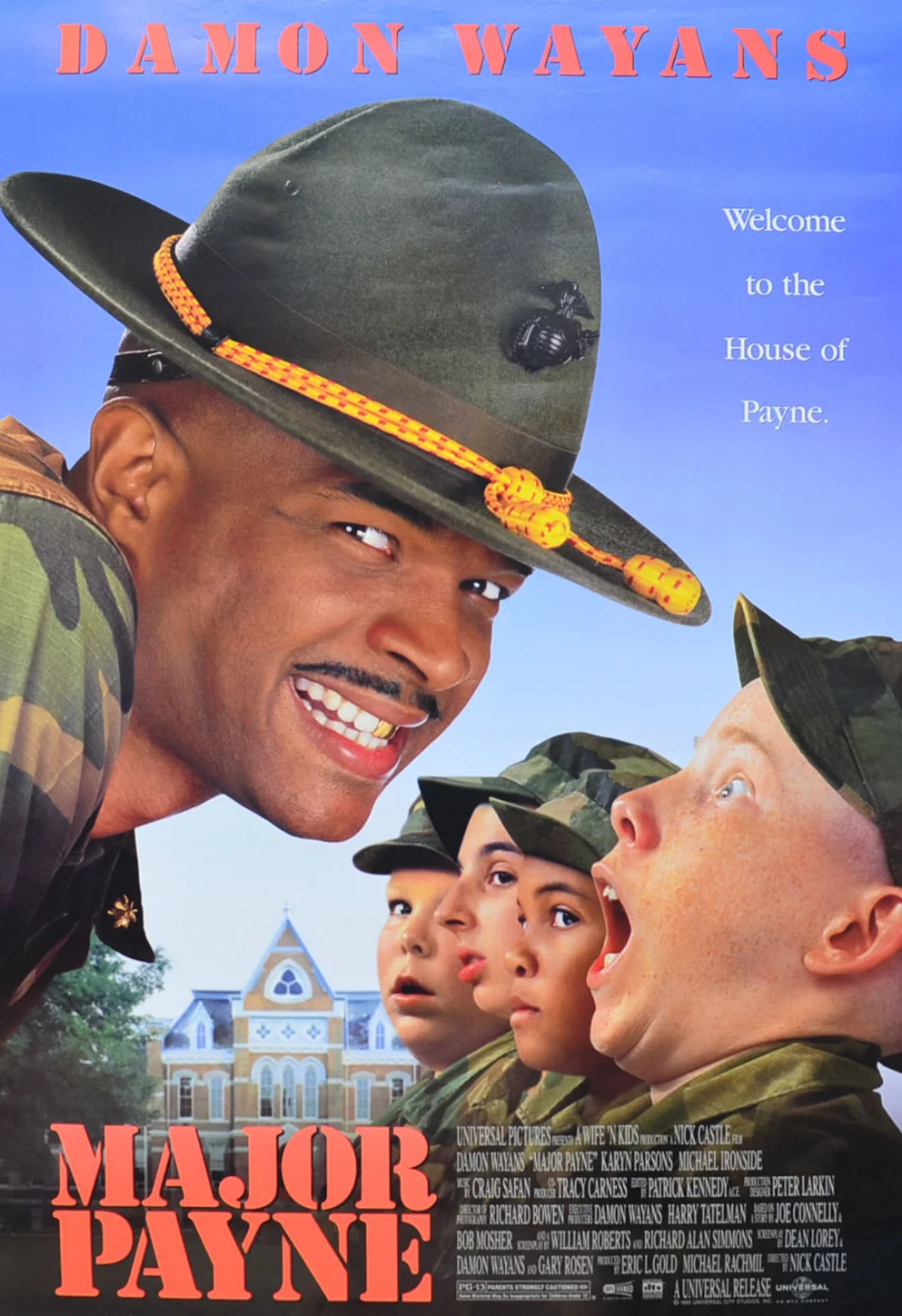
2/15:
Major Payne is In Living Color meets
An Officer and a Gentleman but with kids.
There's a heavy emphasis on the crude stuff which sours the show, rendering it as "not funny." Apropos, I get the
joke about his last name, but it isn't amusing. Of the faculty at the military school, there's only one teacher
who happens to be a pretty-looking black female. And what exactly, I pray thee, does she see in Major Payne?
He, with his stupid gold teeth, is mentally disturbed and in serious need of being locked away from society due
to his sanguinary war tales which aren't cool to listen to. That's why his dream with a white picket fence by
the railroad tracks didn't sound like him because he would've preferred to use a handgun to blow away Charlie's
brains in front of his family.
Most of the child actors are tolerable, but it's Steve Martini, as Cadet Alex Stone, who looks too old for the
part while chewing up a lot of screen time. Michael Ironside has to deign to making a cameo appearance for
such a dreck film, so he can have Alex feeling the back of his hand. Clearly, there's a lot of child abuse going
on in and out of JROTC. Madison Preparatory School's military march for the final competition is not military
enough as it's out of sync. Hence, it shouldn't have won the trophy unless the other school's march was worse.
All in all, Major Payne is redundant, failing to get the point across.
Making a Living (1914)
Rate:
7
Viewed:
8/06

8/06:
Making a Living is my first Charlie Chaplin picture.
There's not much of humor. It's a fast-moving picture that relies heavily on visuals rather than well...anything else.
All in all, I wonder if Charlie Chaplin's films will get better.
Making the Grade (1984)
Rate:
5
Viewed:
5/18

5/18:
While watching Making the Grade, I started to realize Judd Nelson, who was very good-looking, could act,
yet for some reason, his career didn't work out in the long run, being forever stuck with his association
with the talentless Brat Pack.
The movie starts out well but can be episodic in terms of 80's comedy. Then, it falters, indicating the lack of
a plot. Finally, the overlong show ends badly, forgetting to remind itself of what initially worked. It does
have a good premise to begin with, but let's face facts: everybody looks too damned old to be in high school.
Why not just make the setting be an overpriced private college and call it for the day?
What's notable is it marks the first appearance of Andrew Dice Clay in a motion picture. He looks tame,
and his persona won't be fully blown up until four years later. The ending mentioned a possible sequel called
Tourista, but it never materialized. Why would it anyway? And who cared about Palmer and Eddie?
All in all, Judd Nelson is excellent in Making the Grade, but the filmmakers should've stuck to what
conventionally worked for an 80's comedy picture.
Malcolm X (1992)
Rate:
3
Viewed:
7/05
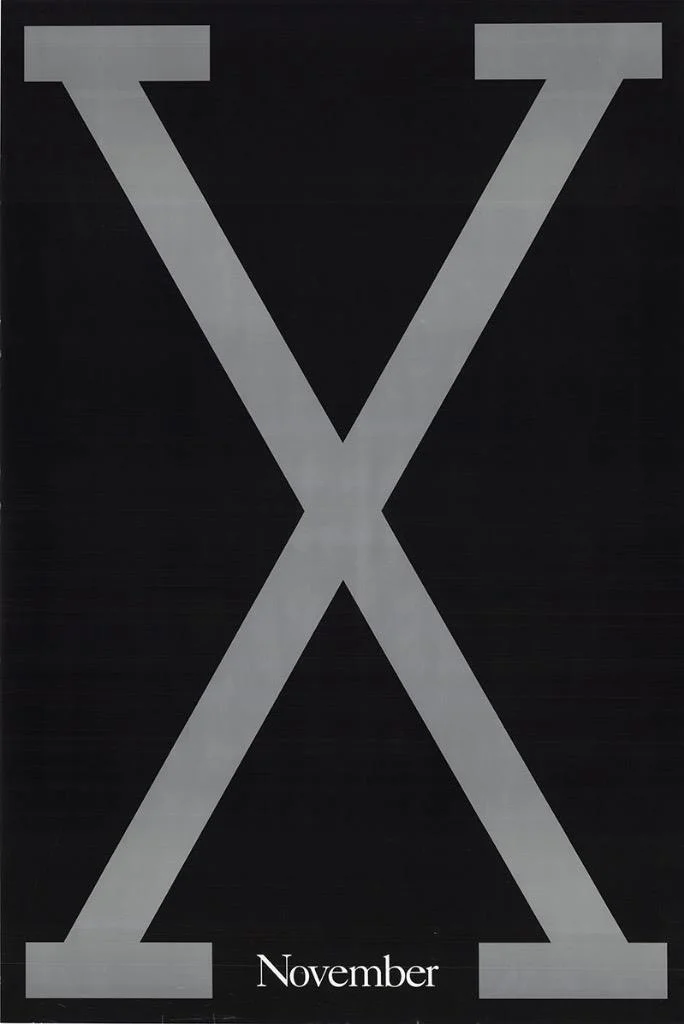
7/05:
Malcolm X shouldn't have been made in the first place.
Sure, Spike Lee must felt like he was born on this planet for one and only one purpose: to make a picture about Malcolm X.
But the fact of the matter is: he was the wrong person to undertake the project.
While watching the film, I couldn't help but perceive Spike Lee didn't understand the man himself. I read
Alex Haley's book twice and came away knowing who exactly Malcolm X was: a brainwashed, smooth-talking, racist, and
misogynistic con man who kept flip-flopping on many issues.
I am sorry, but I just don't see Denzel Washington as Malcolm X. As much as I like him, he isn't polished enough
to tackle the role because he doesn't have the necessary range or depth to make it work. The right person, if it's
possible to go back by twenty to thirty years, should've been Sidney Poitier. Hell, go with Al Freeman, Jr.; he had it down pat
in Roots: The Next Generations.
The camera work can be awful at times. A good example is when Malcolm X was giving a speech, it hovered over the people
with inappropriate interspersed shots with no close-ups of the leader. Spike Lee might capture this and that, which are
actually the highlights of Alex Haley's book, but he fails to flesh out Malcolm X for deeper understanding.
Hence, Malcolm X is converted into a flashy biopic because he was simply a cool "mother." By the way, why was Spike Lee
soaking up so much of unnecessary attention during the first hour? It doesn't make sense because that wasn't in the
book at all.
All in all, to get a clear idea of the man himself is to read The Autobiography of Malcolm X by Alex Haley, but
forget about the movie.
Malice (1993)
Rate:
9
Viewed:
2/20

2/20:
I have to hand it to everybody for turning Malice into a solid, unpredictable thriller with one of the most Mamet-esque
twists ever.
The genius lies in the serial rapist angle which serves both as a red herring and not so much of a red herring.
It did throw me off completely, but there's a valid point why it happened this way. For a long while, I thought the all-around
impressive surgeon with God complex had to be somewhat involved, but the shocking moment is when the husband found out the
truth about his wife. Luckily for everybody involved, her reaction to the blind boy at the end is pure comedy gold.
The acting clinches the prize for making the film work, courtesy of the plot that's penned by the great
Aaron Sorkin along with Scott Frank. So, kudos to all three leading thespians: Bill Pullman, Alec Baldwin, and Nicole Kidman. The
latter is not a good actress in general, but I have to say it's the best performance of her career. Alec Baldwin is
perfect and quite handsome; he certainly reached his physical peak in 1993.
Two more supporting performances that are excellent as well come from Bebe Neuwirth of Cheers fame and Anne Bancroft.
George C. Scott and Peter Gallagher have minor roles. So does Gwyneth Paltrow who looks like she just came from
Flesh and Bone and finally gets her comeuppance in Malice. Because of his inescapable association with the
Saw franchise, Tobin Bell makes things a bit predictable, but it's not a big deal.
All in all, Malice is a smart, catchy, and engrossing whodunnit picture with strong performances and a well-written
screenplay.
The Maltese Falcon (1931)
Rate:
5
Viewed:
10/17

10/17:
I finally got to see the original version of The Maltese Falcon
after experiencing the John Huston classic over five times.
There's no doubt that the latter is way better and a bona fide masterpiece in its own right.
Simply put, it's impossible to beat Humphrey Bogart as Sam Spade. That's why, according to IMDb, "when originally sold to
television in the 1950s, the title was changed to Dangerous Female in order to avoid confusion with its illustrious
remake The Maltese Falcon."
While watching the original version, I couldn't help but be disappointed by Ricardo Cortez's take of the famed
detective. When he acts in this sort of manner by being too nice, The Maltese Falcon ceases to be the noir
picture that it's supposed to be. On the other hand, the rest of everything isn't bad. I can see some ideas having been lifted for the following
remake. However, the replacements were better with a more polished delivery of the dialogue.
All in all, it's nice to see the 1931 version of The Maltese Falcon, but I'm going to stick with Humphrey Bogart for
eternity.
The Maltese Falcon (1941)
Rate:
10
Viewed:
6/03, 7/05, 11/07

7/05:
This is the film that started it all.
The Maltese Falcon is the grandfather of the film noir genre. Humphrey Bogart will always be iconic as
Sam Spade, the anti-hero private dick whom everybody imagines when they read the pulp detective stories.
Sydney Greenstreet, Mary Astor, and Peter Lorre are excellent and unforgettable as well.
All in all, The Maltese Falcon is "the stuff that dreams are made of."
11/07:
The Maltese Falcon is the most quintessential film noir picture.
More importantly, it's John Huston's first picture that would set off his fabulous filmmaking career. How little
he knew that he would be the father of the film noir genre that spanned most of the 40's and 50's. The
cinematography is top-notch, the script is marvelously done, and the mood can't be any more noirish.
All in all, The Maltese Falcon is the gold standard that all film noir pictures are judged against.
A Man Apart (2003)
Rate:
1
Viewed:
5/08
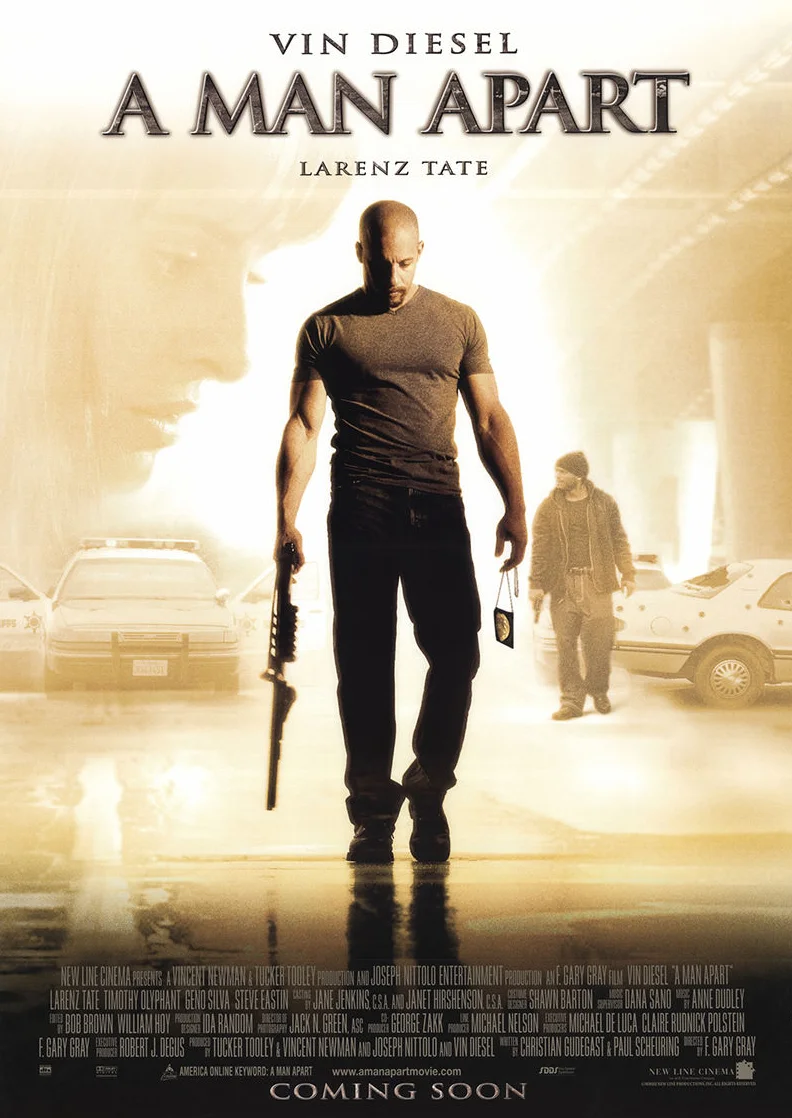
5/08:
Here's a cardinal rule for Hollywood: when you decide to produce a movie, don't ever cast Larenz Tate.
It's the death wish for A Man Apart. The poor, shoddy direction by F. Gary Gray also ruins the film. Why is it that
people are named Gary Gary, Gray Gary, Gary Gray, and Gray Gray plus some initial somewhere in the name?
F. Gary Gray isn't a competent director and needs to get people who know how to handle the camera properly. I couldn't
see what's happening in many scenes because I wasn't clued in to some of the subplots. Additionally, I was unsure of the
identity of various characters and whether they were a cop or a villain.
I'm surprised that Larenz Tate's and Vin Diesel's characters, Demetrius Hicks and Sean Vetter, are former gangbangers converted
to DEA agents. At the same time, they have gangbangers for friends. That's preposterous. Sean Vetter is impossible to root for
because that sort of lawlessness he brings to the table is recklessly brash and dangerous and goes against common sense. He
doesn't care about other people's lives, either.
I thought I was safe for a while until the final ten minutes when Vin Diesel's male boobs began to appear through his white
T-shirt. Give him a wig, and he'll win the Best-Looking Transvestite award.
All in all, the title A Man Apart is erroneous as it should be called A Film Came Apart.
A Man Called Horse (1970)
Rate:
4
Viewed:
2/20

2/20:
Despite the dialogue that's roughly 80% Sioux, A Man Called Horse is the whitest portrayal of the American Indian
culture I've ever seen, hence increasing my appreciation for Dances With Wolves.
In fact, most of the important characters are Indianfaced. Buffalo Cow Hand? That's Judith Anderson, a white actress from
Australia. Running Deer? She's Corinna Tsopei, the Miss Universe winner of 1964 from Greece. Yellow Hand? He's played by
Manu Tupou whose origins lie in Fiji. As Longfoot, Michael Baseleon was born to Greek parents.
Therefore, how can A Man Called Horse claim to be an authentic picture about American Indians when it's not
so? What a surprise that the Rosebud Sioux Tribe of Rosebud, South Dakota, was okay with being in the background and
acting like retards. There must have been a big payoff for them. Well, either way, I hope selling their souls was worth it.
Back then, the Shoshone tribe was too far away to attack the Lakota tribe. In fact, they lived literally hundreds of
miles from each other. The latter's true enemy was the Crow tribe. Stories of white people who were kidnapped by the Indians are
true, but here's the thing: after experiencing their culture, pretty much all of the kidnapped decided to stay on. Slavery
didn't exist in the Lakota tribe.
As for Richard Harris, who's the sole reason why I picked up the film, he's mostly okay. Of course, his character is a
white man who thinks he can become a better native than the natives! By far, the most dramatic scene is when he made a vow to
the sun by having his chest brutally bear-clawed and hung in the air for a while by a couple of ropes. When I think about
it, the act seems so pointless. The recovery must have taken months.
All in all, the premise of A Man Called Horse did interest me at first, but it turns out to be a major
disappointment.
A Man for All Seasons (1966)
Rate:
3
Viewed:
1/11
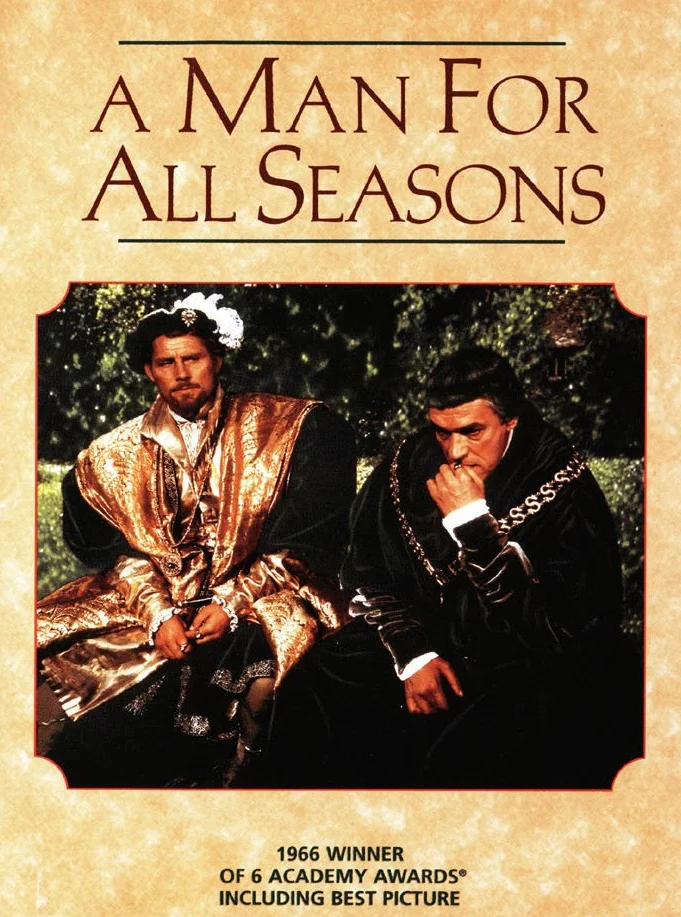
1/11:
Yawning incessantly during A Man for All Seasons, all I could think of was "who cares?"
Indeed so! Basically, the plot is this: a Lord Chancellor refused to give the King his consent for divorce and was
summarily executed afterwards. And that's it.
This stuff happened over 500 years ago. Oh, gosh. It's supposed to be a serious picture about the conflict between nobility
and clergy of 16th century England. You're putting me to sleep.
Paul Scofield gives an overrated performance. Actually, I wanted to see the film for Robert Shaw, and as usual, he's
a scene-stealer. Still, I can't believe I wasted two hours to watch all of that.
All in all, awarding Best Picture to A Man for All Seasons...give me a break.
The Man from Elysian Fields (2001)
Rate:
8
Viewed:
10/23
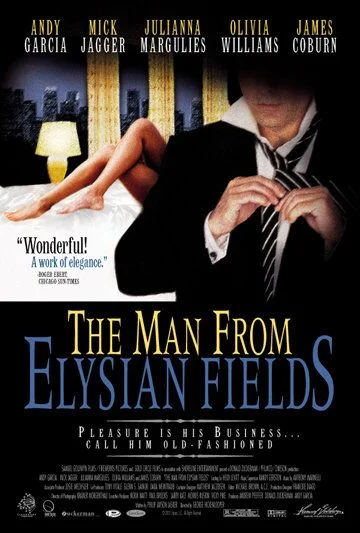
10/23:
The Man from Elysian Fields has a good story and solid acting throughout.
A whore should know what he is: a whore. He's thus treated in this manner and should always assume his clients
are messed up from a morality standpoint. So, I can't sympathize with Byron Tiller who cheated on his wife as
well. His mistake is accepting the work in the first place. Of course, what kind of idiot doesn't secure an
official contract in writing?
Andy Garcia is good as usual and can sometimes be amusing when he can't believe what he's hearing or seeing.
Unable to overcome what happened in Performance, I'm surprised to see
Mick Jagger giving a decent performance for once in his overrated acting career. The rest of the cast is decent.
All in all, if you're looking for something that's interesting and low-key on the dark side,
The Man from Elysian Fields will do.
The Man in the Iron Mask (1998)
Rate:
2
Viewed:
12/17
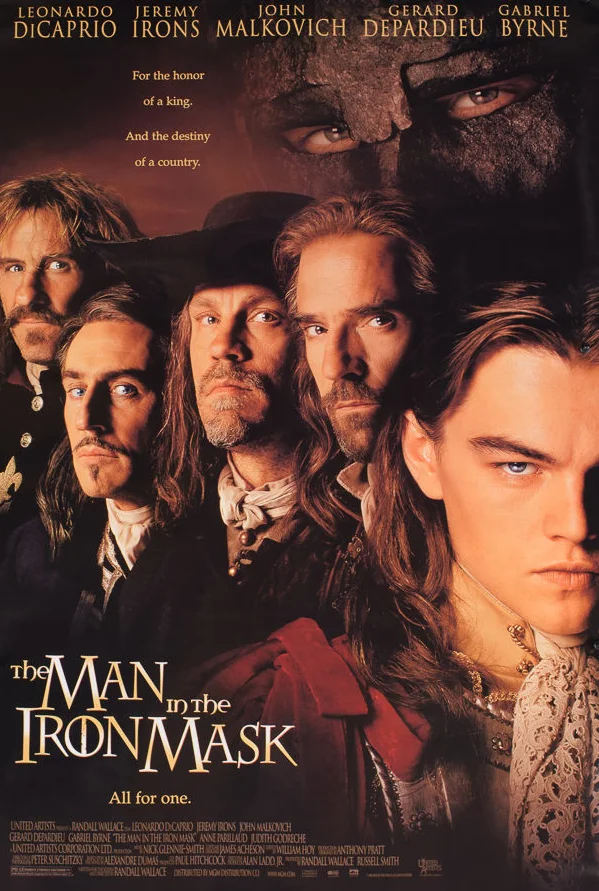
12/17:
I put off The Man in the Iron Mask for many years because of one simple reason: Leonardo DiCaprio.
Yep, my worst fears were immediately recognized. As punishment, I was forced to suffer by watching his
bad acting. Not only that, I had to see twice of him. My goodness, enough is enough!
I read all of the five books by Alexandre Dumas, and I'm sorry to say this, but I just don't see any of it in
the film with the plot not being the same as outlined in The Man in the Iron Mask. The casting of Jeremy
Irons, John Malkovich, Gérard Depardieu, and Gabriel Byrne as Aramis, Athos, Porthos, and D'Artagnan,
respectively, is strange.
The most tired movie quote of all time is: "All for one, one for all." In some 3,500 pages of the entire saga,
it was uttered only twice. I don't get why every The Three Muskeeters picture has to use this line
repeatedly.
At the end, five men are shown running, from ten yards away, toward a gang of musketeers who proceed to fire at
them, and they all miraculously survive. Ladies and gentlemen...only in France. Ditto for D'Artagnan throwing
a sword in the air to stop the king's assassin dead in his tracks.
All in all, the only reason why The Man in the Iron Mask made a great deal of money at the box office is
that Leonardo DiCaprio was fresh off the success of Titanic.
Man in the Middle (1964)
Rate:
9
Viewed:
7/24

7/24:
Before there was Breaker Morant and before there was
A Few Good Men, there was Man in the Middle.
The biggest draw may be the somewhat corpulent Robert Mitchum, but the military courtroom story is riveting with the odds
stacked against his character after I'm past the initial shocking murder scene. Although seemingly shot on location in
India, there had been times that I didn't think the main star was actually there. Another mistake is making France Nuyen's
character a love interest for him because she's patently too young which turns out to be an unhealthy 22-year age
difference.
As for the acting performances, everybody is competent. Robert Mitchum gives his usual intelligent portrayal of a military
man he's always been underrated for. Keenan Wynn does his best imitation of "I'm really that nutso" guilty suspect. But
it's Trevor Howard who steals the picture with his quiet straightforward display of strong British acting. That's when
the theme started to work by winning me over with its presentation of insanity defense.
By the way, it was curious to see the word "Pennebaker" during the opening credits. I say this because that's Marlon
Brando's film company which was named in the honor of his mother's maiden name. Unfortunately, it produced a small
number of movies and was thereafter shut down.
All in all, Man in the Middle is an unknown gem in the genre of courtroom pictures.
Man of the House (2005)
Rate:
8
Viewed:
8/06

8/06:
Man of the House is a funny movie that succeeds in bridging the generation gap.
I like the ending as it feels justified after seeing everything that had happened. Another thing I appreciate is it's
neither sexually offensive nor ribald in language. Rather, everybody is focused on making the show funny as much as possible.
Prior to seeing the film, I questioned Tommy Lee Jones' involvement with something that's potentially rubbish. Afterwards,
his decision makes sense because he believed in the material and thought it was all in good fun. The only wish I have is
the elimination of Cedric the Entertainer. He makes a big fool out of himself.
All in all, I'm impressed with the conservative approach that the filmmakers took in Man of the House which is a
rarity given the rapid degradation of quality coming out of Hollywood nowadays.
Man on the Moon (1999)
Rate:
10
Viewed:
1/26
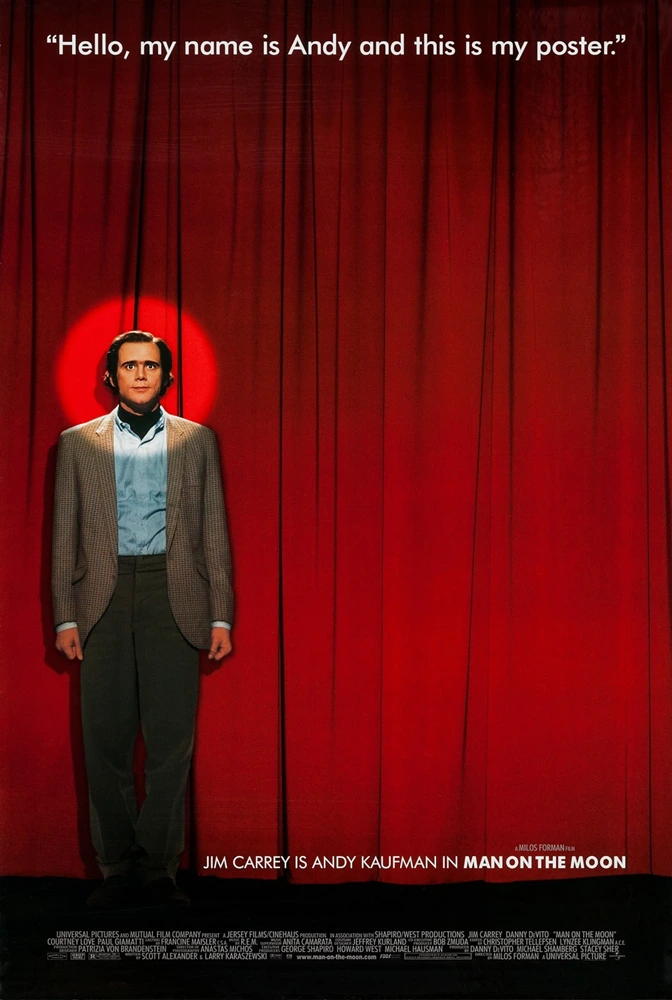
1/26:
How did the Academy Awards overlook Jim Carrey for Best Actor?
He gave the greatest performance ever in Man on the Moon and thus should've won it. Strangely,
all of his movies, starting with Ace Ventura: Pet Detective,
were megahits, grossing hundreds of millions of dollars, but this one was actually a box-office failure.
At first, I didn't think Jim Carrey could be Andy Kaufman because it's almost impossible to capture the real
person if video evidence exists, but he floored me not long, especially after doing an
impersonation of Tony Clifton. It's safe to say that he out-Andy'ed Andy Kaufman and was even funnier. Sure, a
lot of liberties have been taken compared to how the events really happened.
A cool aspect of the film is seeing lots and lots of all-stars who did have a relationship with
Andy Kaufman in one way or another. By far the biggest surprise is the reunion of the cast from
Taxi, but where's Tony Danza?!? He said that he had to do a Broadway show and couldn't get out of it.
Bullshit...he probably didn't like working with Andy Kaufman. Carol Kane later confessed she was the only
one from the TV sitcom to attend his funeral.
How about the weirdness of Danny DeVito playing Andy Kaufman's agent? I'm truthfully okay with this because it
was either a cameo appearance or a much bigger role. Therefore, he made the movie better. Most of the time,
I'm impressed with the show's high level of spontaneity, which is constantly often throughout, and it
reminds me of Miloš Forman's directorial brilliance in
One Flew Over the Cuckoo's Nest and
Amadeus.
There are several things shown in the film that may seem bizarre, but that's what happened. Because Andy
Kaufman had a reputation of putting on a show, no matter how bad or threatening it seemed, and would fool
everybody at the end. Therefore, when it came to announcing his lung cancer diagnosis (by the way, I thought
he was a lifelong smoker), everybody naturally assumed it was another elaborate joke of his.
It's also true that Andy Kaufman went to the Philippines to have psychic surgery which presented "the illusion
of performing surgery with their bare hands and use sleight of hand, fake blood, and animal parts to convince
the patient that diseased lesions have been removed and that the incision has spontaneously healed." After
he died, everybody was expecting him to reappear somewhere and to admit the whole death drama was totally
faked. That's how weird Andy Kaufman was in real life may have been autistic. By the way, remember
the fight during an episode of Friday? That was Michael Richards, not Norm MacDonald.
All in all, forget Ace Ventura: Pet Detective,
The Mask, Dumb and Dumber,
or Liar Liar...Man on the Moon is el numero uno of Jim
Carrey's career.
The Man Who Fell to Earth (1976)
Rate:
1
Viewed:
4/14
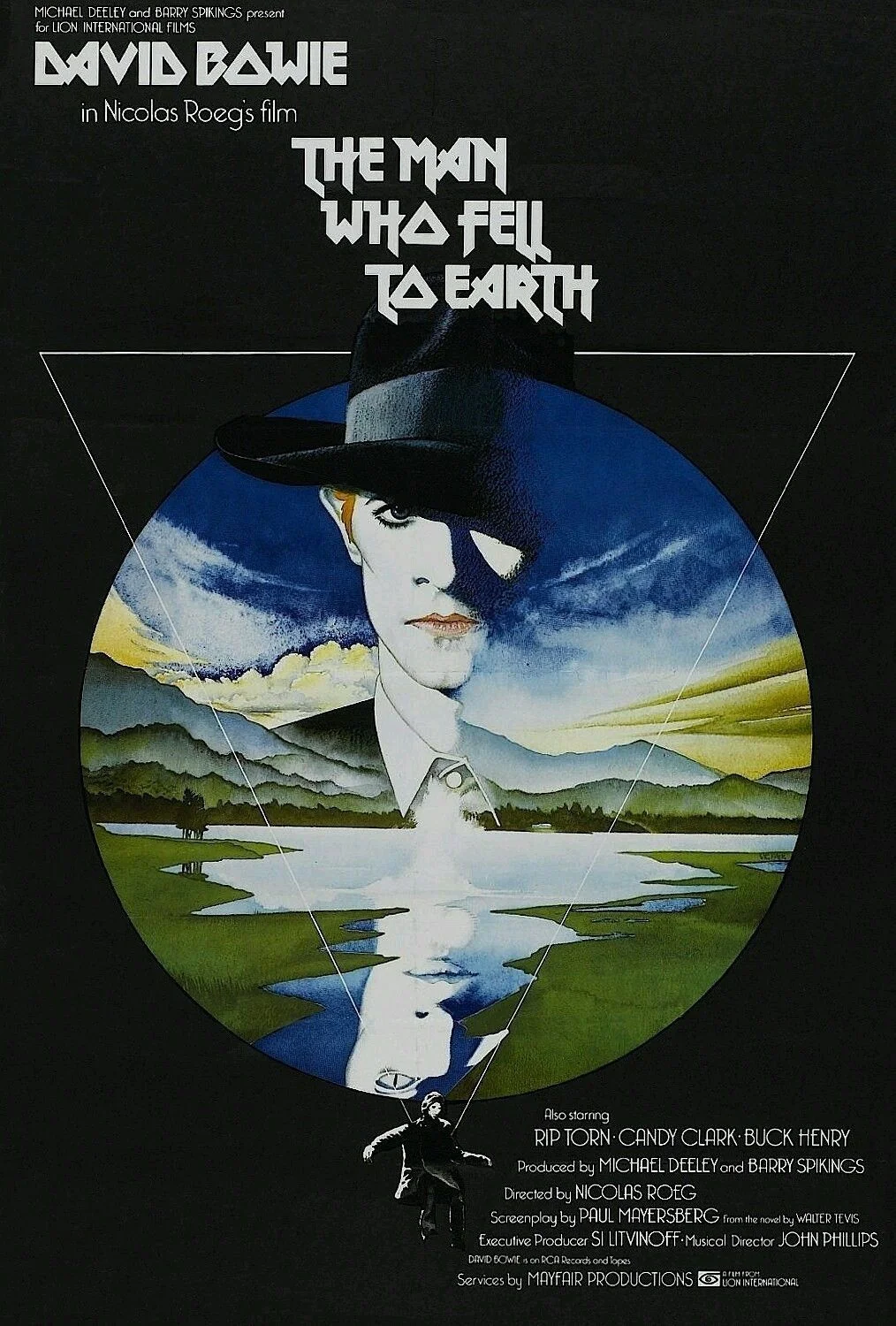
4/14:
The Man Who Fell to Earth is the Zabriskie Point of the
sci-fi genre.
David Bowie was high on cocaine throughout the filming. It runs for 140 minutes which is too long. There's no
plot but simply this: an alien misses his family while away on Earth. Yet the critics praised the film for its
deep allegorical meanings such as the evils of capitalism, the decadence that's sparked by American television,
and the dangers of alcoholism.
Wait...wait...what? David Bowie squeezing his tits is profound? He putting the gun's barrel in a glass of wine
and sucking it afterwards is the stuff of brilliance? The tipping point is the bizarre
Don't Look Now sex scene that sums up the film's zenith of absurdity. I
started to laugh at that moment for not believing how awful it had gotten to be.
All in all, forget logic, forget common sense, and forget intelligence...The Man Who Fell to Earth is
pure shit.
The Man Who Knew Too Much (1934)
Rate:
4
Viewed:
6/19

6/19:
Oh, somebody's daughter has been kidnapped?
Like I care. The Man Who Knew Too Much is a sloppy, clumsy, and boring whodunnit murder mystery picture
that would be largely improved on by The 39 Steps. Peter Lorre looks silly
with the skunk hair. To make matters worse, everybody appears to be identical. If Alfred Hitchcock added another
blonde female with pencil-thin eyebrows, I would've been lost like I was while watching
42nd Street.
The beginning bothered me the most, and for a long while, I wasn't able to shake off the poor editing. A stock
footage of a skier was shown, and he crashed in front of the girl who's certainly acting on a soundstage. The
rest was a mishmash of a failed film school project: just awful on all levels.
Alfred Hitchcock lost me during the shootout which is the most boring scene of them all. I could've gone to
the kitchen to make something to eat and come back ten minutes later, having missed nothing. The chair-throwing
scene? Come on, give me a break.
By the way, the director made a cameo appearance in many of his films, but it's quite hard, rather impossible,
to spot him in this one. In fact, I never saw him at all. He can be seen on the right side of the building at
the 34th minute mark as the London bus with the "Isle of Man" advertisement passes through.
All in all, if The 39 Steps is Alfred Hitchcock's most refined work,
The Man Who Knew Too Much is his clumsiest.
The Man Who Knew Too Much (1956)
Rate:
7
Viewed:
7/06

7/06:
The title The Man Who Knew Too Much is misleading because the protagonist didn't know that much
after all but just enough to follow up a lead.
Although technically great, the film is hampered by the pace as it drags too much due to the extensive focus on
meaningless details. In many ways, the plot is similar to
The Manchurian Candidate. Yes, it's a somewhat good
thriller, breaking away free from the same tired formula that Alfred Hitchcock always used.
James Stewart does enough to carry the show, but it's Doris Day who's not suitable for a Hitchcockian picture.
Although it's redundant of me saying so, Grace Kelly or Kim Novak would've done better.
All in all, The Man Who Knew Too Much is decent but not great.
The Man Who Shot
Liberty Valance (1962)
Rate:
10
Viewed:
2/06
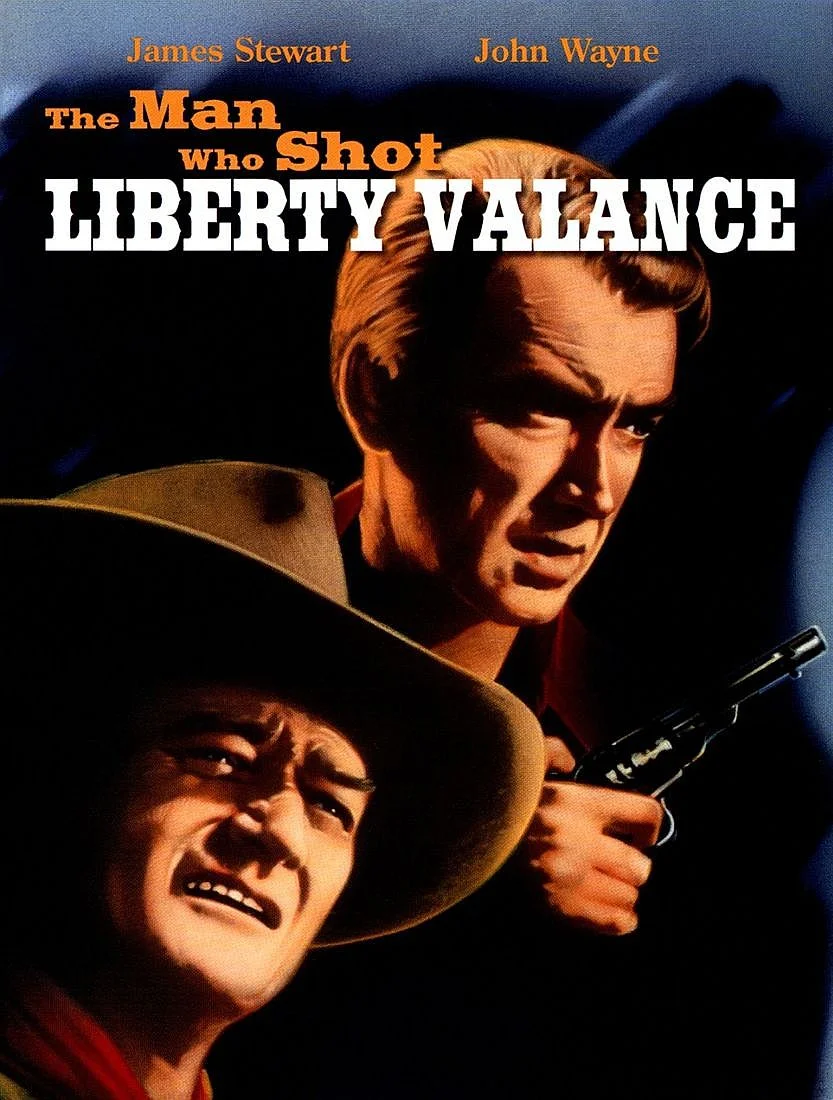
2/06:
"When the legend becomes fact, print the legend."
The Man Who Shot Liberty Valance is one of the best Western pictures made. The plot, the performances, the
setting, the atmosphere, and the screenplay are all phenomenal.
John Wayne is brilliant, and John Ford's direction is mesmerizing. What a superb introduction. How the story unfolds is
this: the hero shoots the villain dead and the other guy gets the girl.
All in all, The Man Who Shot Liberty Valance is a Western masterpiece.
The Man Who Would Be King (1975)
Rate:
10
Viewed:
6/14, 3/19
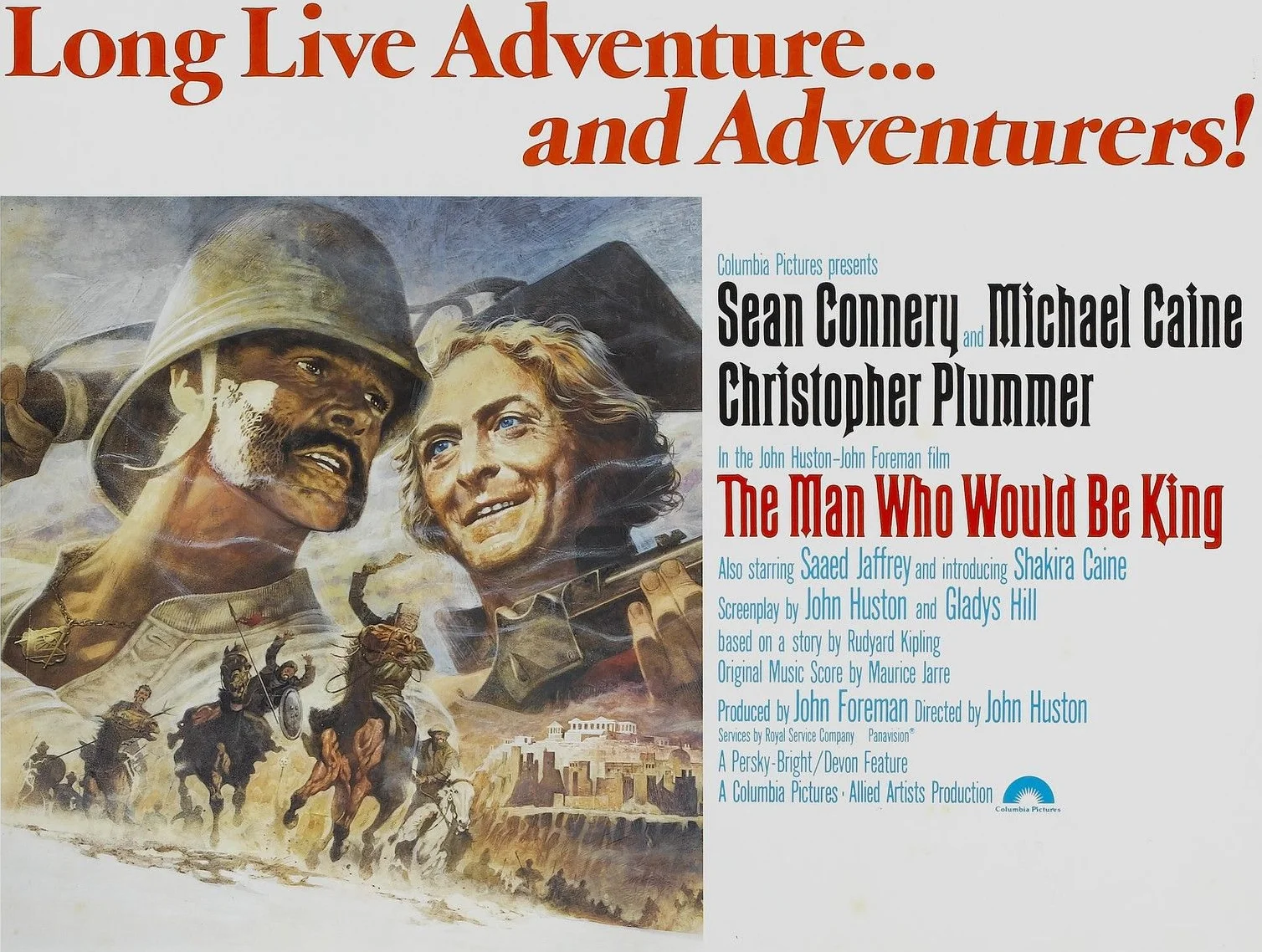
6/14:
The Man Who Would Be King is first-rate entertainment at the hands of John Huston.
Don't ever expect anything less from him because he always has a great yarn to tell. Michael Caine and Sean
Connery deliver some of the best acting ever. The film is elevated by their performances and even
more so by Rudyard Kipling's short story. Although there are many terrific scenes, the ending puts the final
stamp on the film's greatness.
My favorite Michael Caine scene is when he told Sean Connery's character to excuse him while he fell down on
the floor and laughed like an eight-year-old boy. Right there, he broke the conventional rules of acting to
steal the moment. To Sean Connery's credit, he slowly comes out of his shell to take over the show in the long
run as his character's destiny becomes revealed. He has never been this good in all of his acting career.
By the way, if you notice Roxanne who plays the king's chosen bride, that's Michael Caine's wife Shakira.
According to Wikipedia of how they met: "After seeing her in a television advertisement for Maxwell
House coffee, British actor Michael Caine became obsessed with finding the woman he considered to be 'the most
beautiful...he had ever seen.'"
All in all, add The Man Who Would Be King to the long list of John Huston's great pictures that'll
stand the test of time forever.
3/19:
Talk about a unique action-adventure picture: The Man Who Would Be King.
It's a breathtaking story about two men setting out for a trip to a mythical country somewhere in Afghanistan.
Nobody told them to do it, but they decided to because why the hell not. It's a true John Huston classic.
According to Wikipedia:
"The Man Who Would Be King had been a pet project of John Huston's for many years after he had read
the book as a child. Huston had planned to make the film since the 1950s, originally with Clark Gable and
Humphrey Bogart in the roles of Daniel and Peachy. He was unable to get the project off the ground before Bogart
died in 1957; Gable followed in 1960.
Burt Lancaster and Kirk Douglas were then approached to play the leads, followed by Richard Burton and Peter
O'Toole. In the 1970s, Huston approached Robert Redford and Paul Newman for the roles. Newman advised Huston
that British actors should play the roles, and it was he who recommended Connery and Caine. Caine was very keen
to appear especially after he was told that his part had originally been written for Humphrey Bogart, his
favorite actor as a young man."
What a wonderful pair. Michael Caine and Sean Connery are so good. I normally don't like
Christopher Plummer, but he's perfect as Rudyard Kipling, having replaced Richard Burton at the last minute.
All in all, it's hard not to be impressed with The Man Who Would Be King.
The Man Who Wouldn't Die (1942)
Rate:
3
Viewed:
2/09

2/09:
The Michael Shayne trip is finally over for me.
The Man Who Wouldn't Die is almost the worst film of the franchise, but I give the nod to
Blue, White and Perfect.
Honestly, I did enjoy it the first ten minutes until Lloyd Nolan appeared with the stupid Shamrock song.
He makes everybody around him worse; when he's gone, the acting is considerably better.
The story is fair that's nicely wrapped up. I like the exterior shots, especially when it's windy and eerie in the middle
of the night. By the way, it's weird when the light is focused on the magician's eyes, but I'll take it.
All in all, the movie should be aptly called Lloyd Nolan Who Wouldn't Go Away.
The Man with Bogart's Face (1980)
Rate:
6
Viewed:
1/21

1/21:
At first, I thought it was going to be Humphrey Bogart's superimposed face over an actor's face
throughout The Man with Bogart's Face, but boy was I wrong.
Instead, it's Robert Sacchi who looks the real deal. The resemblance is absolutely uncanny. Not only that, but the
behavior and mannerisms are also nearly exact. Sometimes, I thought I was watching Humphrey Bogart himself.
Impersonation or not, it's an amazing job by Robert Sacchi who deserves an Academy Award nomination. He stated,
"I look the way I do and I always have, and there's not much I can do about it. I never had plastic surgery or
wore makeup to look like Bogie." The legend is that Lauren Bacall did a "double take" at the first sight of him.
The big downer of The Man with Bogart's Face is the story. Yes, it's funny and things get going, but it's
worse during the second half. The storyline is increasingly confusing that's too much like
The Maltese Falcon. Instead of the black bird, it's the Eyes of
Alexander. The characters are almost carbon copies straight out of the 1941 film noir classic.
George Raft appears in the final film of his career, having passed away in 1980. It's weird to see him
standing next to the Bogart look-alike given that Humphrey Bogart ultimately owed his career to George Raft who
turned down many roles which ended up going to him such as Dead End,
The Desperate Hours,
It All Came True, High Sierra,
The Petrified Forest, and the greatest of them all:
The Maltese Falcon. As a result, his career went downhill while
Humphrey Bogart's soared.
All in all, The Man with Bogart's Face isn't a bad movie, and Robert Sacchi as Humphrey Bogart has to
be seen to believe.
The Man with the Golden Arm (1955)
Rate:
8
Viewed:
9/10
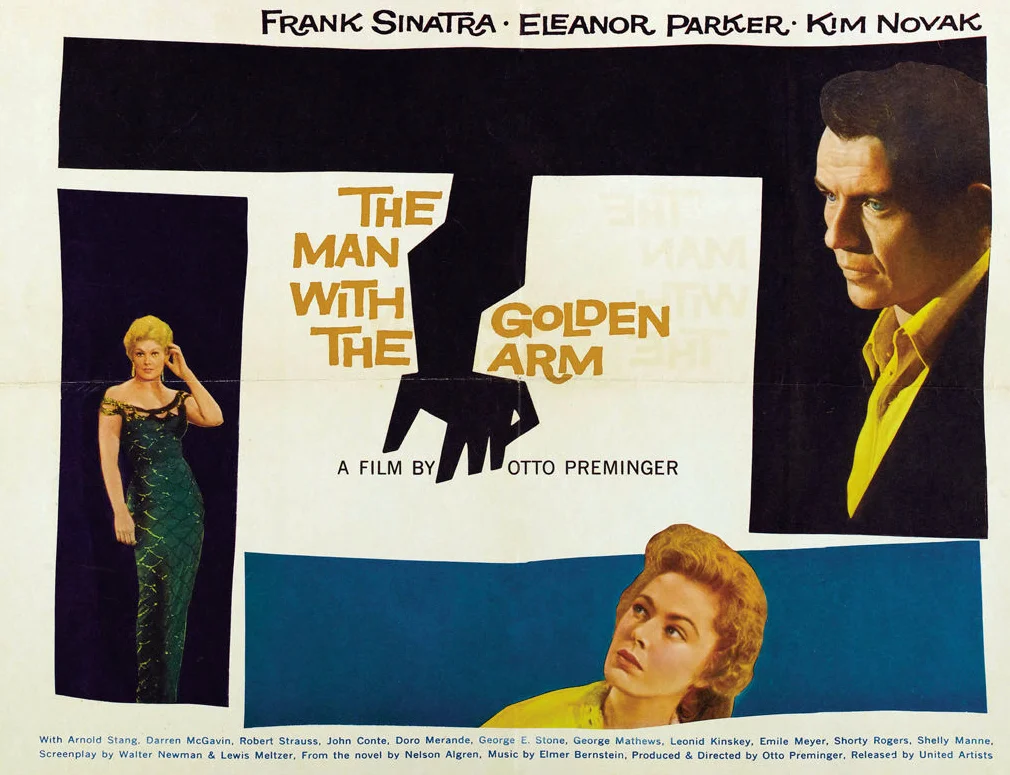
9/10:
Frank Sinatra makes a dramatic comeback in The Man with the Golden Arm.
The first picture to tackle the subject of heroin addiction, it's the
Drugstore Cowboy of the 50's. Frank Sinatra
makes a major stride in being taken seriously as an actor, and it shows.
Robert Osborne, the host of TCM, said it was the best performance of his career, but I disagree. That happened in
From Here to Eternity although a case can be made for
The Manchurian Candidate. Kim Novak is
beautiful as ever and shows what she's capable of until Vertigo appeared three years later.
The cast is full of terrific supporting actors except for the annoying guy with the baseball cap. The idea of Zosch, who's
played by Eleanor Parker, as a hypochondriac invalid brings another perspective to the story, and I like it a lot.
All in all, The Man with the Golden Arm is a must-see picture for all fans of Frank Sinatra.
The Man with the Golden Gun (1974)
Rate:
2
Viewed:
1/11
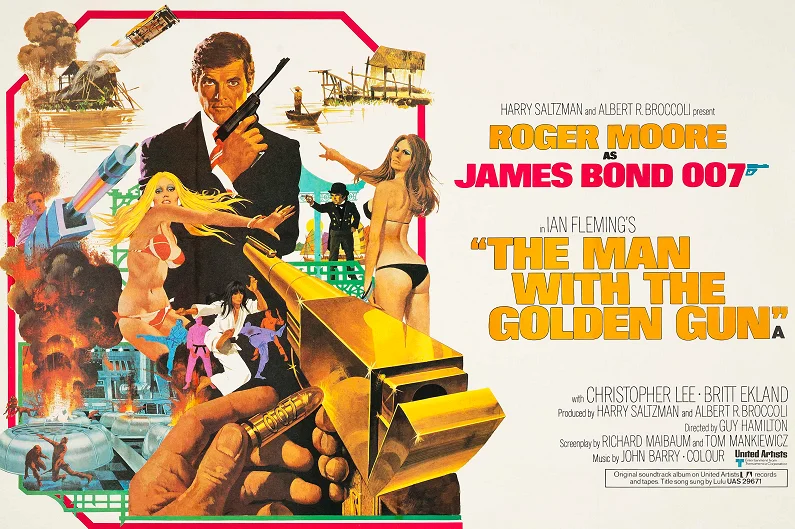
1/11:
The Man with the Golden Gun is another clunker from the joke of a franchise.
When Scaramanga aimed his golden gun at James Bond during lunch, why didn't he shoot him? How fucking hard is it?
Just pull the trigger. It's that simple.
The plot goes nowhere just like the previous Bond sequels. It's the same tired shitty formula with more chases and women bedded,
only to arrive at the same conclusion: James Bond wins, no matter what. This marks the third straight film to feature a
woman in two-piece bikini. How unoriginal.
As soon as the Louisiana cop shows up, the film is instantly killed. From there on, it has become an unmitigated disaster. On
the other hand, I've always hated Hervé Villechaize who was a creepy and ugly-looking midget. What an awful sight when he took
off his shirt in one scene. Eeeeww. Thankfully, Hervé would shoot himself in the head in 1993.
All in all, The Man with the Golden Penis is the apt title.
Man with the Gun (1955)
Rate:
9
Viewed:
2/16
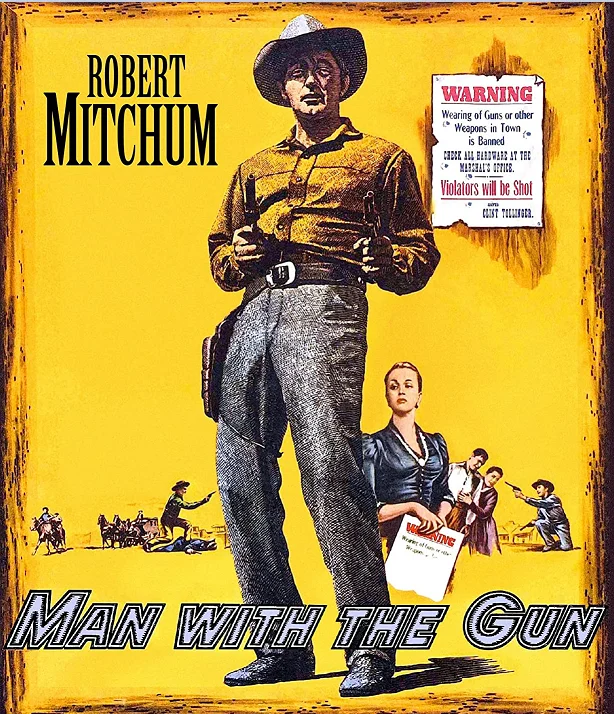
2/16:
Man with the Gun is right up there with other Western greats.
This is the first time I've seen Robert Mitchum give a solid, likeable performance...the kind that doesn't say "ah, fuck it."
Sure, the plot is similar to High Noon, but I like this one more for its edge and simplicity. With the exception
of Robert Mitchum, nobody stands out. Hence, it's a story-driven picture.
I never heard of the phrase "town tamer" before which has a nice ring to it.
This makes sense for Robert Mitchum's character based on what he does for a living.
All in all, Man with the Gun is a surprisingly good Western with one of the better Robert Mitchum performances.
The Man Without a Face (1993)
Rate:
9
Viewed:
4/25
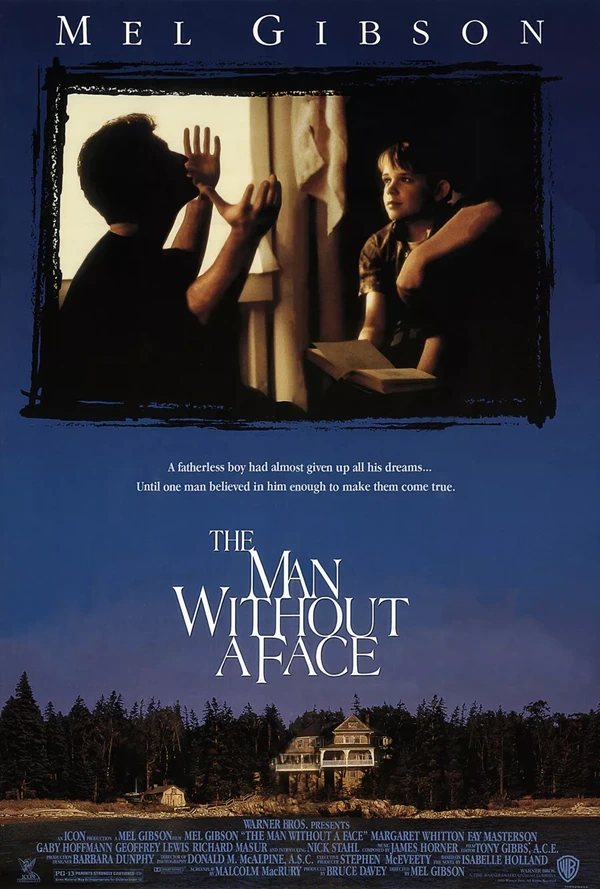
4/25:
The first film directed by Mel Gibson, The Man Without a Face is his most underrated.
Well-acted, good story, and plenty of depth are the hallmarks that make this one a compelling viewing. Mostly
shot on location in Maine, it's a hybrid of Educating Rita,
Shane, and Dolores Claiborne. I
didn't realize the boy was Nick Stahl when I saw the film around that time. Then again, he made his screen
debut and wouldn't be an established actor until years later.
While watching The Man Without a Face, the idea of Justin McLeod sexually abusing Charles Norstadt never
entered my mind. How come? It's Mel Gibson. Why would he do something like that given his extensive history of
playing heroes? Hence, the last thirty minutes is weird and uncommon, but it doesn't sour the film as a whole.
Although it's easy to be swayed by Mel Gibson because of his immense star power, Nick Stahl steals the show.
That's a formidable task, especially when a child star is concerned, tending to be either annoying or corny.
Forget the rest of the cast; the show is all about these two. When they have interactions, their conversations
are interesting, making the time go quickly.
All in all, The Man Without a Face is a can't-miss coming-of-age drama film.
The Manchurian Candidate (1962)
Rate:
10
Viewed:
6/04, 11/04, 12/08, 12/16, 1/21

12/08:
The Manchurian Candidate is a brilliantly made political thriller picture.
Now, remember the book was written in 1959 and the film was released in 1962 which was more than one year before JFK's
assassination. The President knew of its existence and gave the filmmakers his expressed approval to go ahead with it. Hence,
there's no telling if his true assassins, not Lee Harvey Oswald, saw the film or were inspired. Pretty chilling stuff.
Busts of Abraham Lincoln and his likeness are shown throughout because he was assassinated soon after the end of the
Civil War. So, it's a tie-in of what was going to happen if you hadn't realized that. Anyway, the performances are
impeccable. It's Frank Sinatra, Laurence Harvey, Angela Lansbury, Janet Leigh, and Khigh Dhiegh who make the film a classic.
There are many excellent scenes. The three that stand out the most are the dream sequence, the conversation between Frank
Sinatra and Janet Leigh on the train, and the ending with Marco and his boss running through the Madison Square Garden to stop the
assassination plot.
All in all, The Manchurian Candidate is among the greatest pictures ever made.
12/16:
The Manchurian Candidate, a one-time box-office failure, is bar none the greatest political thriller ever made.
Laurence Harvey will always be unforgettable as Raymond Shaw the tragic figure, and it's the best work by Angela
Lansbury who's at her chilling best. Playing his character's mother, she was only three years older than Laurence Harvey.
Frank Sinatra gives a special performance, and this is the one I think the most of him for acting besides
From Here to Eternity. The train scene with him and Janet Leigh is my favorite part. I love it
when Frank karate-chopped the table. He actually broke his pinkie which would remain disfigured for the rest of his life.
John Frankenheimer has always been a great director, and The Manchurian Candidate is the number one of his oeuvre.
If not for the dream sequence, which adds a dimension, the film wouldn't be the masterpiece as it is.
In fact, he was slated to direct Breakfast at Tiffany's, but Audrey Hepburn said, "Who is John? Never heard of him."
That's how he ended up as the director of The Manchurian Candidate, and we all can thank the stupid fool for it.
Frank Sinatra was rumored to have the film pulled from circulation due to JFK's assassination, and it wouldn't be re-released
until 1987. But the fact of the matter is that it happened in 1972, not 1963. It wasn't for this reason but to get more
money in royalties for Frank Sinatra since he owned the rights to the film. Later, the studio purchased it back.
According to IMDb, "the budget [of The Manchurian Candidate] was $2,200,000. Of that amount, $1,000,000 went for star
Frank Sinatra's salary with another $200,000 for Laurence Harvey, leaving only $1,000,000 for everything else." Typical Frank.
All in all, The Manchurian Candidate is the gold standard of political thrillers.
1/21:
My favorite Frank Sinatra picture, The Manchurian Candidate is simply the best political thriller ever made.
From Ferris Webster's complicated editing to John Frankenheimer's masterful direction to the superlative
performances by Frank Sinatra, Laurence Harvey, Angela Lansbury, Janet Leigh, and Khigh Dhiegh, it's difficult to believe
the film was a box-office failure in 1962, having pretty much foretold JFK's assassination almost two years afterwards.
In fact, the only way the movie could be made was if JFK approved it while Frank Sinatra had to ask the man himself. Otherwise,
there would be no The Manchurian Candidate. The President did think the story was quite good and laughed about
it, having been keenly interested in who was going to play the mother. Only if he knew...
When I think of great scenes between a man and a woman, Frank Sinatra and Janet Leigh frequently come to my mind. Theirs
are among the best I've ever seen in movies. I can think of a couple of others that are on the same level: Fred
MacMurray and Barbara Stanwyck in Double Indemnity and
James Caan and Tuesday Weld in Thief. Hence,
Frank Sinatra and Janet Leigh should've been nominated for Oscars.
On the other side of the coin is the relationship between Laurence Harvey's and Angela Lansbury's characters. It's a
tragedy, especially after the revelation was made that her son was selected to carry out the assassination plot.
Speaking of it, how about the overuse of Abraham Lincoln to portend of what's to come?
All in all, The Manchurian Candidate is unique.
The Manchurian Candidate (2004)
Rate:
1
Viewed:
12/08

12/08:
Frank Sinatra is spinning wildly in his grave.
Laurence Harvey wants to assassinate anyone right now, and Angela Lansbury is ready to spew out some of the vilest things
anyone has ever heard. The 2004 remake of The Manchurian Candidate is completely unnecessary. I mean, what's the point?
All in all, everybody should be embarrassed.
Mandingo (1975)
Rate:
10
Viewed:
6/24
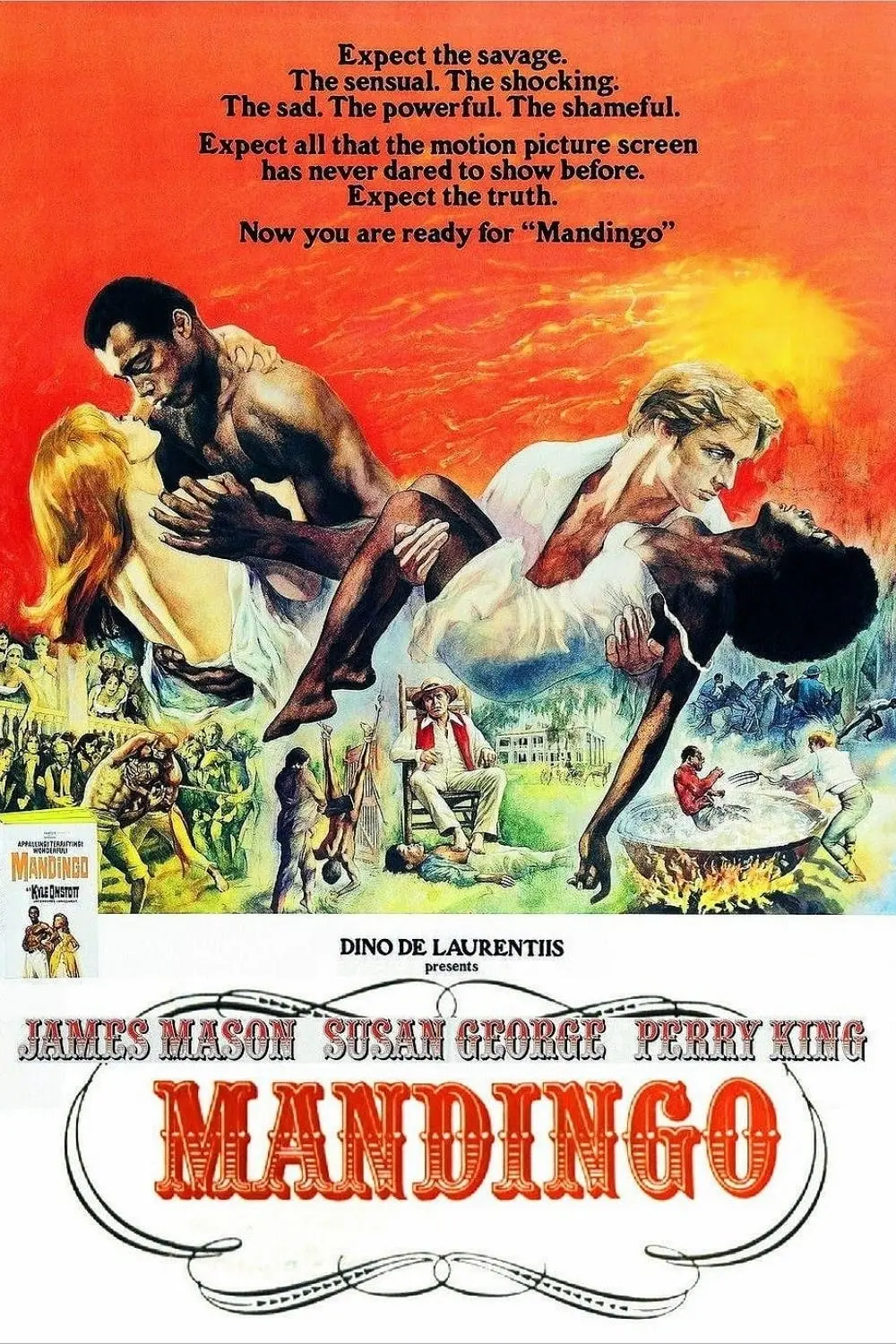
6/24:
Having supplanted A Streetcar Named Desire as the best Southern Gothic film,
Mandingo makes Roots look like a puppy.
If the movie got negative reviews, it's only because they couldn't handle the strong content. This is slavery in its brutal form
with no punches pulled. Some of what's shown are accurate, historically speaking. It isn't about growing cotton but breeding
among black slaves for profit.
On the deck is the public's bloodthirsty quench for no-holds-barred fighting that's fought to death, but it's probably fictional
because of economic considerations. In other words, $4,500 back then was equivalent to $150,000 something today; it would be silly
to waste that, especially for white crackers. I'm only surprised at the end when Hammond decided to kill Mede because of his immense
value; the most he can do is to sell him and move on. As for killing Hammond's wife, it's no big deal because she deserved it.
I'm shocked to see James Mason in this, but it's a welcome change from the boring stuff that he used to do. The inclusion of
Perry King is the more the merrier. Susan George may be annoying, but she gives the performance of her career. Obviously, Ken
Norton is a huge, well-built man, having fought Muhammad Ali several times. I didn't expect Paul Benedict to show up as a
mean guy because he always played funny characters.
On why he took on the project, director Richard Fleischer said, "The whole slavery story has been lied about, covered up, and
romanticized so much I thought it really had to stop...the only way to stop was to be brutal as I could possibly be."
All in all, Mandingo is extremely raw and honest when it comes to slavery in the United States during the 19th century.
Manhunt:
Search for the Night Stalker (1989)
Rate:
2
Viewed:
4/22

4/22:
Manhunt: The Search for the Night Stalker is a boring, banal true crime picture about Richard Ramirez's
crimes and eventual capture.
The worst part is most of what's presented is simply untrue. A lot of stuff is made up, too. The Night
Stalker left messages to taunt the police? Yeah, right. Crime scenes are barely shown. What's with the
news reporter? There's so much soap opera about the detectives' families. Who cares about them? Gil Carrillo
and his wife sure looked great when they were in fact plain-looking Mexicans with the former being fat. I'm
not going to mention the strong discrepancy in looks between Richard Ramirez and Greg Cruz.
Richard Ramirez used a flashlight outside in the dark? Ha! Why was he then called the Night Stalker? The
filmmakers should've used logic and worked their way down. Even the music is silly; it was "Night Prowler" by
AC/DC! Not even his black hat with the band's label was mentioned. Nobody was ever arrested outside the dentist's
office. In fact, the police installed two Asian undercover cops in the waiting room, but they were shortly
removed after the operation was declared to be a waste of money.
The end-of-film explanation says Richard Ramirez was convicted of "11 counts of sexual assault." Okay,
then...it'll be instrumental to point out the nature of them. The rape and sodomy of female victims was part of
his motive in the name of Satan. The other was stealing valuables to support his cocaine habit. An informant
named Jesse is used to break the case, but that's not exactly how it happened as Felipe Solano, the main fencer
of stolen properties, got implicated as well. Another woman helped out by providing more detailed description.
How it went down from the bus terminal to his capture is 95% wrong which consisted of a twenty-minute madcap
chase. Actually, there were four detectives and fifteen SIS men at the Greyhound station, looking for Richard
Ramirez who did walk in and out undetected. He never carried the black bag with him as it was checked into a
locker. Detectives Frank Salerno and Gil Carrillo didn't meet the guy himself until they pulled up at Hollenbeck
Police Station about two hours later.
San Francisco had an idiot mayor by the name of Dianne Feinstein who held a press conference, single-handedly
undermining the case because the police never knew who was doing the crimes. There were two crucial pieces of
information they had that the public including Ramirez wasn't aware of: size 11.5 Avia shoe print (the only one
ever sold in the area) and specific ballistics (the movie did mention the latter). Once Richard
Ramirez found out, he threw his sneakers over the Golden Gate Bridge, ending any chance of being linked with
future crimes.
After the trial was over, Manhunt: The Search for the Night Stalker aired on NBC, but Richard Ramirez
missed it because he committed an infraction while in county jail. Upon finding out about what happened,
Detectives Salerno and Carrillo decided to watch a taped copy with him and wanted to get his feedback. Ramirez
thought that Greg Cruz looked nothing like him and appeared silly by putting black wax on his teeth and that
A Martinez was too small to play Gil.
All in all, if you want the actual story of how it went down, I recommend reading
The Night Stalker: The Life and Crimes of Richard Ramirez by Philip Carlo although it won't be a bad idea
to check out the documentary on Netflix:
Night Stalker: The Hunt for a Serial Killer.
Manhunter (1986)
Rate:
10
Viewed:
6/04, 11/07, 6/11, 5/20
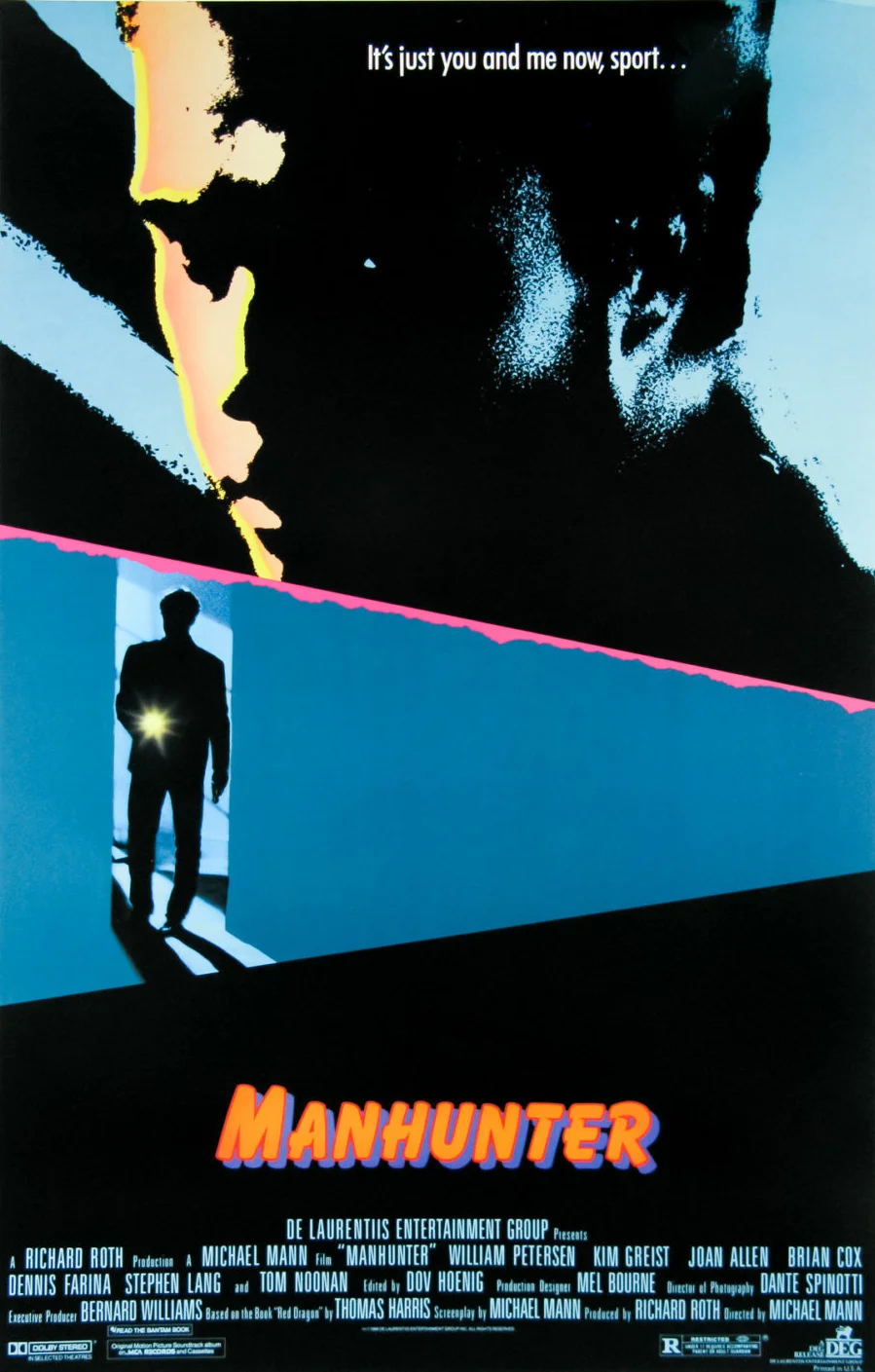
11/07:
"It's just you and me now, sport."
I have long expressed my awe for Michael Mann because he's the best in the business when it comes to style mixed with substance.
The influence of Miami Vice is all over Manhunter.
William Peterson plays a kick-ass character once again and is the driving force in this dark, brooding neo-noir.
The combination of his beard and eyes are drop-dead sexy, and his way of doing things elevates the film as a whole. Dennis
Farina also takes the show to another level by giving it a hard edge.
Villains come and go. Some have been memorable, yet a great many of them will vanish into obscurity. But Tom Noonan as
Francis Dollarhyde is unforgettable. He's even scarier and more chilling than Dr. Hannibal Lecktor who's marvelously played
by Brian Cox. What's interesting is that the movie isn't about Will Graham's day-to-day sleuthing adventure but how he
allows the secondary forces come into play while being emotionally involved. Throughout, there's a contrasting mix of "style"
and "substance."
If you want to understand the word "genius," look no further than the "Moment of the Truth" scene when Will Graham began to
figure out the killer's identity. It's brilliant stuff. In reality, a serial killer can remain elusive for many years.
After logging hundreds of thousand man-hours, it only takes one trivial piece of evidence or sheer luck like a routine motor vehicle
violation for him to be finally caught.
All in all, Manhunter is one of the finest cinematic masterpieces.
6/11:
Michael Mann sure knows how to make films.
He didn't direct many in his life, but almost all are bona fide works of art and Manhunter is one of them. The
Miami Vice influence is all over it. William Peterson's look and style are numero uno when it
comes to "cool." He's perfect as Will Graham. Tom Noonan's Francis Dollarhyde is an all-time eerie villain.
All in all, if you thought The Silence of the Lambs was the greatest thing ever since sliced bread, then you don't
know jack about movies.
5/20:
Superior to The Silence of the Lambs in all aspects, Manhunter is an exquisitely photographed serial killer
picture that's both style over substance and substance over style.
It's William Petersen's finest hour in acting. The most important aspect is how solving crime cases takes a huge toll on
Graham's psyche and relationship with his family. Yet he's obsessed with catching the guy because he's, in effect, saving lives.
The rest of the cast is outstanding, no matter how small their roles are, because they bring emotion to the table:
Brian Cox, Dennis Farina, Tom Noonan, Joan Allen, Stephen Lang, and Kim Greist. When the real estate guy was showing William
Petersen around the house, that's Michael Talbott who partnered with John Diehl in Miami Vice.
I've seen almost all of Michael Mann's films and think that Manhunter is the best he had done. Every scene is meticulously
crafted that's filled with neon pastel colors of Miami Vice. As for the camera angles, it's
Citizen Kane all over
again with objects that are prominently displayed. The other nice part is the insight into cutting-edge forensic science
and criminal profiling, and it's 1986.
All in all, Manhunter is a masterpiece.
Maniac (1980)
Rate:
5
Viewed:
2/20

2/20:
If you've ever heard of the term "video nasty," Maniac is a perfect example, having been banned in
many countries.
Yes, it's an exploitation slasher picture that involves brazen misogynism, straight-up scalping, and brutal
killing of women. I was surprised at some of the scenes that appeared to be far ahead of time. However,
I think it gives a rare insight into the mind of a serial killer; hence, Joe Spinell had done his homework. Many
times, I'm reminded of Henry: Portrait of a Serial Killer.
Besides Frank Zito getting atop the hood of a car and blowing Tom Savani's head away with a shotgun, the best
and the most surreal scene is when Frank took a girl out for dinner and acted completely normal at the restaurant.
That's why Joe Spinell was cast in two The Godfather films, and I always
knew he had talent. So was his eye for it, having discovered Sylvester Stallone and realized the potential that he
had before Rocky made him an overnight star.
For Maniac, Joe Spinell was met with two unknown filmmakers who just wanted to make a throwaway horror
film, yet he believed in the project so much that it eventually grossed $10 million against a budget of $350,000.
Not bad for somebody who was the second highest paid actor in the cast for
The Godfather despite being granted a very, very small role.
I wanted to like the movie a lot, but the pace is slow, causing me to be bored sometimes. The violence can be
pointless, so yeah...I can see why many critics took offense to it. Yet what's shown is close to real. So
is Joe Spinell's seedy performance.
All in all, the pace of Maniac needs to be sped up more for a better rating.
Manos: The Hands of Fate (1966)
Rate:
2
Viewed:
5/25

5/25:
Located in the extreme west of Texas, a piece-of-shit city called El Paso made two contributions to mankind.
The first is a serial killer named Richard Ramirez who's better known as the Night Stalker, and the other is
Manos: The Hands of Fate. Certainly not among those movies that people must see before they die, it's rather
a gigantic waste of time. In other words, there's no reason for it to enter anybody's consciousness.
Manos: The Hands of Fate plays out like a silent picture despite the deceptively short running length of
70 minutes. It's quite boring to watch: two idiots deciding to stop for rest ten miles off some road
in the middle of nowhere, a former confederate soldier acting like a hippie, women wrestling each other on
the ground, and a mustachioed guy revealing large red hands on his front costume whenever he raises his arms.
All in all, don't bother with Manos: The Hands of Fate.
Marathon Man (1976)
Rate:
3
Viewed:
10/06
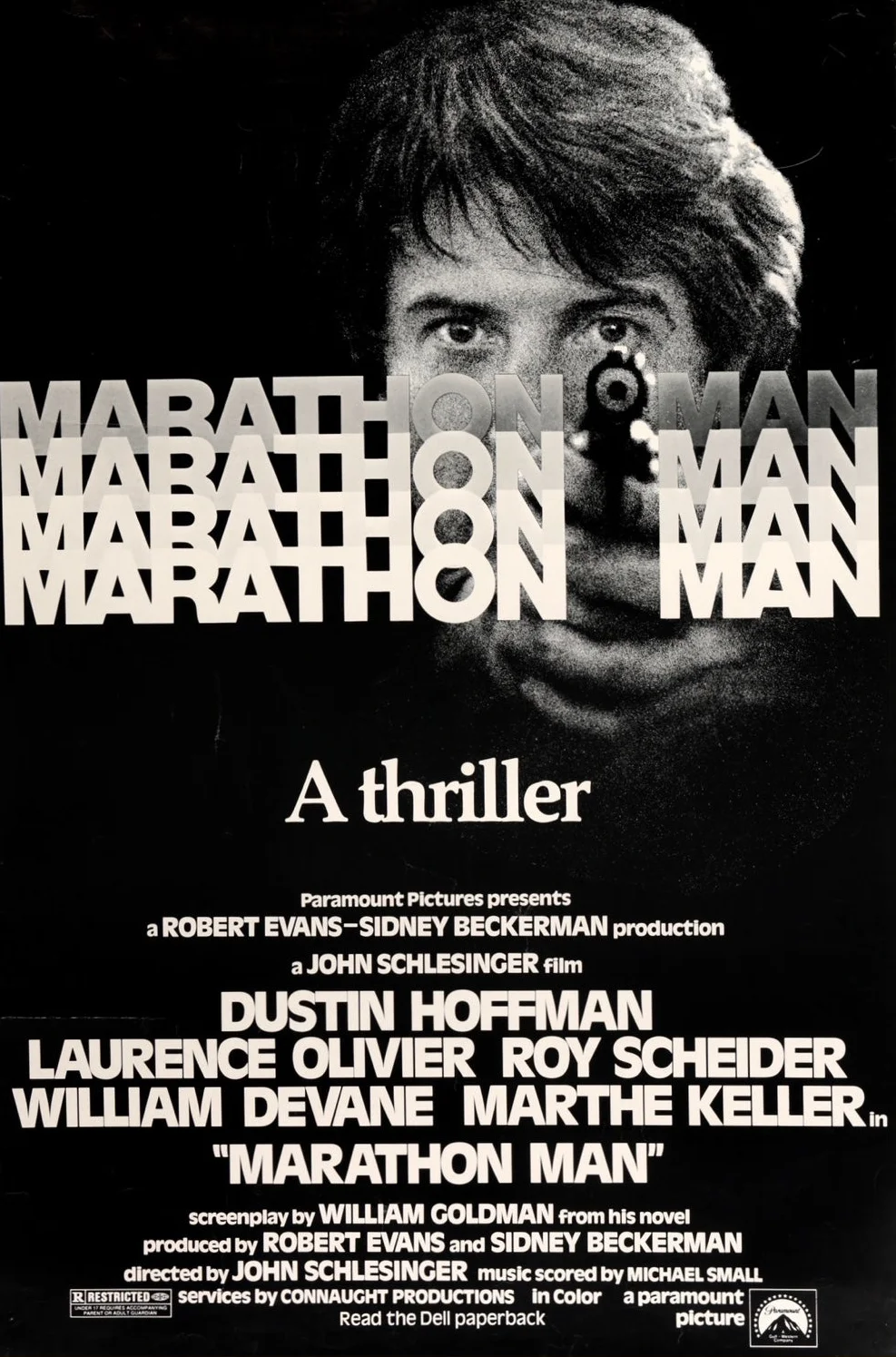
10/06:
There are good films, and there are bad films.
Marathon Man is among the latter. Laurence Olivier's character isn't a scary guy. In fact, it's only Laurence Olivier
playing an ordinary person who happens to be a dentist. His co-star Dustin Hoffman is trying too hard to imitate what he did
in Straw Dogs.
The plot is so plain, confusing, and boring that I've stopped caring after some time. I'm not sure what
the relevance is when Babe is running all the time or why he's entangled with the whole mess from the outset.
All in all, Marathon Man has no legs.
Marfa Girl (2012)
Rate:
8
Viewed:
4/25

4/25:
Marfa, Texas, is where Giant was filmed in, and
Fandango made a big deal out of it.
But I don't think the currently dying town wants to be associated with Marfa Girl. There's not much
going on but sex, sex, sex...lots, lots, and lots of it with everything shown. Men are going to have ideas
and will want to visit there in the hopes of getting laid like that because it's so easy. And women from
there are perpetually painted as strippers, nymphos, and whores.
Regardless, it's a very realistic movie in the vein of Wassup Rockers,
thanks to Larry Clark who's the master of topping himself in every film that's unlike others. I
have to say he lost some control when three Border Patrol agents were together with the female artist. These
scenes don't fit. The worst is the pretentious ending that paints everybody as brave survivors
with only one thought, "Yes! Now the white guy is out of the picture, and we can go back to fucking each other's
brains out." I only wonder how Angie got out of the situation after following the white guy to his bedroom
and being told of his intentions straightaway.
So...what is Marfa Girl really about? The first interpretation is if one acts
cool in an airhead way and maybe tells his life story as dramatic as possible, he'll get sex just like that.
That's why the white guy couldn't get anyone to fuck him because he kept asking for it in a forceful manner.
The second is the varying levels of sex abuse. At the lowest level, the pregnant teacher thinks it's all
right to hit her student on the butt with a paddle. Somewhere in the middle, the female artist, who's
actually an adult, wants to teach him everything about sex without boundaries. The highest level is the
white guy showing pictures of a vagina, describing sex explicitly, and raping people of both genders.
All in all, nobody beats Larry Clark when it comes to teenagers and realism in film.
Marfa Girl 2 (2018)
Rate:
8
Viewed:
4/25

4/25:
Once again, Larry Clark delivers.
At first, I didn't think Marfa Girl warranted a sequel since what more
could there be besides sex? Plus, Larry Clark had never done that before. After seeing Marfa Girl 2,
I have to say the outcomes are very realistic. This kind of stuff is rarely talked about in other movies:
dead-end towns, no jobs, lack of education, bunch of babies all over the place, the shifting around of
parental responsibilities, messed-up priorities, and too much fucking. During an interview, the director said
the following:
"I think that the things that happen to us when we're teenagers form us as adults. The way you're gonna be
when you're an adult is because of what you went through as a teenager. And this film is very much about
that, how people act out later in their life is connected to their past experiences and in fact the characters
in the film at some point share their personal stories, tell what happened to them."
There are two missed opportunities, and I wish Larry Clark had them included. The first is the absence of
the female teacher who spanked Adam in the first part. My guess is she'll be sent to prison for engaging in
a sexual relationship with a student. The second is the arresting officer should've been Oscar. That would
be a beautiful irony, especially after the female artist thought she was superior and asked him intrusive
questions.
The original had lots of sex. Now, they make more sense after the second part came into play, but Larry Clark
includes too much this time. They're rather gratuitous. Instead, he should've focused more on the long-term
damage. It's a correct decision on his part that the pretentious know-it-all female artist must suffer the
most. I thought she would kill her baby because of his eyes resembling the rapist.
All in all, both films of the Marfa Girl duology have to be seen for
full appreciation.
Maria Full of Grace (2004)
Rate:
9
Viewed:
4/07
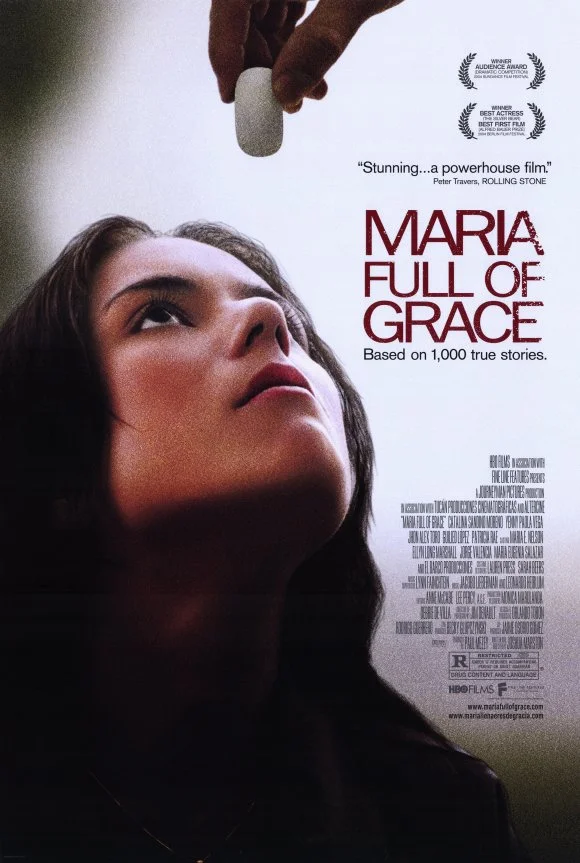
4/07:
I hadn't heard of Maria Full of Grace until now.
When the first mention of Bogota was made, I automatically knew it would be a film about drugs. But where
the plot was going, it turned out to be quite dark.
It paints a somber picture of girls who swallow pellets of cocaine to make some money because
they can't find other means. When I say the word "pellets," I mean they're the size of meatballs. They have to swallow
seventy of them! It sounds like a nightmare.
The walkthrough of a young girl's life is much appreciated which is well-paced and absorbing. There's a contrast of two
different sides: Colombia and New York City that's heightened with fear, anxiety, and suspense. The performances are
outstanding, but it's Catalina Sandino Moreno who carries the film from start to end.
All in all, not to glorify drugs in any way, shape, or form, Maria Full of Grace is an impressive picture about what
it's like to be a drug mule.
Maria's Lovers (1984)
Rate:
3
Viewed:
7/21

7/21:
Here we go again.
John Savage plays a mentally anguished character for the umpteenth time. In Maria's Lovers, he looks fresh
coming from The Deer Hunter, and the whole thing takes place in
Pittsburgh.
Between these two films, John replayed it in The Onion Field and
Inside Moves. What the heck? Is
that how he made his career: doing the same character over and over? At any rate, it's weird.
Well, Maria's Lovers is a long, dull movie about nothing much. In fact, it starts and ends at the same
place with no discernible growth. Not even the oft-reliable Keith Carradine can save this turkey. Robert Mitchum
gets his wish by kissing Nastassja Kinski on the lips before being felled by pneumonia for the duration of the
filming.
It's safe to say that 1984 was the apogee of Nastassja Kinski's career, having appeared in
Paris, Texas; Unfaithfully Yours; and Maria's Lovers. All she
has is a pretty face. Beyond that, there's nothing. Speaking of the long-forgotten Vincent Spano, they both have
a kid, who was born during the same year, in real life.
All in all, there have been countless movies like Maria's Lovers, and many of them are better.
Marked for Death (1990)
Rate:
8
Viewed:
12/04, 4/09, 1/20, 10/25
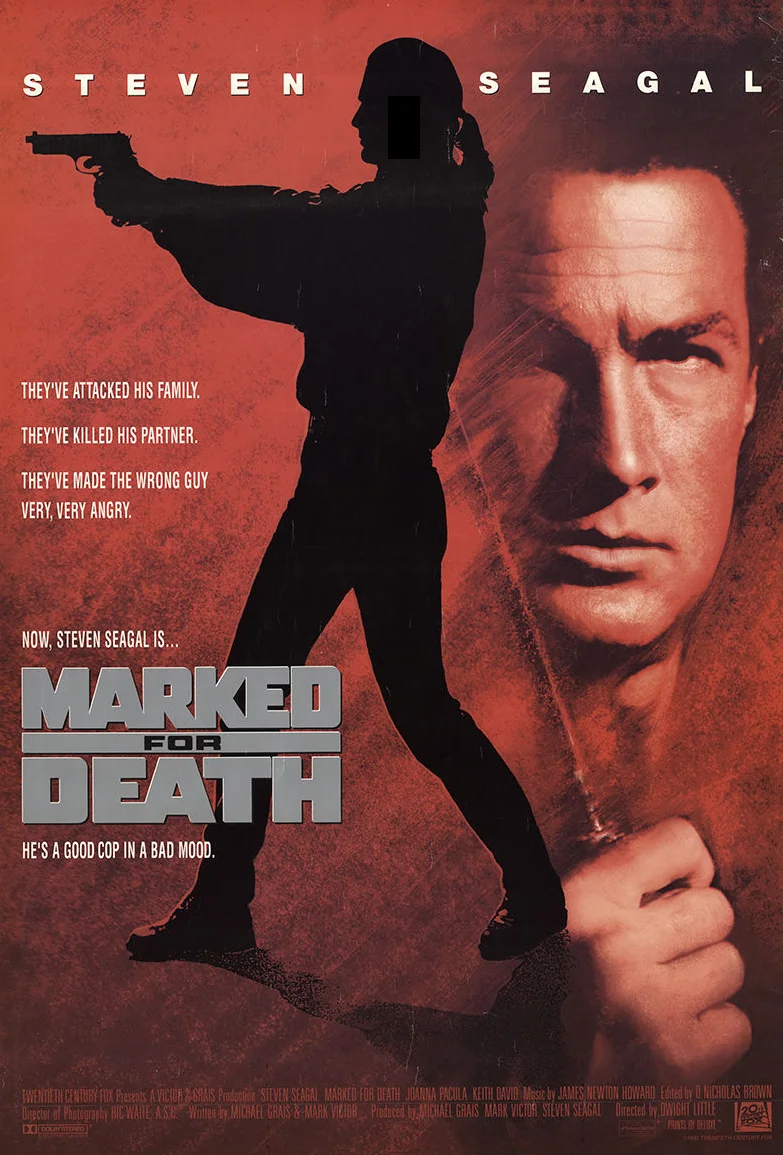
4/09:
Marked for Death is the worst of the first four Steven Seagal films.
This one lacks energy, and the direction is bland, causing me to fall asleep several times. The tone is very
different. Let's face it: no matter what, it's all about Steven Seagal expressing his manhood to everybody.
What happened to Tracey after all? When a house is riddled with tons of bullets, you don't attempt
to go back there and resume living. But that's what John Hatcher's sister did. After John was preparing the guns,
how was he able to get them through the airport en route to Jamaica? Ditto for going back to the States with
Screwface's severed head.
All in all, Marked for Death is off compared to other Seagal classics:
Above the Law, Hard to Kill,
and Out for Justice.
1/20:
I still consider Marked for Death to be the worst of the first four Steven Seagal films.
What makes this one different is it was produced by 20th Century Fox. The feel isn't the same. Notice in the
beginning how John Hatcher (Seagal) uses his hands on people as they're constantly pushed around. Oddly, he
sports an earring on the left side, and his ponytail is much longer.
Screwface is the most formidable adversary Steven Seagal has ever faced. Yet he dispatched him and his twin
brother so easily. It's the buildup that made things tough. Really, John should've died
when Screwface's henchman had him pinned in his nice-looking '73 Ford Mustang between the two heavy machinery.
All they needed to do was toss the Molotov cocktail into the car, shoot him to death, and fucking stick around
to make sure he didn't escape.
Steven Seagal isn't bad, but I notice he recycled the same Aikido stuff from
Above the Law and Hard to Kill.
Yet it's hard to complain when he did the bone-breaking moves for good measure. On the other hand, Keith David
is a throwaway. Equipped with super piercing evil blue eyes, Basil Wallace is memorable as Screwface. Kevin
Dunn shows up for a minute and then disappears along with the FBI, making me question the legality of what John
was doing.
Going back to the beginning when John was home, he listened to his friend's problems: how he lost his best
football player and his 13-year-old nephew to drug overdose. Then, John was telling him crap like how there
were many little holes in the dam while the water kept gushing through and there was nothing anyone could
do about it. As soon as his niece was shot and sent to the hospital, John decided to wipe out the entire
Jamaican posse. Mucho hypocrisy, huh?
All in all, different or not, Marked for Death shouldn't be overlooked.
10/25:
After seeing many Steven Seagal's films, I have to say that Screwface came the closest to killing his character.
All in all, my opinion of Marked for Death is better this time: lots of action despite some superfluous
scenes.
Marlowe (1969)
Rate:
4
Viewed:
5/16

5/16:
I like James Garner as Philip Marlowe in Marlowe, but the movie isn't good.
For starters, the plot makes no sense. Naturally, I have to wait until the end to see what that's all about. When the mystery
is finally cleared up, it still doesn't make any sense. I should've known this by going back to
The Big Sleep.
The best scene is when Bruce Lee, for his first role in an American film, tried to pull off a flying kick but
ended up going over the balcony that's ten stories high. His smashing up Marlowe's office is also funny.
Sadly, the movie fails to capture the gritty environment of Los Angeles given the fact that Stirling Silliphant, who came off
his Oscar win for In the Heat of the Night, wrote the script with the aid of Raymond Chandler's novel
The Little Sister which should've been a simple job.
All in all, Marlowe is a disappointing neo-noir picture.
Marnie (1964)
Rate:
4
Viewed:
2/06
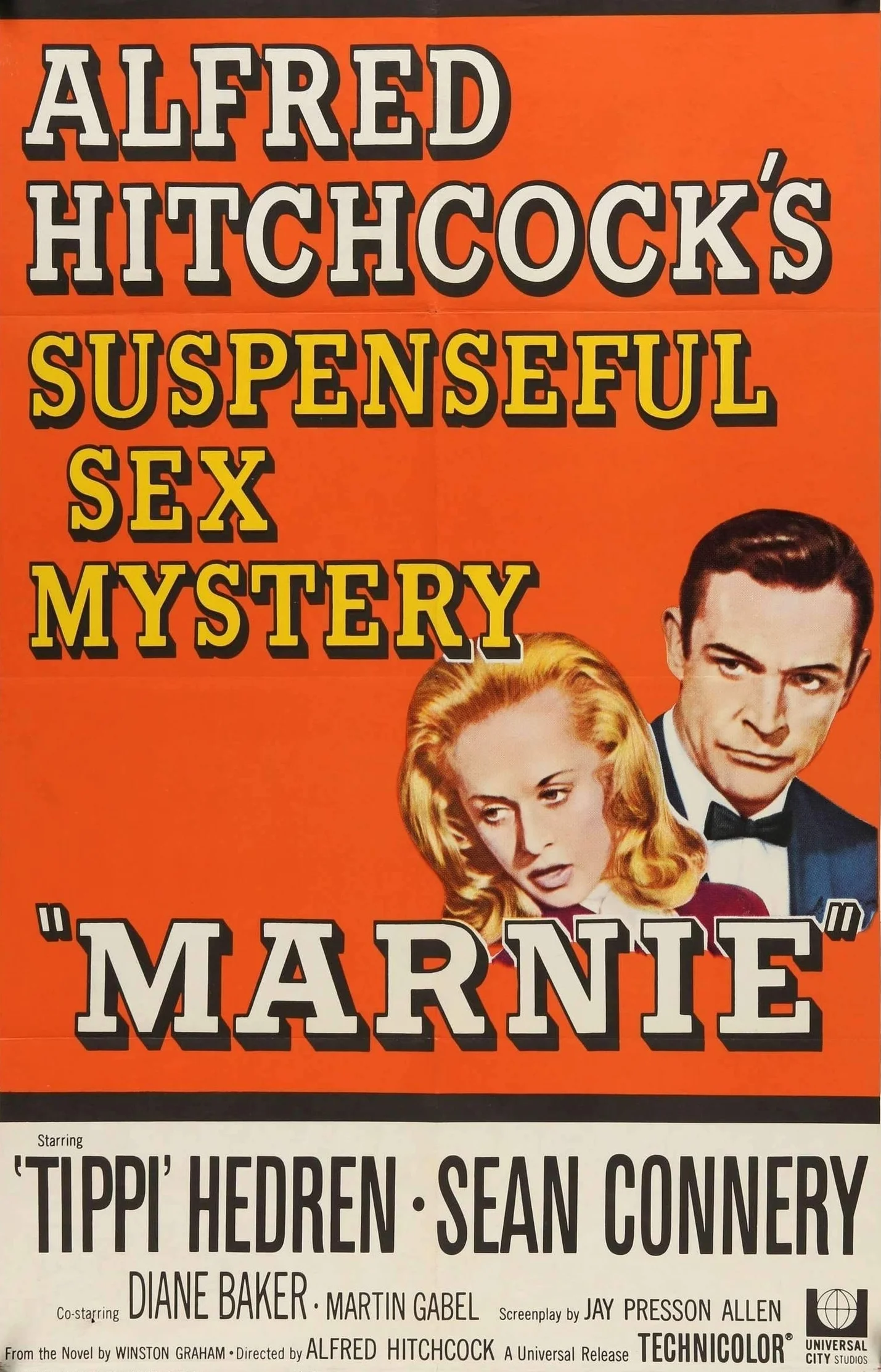
2/06:
Marnie is a nicely directed film that falls short in several aspects.
One is the chemistry between Sean Connery and Tippi Hedron. There's nothing that makes me believe it exists. Actually,
her poor acting is what killed the film.
Two, the story is ridiculous although I can understand the psychological motives behind it. There's a famous example of
a similar incident involving a baby who got scared on purpose when he came into contact with a piece of fur.
Then, he continued to live in fear of it for the rest of his life.
Three is the length of the movie which is too long. At least forty minutes needs to be excised.
The romance between the boss and his secretary should've been forbidden for obvious reasons. At the same time,
I feel that Mark Rutledge's sister-in-law, Lil, was more suited for him.
All in all, Marnie isn't a great Hitchcock movie but is incorporated with some interesting cinema techniques.
Mars Attacks! (1996)
Rate:
4
Viewed:
2/06
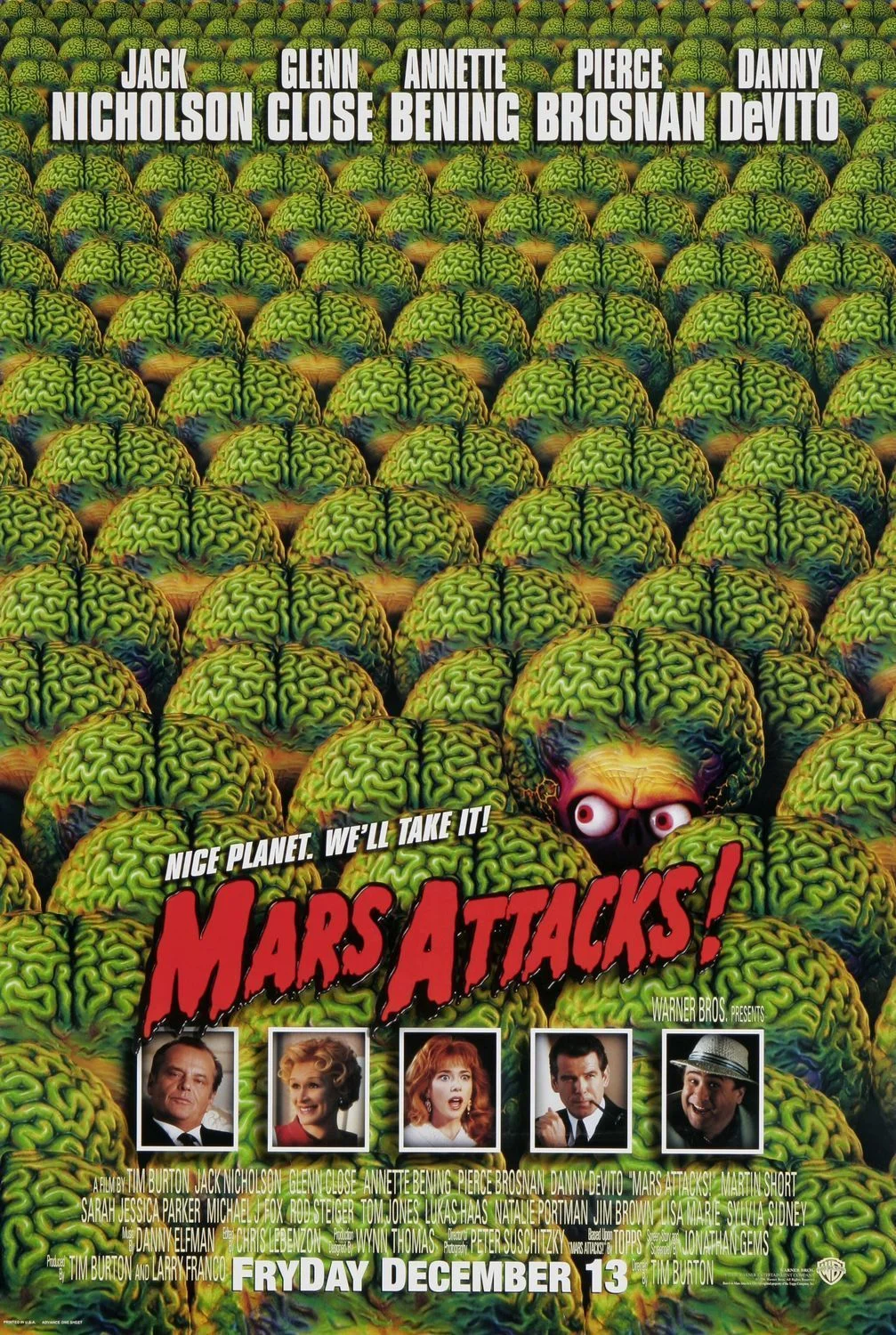
2/06:
Slightly adapted from H.G. Wells' classic novel War of the Worlds, Mars Attacks! is a piss-poor, tasteless
attempt at satire
It's also a rip-off of Independence Day which was released during the same year. Although the movie can be creative
at times, I have no sympathy for any of the characters. Hence, I'm glad that most of them ended up dead. Why does Tim
Burton have to be so dark and negative all the time for his films? This stuff gets old quickly.
All in all, Mars Attacks! is a giant step down after what Tim Burton did with Ed Wood.
Marshall (2017)
Rate:
6
Viewed:
3/21

3/21:
Chadwick Boseman plays Thurgood Marshall?
Um, okay. Most people have no idea who he was or what he looked like, but take a moment to search online for a
picture of him. For a black man, it helps to be light-skinned to be where Thurgood Marshall got to in life,
particularly during the first half of 20th century. One of the well-known names in American legal history, his
most famous case is Brown v. Board of Education of Topeka which successfully paved the way to school
desegregation.
When Marshall came up, I thought it was going to be a biopic about the man himself, but the story turns
out to be something else: a small-potatoes court case in Bridgeport, Connecticut, concerning the alleged rape of
a white woman by a black man. Naturally enough, the gagged Thurgood Marshall wins the case with a stand-in
Jewish white lawyer speaking for him, and everybody cheers.
That's all well and great except it didn't happen this way. Sam Friedman was already a capable trial attorney,
having practiced law for fourteen years and handled most kinds of work. During the actual case, Sam was the
architect of the defense, and Thurgood Marshall sat next to him, taking notes throughout the trial only because
he wasn't a licensed attorney in Connecticut and therefore couldn't argue. The local newspaper covered it
extensively, but there was little mention of Thurgood Marshall. By the way, Sam was never beaten up by a mob
of white people.
For the most part, Marshall is an okay but run-of-the-mill court movie in a
To Kill a Mockingbird way, but I've seen better in Law & Order.
Two of the biggest mistakes are making everything be so squeaky-clean and the casting of Katie Hudson (like I'll
believe her as a rape victim or an adult for that matter). The dialogue is okay, but it would've been
beneath Thurgood Marshall's dignity to utter profane words like "fuck you" to Sam. These people carried
themselves well back then.
All in all, instead of what Marshall presented, I prefer a full-scale epic film of Thurgood Marshall's life.
Marty (1955)
Rate:
7
Viewed:
3/14

3/14:
Marty is a weird viewing experience for me.
More often than not, I laughed so hard throughout the film because I found everything about it to be uproariously hilarious.
Here is an insufferable bore who's a fucking pathetic boob, using the "woe is me" shtick on a loser girl. She falls for him,
and everything is all easy peasy. They both have a cry, and the motormouth just can't stop talking about how his life has
been one big goddamn tragedy. The following axiom is true: "First impressions are everything."
When Marty is back on his turf with his pathetic relatives and fake friends, they throw around so much useless gossip that
his life feels hollow with these lame, hopeless losers. How cyclic their quotidian lives are. What's sad and surprising about
the theme is it's true today. An interesting aspect is how people can develop many unfounded opinions
even though they hardly know either something or somebody.
Anyway, the topic is realistic and germane. Unfortunately, I'm the kind of person who avoids this
like the plague. That's why I laughed so hard during Marty. I understand if the others think of it as a superb
picture. Frankly, let's be real: Marty is for losers because they relate so much to it. That's why the poor
Herb Stempel famously feigned ignorance when he was asked what won Best Picture for 1955. I also hate New York pictures
because I find them melodramatic. This is evident in Marty as people think their problems are so...so...so
special! Almost every scene is overdone to the point of hysterical.
There's an interesting set of similarities between Marty and Tony Manero of Saturday Night Fever. Both have loser
friends, are stuck with bland relatives, see their lives circling the drain, and are surrounded with so much negativity. So,
they use something else to channel their escape: a girl for Marty and dancing for Tony.
As much as I like Ernest Borgnine, he shouldn't have won the Oscar for Best Actor. It's a big step down from what Marlon
Brando did in On the Waterfront. Sorry, I don't agree with the "dog" comment about Betsy Blair who's actually a
nice-looking gal. After all, she was married to Gene Kelly. Ha, take that!
All in all, Marty is too weird, but in all honesty, it's not bad although I can see why it's a forgotten Best Picture
film today.
Mary Reilly (1996)
Rate:
3
Viewed:
12/21
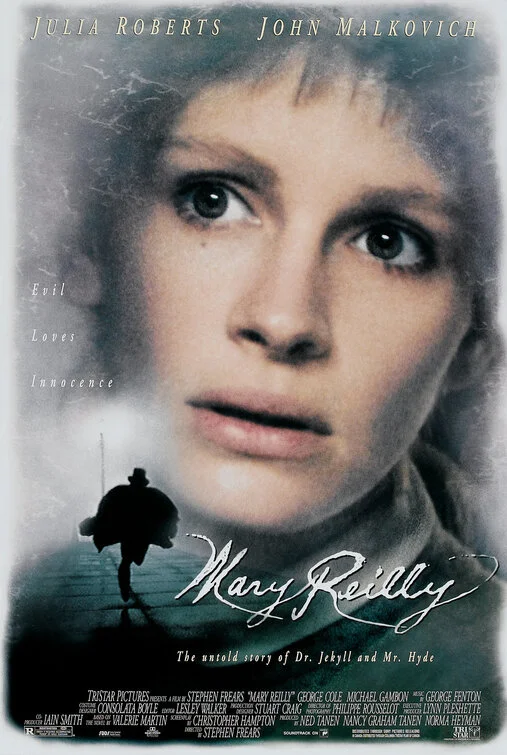
12/21:
Oh, great...it's another cinematic variation of Robert Louis Stevenson's famous novella
Strange Case of Dr. Jekyll and Mr. Hyde.
Have there been enough already? This time, it has a twist: a female who witnesses tons of bipolar tomfoolery.
Hence, the film is called Mary Reilly, a notorious box-office failure in 1996, mostly because of the movie
poster displaying Julia Roberts' white-as-a-sheet face with vacant stare by using her deep brown almond eyes.
However, I'll say this: the movie was never going to work, regardless of Julia Roberts' presence or in-and-out
Irish accent. Really, the only reason why I decided to give it a look for the first time ever is that many people
from Dangerous Liaisons decided to reteam. Plus, having John
Malkovich on board goes a long way. Well, it's been a sad disappointment on many fronts although the hierarchy
concerning the Victorian servants looks correct.
For starters, Mary Reilly is boring. When I say that, I mean it's really fucking boring. Because getting
the image of Pretty Woman out of my head is so hard, I can't accept Julia
Roberts' transition to a Victorian servant. To make matters worse, she's in every scene, trying to come up with
something original to say. The woman on the same bed with her did the wise thing by sleeping through it all.
It's easy to spot John Malkovich a mile away. Why couldn't Mary Reilly do that? Apparently, it's him playing
both characters. She never asked this simple question, "Aren't you the same man?" Or perhaps they're twin
brothers? At the end, he chases her through an empty room that's inexplicably full of chains and swinging
platforms.
All in all, Dangerous Liaisons is a masterpiece while
Mary Reilly is a certified turkey.
Mary Shelley's Frankenstein (1994)
Rate:
7
Viewed:
7/03, 12/12

12/12:
More than anything, it's Kenneth Branagh's stylish direction that makes Mary Shelley's Frankenstein a pretty
good adaptation of the famous novel by Mary Wollstonecraft Shelley.
I know I'm being entertained when everything is fast-paced and to the point; that's how it's been for this film. The casting of
Kenneth Branagh, Robert De Niro, Helena Bonham Carter, and Tom Hulce is more than sufficient to meet the demands of a
period picture.
However, the plot feels somewhat empty for not trying to attempt to answer the crucial questions about the meaning of it all.
Instead, the creator dies at the end, and that's about it. At least, Kenneth Branagh gives a better acting performance
than he did in Othello.
All in all, Mary Shelley's Frankenstein needs a bit more substance to tie up everything.
Mary, Queen of Scots (1971)
Rate:
6
Viewed:
5/18

5/18:
Not having much of a plot, Mary, Queen of Scots is average when compared to the likes of
Anne of the Thousand Days and
The Private Life of Henry VIII.
The acting is okay and justifiably British, and I like Timothy Dalton's performance the best as the blond-haired
King consort. It's funny to see how ordinary royalty is portrayed in the film, and I suppose it's true.
Unfortunately, the two female leads fail to make an impression on me.
Meanwhile, it's hard to excuse the average dialogue which is neither authentic nor captivating. So much
ground to cover, there's not enough time to explore all, hence the weak plot. Historically, the two queens,
Elizabeth and Mary, had never met in real life.
As usual for such films, Mary, Queen of Scots has some nice cinematography, and there's no doubt of how
fantastic the costumes look. Yet I want more than them for the much-needed balance. There's no passion and nearly
no point to the goings-on of court intrigue. Anyway, 1971 was the beginning of the fifteen-year relationship
between Vanessa Redgrave and Timothy Dalton. They appeared together eight years later in one more film called
Agatha.
All in all, Mary, Queen of Scots is a passable British costume drama that was
patently made on the heels of Anne of the Thousand Days' success.
Mask (1985)
Rate:
9
Viewed:
5/12, 7/21

5/12:
Here's a great one from Peter Bogdanovich: Mask.
A beautiful, moving film with a sad ending, it's the story of Rocky Dennis and how craniodiaphyseal dysplasia has impacted
his life. All performances are top-notch, and the true standouts are Eric Stoltz, Cher, and Sam Elliott.
Although Laura Dern has done an excellent job of playing a blind character, I find it insulting and don't see why the
filmmakers couldn't get somebody else who's actually blind. By the way, the interview with Peter Bogdanovich is a must-see.
He's an intelligent person and should be the main host of TCM after Robert Osborne.
All in all, Mask is an outstanding film by Peter Bogdanovich.
7/21:
The best film of Cher's and Eric Stoltz's careers, Mask is a moving slice-of-life drama about Rocky Dennis.
The reason for the Director's Cut is to include Bruce Springsteen's songs finally for certain key scenes. Prior to it,
Universal Pictures and Columbia Records couldn't come to an agreement, so Bob Seger's songs were used instead, violating
Peter Bogdanovich's right of final cut.
Of course, Michael Westmore and Zoltan Elek won the Oscar for Best Makeup which feels like a make-up after what happened
with The Elephant Man. It's unbelievable how Eric Stoltz was able to move his face without the mask crumbling apart.
Apart from his performance, three outstanding aspects are: Cher's soulful eyes, Sam Elliott's classy presence,
and the camaraderie among bikers. One negative is the movie runs too long; it just goes on and on. Therefore,
making Mask shorter will be beneficial.
Interestingly, how it got made is that Dorothy Stratten, the subject of Star 80, showed keen interest in the
story of Joseph "John" Merrick which became the basis of The Elephant Man and Peter Bogdanovich picked up on it. In
spite of Cher's diva-like behavior, the director thought she should've gotten the Oscar, and I agree with him
except...Whoopi Goldberg deserved it more for The Color Purple.
All in all, it's hard not to be inspired by Mask.
The Mask (1994)
Rate:
4
Viewed:
4/25
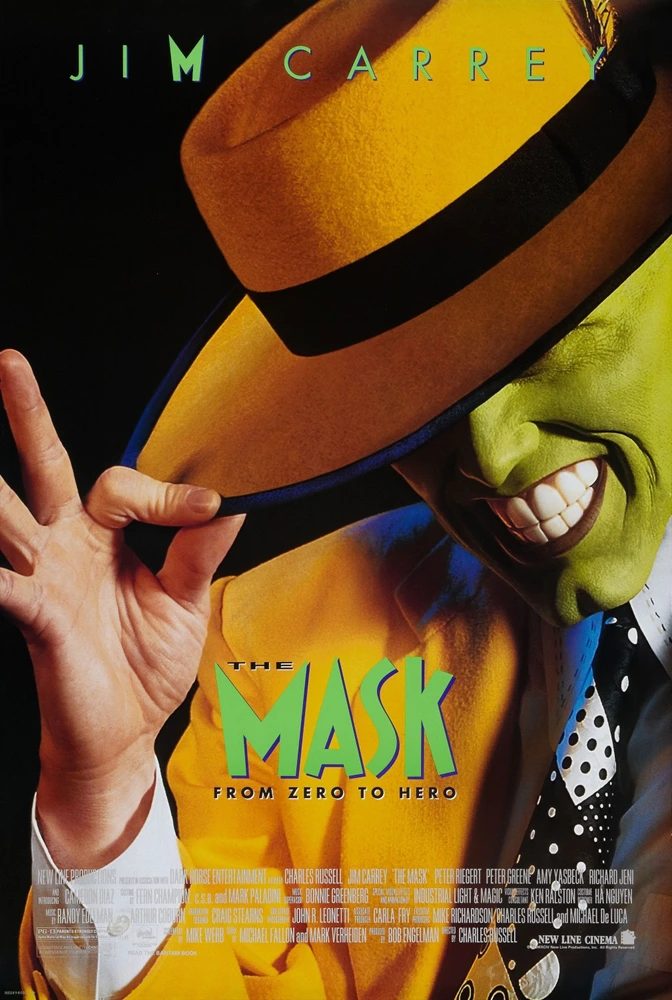
4/25:
The Mask hasn't aged well.
I thought it would go through easily, but I got bored into pieces and never laughed once. Given the same premise,
Darkman kept popping into my head as it was done so much better overall. The
writing is terrible, often ripping off other films to score some cheap points. I won't be surprised to learn
that Jim Carrey made sure it was a point of emphasis for future improvement (check out
Liar Liar).
However, I give everybody props for the special effects which is outstanding for 1994. It's like watching
a cartoon come alive. Yet I'm confused whether or not the movie is supposed to be for kids. There's a lot of
sex stuff going on. Oddly, Stanley commits a bank robbery but is let go in the long run despite everybody
knowing he's the guy with the mask.
Jim Carrey is slightly better when he has the mask on. Without it, he's dull. Either way, he has ordinary
one-liners and keeps getting outshined by the dog. I didn't realize that Cameron Diaz made her screen debut
in this. Again, she's oversexed for poor reasons. Do you think her character would've taken interest in Stanley
if he never wore the mask in the first place? Of course not. Peter Greene continues to play bad guys and
does well at it.
All in all, the only surprise of The Mask is it didn't birth a franchise for Jim Carrey to generate
more ka-ching.
The Mask of Dimitrios (1944)
Rate:
4
Viewed:
6/15
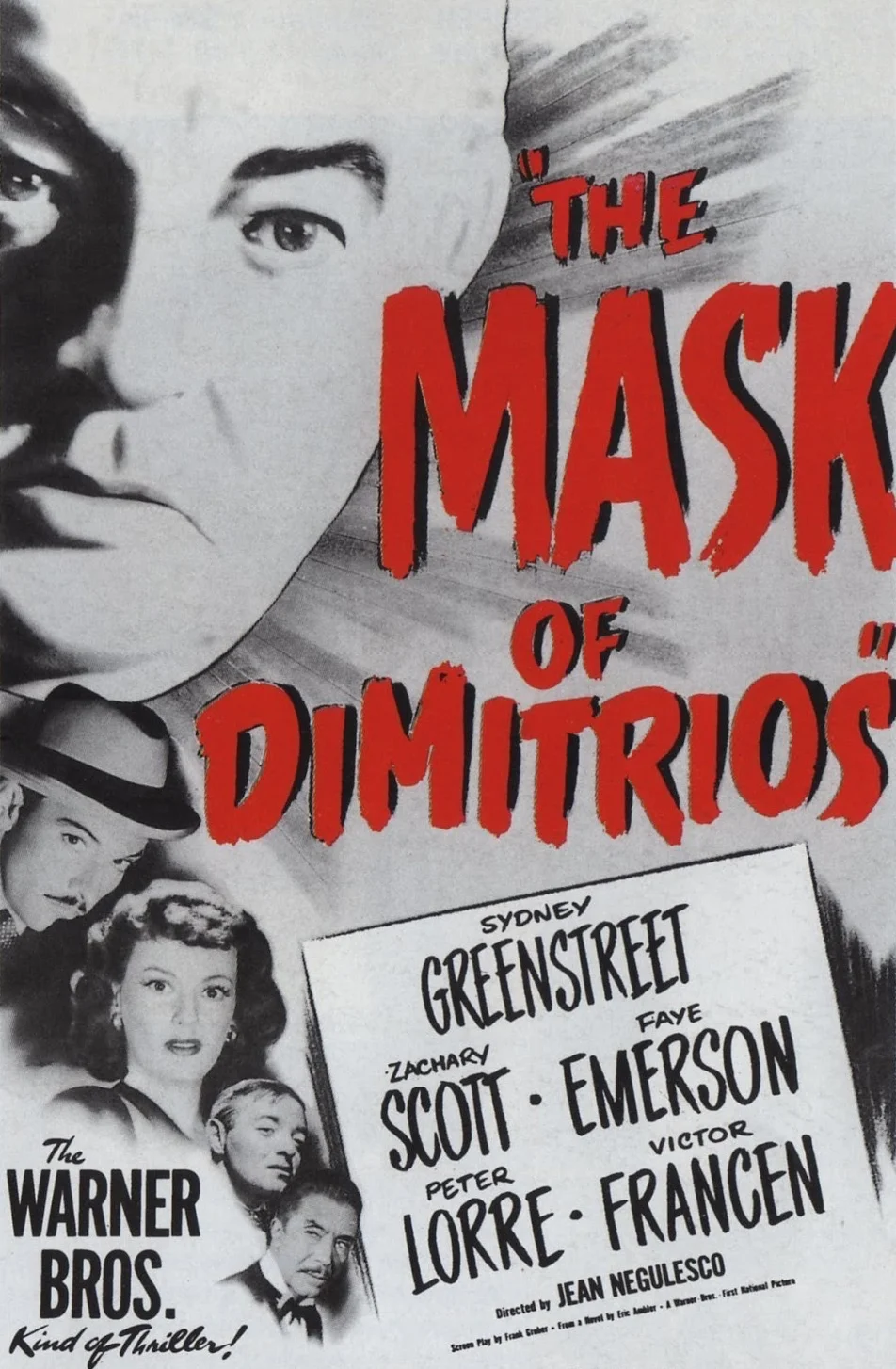
6/15:
The Mask of Dimitrios marks the fifth film (out of eight) that Peter Lorre and Sidney Greenstreet had
starred in together.
As much as they throw their star power around, the movie isn't good. The problem lies in the imbalance of
storytelling. There's too much attention on the two aforementioned stars but not enough on Dimitrios, who's
played by Zachary Scott in his motion picture debut, although he's never compelling enough to grab my attention.
Sidney Greenstreet's character, just like The Maltese Falcon, talks
too much, dragging down the pace, while the oft-sad-looking Peter Lorre, who seems to be miscast, is forced to
put up with his loquaciousness. The only interesting part during one of the flashbacks is when Dimitrios conned
a Yugoslavic government official to obtain the classified map charts of the minefields and then pulled a fast
one on his employer. That's the problem with the film: not enough of it.
The last ten minutes gives credence to the picture as a film noir, but there's hardly any shown in the
first 85 minutes, making it a weak addition to the aforementioned genre. The twist, which comes almost at the
end, is predictable and thus not surprising.
All in all, The Mask of Dimitrios is an uneven suspenseful picture with boring dialogues that are
occasionally broken up by the much-appreciated flashbacks.
The Mask of Zorro (1998)
Rate:
4
Viewed:
12/06
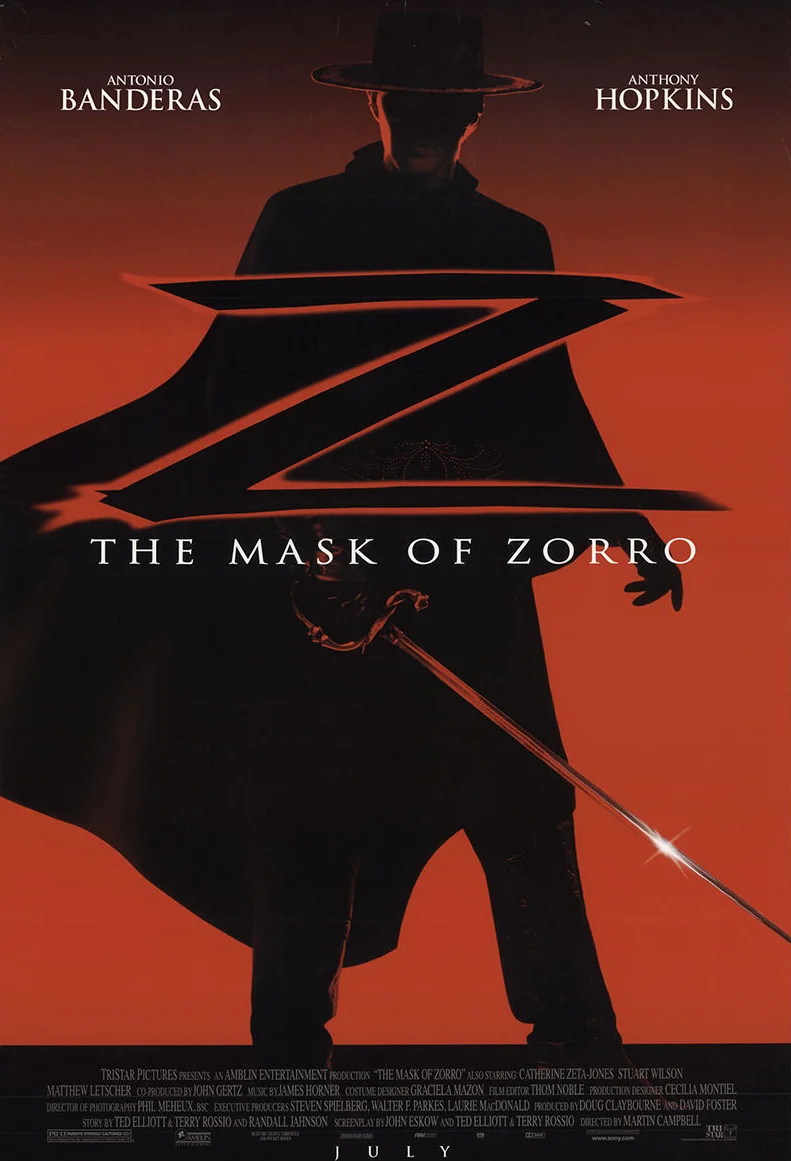
12/06:
The Mask of Zorro is too long and mainstreamed for my taste.
With the exception of Anthony Hopkins who does a decent job, the acting is weak. Even worse is the direction by
Martin Campbell who isn't competent to begin with.
The long running length is due to many unnecessary scenes. Not much time is spent on developing the characters
because it's all about the useless swordplay and acrobatics. There are charm, some excitement, and intrigue, but they've
been overwhelmed by the negatives.
All in all, Zorro, The Gay Blade is far more entertaining than The Mask of Zorro.
Masquerade (1988)
Rate:
8
Viewed:
12/08, 7/11
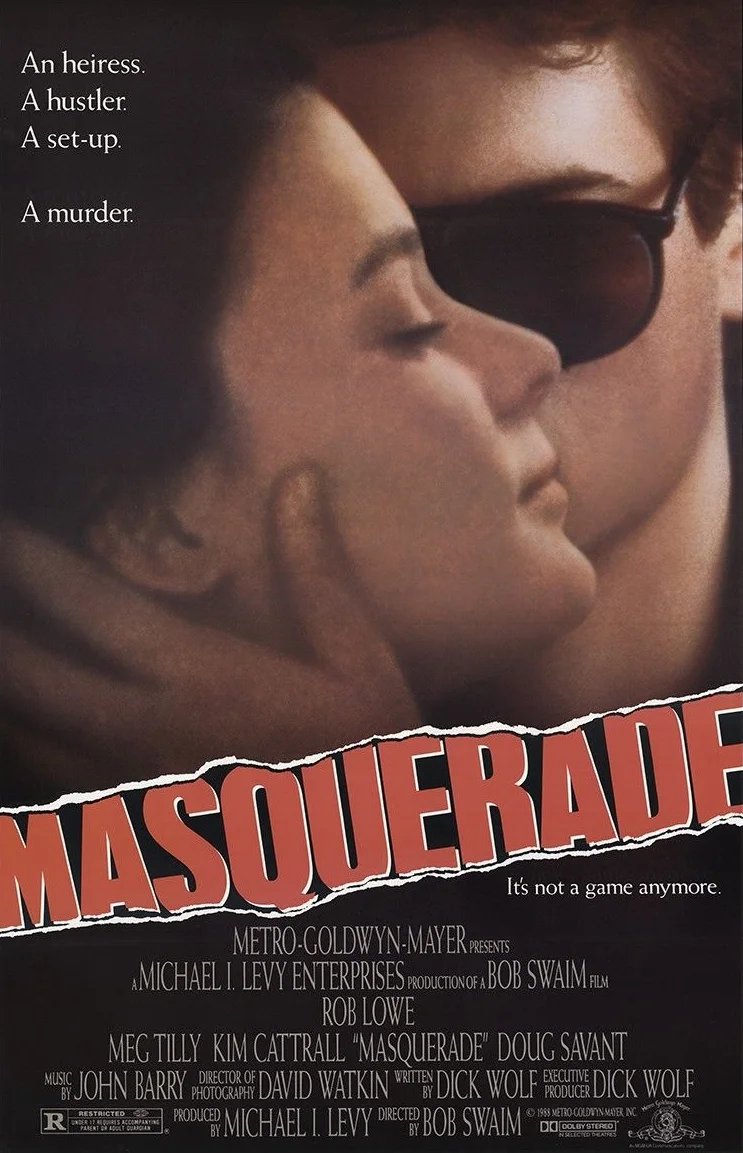
12/08:
Masquerade is a wonderful mystery thriller picture starring Rob Lowe and Meg Tilly.
It contains many outsmart-you twists and turns that I've kept trying to foresee what would happen next but failed to get
anything correct. So, I'm pleased with the results. Meg Tilly is a natural and makes acting look effortless, and Rob
Lowe is perfect. Their chemistry is flawless.
The plot is the biggest treat, and I've enjoyed the unfolding of the mystery. When Tim Whalen shot the girl's stepfather,
there's no reason for him to cover up the incident because what he did was self-defense.
All in all, Masquerade is Body Heat meets Reversal of Fortune.
7/11:
In Masquerade, Bad Boy Rob Lowe puts men to shame by showing off his hairless, tanned body.
Of course, it's the plot that make this one worth the time. The twists and turns have me engaged from start to finish,
and the ending is a surprise. I love the cinematography of the Hamptons. It's like being inside the homes that are owned by
the superrich and the shameless. Meg Tilly is watchable as ever and is a natural actress. Rob Lowe complements her well.
All in all, Masquerade is a superb mystery thriller picture.
The Masquerader (1914)
Rate:
1
Viewed:
4/07

4/07:
Here's another Charlie Chaplin borefest: The Masquerader.
Everything is the same as before. There's a fight here and there, and slapstick moments are plenty.
Nothing beats a Chaplin film short when it comes to being depressed and having suicidal thoughts.
All in all, avoid The Masquerader at all costs.
Master and Commander:
The Far Side of the World (2003)
Rate:
7
Viewed:
5/24
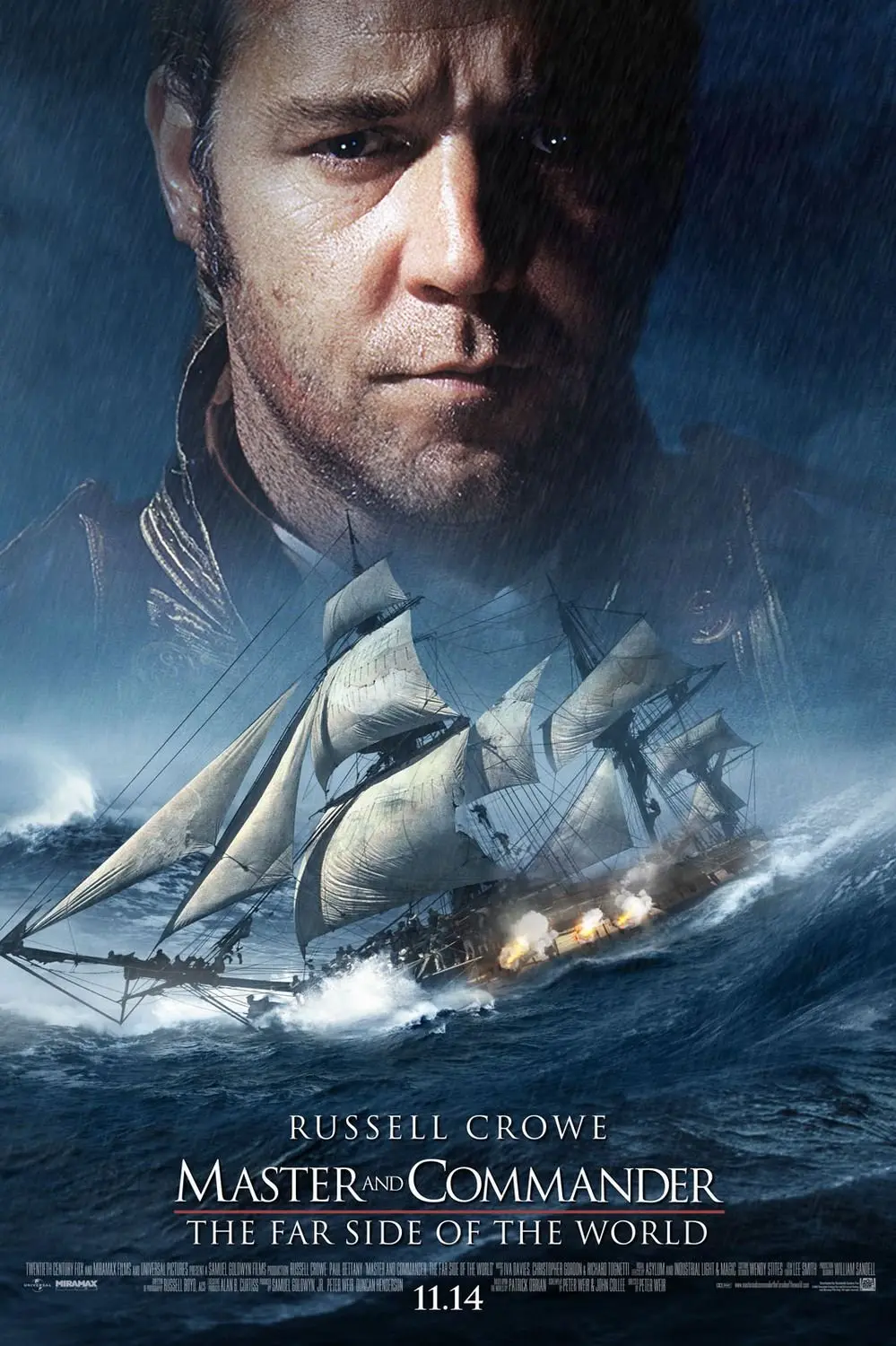
5/24:
I wish that Master and Commander: The Far Side of the World was a strictly seafaring picture just
to present a slice-of-life tale.
The middle works the best which should've been the entire film. Ironically, many said there wasn't enough
warfare action when I thought there was too much of it. Hence, it's better to cut out all of the fighting from
the beginning but keep some intact for the end. In truth, they look too CGI-fake, ruining the overall show.
How the men work on the ship and how they're affected by comradeship and discipline
are the reasons why I was able to absorb the 138-minute picture rather well. Additionally, the
screenplay is terrific although I didn't understand half of it due to not being familiar with nautical terms.
Some people pointed out the lack of character development for so many in the cast. Because of the aforementioned
middle part, I can safely dismiss the issue while admitting to not remembering anybody's name. In fact,
Russell Crowe and Paul Bettany play important men who happened to be too well-developed when all I cared about
was the seafaring life, nothing more. The cinematography seems like a winner most of the time. I think it's
fine but certainly not Oscar-worthy. On the other hand, Russell Crowe and Paul Bettany give passable
performances, but they're nothing to be bowled over.
All in all, if the battle stuff could go for the most part, I would've enjoyed
Master and Commander: The Far Side of the World more.
Masters of the Universe (1987)
Rate:
9
Viewed:
3/06

3/06:
Based on the popular cartoon show, Masters of the Universe is an exhilarating fantasy film.
It's never corny and is delightful to watch. Frank Langella is excellent as Skeletor, and Dolph Lundgren is fun as He-Man.
Oscar nominations should've been handed out for Best Costume Design, Best Visual Effects, Best Art Direction, and Best Makeup.
All in all, Masters of the Universe is fun to watch.
The Matador (2005)
Rate:
2
Viewed:
7/09

7/09:
The Matador is a typical picture that tries to be cool and stylish with a quirky storyline and fun characters, yet it
fails on every possible level.
Copying off what Alec Baldwin did in Miami Blues, Pierce Brosnan tries to reinvent himself in the hopes of shaking
off his James Bond image. It never works, and he'll be stuck with it for the rest of his career. Meanwhile, it's pathetic
when Greg Kinnear tries to pull off the awkward schtick that William H. Macy is known for.
All in all, The Matador is a Miami Blues wannabe.
Matinee (1993)
Rate:
3
Viewed:
7/12

7/12:
John Goodman is a funny guy, but his talent got wasted in Matinee.
If it wasn't for the annoying child stars, Matinee might have worked. If I want to see a film about the Cuban
Missile Crisis, I'll watch Thirteen Days. If I want to see a film about a movie within a movie, I'll
watch Last Action Hero. If I want to see a film about teenage romance, I'll watch
Mischief. And believe me, none of them involved annoying children.
The best part is the theatre special effects. Then again, I actually thought of this movie after the
Batman shooting incident in Aurora, Colorado. Go figure.
All in all, if Cathy Moriarty looks more bored than she was with Jake LaMotta, the movie is a no-go.
The Matrix (1999)
Rate:
4
Viewed:
8/04, 6/05, 10/25

6/05:
Well, ladies and gentlemen, we've got a leading contender for the Most Overrated Film of the 20th Century:
The Matrix!
I can say it's the one that marked the beginning of the end of cinema as I know it. One question: if the agents
are supposed to be machines, why is their aim always imperfect? What a slow movie. I can leave in the middle
of the scene to do something for a minute and come back to see I've missed nothing at all.
The Matrix is a waste of Keanu Reeves' and Laurence Fishburne's talents. I guess money must be
important to them. I wouldn't be surprised to learn if they didn't understand what the plot was all about.
Sometimes, I'm reminded of Johnny Mnemonic.
All in all, The Matrix is the ultimate picture for IMDb fanboys who happen to be intellectually challenged.
10/25:
The Matrix is so unbelievably overrated.
It's just special effects masturbation. I'm sick of the green urine-stained look. The script is full
of fortune cookie talk and other made-up crap. Riddle me this: if Agent Smith and others are machines, then why do
they keep missing shots? How about Neo doing the somersault, totally exposing his body, while they're shooting
at him? And no bulletproof vest on? Tsk, tsk, tsk. I've never understood how Morpheus can see everything that
Neo is doing, yet the agents can't find him while in the Matrix.
All in all, The Thirteenth Floor is better than The Matrix.
The Matrix Reloaded (2003)
Rate:
3
Viewed:
8/04, 11/25
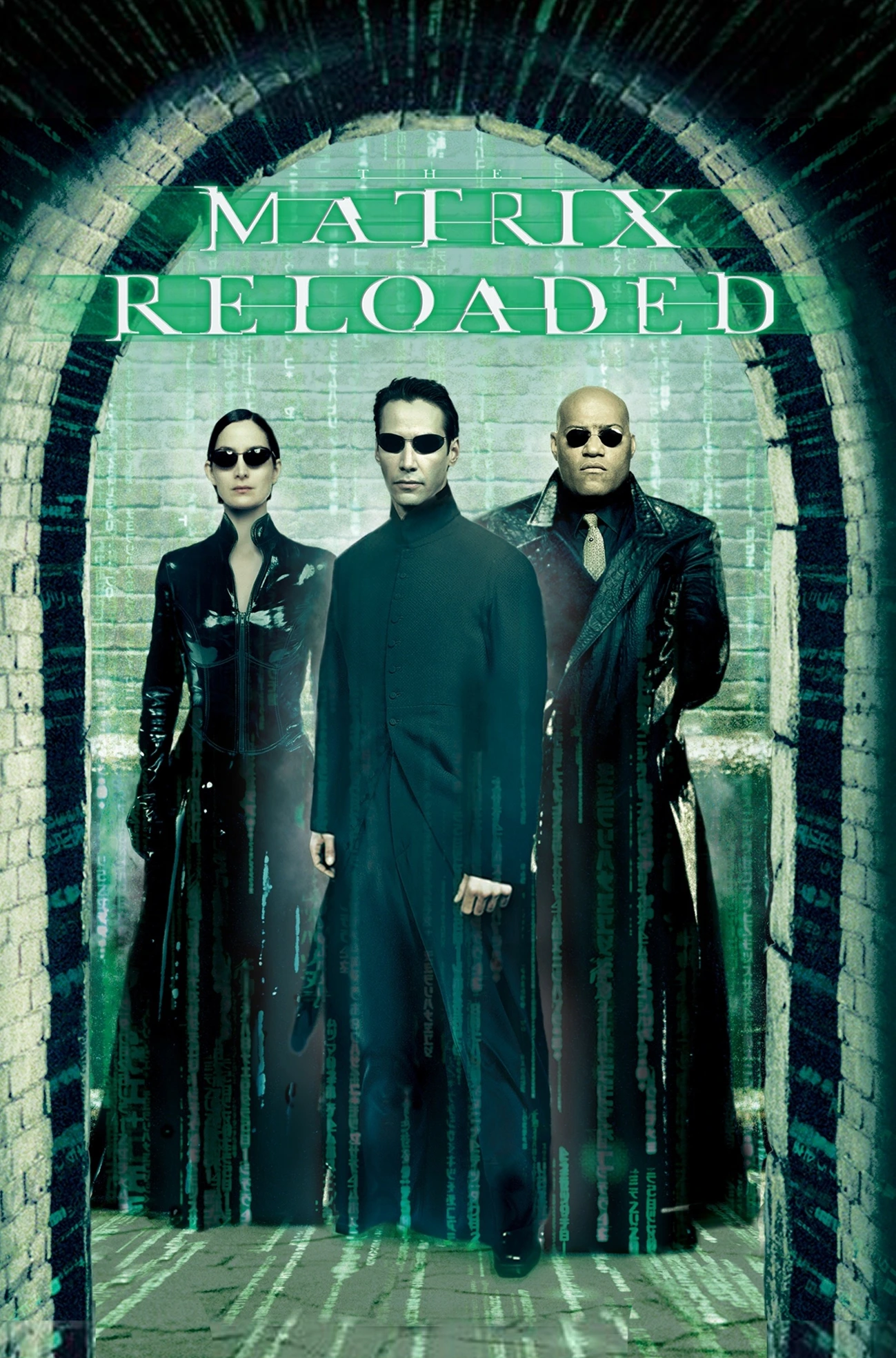
11/25:
The Matrix Reloaded sounds right.
When there's a fight, it's repeated many times. There must have been at least fifty. Ditto for
the special effects. In fact, the entire movie is so overladen with them that the story is pretty much
nil. The longer the nonsense goes on like the pointless orgy dance, the less I understand the purpose.
Sometimes, I'm reminded of The Terminator.
Who cares about Trinity? She and Neo have no chemistry. As I recall, the Architect said, "There are two doors.
The door to your right leads to the source and the salvation of Zion. The door to your left leads back to the
Matrix, to her, and the end of your species." Neo chooses to save her. So...that should've ended the human
race right away, but why didn't it happen?
Neo has more skills than before and gets to be Superman. Already, I'm bored. I hate the secondary characters;
they are so cheap. Jada Pinkett Smith, Lambert Wilson, Monica Bellucci, and Harold Perrineau get on my nerves
the most. Even worse is the pretentious fortune cookie talk. On the other hand, Keanu Reeves and Laurence
Fishburne are fine.
All in all, The Matrix Reloaded is simply special effects galore.
The Matrix Revolutions (2003)
Rate:
2
Viewed:
8/04, 11/25
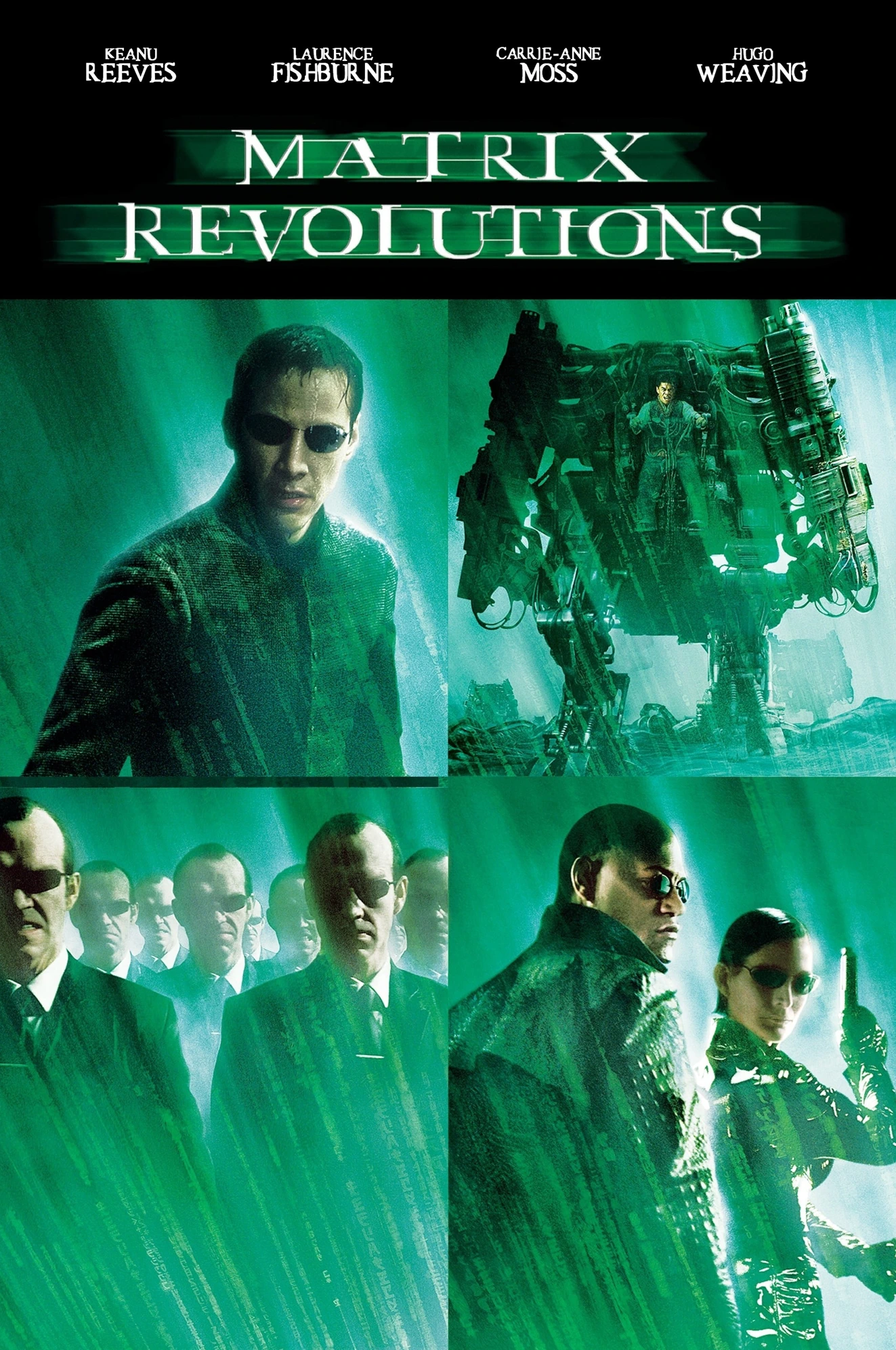
11/25:
Hallelujah...the pretentious bullshit is finally over.
The Matrix Reloaded and The Matrix Revolutions are
completely unnecessary sequels. There's no story...it's all CGI masturbation plus fortune cookie talk.
Thousands of machines come out in the air to take over Zion, and a couple of dozen people fight
them. Huh? There have been times I was watching a cheap remake of
The Terminator or Aliens.
After seeing the whole trilogy, nothing makes sense. What's the connection of Zion or the Matrix to the real
world? What does it mean for the real people if Zion is destroyed? What's the significance of Merovingian,
the Architect, the Oracle, the Trainman, Sati, and so on if they are all equally useless and have nothing
concrete to offer? How can anyone not see the resemblance of Bane to Mr. Smith? I wasn't sure if they were
being played by the same actor; it turns out to be not. Ditto for the Oracle.
Why so much attention on Neo and Morpheus in the first two films and then switched to a lot of nobodies in
the third part? I never bought into Neo and Trinity's love for each other; they had no chemistry to begin
with. When she died, it's like, "Okay...bye." I'll love to meet Jada Pinkett Smith one day and tell her
she's absolutely ridiculous in everything. How is that Neo can see differently and stop machines with his
hand if he's still a human being in Zion?
All in all, The Matrix trilogy belongs in the garbage can.
Maurice (1987)
Rate:
7
Viewed:
12/16
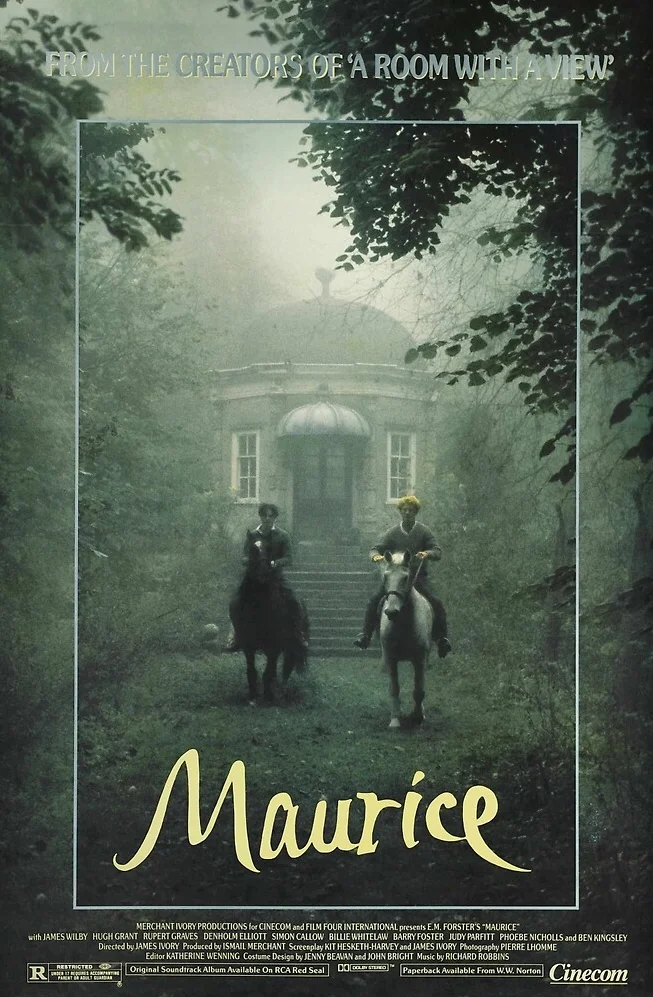
12/16:
Maurice is another Merchant Ivory production that's based on E.M. Forster's eponymous novel which
was held back for publication until after his death due to tabooness of the subject: male homosexuality.
The best feature is the cinematography, and the costumes are elegantly designed, earning an Academy Award nomination for Jenny
Beavan and John Bright (they won it for A Room with a View). The cast does a good job, but it's James Wilby
and Hugh Grant who score extra points for their intrepidity of taking the further step to play homosexual lovers. Rupert
Graves from Damage isn't bad, either.
However, I've been mostly put off by the frigidity. It's not that I don't like Maurice, but it feels detachedly cold.
Yet I have to be reminded that it's an English picture and that the story takes place in the early 20th century. I just wanted to
feel something, but it was never there.
But the ending is a nice touch and puts everything into perspective. It basically says Maurice took a big
risk because he believed in his homosexual love for Clive, regardless of the consequences, while Clive stopped himself short
since he didn't want to be shamed in public. That's why the latter had a quiet sad moment to himself, realizing how much of
a coward he was.
The theme touched upon is interesting because people struggled with their sexual identity for many years, deciding
whether or not it's a good idea to come out of the closet. If they did, what would the price be for doing so?
All in all, Maurice is a fantastic Merchant Ivory picture with an interesting storyline and wonderful cinematography.
Maverick (1994)
Rate:
7
Viewed:
7/17
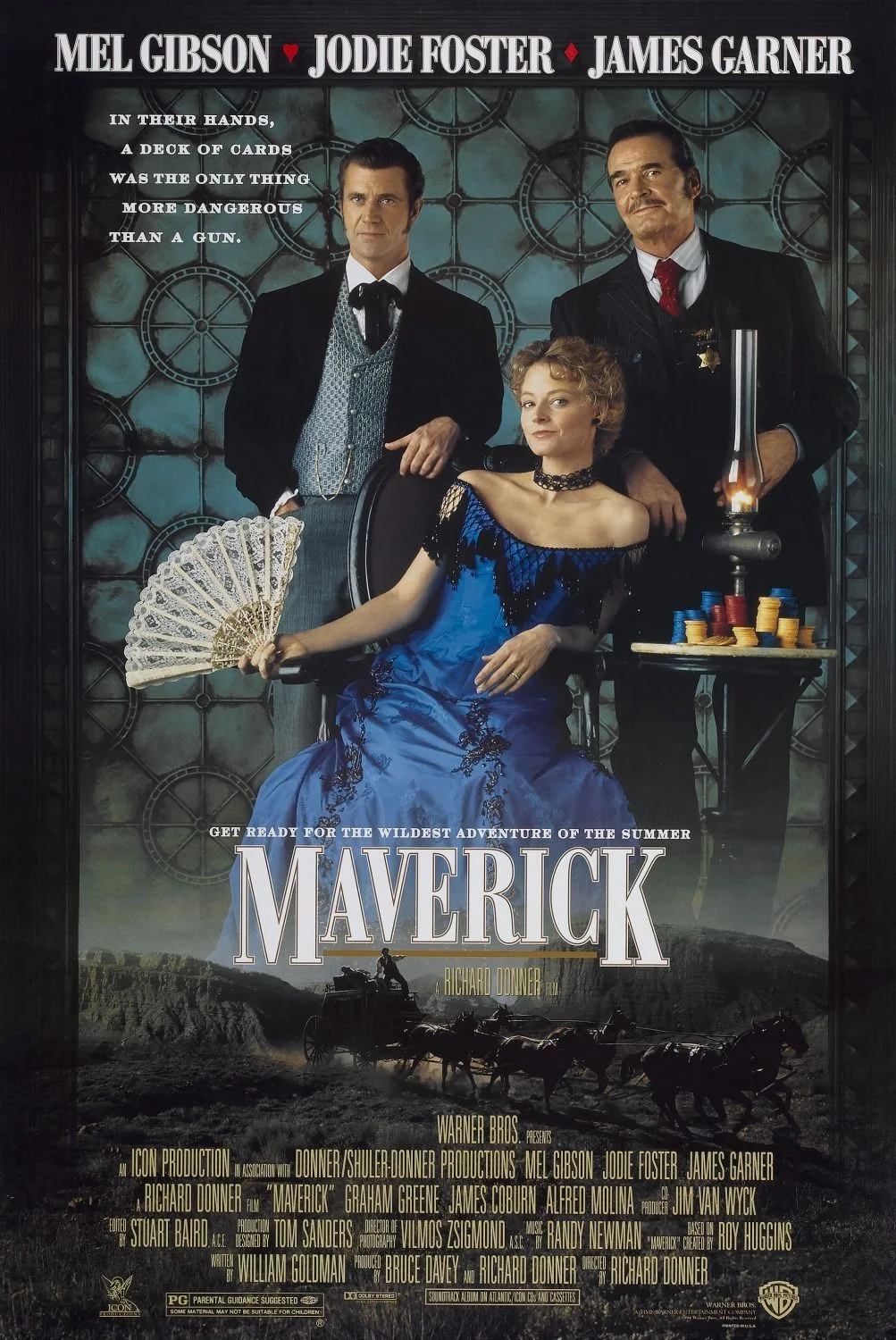
7/17:
I had never seen the TV show but always knew that James Garner was Bret Maverick.
The movie Maverick came out in 1994 with Mel Gibson taking James Garner's place, and I thought it was
funny back then. After seeing it again for the second time, it's still funny.
Unfortunately, it's too long. Most great comedy pictures usually last ninety minutes, but this one
is two hours and ten minutes. That's going overboard. The biggest mistake is adding more stuff after the final
play of the Poker Championship. Had it ended right there, Maverick would've been a solid '8' picture,
leaving me satisfied.
Anyway, what's with the victims of a fake Indian attack? That's another trouble: too many twists and turns for
the sake of script convolution. Just keep it simple and focus on the jokes. That's what comedy is about. Plus,
who carried $1,000, let alone $25,000, these days? That's a lot of money. $1,000 is $25,000 today, and
twenty-five times that is over $600,000. Winning a half million is $13 million today. Bullshit. Anybody who
had that much by then would've retired for life. People were making a quarter an hour or $15 a
week on average for sixty hours of labor. Pension for Civil War veterans was $24 per month.
For the final hand, Maverick had two chances of winning: either an ace or a nine of spades. After nineteen cards
were pulled, there was 2/33, or 6%, chance of winning. At the end, it looked like Annabelle was stealing from
him. But the truth is: they had a 50-50 deal, and therefore, it was her money to keep.
Mel Gibson is practically the only one providing jokes (Graham Greene has done a good job with him) although he
makes numerous goofy faces just to keep things moving. Honestly, without Mel Gibson, there's no Maverick.
I'm not sure what James Garner was doing in the film by hanging around with new kids on the block. When the ending
revealed that he's Maverick's father, I was like, "No shit." Then again by thinking back to what happened, he
let his son be in danger of losing his life? That makes no sense.
Jodie Foster is miscast, having no knack for comedy. She isn't a great actress, either, and doesn't know how
to play a character. All Jodie Foster can do is look good and kiss Mel Gibson a lot. How wonderful...not. In
case if you didn't get the inside joke, the film was directed by Richard Donner of the
Lethal Weapon franchise. When Danny Glover and Mel Gibson were looking at
each other during the bank robbery scene, they used to be Murtaugh and Riggs in another life. It's a good moment.
All in all, Maverick is funny but should be forty minutes shorter.
McCabe & Mrs. Miller (1971)
Rate:
7
Viewed:
10/12

10/12:
The point of McCabe & Mrs. Miller is uh...?
Although it's another film about hookers, the cinematography is nice-looking, but the technique has been borrowed
from M*A*S*H. Also, I love the look of the shanty town. On the other hand, the last twenty minutes is slow and boring.
Warren Beatty does a decent job of breaking away from his usual "stare at a wall with a vacant expression" shtick.
Julie Christie turns in another overrated performance, but then again, the Academy loves to hand out nominations to actresses
who play prostitutes or rape victims. As far as I know, thirteen hookers have been Oscar winners. An amazing stat, huh?
Oh, how I love the fake snow. It's so pretty. And finally, make sure you understand this: McCabe & Mrs. Miller is a
film that embraces whores and whorehouses. Got it? Good. Now, get the fuck out of here.
All in all, McCabe & Mrs. Miller is too much.
The McKenzie Break (1970)
Rate:
5
Viewed:
2/25

2/25:
The filmmakers tried to carve out a German version of the The Great Escape
through The McKenzie Break, and it didn't work.
What caught my attention is the cinematography. It's extremely well-done, having been handled by Michael Reed.
Pay attention to the contrast between the colors and the blackness. I checked if he received accolades for it,
but alas, no. His résumé is nothing special, either. I also wondered if Gordon Willis, who actually started his
career in 1970, was influenced by what Michael Reed did with The McKenzie Break, but nothing had been
mentioned.
As for the film, there's a lot of wasted potential. For one, Brian Keith, an underrated actor
who reminds me of Brian Dennehy, is given a starring role, but it's meatless as hell. Instead, Helmut Griem gets
more attention and has thus done a credible job. Supposedly, there's a battle of wits going on between their
characters, but it was rendered so much better in The Enemy Below with
Robert Mitchum and Curd Jürgens.
The reason for The Great Escape working out is that everybody's character
was fully developed. This is not the case here. Ditto for the story; it meanders, and nothing is clear for a while.
There's no explanation for Schleutter's treasonous killing of his fellow soldiers. The last twenty minutes,
which indicates an up-tempo pace through editing, isn't impactful enough to save the film as a whole. How
did the escaped German prisoners have everything, especially the equipment, ready in time? On a side
note, the film was mostly shot on location in Ireland as a stand-in for Scotland.
All in all, apart from the cinematography, The McKenzie Break is too average to merit attention.
McQ (1974)
Rate:
4
Viewed:
1/10
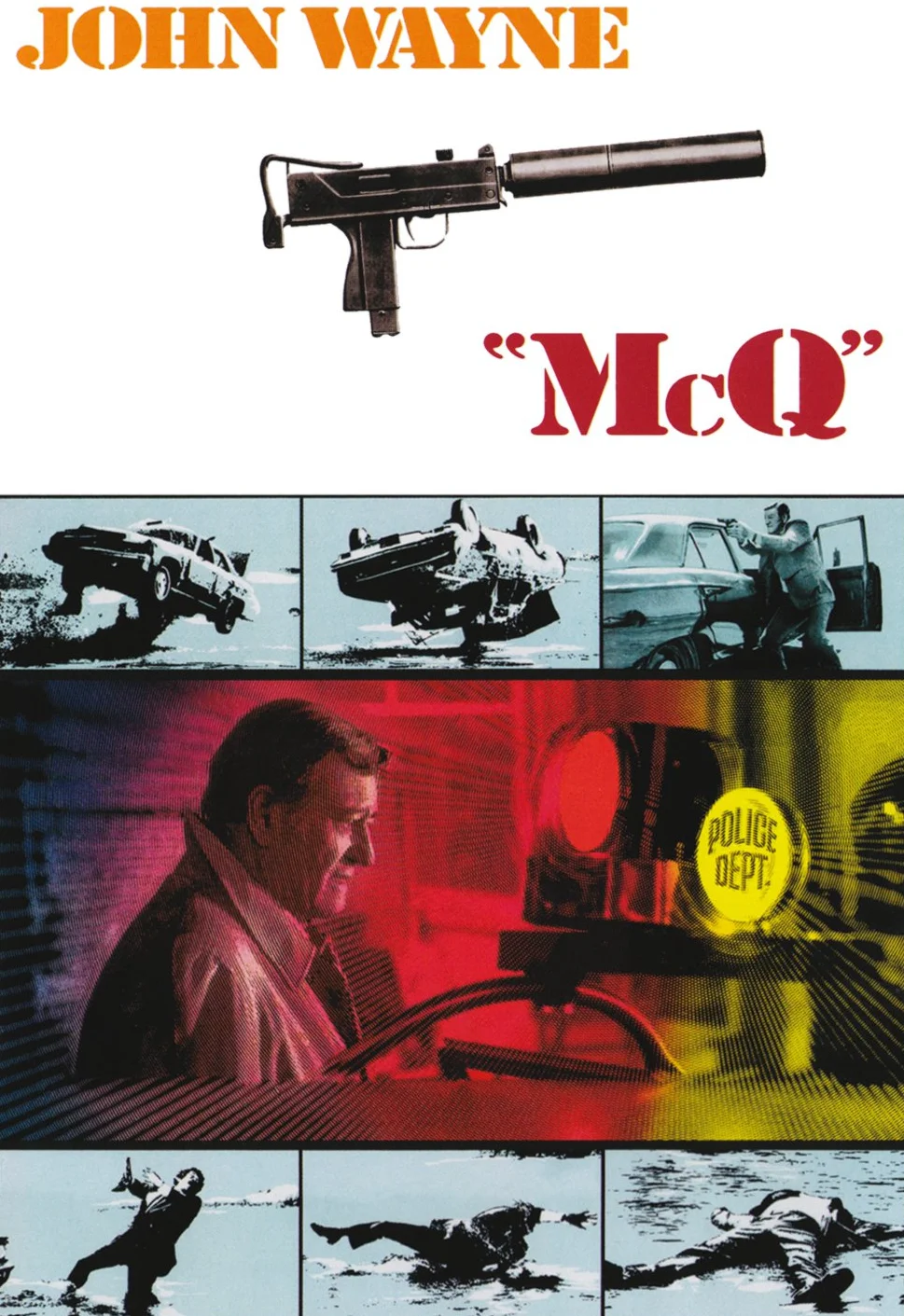
1/10:
John Wayne should've called it quits way before 1974 because he appears old and tired in McQ.
Running on fumes, the seemingly made-for-TV film is a cross between
Dirty Harry and Bullitt. Sure, there's a
neat plot trick at the beginning, but John Wayne can't keep up with the action, looking pretty much done.
The weirdest scene is with John Wayne's character and the elderly coked-up hooker, having left me feeling
queasy. Al Lettieri, who's best known for The Godfather, overacts. He'll die a year later of a heart attack.
All in all, RIP John Wayne's acting career.
The Mean Season (1985)
Rate:
6
Viewed:
5/22
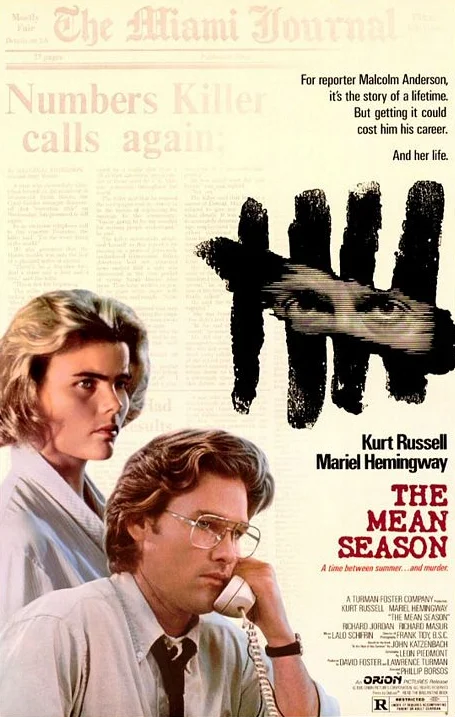
5/22: The Mean Season is 70% decent but 30% insulting to my intelligence.
The serial killer-reporter angle is unique as the line between ethics and duty gets blurred as the story progresses, but
the editing bothers me a lot with a few cheap scare-'em moments.
For example, when Malcolm's girlfriend was having a shower, the guy approached her from the back with a pantyhose on
his head, and the next shot simply showed Kurt Russell. So...what happened to the pantyhose? Similarly, she later ran out of
the restaurant and wrote down on the car windshield that she hailed a cab. All of a sudden, she jumped out of the back seat to
give Malcolm a fright.
While Malcolm was dealing with the serial killer, I thought of a couple things. One, why was the girlfriend still in
the house? Wouldn't it make more sense to have her somewhere safe and secure with paid time off from work until the ordeal was
over? Two, why was there no policeman on the premises? Shouldn't Malcolm have a bodyguard, too, wherever he went?
In the meantime, it's weird to see the Miami Police Department's SWAT team doing its job without helmets on.
Bill Nolan (Richard Masur) is shown for a while and is then abruptly dropped. The same goes for the photographer
(Joe Pantoliano). Soon enough, the newspaper people aren't part of the picture anymore as Malcolm has moved on to working
in a vacuum. At the same time, why are the cops, most especially Ray Martinez (Andy Garcia), so generous with Malcolm and the
photographer to allow them to have free rein with the victims while taking pictures of the crime scene? That never happens
in real life.
The last twenty minutes bothers me. After Malcolm picked up Alan Delour's body, his face was shown blown away,
and then the scene was quickly dispensed with. But I wasn't satisfied at that point and knew what's to come next as this route
was typical of many 80's slasher films. Predictably enough, my suspicion was confirmed. So, why don't they get his
fingerprints or whatever? How is it possible for the real serial killer to escape so easily? The area had been secured
by the cops, and getting away in an airboat would make a lot of noise. On the other hand, it's the Everglades which means lots of
snakes and alligators for many square miles; hence, it's not possible to be walking and swimming out there and not be harmed.
By the way, why would the serial killer lose control of himself by coming back when he had the most perfect escape possible?
Then, we have the mother of them all: not verifying the story. The scene between Kurt Russell and Richard Jordan is
very good in a creepy way when the latter was pretending to be somebody else. After being fed insider info, Malcolm
doesn't bother checking out any of it but decides for immediate publication. In the end, the whole thing turns out to be
made up. I'll be surprised if this happens in real life, but it does, especially with the University of Virginia rape case that
was covered in Rolling Stone which turned out to be 100% fake.
Despite the negatives, The Mean Season isn't bad for the most part. I like the strong cast. Being sweaty
much of the time, Kurt Russell is uncharacteristically quiet, but he'll be a lot better in
Unlawful Entry as both films are
almost the same type. Mariel Hemingway's character is annoying as she tries to create drama so her fake
needs can be met. To me, it's a sure sign that Malcolm should dump the bitch and...fast. On the other hand, the newspaper
environment is cool to see which is the Miami Herald.
All in all, The Mean Season just needs a better editor.
Mean Streets (1973)
Rate:
7
Viewed:
7/03, 3/14, 2/25
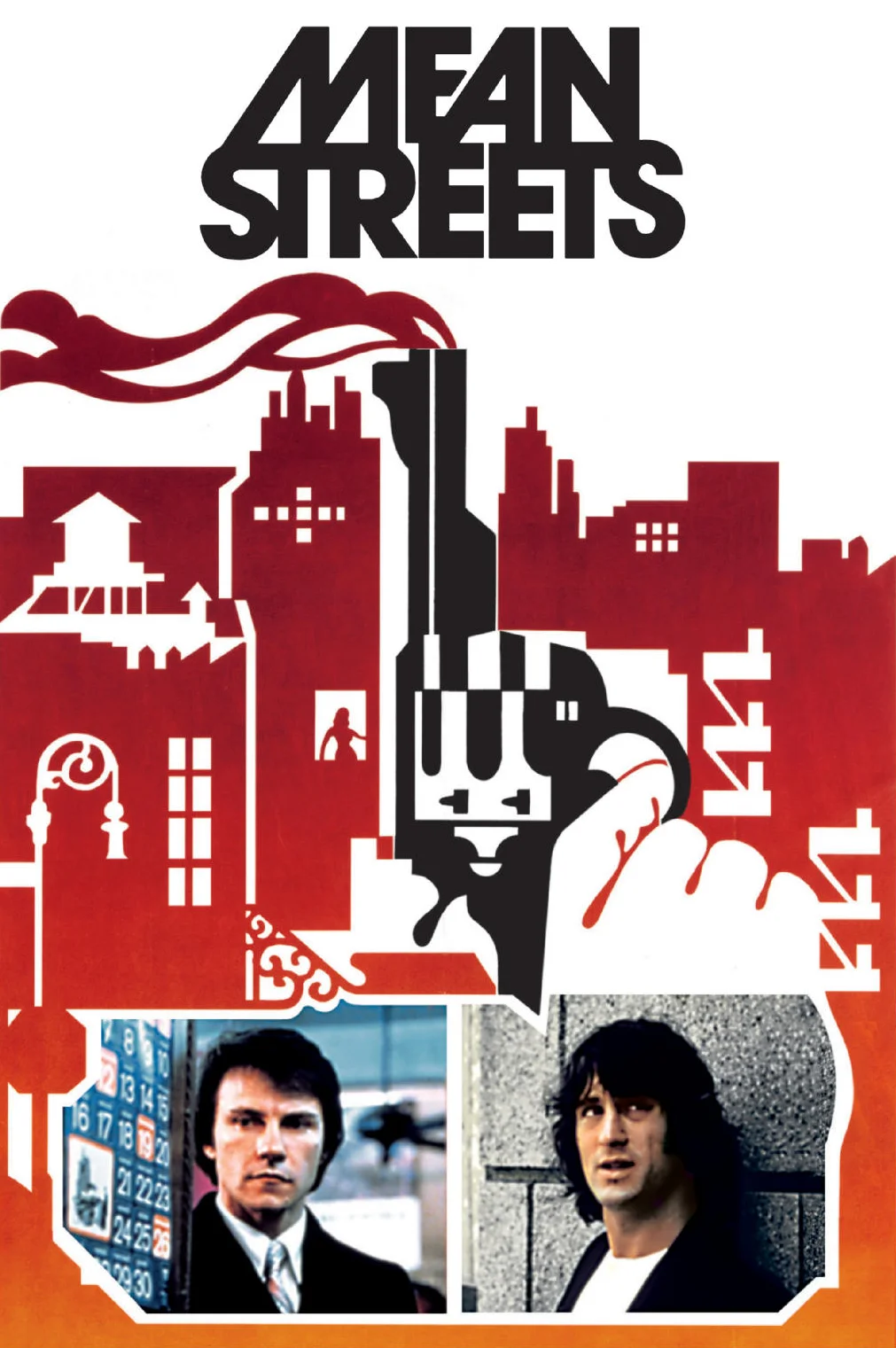
3/14:
Mean Streets is a long, boring, and plotless Italian street gang movie.
It's all about waiting for Johnny Boy to be killed because he's such a fuckup. My goodness, he's so annoying.
None of the characters is likeable, either. But the acting isn't a problem as everybody has been good.
The silly religion theme has to dominate the show throughout while Harvey Keitel's character is a
pyrophilic. What's the deal with the black cop arguing about a stupid penknife? It's just a freaking
penknife! A nadir is reached by listening to the following amounts: thirty bucks, five bucks, ten bucks,
one buck, and twenty bucks. Oh, come on. Give me a break.
All in all, Mean Streets should be viewed as a launching pad for Martin Scorsese to send a message
to everybody in Hollywood: "See! I can make a film! Now, give me the fucking budget that I need."
2/25:
Mean Streets has aged somewhat well by now.
It's mostly about the atmosphere, but there's no story. Some of the
scenes don't connect very well. The exteriors were shot on location in New York City in the shortest amount of
time possible while the interiors were done in Los Angeles to save money. Obviously, the standouts are Harvey
Keitel and Robert De Niro. This is the film, which was privately screened for Francis Ford Coppola, that got the
latter cast in The Godfather Part II without auditioning for it.
Mean Streets and Bang the Drum Slowly were theatrically
released on the same day, offering a first glimpse of Robert De Niro, and people couldn't believe he played two
completely different characters. Today, most don't realize Robert De Niro worked for over ten years, hustling
for an acting job here and there with little luck. He meticulously studied the part of Johnny Boy
while picking up Italian street slang and collecting wardrobe to make his character as authentic as possible.
It's been his modus operandi for every film role with the ever-increasing seriousness which hit the
pinnacle in Raging Bull.
All in all, the success of Mean Streets mostly rests on the atmosphere and the performances.
Meatballs (1979)
Rate:
5
Viewed:
3/10, 3/21
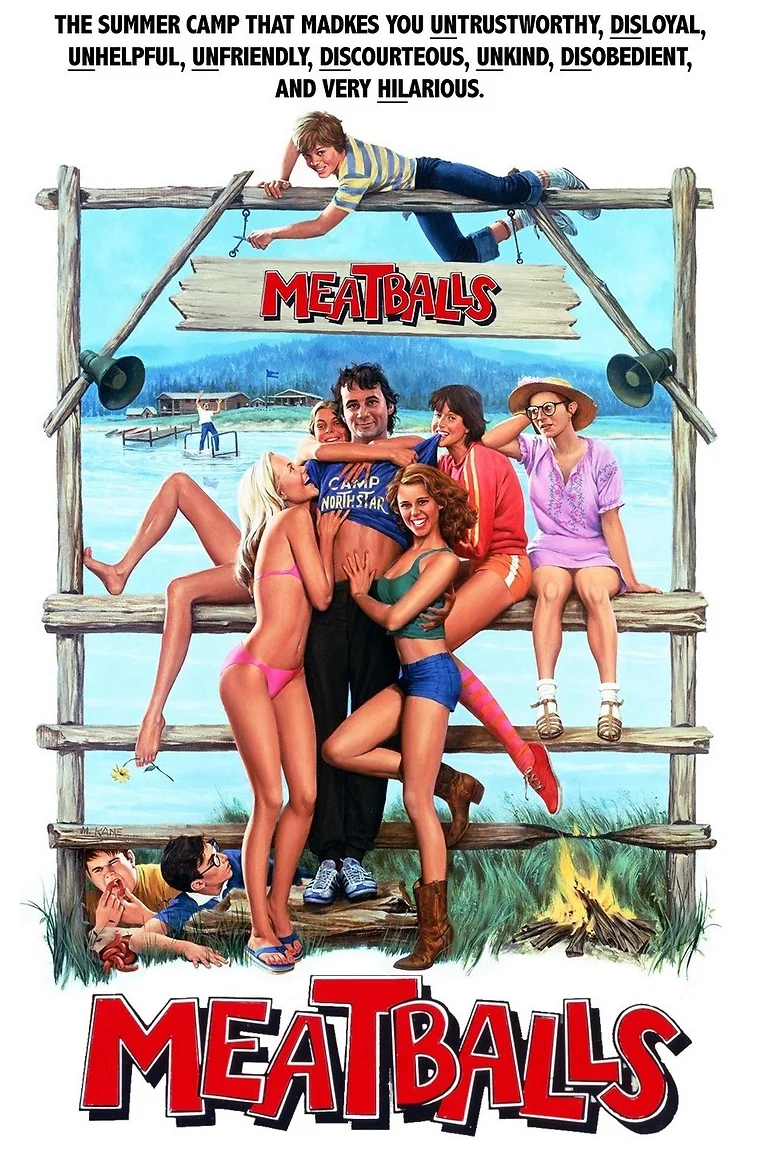
3/10:
Meatballs is the grandfather of summer camp pictures.
Strangely, I've never really understood the word selection for the movie title. The following is an interview
from a Yahoo article written in 2012:
"Adam Pockross: Having watched the film a few times now, I still have no idea why it's called
Meatballs.
Ivan Reitman: Neither do I. It seemed to be one of the staples that was part of camp food: Spaghetti
n' Meatballs. And meatball also has a secondary connotation, as in goofy. We couldn't call it Summer Camp
cause there was going to be another summer camp movie, so it was just a name I came up with."
It's the first Bill Murray picture in a leading role. I know that he comes across many viewers as an egomaniacal
jerk with a certain air of superiority, but his brand of dry humor here is quite good. It's also the first
for Ivan Reitman, and he and Bill Murray would do three more together:
Stripes, Ghostbusters, and
Ghostbusters II.
There isn't much of a story, but it's well-supplied with many random moments. It's funny when Morty woke up
somewhere else instead of his cabin. Other than that, the film is drenched in blandness. The only one that's
particularly memorable is when Bill Murray screamed "it just doesn't matter!" over and over. Thinking about what
he was trying to say, I realized it's true. The message represents everything that's wrong with sports today.
That's why most kids don't care about who won and lost or what records were broken because it's all about
having fun.
All in all, Meatballs is a classic Bill Murray picture.
3/21:
Meatballs hasn't aged well, and I think, in ten years, it'll be a dinosaur.
Bill Murray is all right; he's literally the only thing the movie has going by saying whatever comes through
his mind and not be taken seriously. The rest of everybody, most especially Chris Makepeace, is lame. There are
a lot of random "uh" moments, and then they move on to the next hijinks. Most, maybe all, of the scenes aren't
funny. At least, the summer camp part looks realistic given that I partook of it many times back in the day.
All in all, despite what I think of Meatballs, Bill Murray will wisely say, "It just doesn't matter,"
and that's because the film grossed over $70 million against a budget of almost $2 million.
The Mechanic (1972)
Rate:
4
Viewed:
5/18

5/18:
The second of three films that Michael Winner directed Charles Bronson before their smash hit
Death Wish,
The Mechanic is somnambulistic with terrible pace, chaotic editing, and some of the most wooden acting I've seen in
a while.
Shot under a budget of $10 million, it barely made any money at the box office: $86,000. After seeing the film, it's
not hard to understand why. I honestly thought the good ole Charles Bronson would roll up his sleeves and go
under cars. But nope.
Not much happens during the initial hour with zero dialogue in the first sixteen minutes. Charles Bronson barely speaks or
emotes. Then, things are underway. There's a lot of back-and-forth in the pace: some good and a few bad.
Finally, the nightmare ends in a unpredictable manner, yet if Charles Bronson's character knew what would happen, why not take
precautions?
The Mechanic is a frustrating movie to sit through, making it hard for me to get into Charles Bronson
when he barely does anything. On the other hand, Jan-Michael Vincent proves why he's no movie actor, having
ended up as an alcoholic one-legged invalid that he is today.
All in all, instead of a winner, The Mechanic is a flat-out loser.
Medium Cool (1969)
Rate:
4
Viewed:
3/16
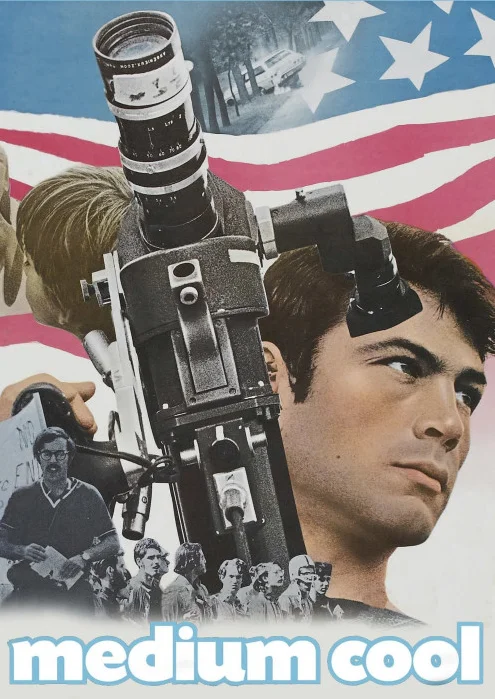
3/16:
Medium Cool is a pointless wannabe political picture.
The combination of fact and fiction doesn't work here. Not having a plot isn't beneficial, either. Seeing black
people irrationally force their control over their white counterparts at the apartment has left me feeling
nauseous.
Robert Forster has done a good job of making the film watchable. However, his character needs to be more
developed. Either way, it's the lack of plot that ruins everything.
All in all, all the political issues covered in Medium Cool were done better in
Network, a far superior film.
Meet Joe Black (1998)
Rate:
9
Viewed:
4/09

4/09:
I remember when the three-hour-long Meet Joe Black received plenty of negative criticism, causing me to
forget about it.
Now, I've taken the chance on it only to come away impressed. Meet Joe Black is similar to
Det sjunde inseglet but is superior because it's less abstract and has
more substance. The latter is just a chess game while the former is about the taste of life that Death wants to
experience.
The pace is deliberately slow as the story is unpredictable from minute to minute. I love the performances, and
they're all wonderful. Yet the range of emotions the thespians have shown is limited. For instance, Brad Pitt has
several expressions. Claire Forlani is either confused or surprised in a loving way. Anthony Hopkins takes the
pensive route by sometimes leaning against the wall or chair. Nevertheless, everybody is perfectly cast. The only
one who stands out is Jake Weber as Drew.
All in all, I thought about giving Meet Joe Black a '10', but I'll reserve my judgment until I see it
one or two more times.
Meet Wally Sparks (1997)
Rate:
3
Viewed:
4/13
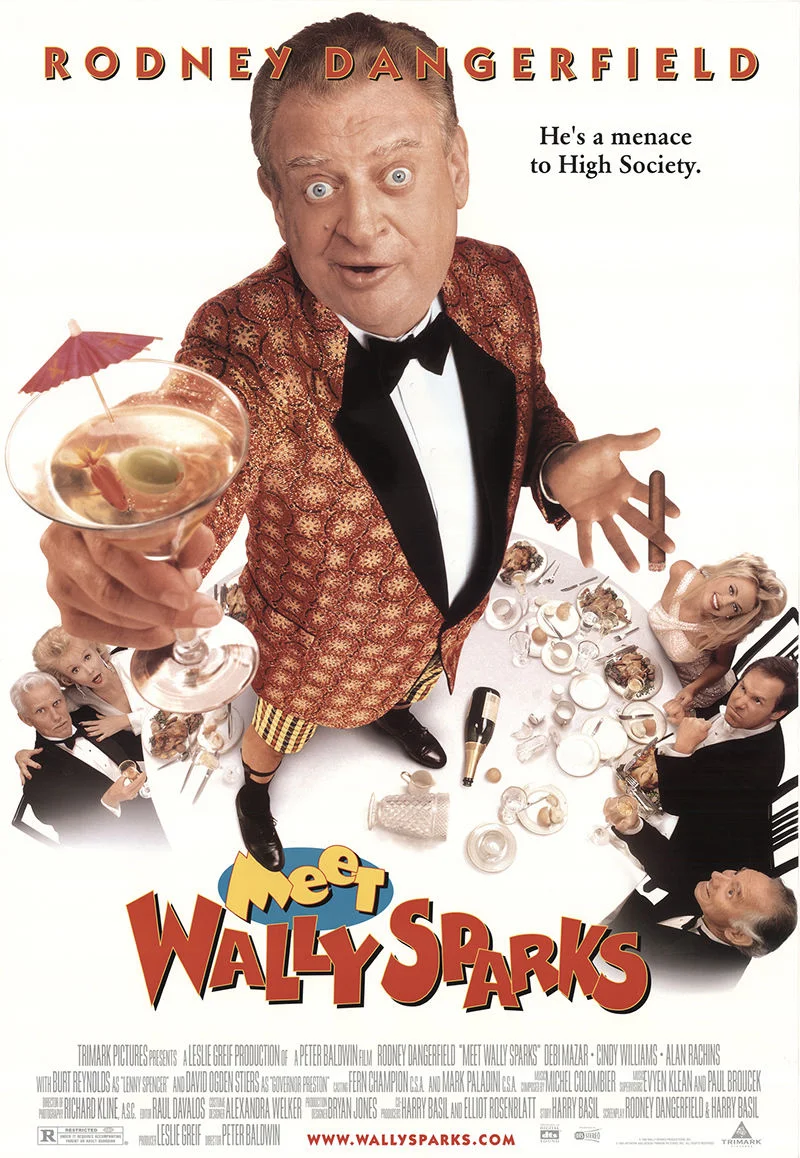
4/13:
Meet Wally Sparks is basically a telling of one hundred penis jokes with none of them funny.
Rodney Dangerfield is archaic when it comes to comedy nowadays. In other words, his brand doesn't work anymore.
Meet Wally Sparks is a hard film to watch because it's not only unfunny but also juvenile.
Thrown into the mix is the necessity for people to be loud and raucous. The story is unlikely, and the outcomes
are impossible. It's hard to believe the movie was made in 1997 when I consider the material to be more
suitable for the 80's.
All in all, this is what Rodney Dangerfield would've said about Meet Wally Sparks: "The film is so bad.
How bad? It is so bad that I am still on a Natural Born Killers
spree."
Megaforce (1982)
Rate:
1
Viewed:
10/25
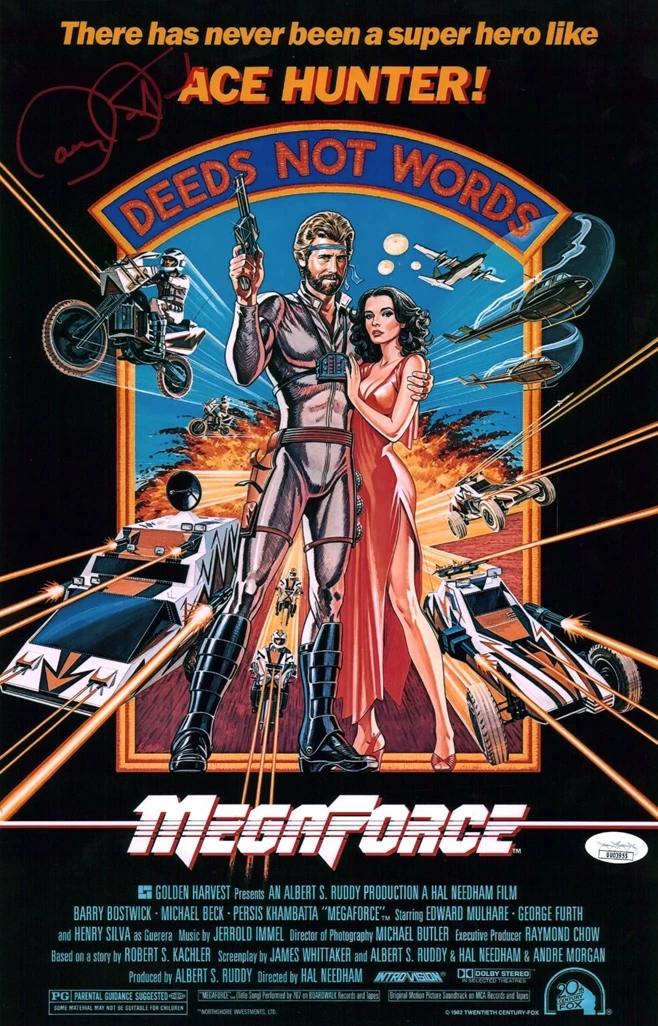
10/25:
I tried not to give Megaforce a '1' for the longest time but finally surrendered at the end.
It's Barry Bostwick going upside down in the air before getting on the plane that forced my hand. Logically,
he would've fallen off his motorcycle. Anyway, the movie is total rubbish in an attempt to be the camp
version of The Road Warrior. While failing to make the plot the
least understandable, the screenwriters try to be clever at wordplay, but it doesn't take.
When Persis Khambatta was in the middle of the desert, I kept being reminded of
The Wilby Conspiracy. The feel is somewhat similar with
Edward Mulhare in the place of Michael Caine. But this time, Persis Khambatta makes a fool out of herself by
doing the stupid thumb thing with Barry Bostwick.
How about Guerera appearing out of nowhere to have a chat with the friendlies? I think it would be a good
idea to either capture or kill him and therefore to end whatever the fuck was going on. Obviously, renowned
stuntman Hal Needham is no good at directing other than Burt Reynolds films, having said the following that
defies belief:
"It's like no other movie ever made before. And the machines we've built are extraordinary. There's one
other thing. Although there's a lot of action, you don't see anyone get killed. I think people are beginning
to get sick of that kind of thing. What we've tried to do here is make an entertaining film with some
believable heroes the public can cheer for."
All in all, Megacrap is more like it.
The Member of the Wedding (1952)
Rate:
4
Viewed:
1/24

1/24:
I can't stand Julie Harris.
The actress often played stupid, mentally unstable characters. The Haunting,
Reflections in a Golden Eye, and
now this: The Member of the Wedding. This time, she's a full-blown kook who's destined to be a killer in the mold of
Aileen Wuornos.
It's easy to be impressed with Julie Harris' acting, but that's because she performed the role 501 times on Broadway; in other
words, practice does make perfect. The movie poster is misleading. Julie Harris was U-G-L-Y in the film.
Plus, the tagline doesn't accurately describe what the story is about. Then, there's the picture of a white guy playing the
trumpet when in fact he's black.
How the characters talk is horrible. It's dialogue for the sake of dialogue just like how it's acting for the sake of acting
and melodrama for the sake of melodrama. Everybody is going round and round and round, and at one point, they break out
singing a pointless song. Honey Camden is in trouble? Who cares? Johny Henry died? What the hell did he do...drink castor
motor oil for fun?
That's why plays often have no place in movies. I don't want to see people in one room, recalling the past which is something they
must have done so many times already. It's stupid, unrealistic, and boring. Worse is Julie Harris, who's
in her late twenties, playing a 12-year-old kid. If she was actually eighteen, it'll be more believable. Remember Ethel Waters
had a black patch at the beginning and mentioned sporting a glass eye. Then, uh...why is it still functioning perfectly?
All in all, The Member of the Wedding is a claptrap of the highest order.
Memento (2000)
Rate:
2
Viewed:
11/03, 3/09

3/09:
Having seen Memento six years ago, I desperately tried to remember what the plot was all about although I knew
it went backwards and the lead character had a bunch of silly-ass tattoos, hence the perfect recipe for IMDb fanboys.
After rewatching the film recently, it's exactly what I remembered. It has a lot of gaps in logic. For example, if Lenny,
who has a memory problem, is driving to locations where he's supposed to be at, won't he, just in the middle of it, forget
where he's going by blanking out?
At one point, the wax residue left on Lenny's Jaguar led me to think he forgot to finish the job. Then later,
it turned out that he stole the car from Jimmy G. So, why would Jimmy G., who's concerned about looks, let the wax stay on
his car? Going backwards, Teddy seemed to know what's going on. So, why wasn't he prepared for what was going happen when
Lenny began to connect the dots?
I notice that during the first half a certain amount of time had been spent on making sure the dots,
while going backwards, were carefully connected. But in the second half, the filmmakers got lazy by letting things
go which caused confusion in the plot. Anyway, whether or not Lenny is telling the truth, it doesn't matter. Jimmy G. is dead,
and Lenny is alive and stuck with his stupid memory problem.
All in all, Memento is G-N-I-R-O-B, G-N-I-S-U-F-N-O-C, and D-I-P-U-T-S G-N-I-K-C-U-F.
Memoirs of a Geisha (2005)
Rate:
3
Viewed:
1/08

1/08:
Memoirs of a Geisha is better known as Memoirs of a High-Priced Japanese Hooker.
That's what the story is all about. You know when a movie was deeply in trouble if nobody of Japanese descent
showed up for the casting call to play Japanese characters.
Yeah, there are nice shots here and there, and the cinematography is decent. But I don't like the story
due to the promotion of prostitution and slavery of Japanese females. I don't see any entertainment value in that. Instead,
it's a bunch of geezers getting their rocks off by banging Japanese "virgins."
Save for the dirty ones, no Japanese words are ever spoken. So much for authenticity. Even worse, the language sounds modern
for the setting that's supposed to take place during the 40's or thereabouts. None of the characters is properly developed.
They just come and go. It's been style over substance which is evident in the silly dance scenes.
All in all, Memoirs of a High-Priced Japanese Hooker is at best a fashion show.
Memphis Belle (1990)
Rate:
9
Viewed:
1/03, 7/04, 11/13, 8/20
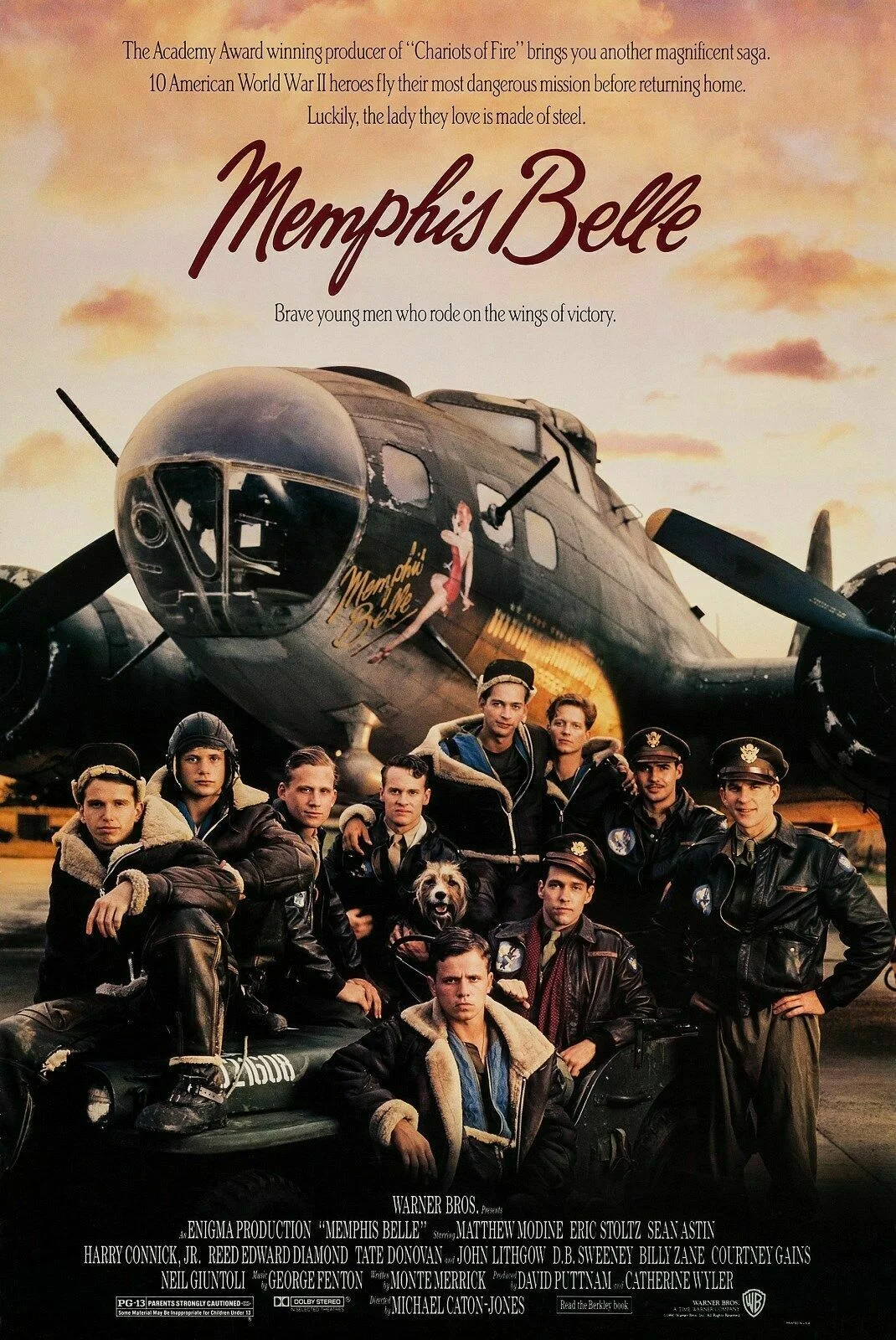
11/13:
One day, I stopped by Wings Stop in Port Isabel, Texas, and looked at the wall which showed an old-style plane.
I immediately recognized it as Memphis Belle because I saw the different gun turrets at specific locations
and finally the picture of a woman by the side of the cockpit. The reason why I knew is that I saw the film.
Memphis Belle is excellent which depicts what bomber crews went through during World War II. It's a dramatic
show because their lives were at stake to serve their country. There's no glamorization at work; it's just
a set of straightforward facts of how the job was done. I like the star-studded cast, and there's a great deal
of teamwork. The final hour is exciting.
All in all, it's a shame that Memphis Belle isn't recognized enough.
8/20:
Although fictional, Memphis Belle is one of the best aerial war pictures made.
Despite the slow first half, there are a lot of things to like: the high production values, the esprit de corps,
the thrilling second half, and the aerial photography. The B-17's are marvelous to look at as the filmmakers took
advantage of five out of eight functional bombers as of the late 80's.
Rarely has a director done a good job of giving enough character development for as many as ten men, but Michael
Caton-Jones did it for Memphis Belle. I appreciate how he made sure I knew the function of each crew member
on the bomber. What a cast. It includes Matthew Modine, Tate Donovan, D.B. Sweeney, Billy Zane, Eric Stoltz, Reed
Diamond, Courtney Gains, Sean Astin, Neil Giuntoli, Harry Connick, Jr., David Strathairn, and John Lithgow. Their
performances are uniformly great. According to Wikipedia in regard to the origins of the plane's name:
"The aircraft was named after pilot Robert K Morgan's sweetheart, Margaret Polk, a resident of Memphis, Tennessee.
Morgan originally intended to call the aircraft Little One, which was his pet name for Polk, but after
Morgan and copilot Jim Verinis saw the movie Lady for a Night, in which the leading character owns a
riverboat named the Memphis Belle, he proposed that name to his crew. Morgan then contacted George Petty at the
offices of Esquire magazine and asked him for a pinup drawing to go with the name, which Petty supplied
from the magazine's April 1941 issue."
All in all, I've seen Memphis Belle many times going back to 1990 and will continue to do so.
The Men (1950)
Rate:
7
Viewed:
2/06, 3/24
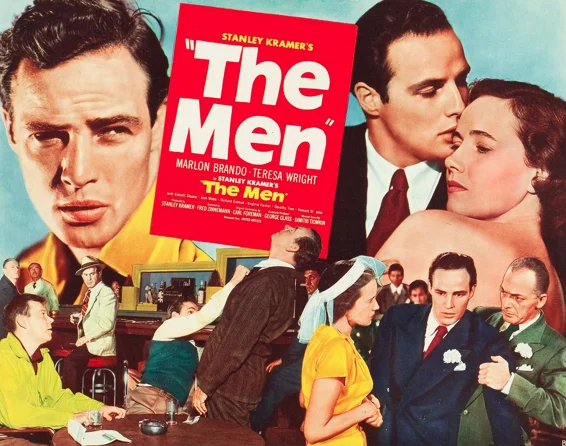
2/06:
Marlon Brando makes his screen debut in The Men directed by Fred Zinnemann.
It's an educational picture about paraplegics who suffered from spinal cord injuries caused by the war (it doesn't
make a difference which one it is). Hence, it has done a fine job of exploring the psychological trauma of what it's like
to be paralyzed and the stigmata these men will carry for the rest of their lives.
It's almost impossible to predict the trajectory of Marlon Brando's greatness in what's a mediocre picture. Had the
director given him more screen time to develop his character, The Men might have turned out better.
All in all, you shouldn't expect anything out of the ordinary from Marlon Brando in The Men.
3/24:
Raising my rating from '4' to '7', The Men is Marlon Brando's first film.
His performance is above average but is nothing special. It's impossible to see any trace of greatness in him if his acting potential should
be judged from this piece of work alone. That's why he first made his mark in the theater world which would be
fully realized for his next film: A Streetcar Named Desire.
Marlon Brando did what future Method actors would do: research and then become the character. So, he spent a month at a
V.A. hospital without ever moving his legs and learned everything the paralyzed vets did. During one night, he hung out with
them at a bar, and there was a "Jesus Freak" lady who urged everybody to believe in the power of prayer. Brando got tired of it that he decided to play a
trick on her by getting up but falling down as if he was too weak while she urged him on. All of a sudden, he jumped up,
danced a jig, and left the place while she stood there in shock.
Anyway, the movie is nice and all, and I have no reason to doubt the accuracy. The subject matter is interesting, but it's hard
not to think of two future outstanding films: Coming Home and
Born on the Fourth of July. What
The Men is missing the most is powerful performances. Thus, it's turned into a straightforward semi-documentary just to say
this is how they can do it.
By the way, how people stared at Brando in wheelchair at the restaurant is strange because I don't see what the big deal is. Hence,
they need to grow up. Also, Arthur Jurado, who plays the muscular Angel, was actually paralyzed, but it didn't happen
during fighting. He was involved in a plane crash returning to the United States which is too bad. He died thirteen years later
at the age of 39.
All in all, the only reason The Men sees the light of day is Marlon Brando making his screen debut.
Men at Work (1990)
Rate:
3
Viewed:
1/06

1/06:
Men at Work lacks intelligence and has many characters with little chemistry among them.
Although it has some sense of humor, the subplots aren't interesting to follow. Annoying is the idea of villains appearing
as caricatures. The simple thing to do for the garbagemen is report to the police of a dead body during their
trash collection. There's no reason to make a big deal out of it.
Ex-Platoon actors, Keith David and Charlie Sheen, are too good to appear in this crap. Hence, they should've
done other films that are commensurate with their acting talents.
All in all, Men at Work doesn't fly.
Men in Black (1934)
Rate:
7
Viewed:
11/07
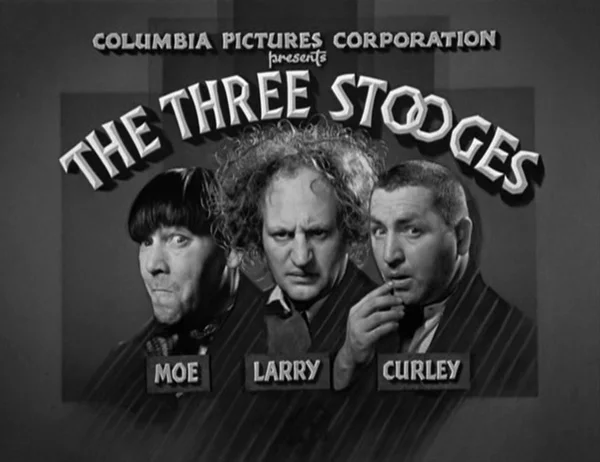
11/07:
"Calling Dr. Howard, Dr. Fine, Dr. Howard" is the most memorable line of Men in Black.
It's zany and wacky that left me laughing.
All in all, Men in Black is heads and shoulders above most shorts from the Three Stooges.
Menace II Society (1993)
Rate:
9
Viewed:
4/05, 4/07, 2/22
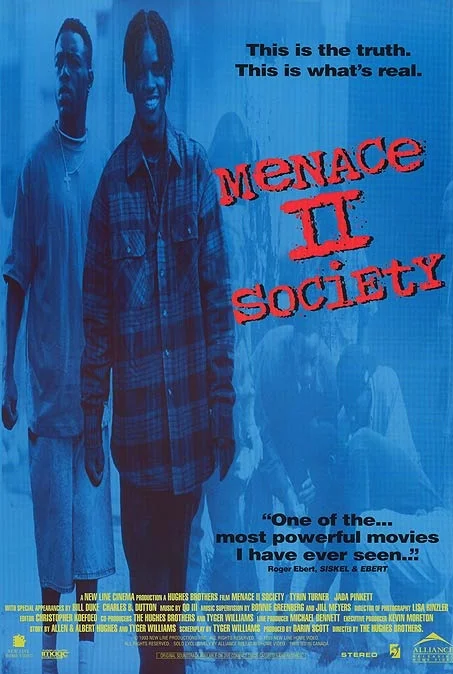
4/07:
Menace II Society is a Boyz n the Hood wannabe.
Tyrin Turner is talented when it comes to spitting up blood while being carried by people as they make their way in the
emergency room. Terrible characters, redundant story, average acting, and lame dialogue have plagued the film.
There's nothing unique, serving as a reminder that "this is how black teenagers live in the projects, and it's
what they grow up with." Okay. So? Move out. Get an education. Go to the library. Do something productive.
All in all, Menace II Society is a rehash of everything that happened in Boyz n the Hood.
2/22:
Heavily influenced by Boyz n the Hood, Menace II Society goes around the same block by presenting a survival
story in the black ghetto.
The direction by Allen and Albert Hughes is strong. It's absorbing to follow Tyrin Turner's steps as Caine
"Kaydee" Lawson. Hence, the movie becomes real this way with a killer soundtrack to boot. These people are dangerous, hence
the title Menace II Society.
If anybody deserves an Oscar nomination, it's Tyger Williams for his screenplay which is fresh and original. Tyrin
Turner, Jada Pinkett, and Larenz Tate (who could've scored an Oscar nomination in his feature film debut) are unforgettable. I
wasn't rooting for any of them. Two are criminals and should be in prison for life while the female, although pretty, is
too clueless to be helped. When Caine died at the end, it's what he deserved. He had plenty of chances to stop but didn't heed
anybody's advice.
All in all, I used to think that Menace II Society was a rip-off of Boyz n the Hood, but it's excellent
in its own way.
Mephisto (1981)
Rate:
7
Viewed:
11/17
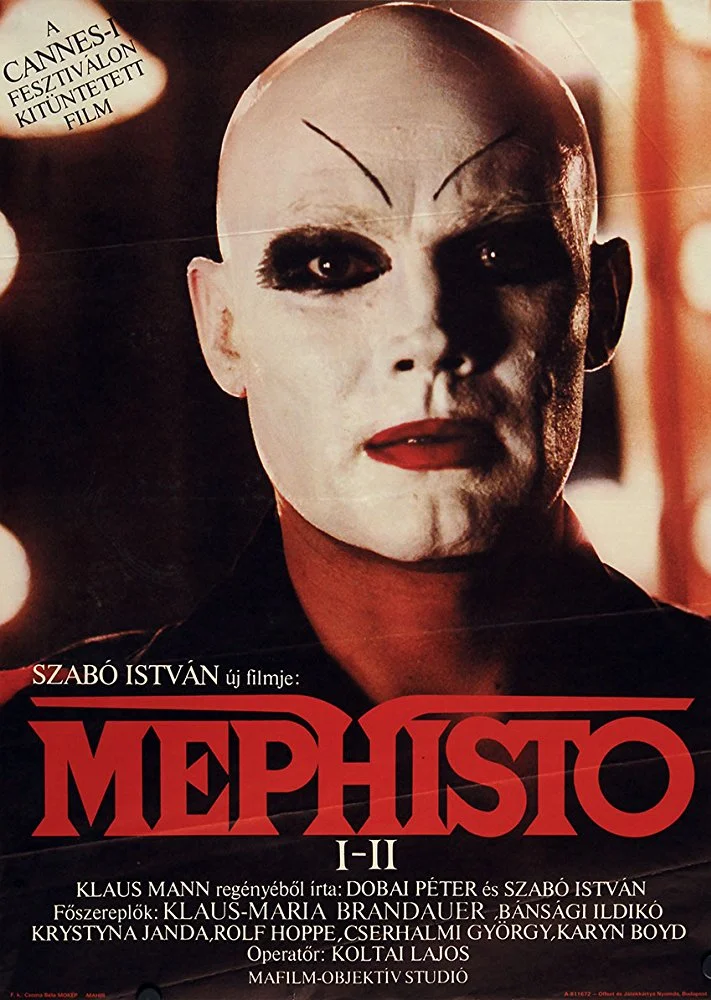
11/17:
I knew for a long time that Klaus Maria Brandauer made his mark in Hungary's Mephisto, the 1981 Oscar
winner for Best Foreign Language Picture, but hadn't come around to seeing it until now.
When I did, Klaus surprised the heck out of me by showing a lot of range that I never knew he had. He sure did
a great job of being an inflexible actor in later films. Getting whatever during the awards shows, Klaus
deserved it, and he should've been awarded an Oscar nomination. It's simply a tour de force.
My chief reason for giving the film '7' is that it reminded me a lot of
Cabaret with Liza Minnelli. There are many similarities that are hard to
overlook. But still, Mephisto is interesting and I've enjoyed the story which contains a Faustian twist.
All in all, Klaus Maria Brandauer's performance in Mephisto is astonishing.
Mercury Rising (1998)
Rate:
7
Viewed:
10/14
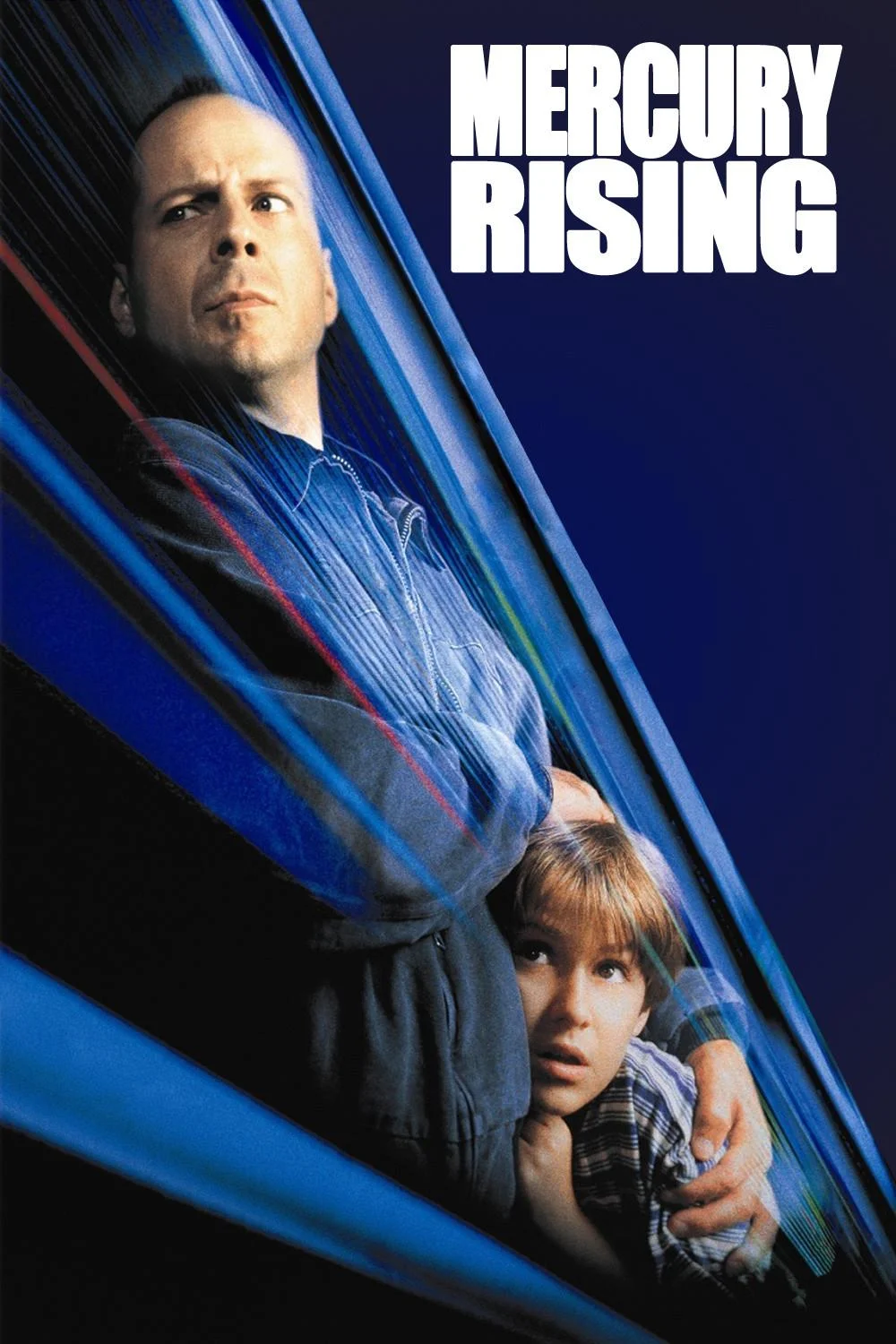
10/14:
Starting off inconspicuously well, Mercury Rising sets up Bruce Willis' character as the ousted FBI
agent who's scarred by the sight of two idiot teenagers killed in a botched bank robbery scheme.
Then, I'm taken to Chicago to observe a boy with autism cracking a billion-dollar code that came from some
obscure puzzle book. Finding out about it, the NSA honcho wants the boy killed because he can't bear the
thought of his genius. Finally, the thrilling chase is on as soon as Bruce Willis saves the boy. The longer
it goes on, the more I think about how absurd the plot is. Seriously, are you kidding me?
The government is, all of a sudden, threatened by the fact that a nine-year-old boy with autism is able to break
the uncrackable supercode, and he should be killed for it? I doubt the kid is dangerous because he has absolutely
no idea of what he just did, for Pete's sake. What if the NSA kills him and finds out there's somebody else who
can do it, too? Do they kill him? And the next one? Maybe the real question should be: why did the flunkies at
the NSA publicly release a code sample, even if the system cost a billion of dollars to create? Worse yet,
how can a code system be worth that much? How about...redoing it? Duh!
How the film ended is no surprise. Of course, the good guys win, and the bad guys lose. Bruce Willis does
everything as he can to enliven the pace, and he's a good action star. It's shame about Alec Baldwin for not
getting enough screen time, appearing in maybe three scenes altogether, because he had the delicious villain
part going. And no, Miko Hughes doesn't have autism although he looks familiar, having starred in
Pet Sematary and
Cops and Robbersons as a wannabe vampire.
All in all, as difficult as it's to swallow the premise, Mercury Rising is an above-average thriller
that devotes a chunk of time to the chase of a nine-year-old autistic boy who sits atop the National Security
Agency's terrorist list.
Merrill's Marauders (1962)
Rate:
7
Viewed:
6/24

6/24:
I knew I could depend on Samuel Fuller when it came to war pictures.
He had a first-hand knowledge by experiencing it during WWII and thus directed
The Big Red One. It certainly shows in Merrill's Marauders. The key difference is
his honest insight into what war is really like which means no John Wayne bullshit. Realities of fighting in Asia involve
tropical disease, battle fatigue, hunger, morale issues, sleep deprivation, and mental and physical breakdown.
The first hour is boring, but as soon as Brigadier General Frank D. Merrill has a meeting with his men for
the next assignment which is capturing Myitkyina, that's when the film starts to take off. The rest of the way is close to being on
the same level as Platoon. Hence, the achievement is impressive in terms of what the men had to
endure by going to the very limit. I like the cinematography which was handled by William H. Clothier that was shot on location
in the Philippines.
By the way, I wondered why I hadn't seen Jeff Chandler in any more films during the 60's and onwards. It turns out that he suffered
a back injury from playing baseball on the set but pressed on while being filmed in pain as he received injections and that he
had to have surgery afterwards but died when an artery was accidentally severed, causing him to hemorrhage. Jeff Chandler was
42 at the time.
All in all, Merrill's Marauders is among the most realistic war movies made.
Meteor (1979)
Rate:
3
Viewed:
7/24
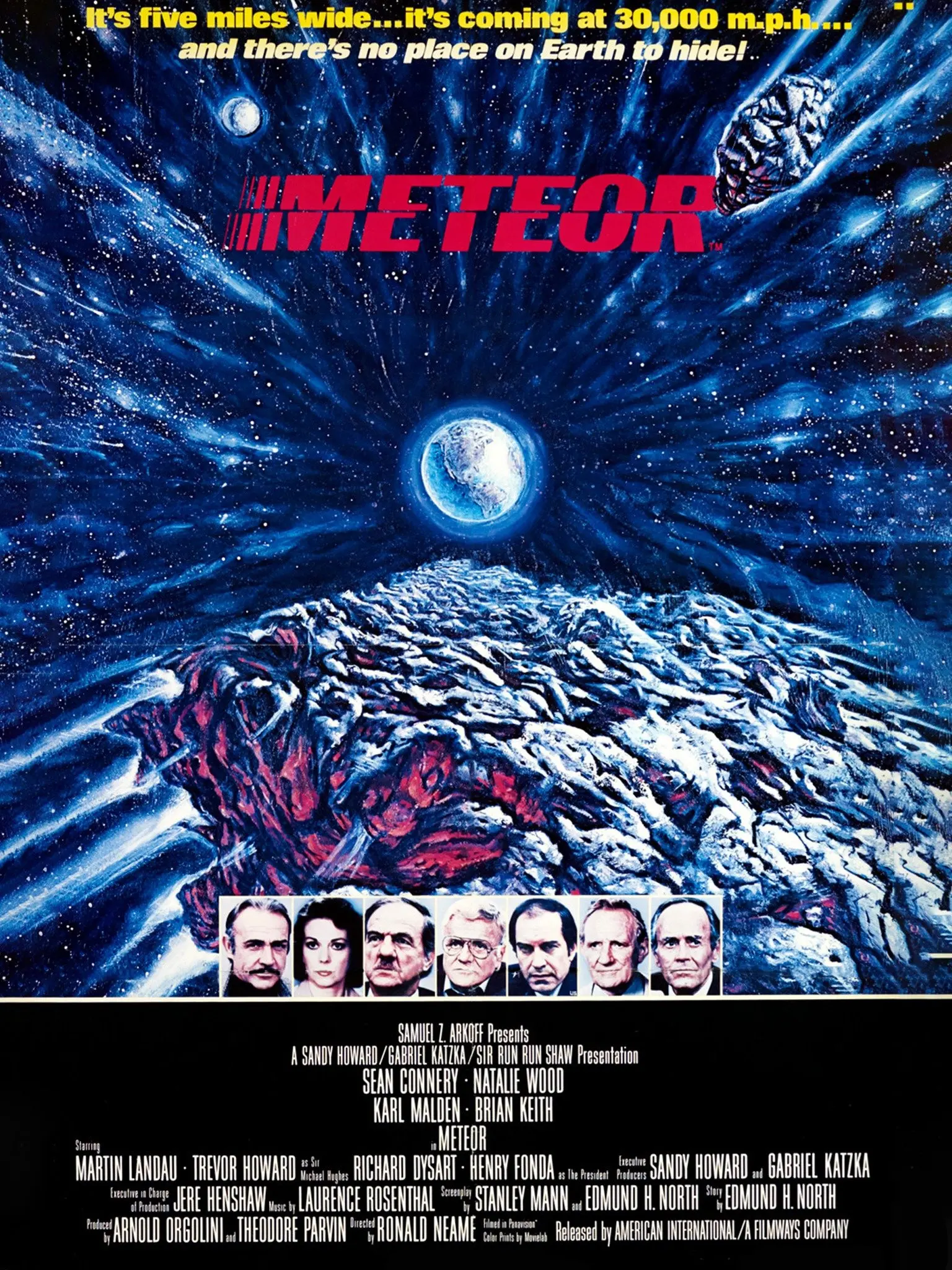
7/24:
The tension throughout Meteor is curiously lacking.
A five-mile-long meteor is coming to hit Earth, and everybody is calm about it? Also, they've taken the time to
make a board showing its movement? Sean Connery's character is immediately ordered to help out, but all he can
do is woo a Russian female translator.
If a bunch of small meteors have hit several cities, does that alter life on Earth? In the meantime, I'm pretty
sure anyone with a powerful telescope can see a satellite up there that's equipped with nuclear warheads.
The cast is very strong which includes four Oscar winners (three wouldn't know this until years later): Sean
Connery, Karl Malden, Martin Landau, and Henry Fonda. Unfortunately, the style of editing has drowned them out
as it prefers to show the slow-moving rockets and the five-mile-long meteor many times.
The special effects are a mix of okay and terrible, ultimately dating the film to the 50's. Everybody getting
drenched in mud is the only good part. Now, that's what I call "action." I wondered if Natalie Wood and Brian
Keith spoke Russian, and they actually did.
All in all, Meteor is roughly on the same level as Armageddon, but
Deep Impact is the best of the genre.
Metropolis (1927)
Rate:
3
Viewed:
6/07
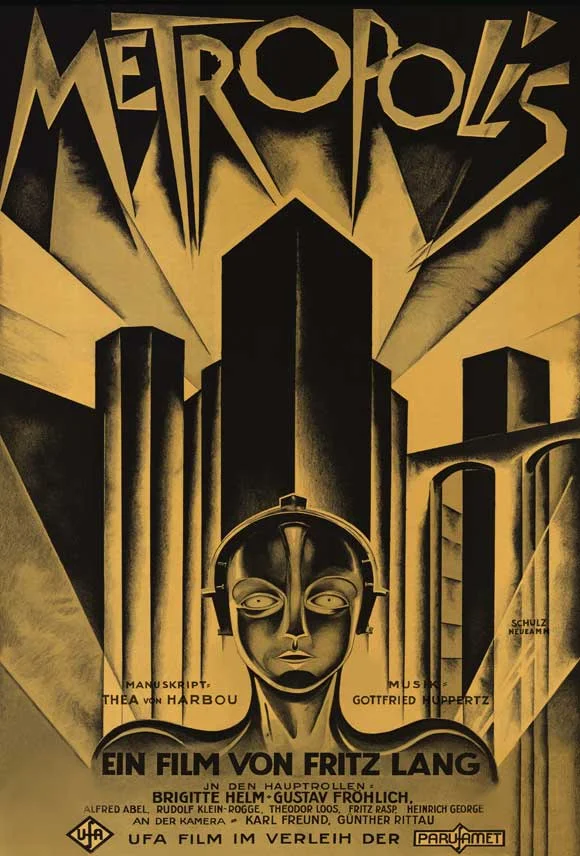
6/07:
Metropolis starts out well with a strong first half but collapses during the second half.
It's like a musician composing a beautiful piece of music for a while and then, all of a sudden, deciding to trash his work
for the fun of it. The special effects is outstanding, but the story needs work. It would be
a good idea to pick up the pace, too, because I was falling asleep a lot.
All in all, Metropolis is instantly forgettable.
Mi vida loca (1993)
Rate:
5
Viewed:
10/20
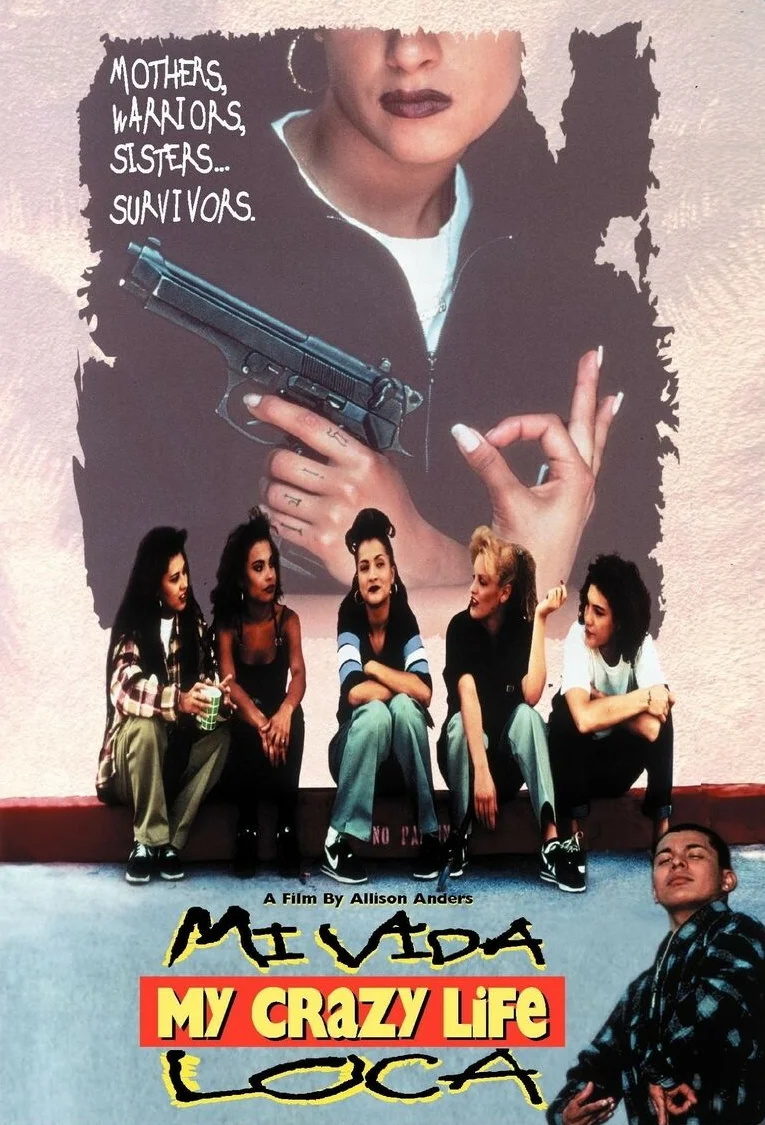
10/20:
Recently, the pseudo-news channel CNN ran a series of specials, covering selected movies of each decade, and
for the 90's, some of them were directed by Allison Anders.
My first thought was: "Who the fuck is she?" I was alive throughout the decade and saw so many films, but her
work absolutely escaped me. Yes, I had heard of Mi vida loca, Spanish for My Crazy Life, yet
dismissed it for many years until now.
The first thirty minutes is bad; Allison Anders jumps around too much in terms of the lead characters. Every
time she tries to establish one, the narration is abruptly passed on to somebody else, ruining the overall
buildup. It's a frustrating experience. Nevertheless, the acting is good with Salma Hayek making her screen
debut before becoming an overnight star in Desperado a couple of years
later. Many of the cast members were nonprofessional thespians and came from various gangs around Los Angeles.
The next problem is the depiction of the characters' lives. Before I'm about to say something negative, the
authenticity is high; I have no doubt that this is who they were back then, right down to their overdone makeup,
terrible hairstyles, and silly life choices. But I don't care about them. However, it's true that a good movie
should document a period of any culture before it'll disappear forever.
Saturday Night Fever is a perfect example of this.
The chola culture that Allison Anders captured for this film is unique and won't be duplicated. Telling it
from a woman's point of view is the biggest strength. Two similar films,
Blood In, Blood Out and
American Me, were done through the lens of male characters. Therefore,
I'm going to give her some respect for changing the direction.
All in all, if I could care about the characters or Allison Anders didn't jump around so much in the
storytelling department, Mi vida loca might have worked out better.
Miami Blues (1990)
Rate:
8
Viewed:
5/08, 11/21

5/08:
Miami Blues is a weird, upbeat, and quirky cult film that works well during the first half and then
falters the rest of the way.
I'm disappointed about how the momentum Alec Baldwin had built up dissipated. He's marvelous as the
psychopath. Jason Jennifer Leigh is also wonderful as his despondent and dimwitted yet loyal girlfriend.
When I think of their relationship, I think of the stories of how murderous couples get together because the
boyfriend is the aggressor while his girlfriend is eternally fascinated by him. That's why the ending line
"He had good qualities..." is a perfect touch although Susie didn't experience the other side of him because
she never saw it happen.
Having Fred Ward on board hurts the picture a lot. He isn't right for the material, making me prefer
somebody who's more serious. Plus, Fred Ward isn't the star of the movie; Alec Baldwin is.
All in all, Alec Baldwin is the best thing about Miami Blues.
11/21:
Here's an underrated Alec Baldwin movie that's much along the lines of
À bout de souffle: Miami Blues.
However much it tries to focus on Fred Ward, who cares about him? He isn't the star; Alec Baldwin is.
Jennifer Jason Leigh simply got sucked into his charisma. Miami Blues is a great movie about a con man
who's also a psychopath. No matter what, he's likeable.
The most interesting moment is Junior getting shot during the random convenience store robbery. It's when he
stopped feeling invincible and started becoming vulnerable, putting an end to the escape of his illegal behavior
for so long. The best part is when Alec Baldwin was on the bed while making a mockery of Al Pacino's voice from
Scarface.
All in all, Alec Baldwin's performance is the number one reason why Miami Blues works.
Miami Vice (2006)
Rate:
7
Viewed:
12/16

12/16:
I grew up watching Miami Vice during the 80's.
It was the TV show of the decade that changed everything, shedding off the 70's feel and look, especially
in fashion, dialogue, and style. Since then, there had been no revival of it until Michael Mann decided to do
a movie when Jamie Foxx first came to him with the idea featuring a completely different cast.
After seeing the film, my feelings have been mixed. Maybe I started out with the five stages of grief: denial,
anger, bargaining, depression, and acceptance. Don Johnson and Philip Michael Thomas will always be Sonny
Crockett and Ricardo Tubbs, respectively. They were brilliant together, and their chemistry was fantastic.
With Colin Farrell and Jamie Foxx stepping in as their replacements, I was like, "Really?" Needless to say, it
didn't work. I'm going to be fair and say the former (he was actually suggested by Don Johnson to replace him)
isn't a bad actor. He has talent, but there's something about his personality that doesn't work. If Colin
Farrell can just let go this inflexible whatever, he'll be on his way to delivering Oscar-worthy performances.
In Miami Vice, I've tolerated Colin Farrell from start to finish and think he has done a good job. He
didn't overact or do anything ridiculous. Pretty much, he was subdued, restrained, and kept himself even-keeled by
being cautious. Jamie Foxx, on the other hand, is atrocious and doesn't belong in the film. He has no chemistry
with his co-star and is more of an afterthought. It would've never happened with Philip Michael Thomas if the
movie was made in the 80's during the show's heyday. He and Don Johnson shared equal time, and their
characters were treated equally in importance.
The best part, which is all Michael Mann, is the use of authentic locations. It's what makes
Miami Vice overall. I was sold by it in order to accept the film, regardless of the cast change. That's
why I could move forward and go with the flow, soaking in the logistics, the setup of the operation, and the
players moving to their positions.
However, the story is at best implausible and at worst stupid. Why would the head honcho and his subordinates
agree to meeting Sonny and Ricardo? How did they earn their respect to make it happen so quickly? What kind
of cred did they have? Who could front them? Although it's a running joke of the TV series, why would Sonny and
Ricardo use their real names before going undercover? During the movie and from the DVD interviews, I heard
so much talk about fabricated identities, yet their real identities, especially Crockett's due to his college
football playing days, would've been discovered on the internet in a matter of seconds.
The shootout, which is similar to Heat, is at once realistic and unbelievable,
yet the amount of potential firepower doesn't match what
should've happened. It's almost like everybody, based on their guns and the size of the ammunition, are able
to slaughter the vehicles with that much gunfire which makes hiding behind them moot. At one point, Sonny ran
from one point to another out in the open. Um, why? He would've been instantly killed.
Next to Jamie Foxx, Gong Li, who's 11 years Colin Farrell's senior, is the most miscast. She doesn't belong and
is an Asian who happens to speak Spanish? Are you kidding me? Worse, Li has no chemistry with Colin Farrell,
and their characters don't seem to be madly in love with each other. It feels more like a business transaction.
How he handled her character at the end puts the film's rating in danger. The real Sonny Crockett would never
done it, preferring to arrest her and have her taken away with no thought on the matter. She's a criminal,
plain and simple.
Don Johnson's Sonny Crockett was a man of principle and put his job above everything including money, drugs,
power, and fame because his code of conduct, as a member of the Metro-Dade Police Department, was important to
him. Hence, the ending is bullshit and unlike him. With that being said, I've decided on weak rating of '7'.
The technical details, the location shoots, and the cinematography (in fact, I didn't see anything that felt
remotely CGI which is impressive) have worked for me. But Gong Li, Jamie Foxx, and certain story aspects are
liabilities, dragging down the film.
All in all, Miami Vice is a commendable effort by Michael Mann in this day and age of CGI, but he forgot
to focus on the story, most especially the dialogue despite many script rewrites, and the chemistry of the cast.
Michael Collins (1996)
Rate:
3
Viewed:
7/08
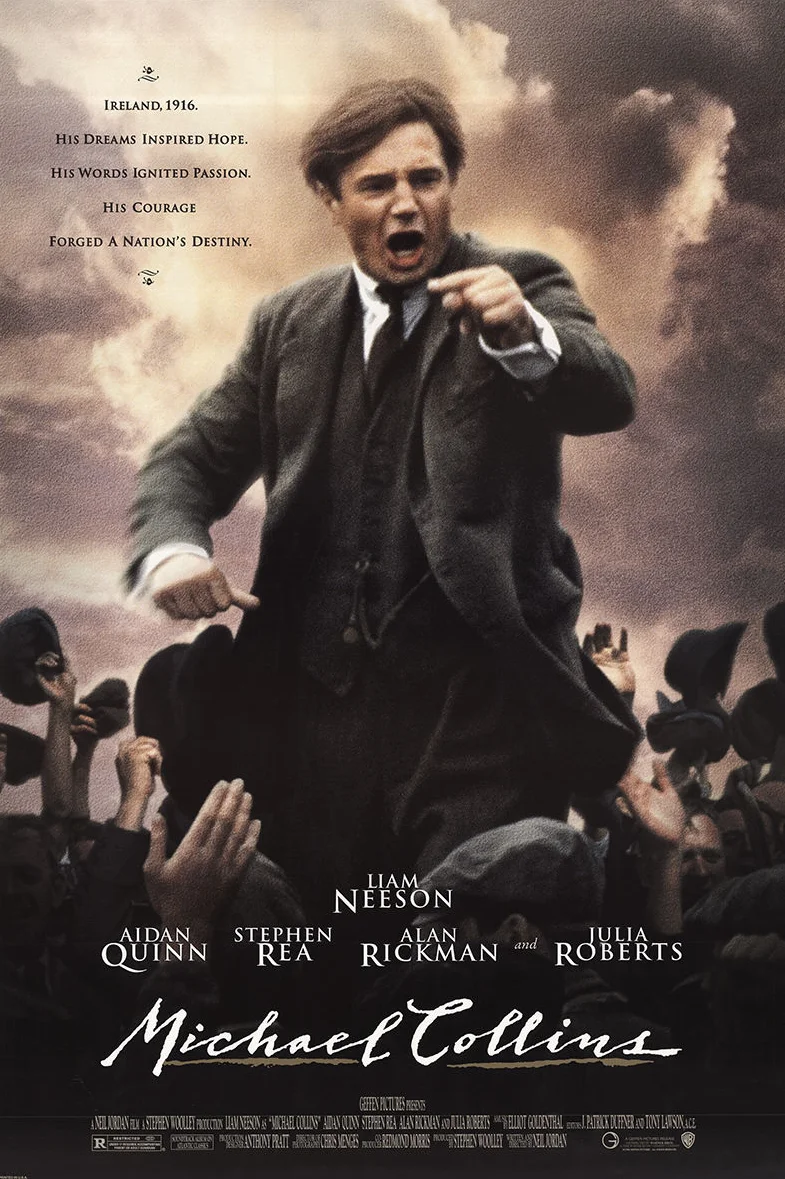
7/08:
Oh, no.
Not another Reds. Zzzzz...it's what Michael Collins is all about.
Beyond that, I don't give a fuck about the IRA. It's nothing but a terrorist group.
What a boring biopic of a man who helped bring independence to Ireland. Neil Jordan's direction is the reason
why because of his lack of understanding in how to bring energy to the characters, how to make the story
informative, and how to connect with the audience. For a majority of the time, he's more interested in the
cinematography by making sure it's blue all the time while neglecting the pace.
Liam Neeson is harried in his movements, and Julia Roberts tries to be Irish as much as possible. That being
said, why does Joel Schumacher keep coming to my mind? Aidan Quinn continues his personal vendetta from
Legends of the Fall. I don't like
Alan Rickman's performance because he's focused on enunciating the words as slowly as possible.
What a disappointment because I initially selected the movie for him.
The development of the events as shown is minimal. When Michael Collins died at the end, I didn't care. I was glad
the movie was finally over because it was too long with many false endings.
All in all, Michael Collins didn't help me learn about the man himself that much.
Michael Shayne: Private Detective (1940)
Rate:
5
Viewed:
2/09
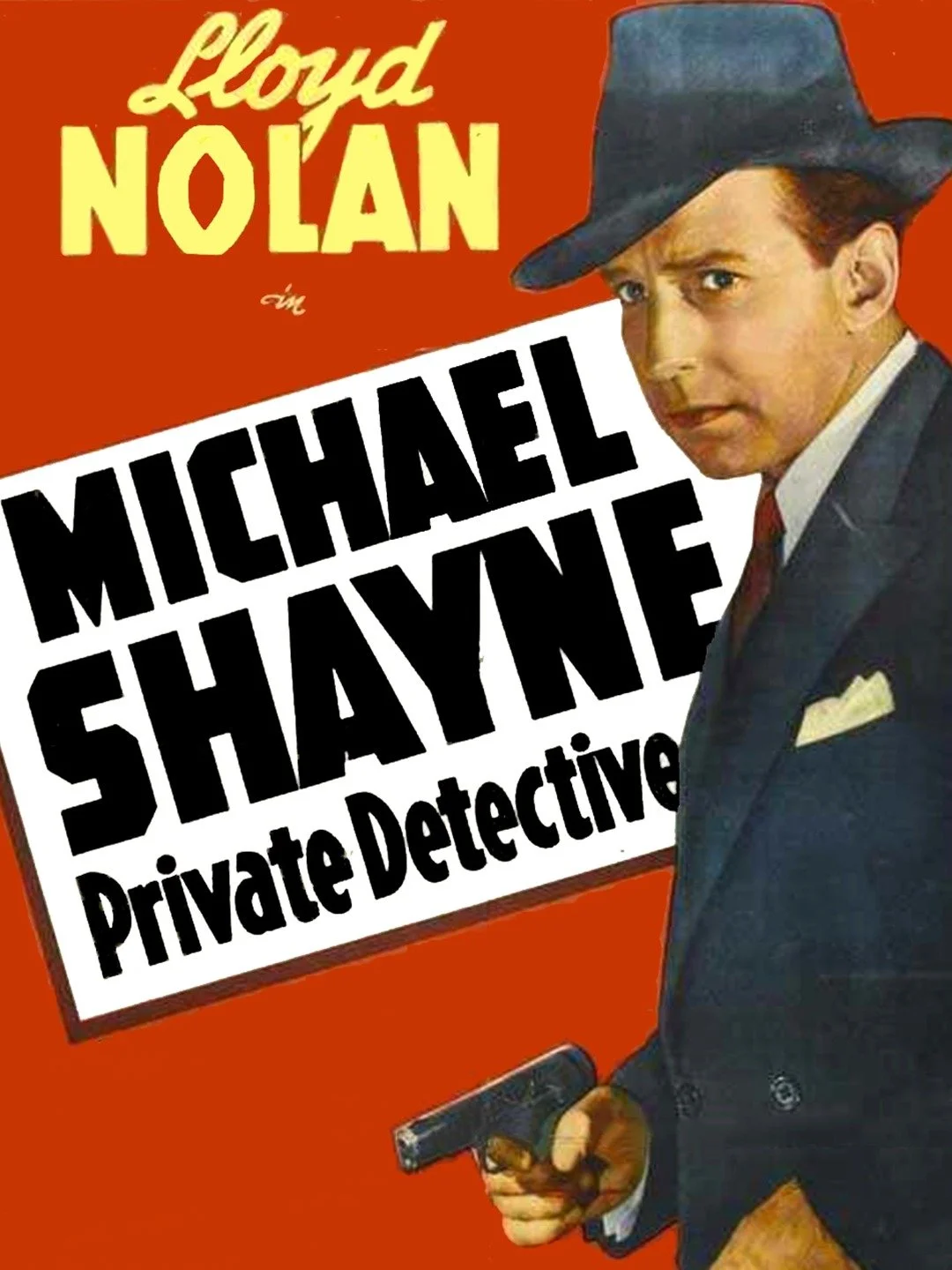
2/09:
Lloyd Nolan in the leading role?
You have to be kidding me. Michael Shayne: Private Detective sucks, and Lloyd Nolan sucks. I can't get over
how bizarre the storyline is. It was making less and less sense to me. The vaudeville antics by the chief and
his assistant are annoying.
All in all, Hollywood should've nixed the idea of giving Lloyd Nolan a top billing because he was anything but.
(2017 Author Note: If you want a clear indication of Lloyd Nolan's unpopularity,
Michael Shayne Mysteries: Volume Two still hasn't been released in DVD.)
Micro-Phonies (1945)
Rate:
7
Viewed:
11/07

11/07:
Micro-Phonies is another decent film short from the Three Stooges.
It generates a lot of laughs as usual, and the plot is ingenious. Due to his failing health, Curly looks different.
Having appeared in many such shorts, Christine McIntyre is beautiful.
All in all, Micro-Phonies is one of the better ones in the Three Stooges' filmography.
Midnight Cowboy (1969)
Rate:
10
Viewed:
8/06, 7/16, 5/20, 9/21
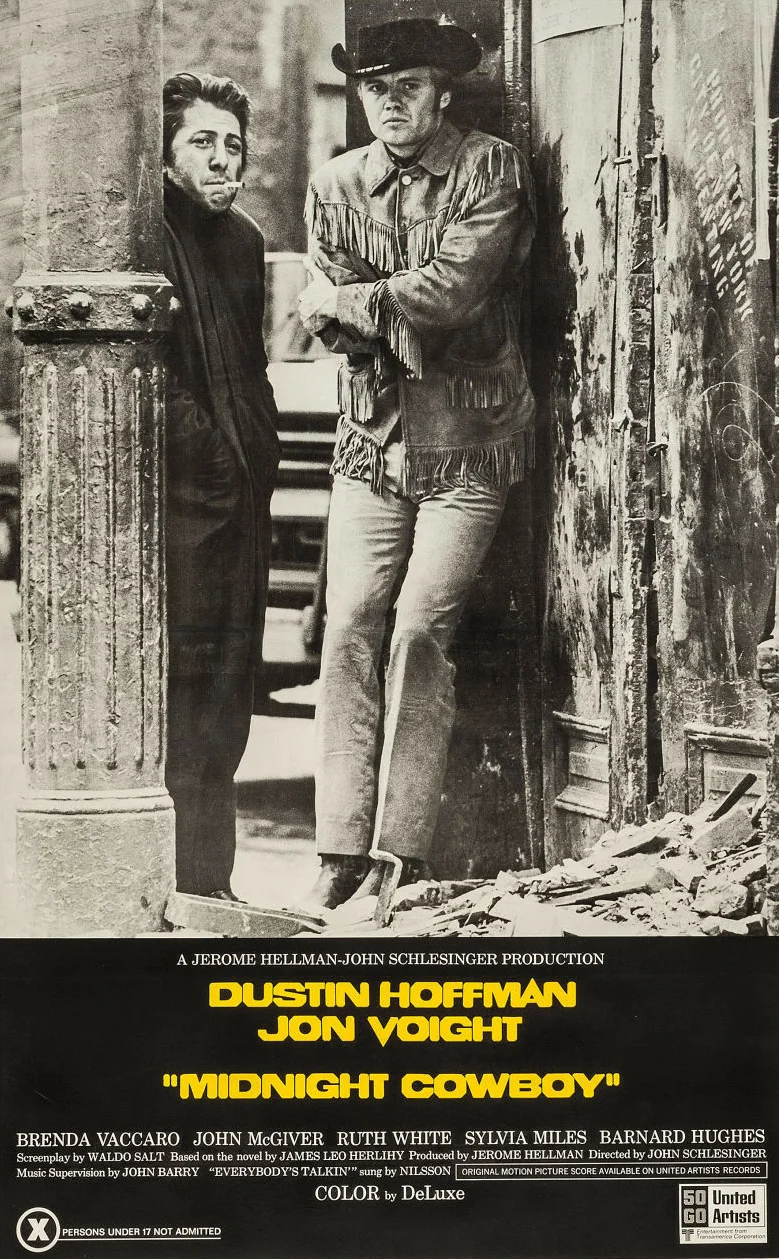
8/06:
Midnight Cowboy is an all-time great classic.
Jon Voight and Dustin Hoffman give the best performances of their careers. They'll be forever remembered for this film.
It's a study of human nature: hopes, broken dreams, disillusionment, desperation, suffering, loneliness, and loss of innocence.
They're brilliantly read on Jon Voight's face. And Ratso knew all about it because he, too, went through the same thing
a lifetime ago.
The "I'm walkin' here! I'm walkin' here!" scene is the difference maker when it comes to being awarded the Best Picture in
1970. It got everybody's attention and set the tone.
Recently, Jon Voight had an interview and was asked what changes would have to be made for Midnight Cowboy if it was
filmed today. He thoughtfully said, "I'm sure it would been a gay picture." Well, you know what? That's true.
The result was Brokeback Mountain. Because of the Americans' fragile mentality today,
Midnight Cowboy isn't good enough for them anymore. But back then, it was an arresting film.
All in all, Midnight Cowboy is the hallmark of Jon Voight's and Dustin Hoffman's careers and remains one of the most
important pictures made.
7/16:
Midnight Cowboy is the most unconventional Best Picture winner and remains the first and only X-rated
picture so to be honored.
If not for Dustin Hoffman's spontaneous "I'm walkin' here! I'm walkin' here!" reaction, chances are
things might have turned out differently. When he did it, greatness came out, and Jon Voight recognized it instantly. His on-screen reaction was
genuine before he ran over to the director and yelled at him, "Did you get that? Did you get that?"
Jon Voight may given the performance of his career, but it's Dustin Hoffman who's even more brilliant. It's hard to
capture this kind of acting that he showed for Enrico "Ratso" Rizzo because he makes every scene special with his pitifulness.
The story is about a wannabe hustler who gets outhustled by everybody. It's sad and funny at the same time.
There's a great deal of neo-noir when Joe and Ratso are down on their luck and aren't too smart to figure
out some practical solutions. In other words, they're human beings. "Pathetic" is the first adjective that comes to my mind
when describing these two.
By the way, Waldo Salt, who won the Oscar for adapting the screenplay, went on to pen
Serpico,
which was Oscar-nominated, and Coming Home, an Oscar winner, with both of them being all-time classics.
All in all, John Schlesinger hit the gold in Midnight Cowboy, a masterpiece that Jon Voight and Dustin Hoffman
will be forever remembered for.
5/20:
Midnight Cowboy features two hopelessly stupid characters that don't know any better when it comes to taking care of
themselves.
At the end, Joe Buck said, "'Cause, hell, I ain't no kind of hustler. I mean, there must be an easier way of makin' a livin'
than that." Yeah...like getting a job when he could've done that while living in New York City instead of freezing himself
to death in some condemned rathole building. His friend had a clear case of pneumonia and should've went to the hospital;
because he was indigent, it would have been free for him.
No matter what, it's an outstanding picture with the best acting ever from Jon Voight and Dustin Hoffman. The Academy screwed it
up when they put latter in the Leading Actor category when he was really a supporting actor, and he should've won the Oscar.
It's a top ten performance of all time. His "I'm walkin' here!" scene is still unforgettable.
I'm not sure what the people were thinking of when they decided to label Midnight Cowboy an X-rated picture. It seems
tame today, perhaps not much stronger than a 'PG' picture. Playing a big role in the inflation of Joe Buck's idealistic
mind, lots of advertisements and moments reflecting the pop culture are still true in this day and age, and they're empty
as ever.
Remember the scene when Joe Buck said, "John Wayne is a cowboy! Are you calling John Wayne a fag?" Yeah,
well...True Grit's John Wayne beat both of these guys for the Best Actor Oscar. Unsurprisingly, John Wayne called their
characters a couple of "fags" but commended their acting.
All in all, I feel bad for Joe Buck, and I think he can do way better.
9/21:
Before seeing Midnight Cowboy again, I read a book called Shooting Midnight Cowboy: Art, Sex, Loneliness, Liberation,
and the Making of a Dark Classic by Glenn Frankel who provided a lot of insider info.
A few important myths are finally dispelled:
One, the taxi scene was actually in the script, but Dustin Hoffman's reaction was spontaneous, causing him to ad-lib the
famous line: "I'm walkin' here! I'm walkin' here!" The actor has lied so many times about what happened over the years
which explains why nobody, except for the filmmakers, knew the true story.
Two, the film was never X-rated to begin with; the ratings board had already decided on 'R,' finding nothing objectionable,
but the promoters decided otherwise for more effect which worked anyway. Technically, Midnight Cowboy isn't the
first X-rated picture to win Best Picture. Going forward now, no film will ever accomplish the feat.
Three, Jon Voight and Dustin Hoffman weren't the original choices although it's obvious that they were perfectly cast. The
success of The Graduate eventually made latter a shoo-in for the role although he did show up as Ratso for the audition
which helped in cementing the deal. As for the discovery of Jon Voight, Marion Dougherty never got the credit,
causing her to be angry when she insisted he be used over everybody else including Michael Sarrazin who was the primary
choice all along. When Michael Sarrazin's agent found out that his client had been selected for the role, he started talking about figures,
forcing United Artists to nix the idea immediately and go with Voight instead. After Sarrazin found out
what happened, he angrily ripped the phone out of the wall and, of course, fired the agent.
I don't know why anyone says Midnight Cowboy is a homosexual picture because it's certainly not. The plot is about
two guys who are down on their luck and decide to rely on each other for moral support. That's all there's to it. Although
I can understand why John Wayne hated the movie, he, to his credit, thought the acting by Jon Voight and Dustin Hoffman was
terrific even though both lost to him when he won the Oscar for True Grit. The transistor radio carried
by Jon Voight in the film was a new thing at the time, but he recorded the voices of various Texans for his research
and played the tape endlessly until he got the accent down pat.
There are several weird scenes that had been finally explained in the book. The pet thing on TV was actually caught by
one of the the filmmakers by random chance who yelled that he had to have it in the film. Another episode that's highly
memorable as it happened to John Schlesinger: while touring Sunset Boulevard one day, he saw a woman doing this crazy
behavior with her toy mouse and therefore decided he had to have it in the film. He did the same after seeing a
man lying face down on sidewalk in Manhattan. The rape scene involving Joe Buck and Crazy Anne was left ambiguous on purpose;
it's just something that happened in Joe's past.
The party scene was staged by Andy Warhol's Factory members. Andy himself was going to appear, but he got shot
by Valerie Solanas, the writer of SCUM Manifesto, during the time which eventually led to a movie called
I Shot Andy Warhol. So, they did the whole thing for a week or so without
him, and Andy Warhol was pissed off for missing it. All the scenes in Texas, New York City, and Florida were shot on location although the run-down
apartment was done on a soundstage.
Back to Midnight Cowboy, it's a true 60's New York picture that made legends out of Jon Voight and Dustin Hoffman.
It'll never be old. Before then, John Schlesinger was making European crap with Julie Christie prior to coming to
America for the first time. When Midnight Cowboy was released, it immediately became a timeless classic while everything
else that he did had been forgotten not long afterwards.
All in all, John Schlesinger was having a nervous breakdown one day, worrying about the potential failure of
Midnight Cowboy, and Jon Voight came to snap him out of it by boldly declaring, "We will live the rest of our artistic
lives in the shadow of this great masterpiece."
Midnight Crossing (1988)
Rate:
5
Viewed:
5/20
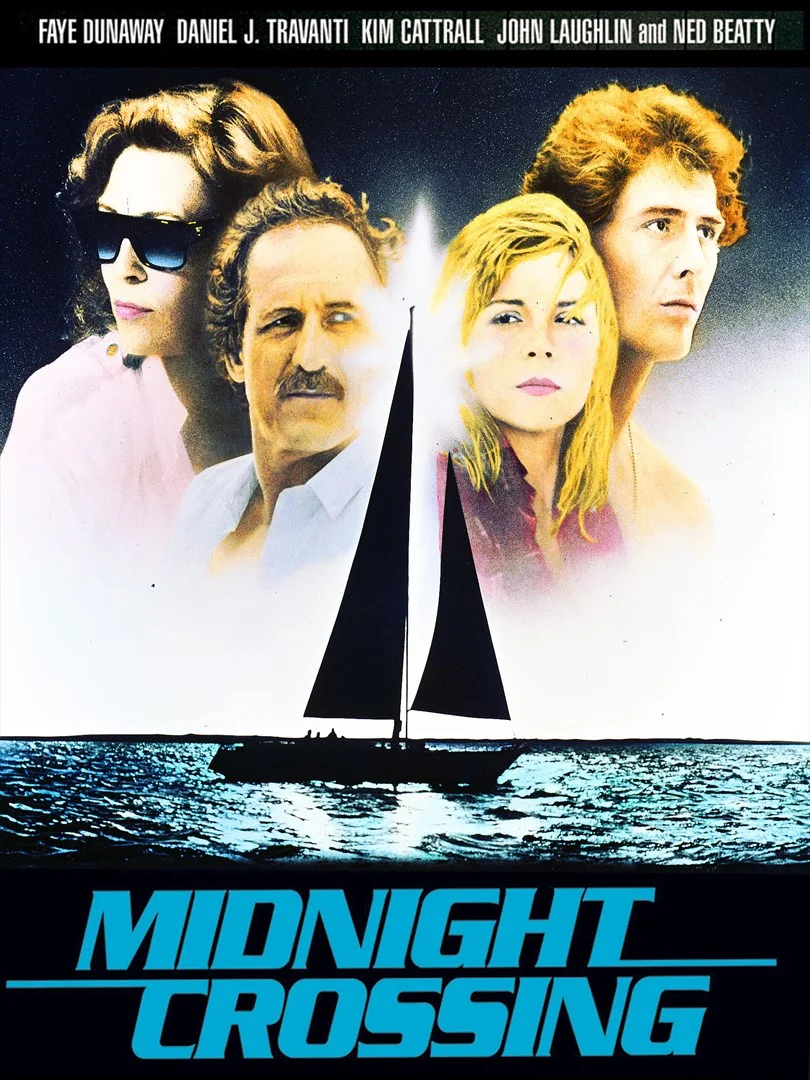
5/20:
Just when everything was going well, Midnight Crossing found a way to fall apart completely.
At the beginning, there was a feeling that it was going to be another "Let's Have Stupid Fun" 80's picture based
on how John Laughlin was acting. Recovering from the bad start, things started to get better, thanks to
Faye Dunaway who's my initial reason for picking up the film because she's a pro and a very good actress.
After the momentum finally gained traction, Midnight Crossing was entering into the neo-noir territory. There's
a nice appearance by Ned Beatty, Faye Dunaway's co-star from
Network, reminding me how good of an actor he was, but
his overall on-screen time was brief. By the time the four characters arrived at Rayo Verde, a remote island that's
supposedly forty miles from Cuba, it's when the film was about to hit the climax. Once at the shed, how the incident went
down marked the beginning of the end for Midnight Crossing.
From there on, it got stupider and stupider, making me feel like I was back on the boat in
Friday the 13th Part VIII: Jason Takes Manhattan with the worst attempt ever at fog effect despite the weather being
relatively calm with fake thunderstorms in the background. Characters were getting shot left and right with bullets and
harpoons, and they managed to come back and be full of vitality. And of course, just as I suspected, Faye Dunaway's character
turned out to be not blind the whole time.
If there's anything to like, the acting is satisfying. A near Christian Bale look-alike, John Laughlin is the
star of the show, displays commendable acting chops, and has a wonderful rapport with Faye Dunaway. Providing some edge,
Daniel J. Travanti and Kim Cattrall aren't bad.
Unfortunately, it's the plot that's dumb. Twenty years later, the dead body is still in the locker with money under the
floorboards? I don't think so. People would've stopped there from time to time and had their fun with the shed, vandalizing
it in the process. By the time the four characters make their landfall, the poor building should give an appearance of having
been beaten like a dead horse.
All in all, Midnight Crossing is a waste of thespians who put forth their honest effort in an attempt to
make it a nice addition to the neo-noir genre.
Midnight Express (1978)
Rate:
9
Viewed:
2/06, 10/23

2/06:
Wholly average, Midnight Express is a better and more aggressive picture than
Brokedown Palace.
Papillon set the standard for this type of film, but Midnight Express falls short in comparison although it
has one great scene when Billy Hayes tore out Rifki's tongue.
Although not right for the role in Midnight Express that's responsible for killing off Turkey's tourism
industry which hadn't recovered since then, Brad Davis would be famous overnight, setting off a decade of heavy
drug and alcohol abuse, only to be found dead from assisted suicide in 1991 at the age of 41 due to AIDS-related complications.
The story is interesting and all, but I've mustered no sympathy for Billy Hayes because he broke the law.
Ever heard of the adage: "If you can't do the time, don't do the crime"? "Does the punishment fit the crime?" is irrelevant
here because he's not in the United States anymore. Billy traveled to a foreign country where laws are different, no
matter how illogical they are. Just respect them, don't cause problems, and leave quietly. Life is easier this way.
All in all, Midnight Express did a lot of irreparable harm to Turkey.
10/23:
Midnight Express is a gritty picture about serving time in a foreign prison where anything goes just like its cuckoo
criminal justice system.
Although shot on location in Malta, this is the notorious film that single-handedly ruined Turkey's tourism industry.
I can see why. After all, who would want to go over there? Yeah, I don't sympathize with Billy Hayes. He broke the law and had to
pay the price. What's not mentioned is that he was smuggling drugs from there for some while.
Great acting is evident, but the cinematography is more of a stunner. John Hurt may have been Oscar-nominated, but I think he
did fine. Rather, it's Brad Davis who steals the show. He's famous for the film, rightfully so, because of the tongue-ripping
scene. Having done nothing else of significance, Brad Davis died of assisted suicide in 1991 after he was diagnosed
HIV-positive.
All in all, Alan Parker isn't a great director, but Midnight Express is the best movie that he has ever done.
Midnight in the Garden
of Good and Evil (1997)
Rate:
2
Viewed:
9/08

9/08:
Oy vey...Midnight in the Garden of Good and Evil is one of the worst pictures that Clint Eastwood has ever directed.
What a fucking long title. So is the running length which lasts for three hours. To me, it felt twice as long.
This one is so dreadfully boring that it goes on and on and on and on. Where's the action? Where's the mystery?
Where's the tension? What's the point?
Why is there so much screen time for Chablis "I Must Top That Bitch from
The Crying Game" Deveau and Minerva? Kevin
Spacey looks silly with the fake-ass toupee. Because of his mustache, he looks like that guy in the black leather
get-up from the Village People.
I honestly don't care about the people who live in Georgia. Fuck their stupid University of Georgia. And I don't give a rat's
ass about the history of the South. Who the hell cares about all of them? On the other hand, Jack Thompson's performance as
Sonny Seiler is excellent, saving the movie from getting a '1' from me.
All in all, Midnight in the Garden of Good and Evil is an overlong hopeless mess.
Midnight Run (1988)
Rate:
9
Viewed:
6/16, 10/25
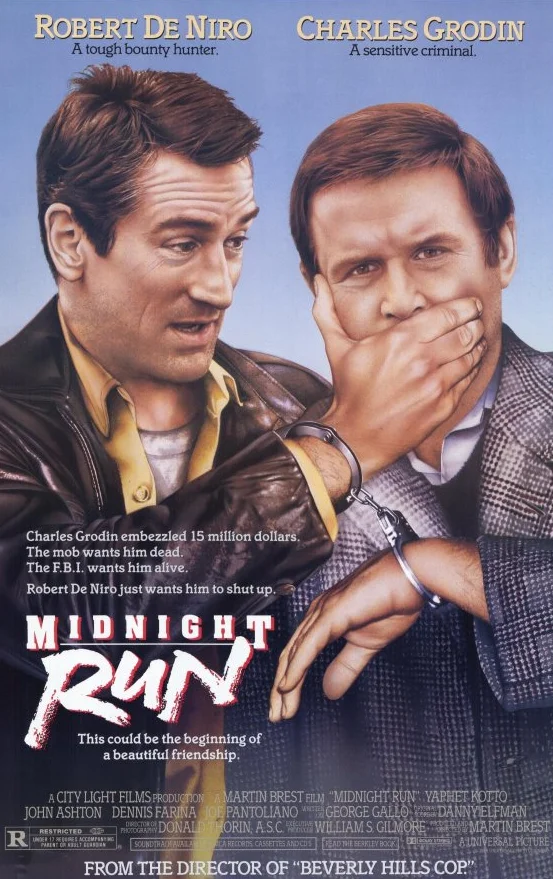
6/16:
Midnight Run is high quality with a good story to boot.
A lot of people might say Charles Grodin was the show, but I thought Robert De Niro was the one who made
the picture as it is. The latter is actually funny. When he has a witty line or a good moment, he makes the most
of it and leaves a lasting impression. At times, his character reminds me of Travis Bickle from
Taxi Driver.
The supporting performances are strong: Charles Grodin, John Ashton, Yaphet Kotto, Joe Pantoliano, and
Dennis Farina who's in Miami Vice form.
All in all, Midnight Run is a solid odd-couple-on-the-road picture that's spontaneous and subtly funny.
10/25:
If anybody says Robert De Niro isn't much of an actor without being weird or disturbed, he's strongly
advised to see Midnight Run.
It's an impressive movie with lots of ups and downs to pull off a success in the bounty hunting mission.
Kudos to Martin Brest for his direction. He milked the supporting cast as much as possible to elicit
strong performances: Charles Grodin, John Ashton, Yaphet Kotto, Joe Pantoliano, and Dennis Farina.
All in all, Midnight Run is a well-deserved hit.
The Mighty Ducks (1992)
Rate:
6
Viewed:
9/25

9/25:
Everybody was lucky to have Emilio Estevez on board for The Mighty Ducks.
Otherwise, it would've been much, much worse. I'm sure Steven Brill thought of
The Bad News Bears on ice before finishing the rest of his terrible
script. The formula is painfully obvious as well with too many illegal hits for a kid's game. He's also guilty
of overwriting in the first ten minutes, and I didn't understand what everybody was saying.
After the basic premise is set up, the worst is brought out by the child stars, most especially Brandon Adams
as Jesse. With the exception of Joshua Jackson and Vincent LaRusso, they're all irritating and not funny.
When Emilio Estevez takes control of the situation, the show begins to improve and gets into the groove
before finishing predictably. Lane Smith is also helpful.
By the way, what was the mascot before the team got renamed as the Ducks? The movie doesn't say, so is
everybody telling me it was nameless the entire time? Oh, the championship game at the end? That means it
cost $15,000 to earn the trophy, thanks to Mr. Ducksworth who actually held total power over the team, no
matter which direction Gordon decided on. But this is pee-wee hockey which means...who cares?!?!?
When Hans told Gordon that he scored 198 goals in one season, I did some math in my head. If the team
played 50 games, that would be an average of four goals per game. But 50 games is quite a lot for a little kid.
How about 25? That'll be eight per game. Ridiculous numbers. When Hans showed the standings on the chalkboard
to Gordon, it turned out to be 12 games so far.
Back to the child stars, it'll be easy to mistake Jussie Smollett for Jesse, but he plays his brother. In 2019,
Jussie Smollett made up claims that he was attacked by two men and that they used racial and homophobic slurs
against him. After being outed for it, his reputation absolutely went into the shitter, and he never acted again.
The Hispanic kid who plays the goalie is Shaun Weiss, and he was arrested a year later for burglary while high
on drugs. Then, his mugshot was released, resembling a full-blown meth head.
All in all, The Mighty Ducks may have been popular in the early 90's, but it hasn't aged well.
The Mighty Quinn (1989)
Rate:
5
Viewed:
12/02, 4/04, 5/24
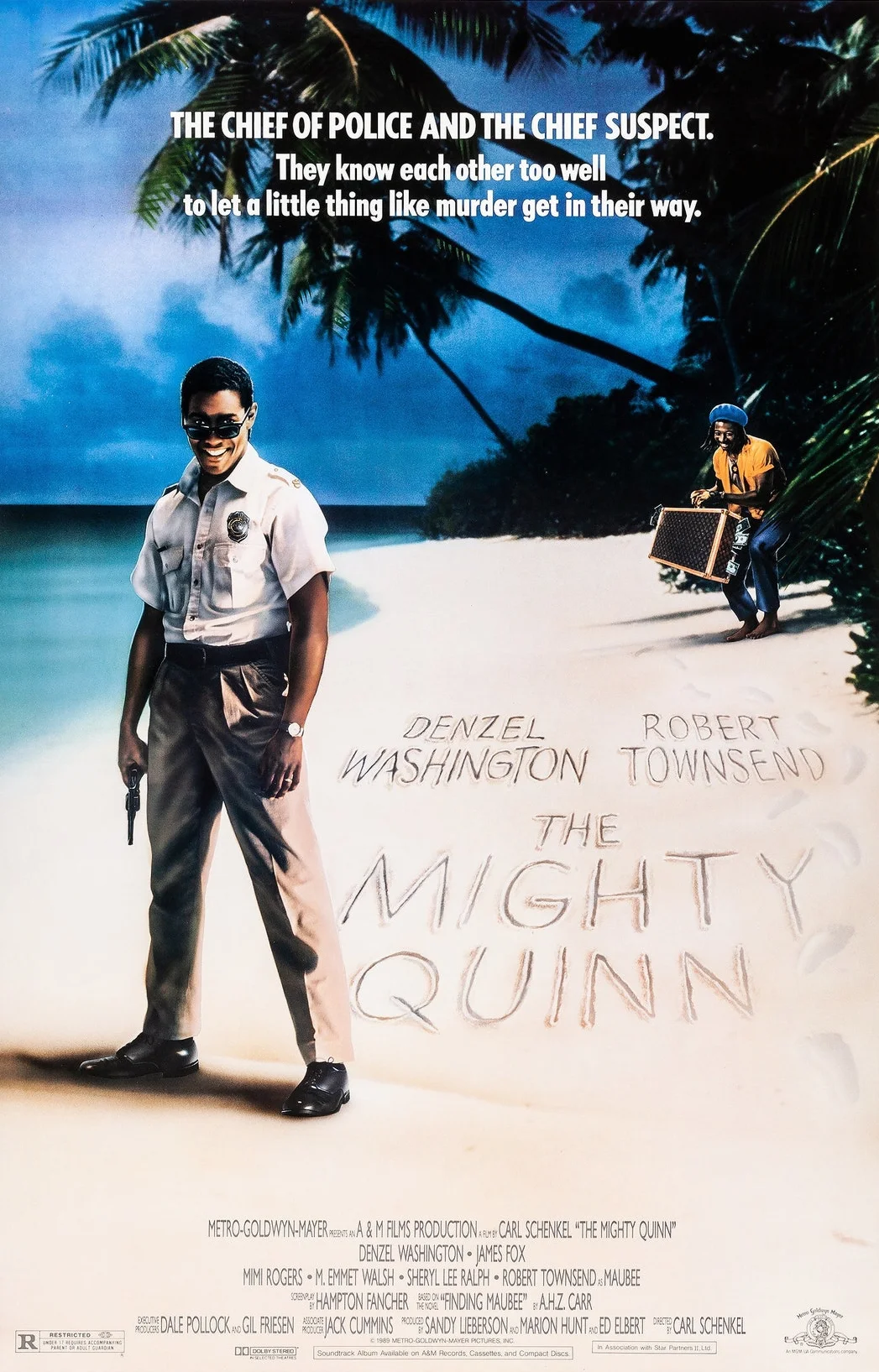
5/24:
Not many people know this, but The Mighty Quinn is the film that made a bona fide star out of Denzel
Washington.
Then, Glory happened, and the rest was history. Anyway, it's a weak
neo-noir that was actually shot on location in Jamaica although there's not much to see of the country.
The convoluted story isn't interesting, and there's neither sex nor excitement to be had. Silly is the
incorporation of Capoeira out of the blue.
Correct me if I'm wrong: if Isola left the poisonous snake in the hotel room which eventually killed Donald
Pater, then she's the murderer, yes? So...arrest her. Not entirely innocent, Maubee is an accomplice
to murder. Why didn't he leave the country with her if they had a briefcase full of $10,000 bills? By the way,
what's the significance of James Fox and Mimi Rogers having larger screen presences if their characters play
small roles in the murder case?
Denzel Washington is fine, but everybody else is too weak to match him. Robert Townsend is miscast because the
role calls for somebody who's larger than life, yet he's so ordinary. That's why he fell off the map after
appearing in the next two giant stinkers: The Five Heartbeats and
The Meteor Man.
All in all, The Mighty Quinn makes for an okay viewing if you want to catch something from the 80's with
Denzel Washington in the leading role.
Mike's Murder (1984)
Rate:
6
Viewed:
8/25
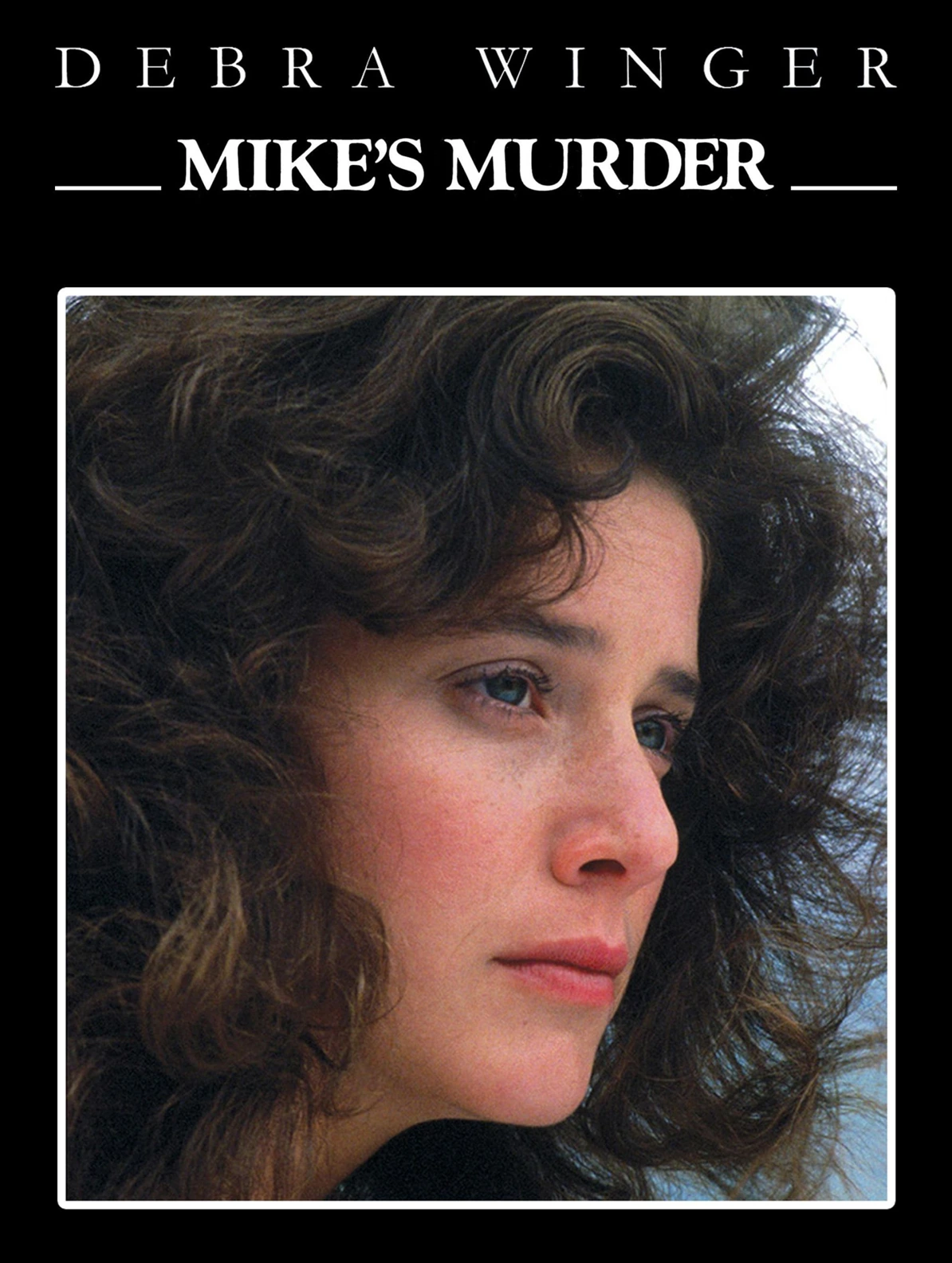
8/25:
Mike's Murder or...Pete's Paranoia?
Either way, it's a strange choice for Debra Winger despite reteaming with many familiar co-collaborators from
Urban Cowboy such as James Bridges, Reynaldo Villalobos, and
Brooke Alderson. For starters, she was in her prime, having a very successful run hitherto that included the
aforementioned film, An Officer and a Gentleman, and
Terms of Endearment, but this is a big step down.
That's not to say Debra Winger performed poorly. On the contrary, she's too polished for everybody with
the exception of Paul Winfield who should've had a bigger role. It's easy to see the wide chasm in acting
ability between her and a couple of guys: Mark Keyloun (a better choice would've been Brad Davis of
Midnight Express fame because of his charisma) and Darrell Larson.
If it weren't for Debra Winger, Mike's Murder didn't stand a chance.
The biggest running issue is the script. It's weak and doesn't do a good job of solidifying
relationships. An example is Betty's with Mike; exactly what comprises their dating history? Some tennis
and a one-night stand? Given their sparse conversations, it seemed like they saw each other once every three
to six months, and she's all worked up over his death? Betty should be well-advised to move on, even to the
point of throwing Mike's pictures in the wastebasket.
Yet the whole thing is entirely believable, especially the seedy drug subculture in a disjointed city. People
can be this stupid. There's a strong neo-noir vibe throughout. Shot on location in Los Angeles, I love
the 80's style that's doubly punctuated by Reynaldo Villalobos' photography. There's a similar film called
Who'll Stop the Rain with Nick Nolte and Tuesday Weld, but such
stories have become redundant by 1984: a drug deal gone bad, causing a few to be in fear of their
lives by running away from it as far as possible.
All in all, Mike's Murder is a fair low-key picture that pretty much rides on Debra Winger's talent.
Mildred Pierce (1945)
Rate:
8
Viewed:
4/14
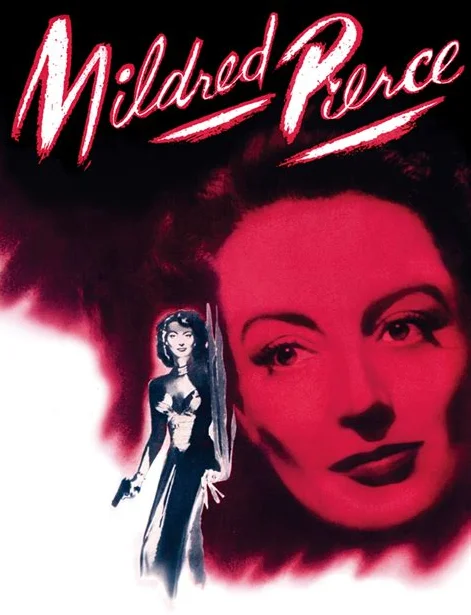
4/14:
And the Oscar for Best Actress in a Leading Role goes to...............Joan Crawford's mink coat!
Mildred Pierce is a misnomer as it should be called Veda Pierce. At the same time, the mother is incorrectly
labeled as the femme fatale when it's her daughter who was. Joan Crawford was, in reality, a poor actress. She displays
a lot of typical qualities that are fitting for a soap opera star. That's why her films aren't appealing.
Meanwhile, Mildred Pierce has a slow start with plenty of hammy acting, is sometimes filled with longueurs, and contains several
far-fetched ideas such as the immediate success of Mildred the entrepreneur. It's also predictable because, after a bit
while of getting to know the rules of the game, the twist is easy to spot.
By the way, if you noticed the house on the precipice by the oceanfront, it was owned by Michael Curtiz which apparently
sank into the Pacific Ocean in 1983. There's an iconic image of Joan Crawford in white dress holding up a revolver.
Yet it never happened in the film. So, why bother showing it?
All in all, Mildred Pierce is worth watching once, but I have a feeling that my reaction will be more negative the next
time I see it.
Millennium (1989)
Rate:
5
Viewed:
1/17

1/17:
For a sci-fi flick, Millennium features an interesting concept that was done better in
12 Monkeys.
Kris Kristofferson is okay, but everybody else, including Cheryl Ladd, is terrible. The story needs work and should be more
friendly to those who aren't accustomed such weirdness.
It's still unclear about what happened to the people who were replaced by their nonliving counterparts before the
imminent airplane crash. The ending is stupid and doesn't make any sense.
At one point, the searchers found the black box at the crash site, and it's shown to be black. That's not true.
The actual color is bright orange for the purpose of making it easy to locate. I assume the adjective "black" is just a metaphor
to describe the serious gravity of the situation.
On the other hand, the special effects are cheaply done and thus should be improved on more. There's no reason to repeat some of
the footage by shooting them at a different angle. Not only the editor includes them but he also shows the same
stuff again during the second half. Come on, that's weak.
All in all, Millennium isn't polished enough.
Miller's Crossing (1990)
Rate:
3
Viewed:
1/18

1/18:
Miller's Crossing is a silly film for little kids and man-children.
Along with the glacial pace, I've become overwhelmed by the high amount of violence, stupidity, boredom, and pointlessness
while searching for a plot that's been devoid of direction. Gabriel Byrne's Tom Regan is beaten up so many times throughout
that he still looks great after all! Riiiiiight....*sigh*
A Tommy gun, the most overused gun in Hollywood history, shoots 1,500 rounds a minute and holds 100 rounds per magazine which
takes four seconds to empty. When the old man was firing it away for six straight minutes without reloading,
that became the end of the movie for me.
All in all, films directed by the Coen brothers have been either hits or misses, and Miller's Crossing is of the latter
and is just trash.
Million Dollar Baby (2004)
Rate:
10
Viewed:
7/05

7/05:
At the beginning of Million Dollar Baby, I was thinking, "Gee, Clint Eastwood has gone mainstream."
But I was proven wrong. It's a very good, if emotionally draining, movie that's deserving of Best Picture Oscar.
This one has strong performances by Hilary Swank, Clint Eastwood, and Morgan Freeman, earning themselves Oscar wins.
It's been long overdue for the one-time Joe Clark who should've had a couple already.
All in all, because of Boys Don't Cry and Million Dollar Baby, Hilary Swank
is the best actress of this generation.
The Million Dollar Hotel (2000)
Rate:
2
Viewed:
11/20
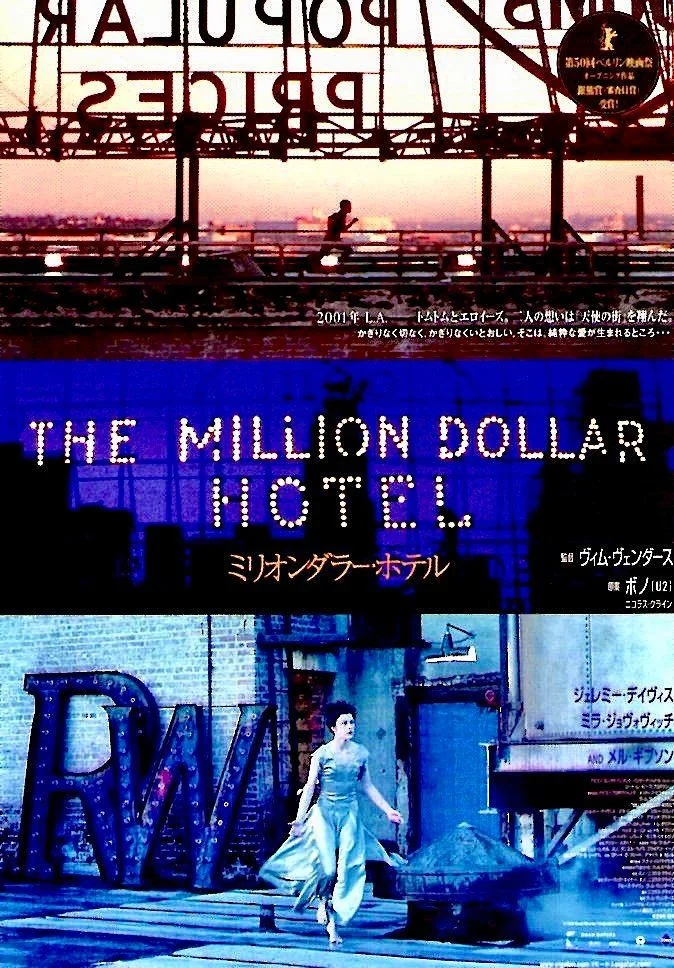
11/20:
Budgeted at $8 million, The Million Dollar Hotel merited a look because of Mel Gibson, but the movie was so
horrible that he called it "boring as a dog's ass" and tried to prevent its theatrical release which ended up
grossing almost $60,000 overall.
Escaping unscathed after the release of Paris, Texas, Wim Wenders is
finally exposed as a hack arthouse director. Because of the threadbare script which was originally conceived by,
of all people, Bono of U2 (in 1987!), I've been jerked around for two hours by the unbelievable gallery of morons.
Labeled as a "retard" by his co-residents, Tom Tom speaks too well to qualify, but his behavior is something
else. As much as I hate their half-witted characters, Jeremy Davies and Milla Jovovich give the best performances,
saving the film from earning '1' from me.
So, this is what Jimmy Smits left NYPD Blue for? You should forget Tim Roth is in this which is
a mere five-minute cameo appearance at the end. I'm starting to realize if Julian Sands is part of the cast,
the film may either work out or be among the worst ever made just like
Boxing Helena and Hotel.
All in all, hey Wim Wenders...you fucking suck.
Mimic (1997)
Rate:
3
Viewed:
10/21
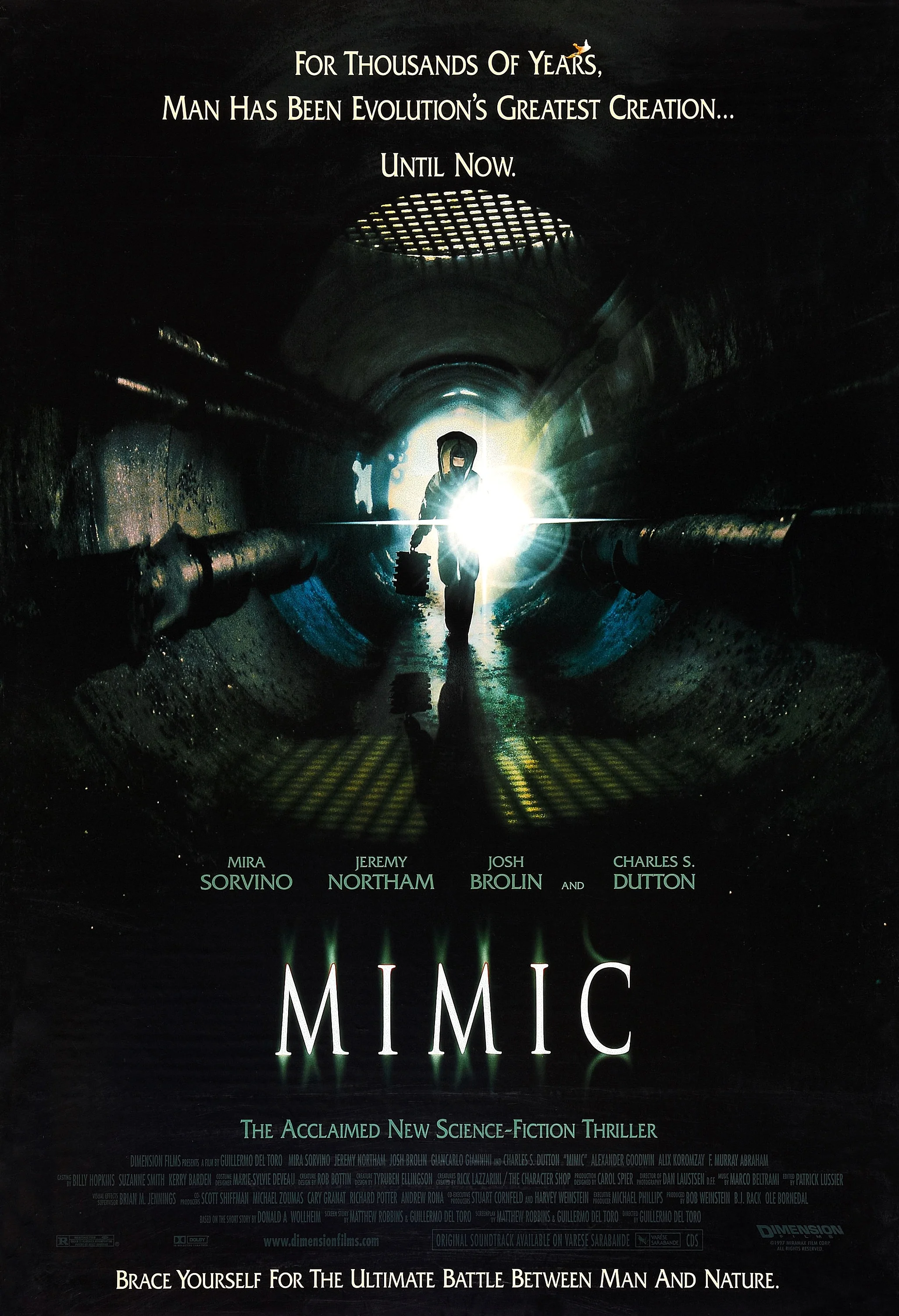
10/21:
Dimension Films produced a lot of crappy horror pictures during the 90's, and Mimic was one of them.
It's an Aliens rip-off, hence the title Mimic. This time, it's about
cockroaches, and they look cheap. There are no scary moments throughout, just a lot of fake tension
amounting to nothing.
I've taken the subway in various cities but have never seen an instance of flashing lights in the waiting area.
Yet this always happens in horror films. Also, the people carry weak flashlights when something like klieg
light will do. Funnily enough, all of the knowledge in the world for the three entomologists doesn't mean a
damn thing when it comes to survival except for one moment.
Nearly every character is annoying, and I don't care about any of them. The worst is Charles S. Dutton who
screams like a whiny bitch with too much profanity. Dude...it's not helping the situation. The Lukas Haas
look-alike takes second place in the Most Unbearable contest. Many kids are killed, but Chuy is okay. What's
the difference here...autism?
I can't believe Peter is married to somebody as beautiful as Susan; what a boring, bland guy. It turns out
that Mira Sorvino and Jeremy Northam hated working together. She isn't good in the film, either, and her
character manages to survive the biggest snatch of them all. F. Murray Abraham is given homework before going
away for a long time. Worse is Alix Koromzay who stopped showing up anymore in spite of getting a lot of
screen time early on.
All in all, Mimic begins with a good idea, but the execution has been piss-poor throughout.
Minority Report (2002)
Rate:
7
Viewed:
3/20

3/20:
I had wondered if Steven Spielberg lost his mojo after directing Saving Private Ryan.
After seeing Minority Report, I'll say that he's back but not quite in the same way anymore. Although it has
a lot of interesting ideas that are along the lines of Blade Runner, the chief crime is visual overload.
Had it been cut down while more time is spent on the plot, the movie might have turned out better.
Steven Spielberg is a master storyteller, but the final half hour is unsatisfying despite the intelligent screenplay.
I just hate the ending, and I hate the fact that Max von Sydow was cast (no disrespect to him) because I immediately
knew how it was going to play out. If Steven Spielberg could think about it more, he would've come up with a good
finish, thus receiving a possible rating of '9' from me.
At the beginning, the film had me wondering if I purchased a bootleg DVD, but after looking up the internet, the
washed-out screen was an intended effect on Steven Spielberg's part. After a while, I started to realize it's probably
a good idea after all because that's what a sci-fi picture should look like for a pulp neo-noir thriller.
Although the eyeball replacement stuff is stupid, Tom Cruise is excellent and perfectly cast as John Anderton. In
fact, he plays Ethan Hunt again, and it's been déjà vu of
Mission: Impossible. In fact, Minority Report
should be the second part of that franchise. Anyway, it's a interesting move to pair Colin Farrell with Tom Cruise
although his character got wasted for nothing toward the end.
The primary theme is invasion of privacy. However, if the precogs can see the crime ahead of time,
then why not educate the soon-to-be murderer and give him a choice? It's exactly what happened to Anderton. Either way, I
don't think anyone should be arrested for a future murder unless there's abundant evidence of preplanning.
All in all, Minority Report is better than The Matrix because of how well it blends
noir and science fiction together while showing lots of new stuff.
Miracle (2004)
Rate:
3
Viewed:
4/07

4/07:
The "Miracle on Ice" is no doubt the greatest American sporting accomplishment in history.
Do I believe in miracles after seeing Miracle? Yeeeeeeee.....no. Forget about everything that captures the essence
which made films like Rocky,
Lean on Me, and The Miracle Worker emotionally powerful. Miracle is
nothing as compared to them. That's probably why Herb Brooks passed away, so he won't have to witness how much of a piss
stain the film is.
I have no idea who the players or what their names are. I heard Jim Craig's name so many times in the final forty-five
minutes, yet I didn't know which actor was playing him. That's the biggest issue: no character development.
Besides the empty scenes, what I hate the most is the constant use of close-ups. I just want the camera to be like
five feet away from everybody, so I can breathe easily. But no, it has to be right up against the screen the entire time.
Kurt Russell isn't bad, but he's ultimately let down by the weak supporting cast and
Gavin O'Connor's poor direction.
All in all, you're better off watching the documentary
Do You Believe in Miracles? The Story of the 1980 U.S. Hockey Team.
The Miracle Worker (1962)
Rate:
10
Viewed:
8/06, 2/17
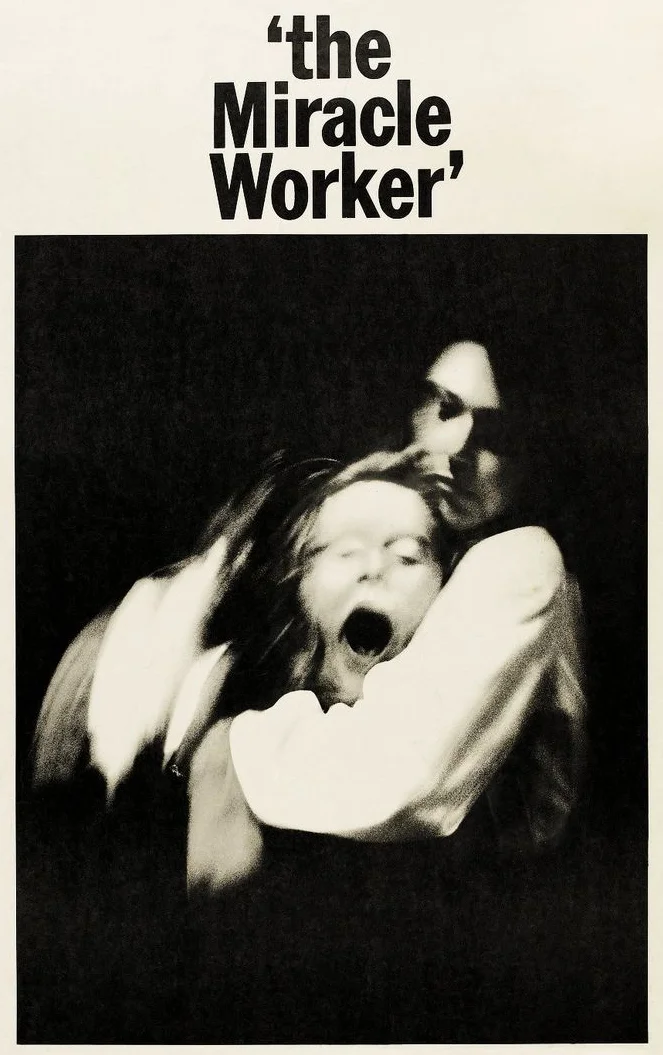
8/06:
Shame on anyone who thinks that The Miracle Worker is short of perfection.
It's one of the most emotionally powerful pictures made. Patty Duke and Anne Bancroft earned Oscars for their performances.
Truth be told, all the credit goes to the child star for creating the intended effect.
All in all, The Miracle Worker is unforgettable.
2/17:
The Miracle Worker is a powerful, moving story about how Helen Keller was shown the light through language.
Hence, everybody has done an excellent job of making that to be the focal point because it's what happened. Once
language acquisition begins, she's able to communicate her thoughts and make sense out of the world she lives in.
All of Helen Keller's animal-like behavior was the result of not having the privilege of either. It's why, after learning
sign language, she was finally able to tap into her potential.
The Oscar wins for Patty Duke and Anne Bancroft are deserving, and the former's performance is in the top ten of
all time. Victor Jory and Inga Swenson don't get enough credit as Helen Keller's parents. They're both outstanding.
The displays of American Sign Language have been clear, and there are no complaints from me.
All in all, if you weren't moved by The Miracle Worker, I guess you're emotionally dead.
Mirage (1965)
Rate:
8
Viewed:
5/25

5/25:
Mirage accomplishes the impossible: start out poorly and recover to become thrilling.
The only other picture I can recall to do so is Vertigo. Instead of Alfred
Hitchcock, it's Edward Dmytryk who directed the film noir, causing me to say, "Finally," given his long
run of stinkers. I honestly had no hope for him from the get-go.
It's among Gregory Peck's best films, easily beating out Spellbound.
The genius is starting out in the abstract manner but the mystery is cleared up more when the next scene connects
everything together in a Memento way except it keeps going forward.
Where Mirage falls short is the ending; it's a bit weak, making me want to see the film again later.
How the amnesia started is that David Stillwell suffered from a traumatic episode, leading to Charles Calvin's
27-story fall to his death. Therefore, he stopped remembering a lot of stuff beforehand and needed other
people's help to recall bits of memories here and there until they finally came together. Certainly, it's a
classic Freudian story. Kudos to Howard Fast, under the pseudonym of Walter Ericson, for coming up with it in his
novel called Fallen Angel.
Meanwhile, I like the cast involving three Oscar winners (Gregory Peck, Walter Matthau, and George Kennedy)
along with the supporting players: Diane Baker, Kevin McCarthy, and Jack Weston. As an added bonus unlike many
Hitchcock's films, the exteriors were 100% shot on location in New York City. The photography is consistently
excellent, and the editing goes a long way, too.
All in all, forget Charade and
Arabesque; Mirage is the one to see.
The Mirror Crack'd (1980)
Rate:
7
Viewed:
3/13
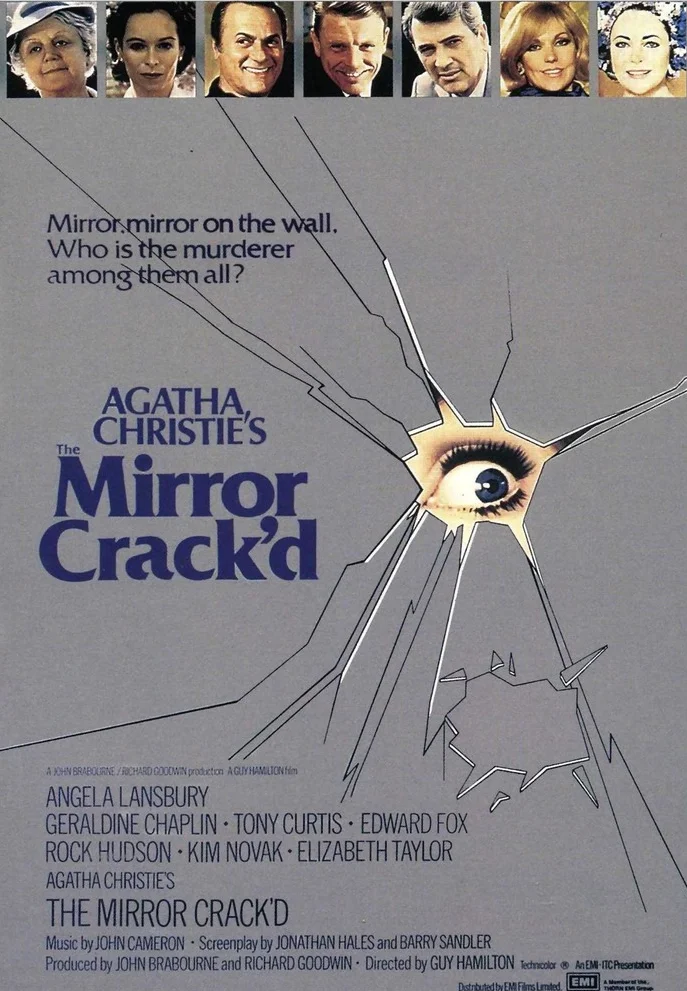
3/13:
Let's call The Mirror Crack'd a big reunion for Elizabeth Taylor and Rock Hudson after they appeared in
Giant along with the late James Dean.
They're very good, and if not for them, there's nothing going for the film. On the other hand, Tony Curtis is surprisingly
unrecognizable. Edward Fox is boring as hell. The odious Angela Lansbury is the single worst thing about it. She cannot
act despite thinking otherwise.
Remember at the beginning when Angela Lansbury's character solved the "mystery"? That's impossible because of the lack of
information in depth. She only deduced it based on the murderer who was twirling the necklace with her left hand. The point is
relevant because I had been like, "Why wasn't I shown this or that?" What a waste of time for me to try to participate.
Hence, the ending is unexpected because the director has done a good job of keeping everybody away from the focal point.
Of course, the story is ingenious and did actually happen. The fact that Angela Lansbury's character solved the crime
means nothing but to prove she's still a stupid, odious British brat.
All in all, I would love to see the Jackal do in Angela Lansbury.
Mischief (1985)
Rate:
9
Viewed:
12/07

12/07:
I had never heard of Mischief until now.
After seeing it, I must say it's an outstanding film that's a lot of fun. The screenplay is taut which
eliminates a great deal of the needless fluff. What make it work is the terrific performances by Doug McKeon and Chris
Nash. They have great chemistry, and there's the wonderful setup of the 50's image.
It's curious to see Jonathan Bellah chasing after Marilyn McCauley in spite of knowing she's a "whore." Yet
Rosalie seems to be the right girl for him. Chris Nash's character makes things interesting because of his flawed background.
He initiates a series of events that'll happen in Nelsonville which reminds me of
Back to the Future. By the way, Kelly Preston is currently John Travolta's wife.
All in all, Mischief is a true gem from the 80's.
The Misfits (1961)
Rate:
5
Viewed:
3/06, 12/15
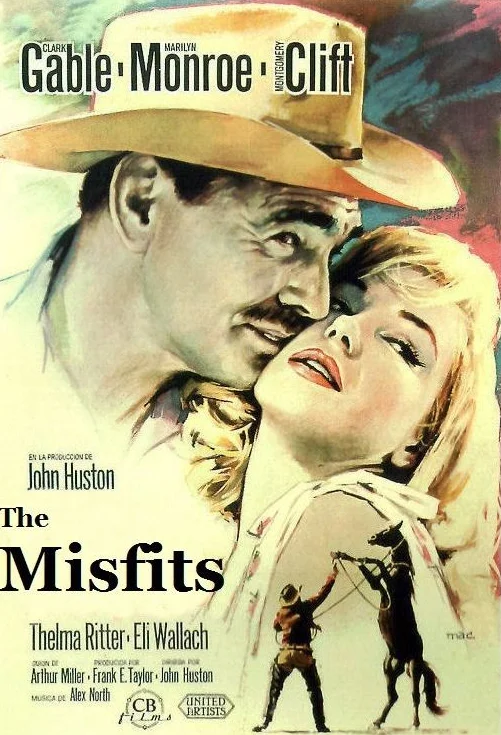
3/06:
Talk about a movie that no one wants to see: The Misfits.
Clark Gable, Marilyn Monroe, and Montgomery Clift are a shell of themselves. It's a sad sight. Worse, there's no story.
The dialogue goes nowhere.
All in all, for a John Huston film, The Misfits is disappointing given the immense star power.
12/15:
An analogy to describe The Misfits is not being able to look away from a 10-car pileup.
What the hell happened to Clark Gable, Marilyn Monroe, and Montgomery Clift? They were at top of the world
for a while, and then, they're all the way at the bottom.
Possibly because of Marilyn Monroe's on-set difficulties, Clark Gable died of a heart attack twelve days after the
completion of filming. At 59, He insisted doing the stunts himself such as being dragged by a truck at 30 miles
per hour for 400 feet.
Looking somewhat ugly, Marilyn Monroe was on drugs and drank heavily the entire time while she was trying to get
a divorce from Arthur Miller who turned out to be a mean son of a bitch. She spent two weeks in the hospital during the
filming and never did another picture, dying a year later. Suicide? Murder? Who knows, and who cares?
Montgomery Clift had the "longest suicide in Hollywood history" due to not recovering fully from
the auto accident in 1956 that left his face partly shattered. To cope with the pain, Clift resorted to
pills and alcohol, having become completely dependent on them to get through the day. Rumor has it that he was
sitting up in his bed one night and The Misfits was playing on TV. His boyfriend asked Clift if he wanted to see it
with him. In response, he yelled, "Absolutely not!" The next morning, Clift passed away.
As for the film, it's a disaster from start to finish. Nothing makes sense, yet the performances are good.
All in all, it's shame that Clark Gable and Montgomery Clift went out like this; on the other hand, Marilyn Monroe was a joke.
Missing in Action (1984)
Rate:
8
Viewed:
7/25

7/25:
If I'm forced to say quickly the most popular film of Chuck Norris' career, it's Missing in Action.
That's why there were two sequels, enabling him to become a mainstream action star during the mid 80's.
However, Missing in Action isn't the first of its kind when it comes to rescuing American POWs in Vietnam.
That would be Uncommon Valor. Then,
Missing in Action 2: The Beginning came out.
A couple of months later, Rambo: First Blood Part II made history
and, as a result, vanquished the first three into oblivion forever. As a matter of fact, James Cameron had written
a treatment in 1983, and it floated around Hollywood for a while, hence the similarities.
The story is good. It has a deliberate pace, preferring to show the hows. Hence, if anybody has a negative
opinion of the film, this will be why. For me, it's rather the lack of follow-through. For example, a knife
is about to be thrown at the bad guy, and the next shot I see is him dead with it in the chest, but there's
no middle. This happens a lot throughout. The most prominent is when M. Emmet Walsh was on the raft shooting
at the incoming boat and, all of a sudden, was gone.
Despite speaking so little, Chuck Norris acts well and doesn't let his wooden personality become a liability,
preferring to do the physical stuff instead. Additionally, he has a lot of good action scenes, especially when
on the stealth mission to force General Tran to divulge critical information, and shows his character is a normal
human being instead of an invincible superhero like John Rambo. The ending is dramatic when Braddock arrived in
Saigon with the rescued POWs and tried to enter the conference room to prove the politicians wrong.
All in all, Missing in Action is the poor man's
Rambo: First Blood Part II, but it's actually not that bad.
The Mission (1986)
Rate:
9
Viewed:
11/13, 7/20
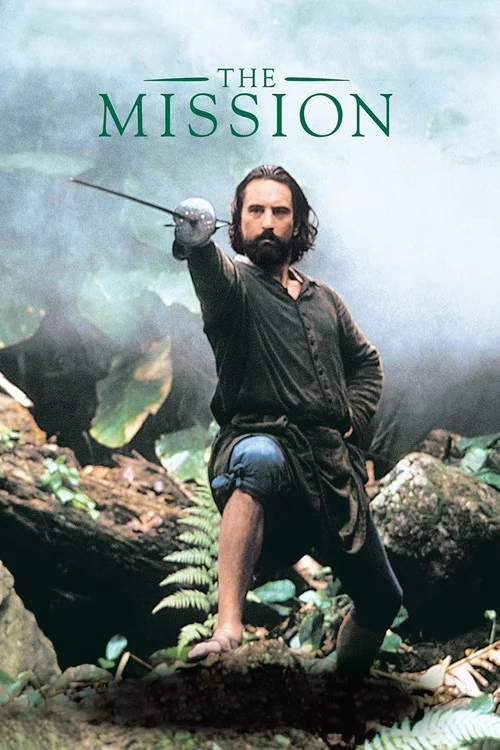
11/13:
The Mission is a powerful film about the plight of the Guaraní people on the heels of Portuguese and Spanish
colonizers.
The reality is underscored by the loss of their homes because the Portuguese and Spanish viewed the land an imperialistic
opportunity to expand their empire while harvesting it for resources, most especially gold. I thought the
Jesuit missionaries played a scurvy trick on the Guaraní by converting them into Christians for the state's hidden agenda,
but that's not the case in the film.
There's a display of concern by the Jesuits, wanting to save them from the predictable wipeout of their culture and habitat.
Now, we know how that went down. Naturally, the film demonstrates the reasons not to believe in religion and
whatever the precepts of the church are because it's all hypocritical.
Meanwhile, the performances are good. It's interesting to see Robert De Niro in this light. Jeremy Irons,
Liam Neeson, and Aidan Quinn lend their hand, and they'll be stars in their own way.
All in all, The Mission is a fine piece of work that reflects the reality of the period.
7/20:
Robert De Niro, Jeremy Irons, Liam Neeson, and Aidan Quinn star in The Mission, proffering a rare insight into what
it's like to be in South America during the 18th century.
It's also a powerful film about the Portuguese and Spanish's treatment of the Guaraní as heathens because of skin color,
how they look, and their perceived lack of education. The location of the setting is along the border of Paraguay, Argentina
and Brazil. Wanting to protect the Guaraní from being enslaved by the colonizers, the Jesuit missionaries ultimately failed
and were then expelled from the Spanish empire in 1767.
I thought at first what the Jesuits had going in the Guaraní villages was perfectly fine, but the opposing forces didn't
see it that way, preferring to raze them and enslave these people in the shocking name of greed. The effect of the 1750's
Treaty of Madrid forced Spain to cede all of present-day Brazil to Portugal.
Oustanding are the performances. Even better is the cinematography which won an Academy Award for Chris Menges. The waterfall
in the background is the Iguazú Falls which is located in Columbia. Because of
The Killing Fields, City of Joy,
Vatel, and The Mission, Roland Joffé is a fine director.
All in all, The Mission is unique.
Mission to Mars (2000)
Rate:
3
Viewed:
6/17

6/17:
Well, Brian De Palma has finally sold himself out by going mainstream.
Having made his career by ripping off Hitchcock's films to death, Brian De Palma decided to move on to a new territory
by focusing on Stanley Kubrick's 2001: A Space Odyssey. The result is Mission to Mars, a massive box-office
failure, grossing $60 million domestically against a $100 million budget.
Where the majority of it went to is the full-blown masturbation of CGI effects which aren't impressive. In reality, upon a closer look,
Mars isn't much of a planet, resembling more like airbrushed Grand Canyon of Arizona. As a matter of fact, the
scenes were filmed in Wadi Rum, Jordan. Leaving less money for the rest of the film is the result of a sheer drop in quality of the
story, dialogue, and acting performances. So, instead of the original title, why not call it Mission to Suck?
Just about every film Tim Robbins appears in, he always has that look of a dork with a shit-eating goofy smile.
And he does it again here. Already redundant by having done Apollo 13, Gary Sinise, who always looks displeased no
matter what, has perfected the art of applying eyeliner to make himself be either Axl Rose or C.C. DeVille.
To this day, Don Cheadle still can't act to save his own life. Ditto for Jerry O'Connell who doesn't belong in movies.
It's time for him to go back to Sliders or be Trip McNeely once again.
Everybody tries to be awed, à la Close Encounters of the Third Kind, by the sight of what's happening, but it's never
convincing for the slightest second. The dialogue they're supplied with is corny, mumbo-jumbo, and TV-speak; it's like
watching highly paid professional actors be stuck in a bad high school play.
Oh, oh! I love the ubiquitous display of product placements. Most definitely, I'm going to have to buy some six-packs of Dr.
Pepper and a bag of M&M's whenever I feel the need to travel to outer space. When the realization was made about the discovery
of water on Mars, Don Cheadle's character said, "Then, we may have found the key to permanent human colonization." Bullshit.
A red, dusty planet that's really, really, really far, Mars has no water, trees, suitable atmosphere, and anything else
that's useful or interesting for human beings. So, why would they leave Earth for a boring planet that's minus
200 degrees Fahrenheit, which is on average 150 degrees colder than Antarctica, and always besieged with dust storms?
Plus, who's going to pay quadrillions of dollars for the transportation of necessary materials from Earth to Mars, and how
many years in total will that take before the project is finally completed? Once there, all everybody will do is stay inside
the oxygen-contained buildings with nothing much to do. And it'll take years for the Martians to be constantly
resupplied by Earth.
Everybody has overlooked the truth about space exploration: cosmic ray radiation that's almost
impossible to shield against. A new study showed that the astronauts of NASA's Apollo program, who flew missions
in space, suffered from high mortality rate due to heart disease which was caused by high exposure to deep space
radiation during their trip to the moon. Thus, it'll be impossible for Don Cheadle's character to survive this long.
After losing several astronauts on Mars, Tim Robbins' and Connie Nielsen's married characters proceeded, while laughing and giggling,
to dance with each other. What the fuck? The same goes to the idea of sending a married couple up there in space which could've
jeopardized the mission and the lives of everybody involved. Astronauts are supposed to be smart and all that,
yet they think the DNA is composed of chromosomes. What these fools don't realize is that it's actually the other way around.
All in all, Brian De Palma tries to be original in Mission to Mars but has managed to rip off at least
fifteen sci-fi movies.
Mission: Impossible (1996)
Rate:
10
Viewed:
6/03, 12/04, 1/07, 1/17

1/07:
It's truly an impossible mission in Mission: Impossible.
What a fine job by Tom Cruise who may have turned in the most exciting performance in years. The script, the defining
moments, the gadgets, the disguise masks, and, most of all, the ending with the TGV and the helicopter are spectacular.
All in all, the "wow" factor keeps the replayability value high for Mission: Impossible.
1/17:
Mission: Impossible is one of the most exciting movies in a long time.
I felt that way when I saw it at a theatre in 1996. My sentiment hasn't changed over the years. What a cast.
Tom Cruise (who gives one of the best performances of his career, doing most of his own stunts including the magic
trick), Jon Voight, Ving Rhames, Henry Czerny, Emmanuelle Béart, Jean Reno, Emilio Estevez (who's uncredited),
Kristin Scott Thomas, and Vanessa Redgrave are phenomenal.
There are many wonderful scenes. Three best scenes take place at the restaurant with aquarium tanks; the CIA
headquarters in Langley, Virginia; and the TGV train going 140 MPH against the wind. Equipped with state-of-the-art technology, it's a
Hitchcockian movie in every aspect with Brian De Palma being the perfect director.
The reason why the film has sour ratings is that fans of the TV show weren't happy with the idea of turning Jim Phelps
into a traitor. To be honest with you, the movie is so good that it can be safely overlooked. I think the
filmmakers should've changed his name to something else to avoid the controversy.
All in all, Mission: Impossible is an all-time great international espionage thriller with the most breathtaking ending.
Mission: Impossible -
Ghost Protocol (2011)
Rate:
5
Viewed:
1/17

1/17:
Although it's better than the last two parts, Mission: Impossible - Ghost Protocol is
Barry Lyndon dead and full of insults to my intelligence.
To begin with the positives, everything looks mostly back to old school: the acting, the script, the camera work (which
surprisingly never shakes), and the action sequences. The cast is calm and gets things done without much
fanfare. I'm pleased and relieved, so thank you, everybody, for not giving me a splitting headache.
Tom Cruise is better this time around, being more like himself, but in a serious way. Again, he did most of his own stunts
which is impressive. However, I prefer his Ethan Hunt persona from the first part.
Although the script isn't dumb, it's too convoluted for my taste. The writers went overboard with
the entire thing, taxing my mind with all of the fancy bullshit. What happened in the first part was cool and clever, but at
no point, it was an overload of complications. It doesn't help matters any when the fourth part runs for over two hours.
That's too long to sit through.
As for the plot, the reason why makes no sense and is typical of James Bond pictures, but who cares? It's all about
the gadgets, at least in the minds of the filmmakers, and the products to create a marketing buzz around them.
I would've given the film at least '7', but the more Ethan Hunt kept bouncing himself off everything without any
serious injury to his body, the more absurd it was getting to be. Real people cannot survive what Ethan went
through. So, he must be a superman after all. I thought this was supposed to be an espionage, not comic book, movie?
I was skeptical of it for having been shot on location in Moscow and thought that couldn't be possible. Well, it turns out they did it
in Prague with the rest through CGI. To give them credit, they did shoot the film in Dubai although it looked unrealistic.
Tom Cruise actually climbed the Burj Khalifa tower, the tallest building in the world at 2,722 feet.
Only once the mask technique is used which is a surprise. But the superman move is done for the fourth time in a row.
Already redundant, it's time for the franchise to retire the stunt for good.
Ving Rhames is cut out of the main cast but makes a cameo appearance at the end. Speaking of it, the distinctive-looking man,
whose name is Andreas Wisniewski, with the long yellow hair from the first part appears. It's a nice treat. You may not
be aware of this, but he did play the blond-haired guy with the glasses, who was Karl's brother, in
Die Hard and Necros in The Living Daylights.
When I mentioned Barry Lyndon at the beginning of this review, I was speaking of the dead emotions displayed by
the thespians. Everybody is so mechanical and workmanlike that they've made the show boring. I guess the characters must be
robots in this day and age.
All in all, Mission: Impossible - Ghost Protocol is back to basics, but they need to keep things more real
from a human standpoint.
Mission: Impossible II (2000)
Rate:
3
Viewed:
5/04, 7/07, 1/17

7/07:
Mission: Impossible II is a boring action-adventure flick that's nothing like the original.
The sequel starts off well for ten minutes, and then the wheels quickly come off by overwhelming me with the weird Asian
style of filmmaking. Many scenes are given the slo-mo treatment, needlessly dragging things for a long time, which adds nothing
of substance to the story.
The action is bombastic with fancy explosions and impossible physics, only to be finished off with a boring drawn-out
"the-hero-will-win-and-save-the-day-and-get-the-girl" ending. By the way, what's with the birds? It's so fucking cheesy.
The acting is dreadful. It's a toss-up for me to decide who gave the worst performance: John Polson or Thandie
Newton. All I heard from them is "bloke" or "bloody" this and that. Are you sure they're English and Australian?
Sporting a distracting long hair, Tom Cruise spends his time trying to be cool by performing acrobatic silliness. That's
great, Tom, but I'm yawning intensely. Dougray Scott is hilarious by the way he spoke his lines. He'll make a great
comedian someday. Ving Rhames is wasted and has nothing to work with.
The script is silly that's full of "bloke," "mate," and "oi!" There's a line which had my eyes rolling: "What are
you going to do? Spank me?" At one point, Sean Ambrose explained ahead of time what Ethan Hunt would do inside the
Biocyte building. Come on, Mr. Robert Towne, is that the best you can come up with? And did you actually write the screenplay
for Chinatown? I read somewhere that Roman Polanski redid the entire thing.
All in all, Mission: Impossible II has done the impossible by putting me to sleep.
1/17:
Mission: Impossible II is the most ridiculous, overblown action film of the year.
I was literally falling sleep while watching the movie because it's so slow and long. The original worked because it had an
intelligent script which focused more on the quality of acting. That's not the case for the sequel. It's all about the
style, looks, guns, gadgets, masks (way too many), cars, motorcycles, and stunts.
The scenes are unrealistic, overwrought, cheesy, and, worst of all, impossible. Limited is the number
of locations shots. The setting seems to take place within one mile of Sydney, Australia. That's why the movie isn't
exciting enough.
Everything has to move slow because that's how John Woo likes it. He incorporates the same elements from
Dip huet seung hung and Face/Off
in the hopes of creating a cool movie. Well, he failed big time. John, John, John...this is America, not Hong Kong.
Tom Cruise is okay. I'm more distracted by his long, silky-smooth hair. Once again, he did most of his
own stunts, and he's impressive. Among the few reasons I like the film, Dougray Scott is
cool playing Sean Ambrose, but he's also unintentionally funny, especially by the way he speaks. Every time he opened his mouth,
I would mock him by repeating what he said with an English accent.
Anthony Hopkins is decent, replacing Jon Voight, and has a great line: "Mr. Hunt, this isn't mission difficult.
It's mission impossible. 'Difficult' should be a walk in the park for you." Ving Rhames is wasted. However much
money Ving Rhames got to appear in the sequel, he sure had it easy by doing nothing much. Playing the forgettable Billy Baird,
John Polson gives the silliest performance. The way he talked is corny. Unsurprisingly, he never did a movie afterwards.
The worst acting job has to go to Thandie Newton. As beautiful as Thandie can be, she needs to gain
weight...lots of it. She sounds so damn unconvincing for somebody who's supposed to be from England and isn't cut out for
acting. Her character is such an idiot. It was inside the left fucking pocket of the fucking jacket! Gee whiz.
All in all, Mission: Impossible II has no heart and is devoid of anything that's human.
Mission: Impossible III (2006)
Rate:
3
Viewed:
5/06, 8/07, 1/17
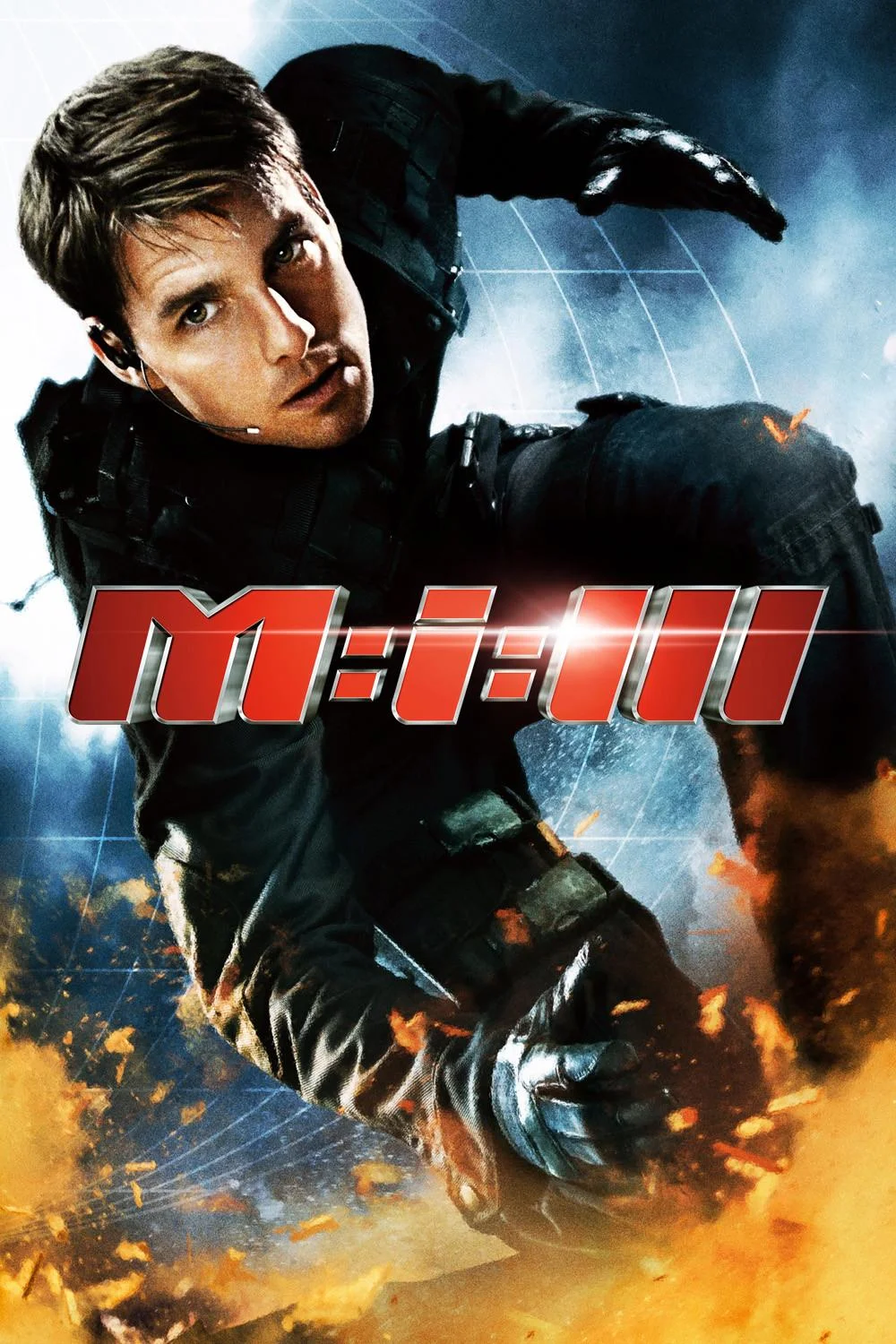
5/06:
Mission: Impossible III is not the worst film I've seen, but it's pretty bad.
It's all about Tom Cruise and Katie Holmes. Everything else in between is secondary. Philip Seymour Hoffman's
villainy is as believable as a horsefly killing an elephant.
All in all, Mission: Impossible III is an abuse to my eyes, an insult to my intelligence, and a repulse
to my stomach.
8/07:
Mission: Impossible III is an unsatisfying, draining experience.
How did the franchise go downhill so quickly after the wonderful first film? The third part fails because of the
overreliance on CGI and shaky camera. It's a good thing that the slo-mo effect was dropped. That had been
annoying to put up with.
When Ethan Hunt got blasted through the air onto the car, he must be made of rubber, bouncing off anything
without injury. Another scene, which takes place in Shanghai, is Ethan doing this pendulum swing with the rope
before letting it go and then dropping about fifty feet in the air to hit the glass window on his back. I'm
sure that stunt would've made him a permanent quadriplegic.
Ethan Hunt survives longer than his protégé after an explosive charge was shoved up his nose. Frantically, he finds
a way to discharge it. By the time Ethan is ready, he takes a moment to yell to his wife, "I love you!!!!!!" before
zapping himself out with his teeth clenching on the stupid Popsicle stick. It's hilarious as shit.
All in all, Mission: Impossible III is dedicated to Tom Cruise's loving wife Katie Holmes.
1/17:
Tom Cruise declares his undying love for Katie Holmes in Mission: Impossible III.
Having seen the movie twice before, I was asked by a friend to describe the plot. As a result, I was clueless and
said that I didn't remember anything although I had an easier time recalling the plot of the last two films.
That's how bad it is for Mission: Impossible III.
So, what happened to Thandie Newton's character? I thought Ethan Hunt liked her. Guess not. Instead, Hunt opts
for a fake marriage with a woman he hardly knows. Actually, that sounds like what happened for Tom Cruise with
Katie Holmes. To make matters worse, he thinks she's the most important person in the whole world.
When the wife finds out what he truly does for a living, I can see her spreading gossip during dinner parties
with the moneyed people in the form of "Oh, my God. Do you know what my husband does? Oh, my God. This
is...like...so cool." After everybody is bored with her in a while, they'll be like, "Yeah, we already know.
What else is new?"
Although the action sequences were bad and slow in the previous film, I have to say they're worse now:
fake, unrealistic, and impossible. Ethan Hunt bounces off everything as if he's made of rubber, no matter
how hard the impact is supposed to be. He's never sore afterwards and only has a couple of bruises on his face.
And Ethan is one of the greatest long jumpers in the world.
Philip Seymour Hoffman looks fucking stupid. Just give it up: you aren't as tough as you appear to be. His
character, Owen Davian, had a golden chance to kill Ethan during the introduction but let him go. Why? His
wife should've been killed, too. But Davian offed the translator instead. It makes no fucking sense.
The story is redundant and almost a carbon copy of what happened in the original. The wife thing is
True Lies all over again. Even Tom Cruise does the iconic stunt for the
third time which is getting old. Couldn't the writers come up with something original?
After the Rabbit's Foot is recovered in Italy and transported to the United States, why is it located in Shanghai,
China? It makes no fucking sense. The scene with Jonathan Rhys Meyers gesticulating like an Italian is the worst
of them all, causing me to cringe. Speaking of St. Peter's Basilica in Vatican City (actually Royal Palace of
Caserta which is 137 miles southeast), it looks so expensively stocked that I have to question the religion's
purpose: is it supposed to serve the poor?
All in all, Mission: Impossible III is tons of explosions but no substance.
Mississippi Burning (1988)
Rate:
7
Viewed:
4/03, 8/04, 7/16, 1/20

7/16:
I've seen Mississippi Burning four times, and it's still a poorly directed picture.
The subject is fascinating, but Alan Parker has made it too mediocre to sustain my interest. It's the middle that needs to
be reduced by twenty minutes or be replaced with a gripping centerpiece scene.
The cycle goes like this: Gene Hackman acting like Popeye Doyle, Frances McDormand overplaying the tired
Fargo schtick, somebody's
house set on fire, and a troupe of silly men in white hoods who insist on beating the crap out of black people.
It's repeated four or five times before moving onto something substantive. By the time the film does, it's too late.
The story may appear true, but the names aren't real. Many facts have been either distorted or left out. So, why is that? Because
the actual truth is boring. And if I were the blacks, I would just fight back. What's there to lose? They're getting killed
anyway. Meanwhile, the FBI didn't come down there for the dead black Civil Rights activist. It was the death of two
whites that got their attention. As a matter of fact, the FBI didn't care an iota about the Civil Rights movement and was
never there for the blacks.
The story of how the three bodies were found wasn't known for a long time until recently. What happened is that the FBI hired
a reputed mobster to come down to Mississippi to employ illegal interrogation tactics. He stuck a gun into the mouth of a
Ku Klux Klan member, threatening to shoot him unless he blurted out the location of the bodies. At any rate, it's
probably for the best.
If there's anything I've learned from the movie, it's this: never visit Mississippi; don't stop...just drive on. Most people
agree Mississippi is one of the worst, if not the worst, states in the nation. It has the highest unemployment rate,
the highest poverty rate, the worst public education system, the highest rate of obesity, and the lowest life expectancy and is the least
safe state to live in. The same can be said for the rest of the South which is truly the armpit of the nation.
All in all, Mississippi Burning may be compelling, but it's fictional.
1/20:
Once again, Mississippi Burning is a poorly directed film that runs too long.
Had it been shorter, I would've felt compelled to give it a higher rating based on the strength of ensemble acting
performances. The story is good but highly dramatic which is based on the disappearance of three civil rights
workers: James Chaney, Andrew Goodman, and Michael Schwerner. Let's be honest: if they were black, would the FBI have
done something? Of course not. In reality, the government including JFK and RFK didn't care about what was going on in the South
during the 60's.
All in all, Alan Parker should've taken lessons in how to direct before setting out because many of his movies haven't
been good.
Mississippi Masala (1991)
Rate:
7
Viewed:
5/17, 3/22
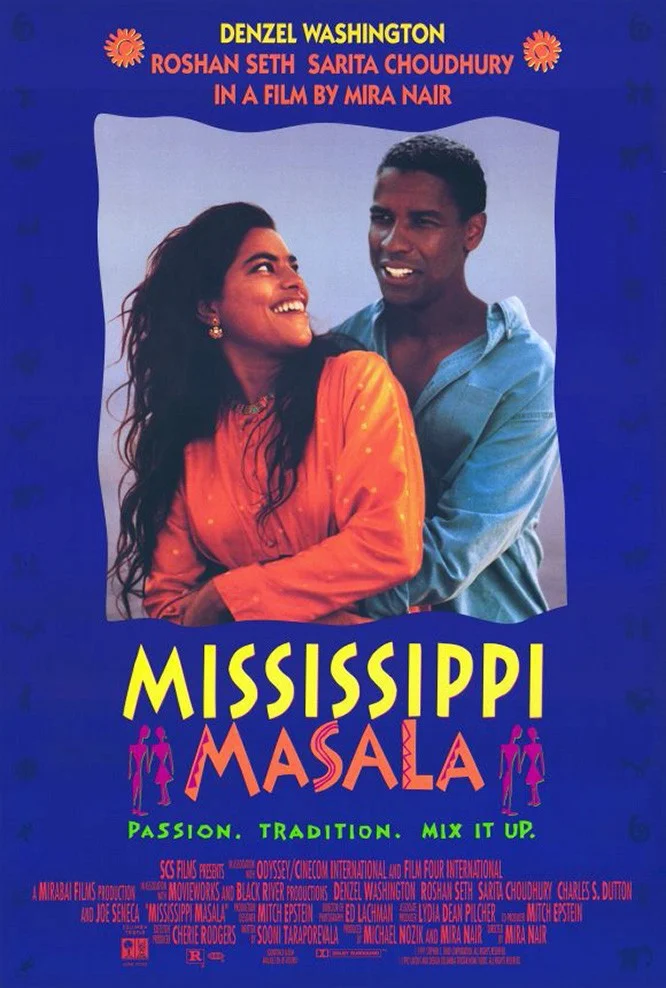
5/17:
I thought I had completed all pre-2000 Denzel Washington films, but Mississippi Masala somehow
escaped my attention.
It shows you how low-key, nonformulaic independent pictures get no respect.
Kama Sutra: A Tale of Love is the only one I've seen that's directed by
Mira Nair, so I had an idea of what to expect in Mississippi Masala. What I didn't predict is how good
and charming it is.
Denzel Washington gives one of the better performances of his career. I wish he would do more of these films,
not the blockbuster stuff; they serve his talent well. However, Mississippi Masala isn't a Denzel
Washington picture. It, primarily the story, is much bigger than him which is about dealing with forced
displacement, light vs. dark racism, prejudices, and cultural differences and traditions.
It's a charming movie, thanks to the mixed cast of Indian and black thespians. They're fun to watch. There are
many standouts including Sarita Choudhury who's perfect with Denzel Washington, Roshan Seth, Sharmila Tagore,
Mohan Agashe, Mohan Gokhale, and Anjan Srivastav who looks like the Indian version of Dennis Farina. Joe
Seneca, Charles Dutton, and Tico Wells are excellent as well.
Listening to the Indians, it's easy to learn a bit about the history of Uganda, an African country that's closely
associated with General Idi Amin. But that's a different story for another time which needs more extensive
treatment than what Mississippi Masala can possibly offer. It has great scenes, especially
with Denzel Washington and Sarita Choudhury, and lines such as "I'm a black man born and raised in Mississippi.
Ain't a damn thing you can tell me about struggle" and "I know that you and your daughter ain't but a few
shades from this here."
All in all, Mississippi Masala is a rare gem with great chemistry, strong performances, and high level
of realism that's multilayered.
3/22:
I didn't know the backstory of what happened to Indians in Uganda (their descendents emigrated to there to
construct the Uganda Railway during the 1890's) until I read Thomas Sowell's book
Discrimination and Disparities.
Because the Indians achieved so much success, the black residents, with the help of General Idi Amin, got
jealous and therefore decided to kick them out of the country in 1972. As a result, Uganda's economy collapsed
completely. There were 80,000 Indians and Pakistanis, but now, it's about 20% of what it used to be yet
they make up 65% of tax revenue. Many left for the United States, hence the basis of Mississippi Masala.
Because of the mixed cast of Indian and black thespians, it's a unique movie, especially for the early 90's. Of
course, the massive star power that Denzel Washington brings to the table helps a great deal; otherwise, it
would've never seen the light of the day. He and Sarita Choudhury are wonderful together and should be the whole
film. Everything else, unfortunately, isn't important, and the last fifteen minutes is weak.
All in all, Mississippi Masala is worth watching, regardless of the negatives.
The Missouri Breaks (1976)
Rate:
6
Viewed:
4/14
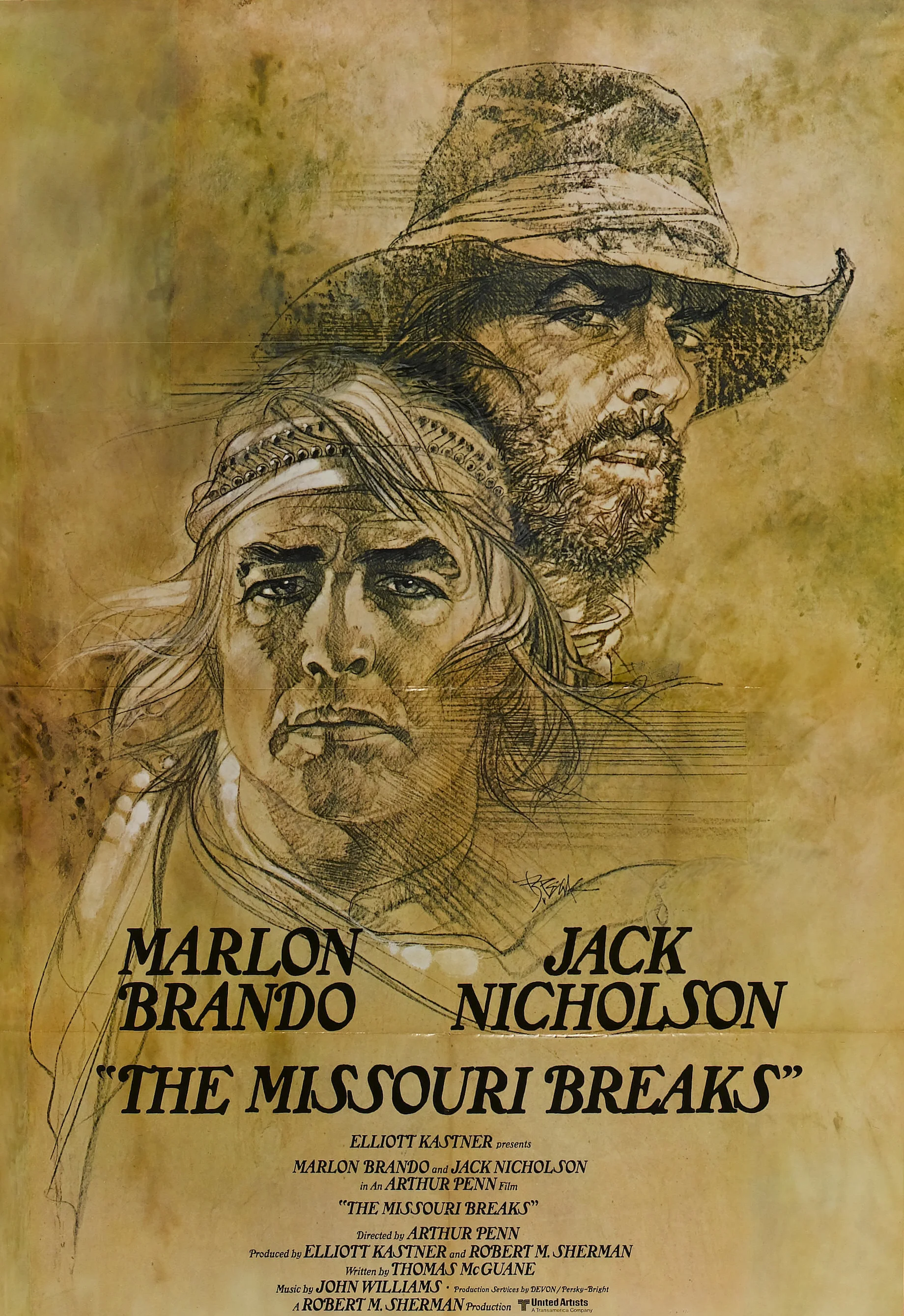
4/14:
Because of Marlon Brando, Jack Nicholson, and Arthur Penn, I was expecting a lot from The Missouri Breaks,
but damn.
Jack Nicholson looks lazy and therefore gives an underwhelming performance. Marlon Brando deserves most of the
blame for making a spectacle out of himself just for the hell of it which is ridiculous to watch. He probably
overpowered everybody on the set to make sure his vision of the film was realized.
In short, it feels like Marlon Brando was the director, not Arthur Penn. More than half of the lines he uttered
never make sense. I don't think Jack Nicholson enjoyed working with him, and it shows on screen.
As far as the Western genre is concerned, The Missouri Breaks is a substandard
entry. It's a Western, and yes, it has many Western elements. And yes, it ends predictably in a Western manner.
The film should've been halted when Jack Nicholson had his co-star cornered in the bathtub. Just shoot him,
and be done with it.
All in all, The Missouri Breaks is disappointing.
Mister 880 (1950)
Rate:
8
Viewed:
9/24

8/24:
Mister 880 is To Live and Die in L.A. of its time minus
the violence.
I picked up the movie for two reasons: Burt Lancaster and good reviews. The story is terrific in a
cat-and-mouse manner, and great direction is evident in the final thirty minutes when the French interpreter,
played by Dorothy McGuire, suddenly realized what's going on. That's when the drama starts to deepen and enters
film noir territory.
Once again, Burt Lancaster shines and is never stiff for a moment like he was in
All My Sons. But really,
it's Edmund Gwenn, famous for playing Kris Kringle in Miracle on 34th Street, who steals the show. That's
why he was Oscar-nominated.
Well, how do I feel about punishing Edmund Gwenn's character? Crime is crime, and what happened at
the end as given out is justified and isn't syrupy in an Hollywood way as I feared. By the way, his case
could've been thrown out because Steve Buchanan entered and searched his apartment illegally. He would need a
warrant to do that.
All in all, Mister 880 is a great picture about counterfeiting.
Mitt liv som hund (1985)
Rate:
6
Viewed:
2/08, 2/15
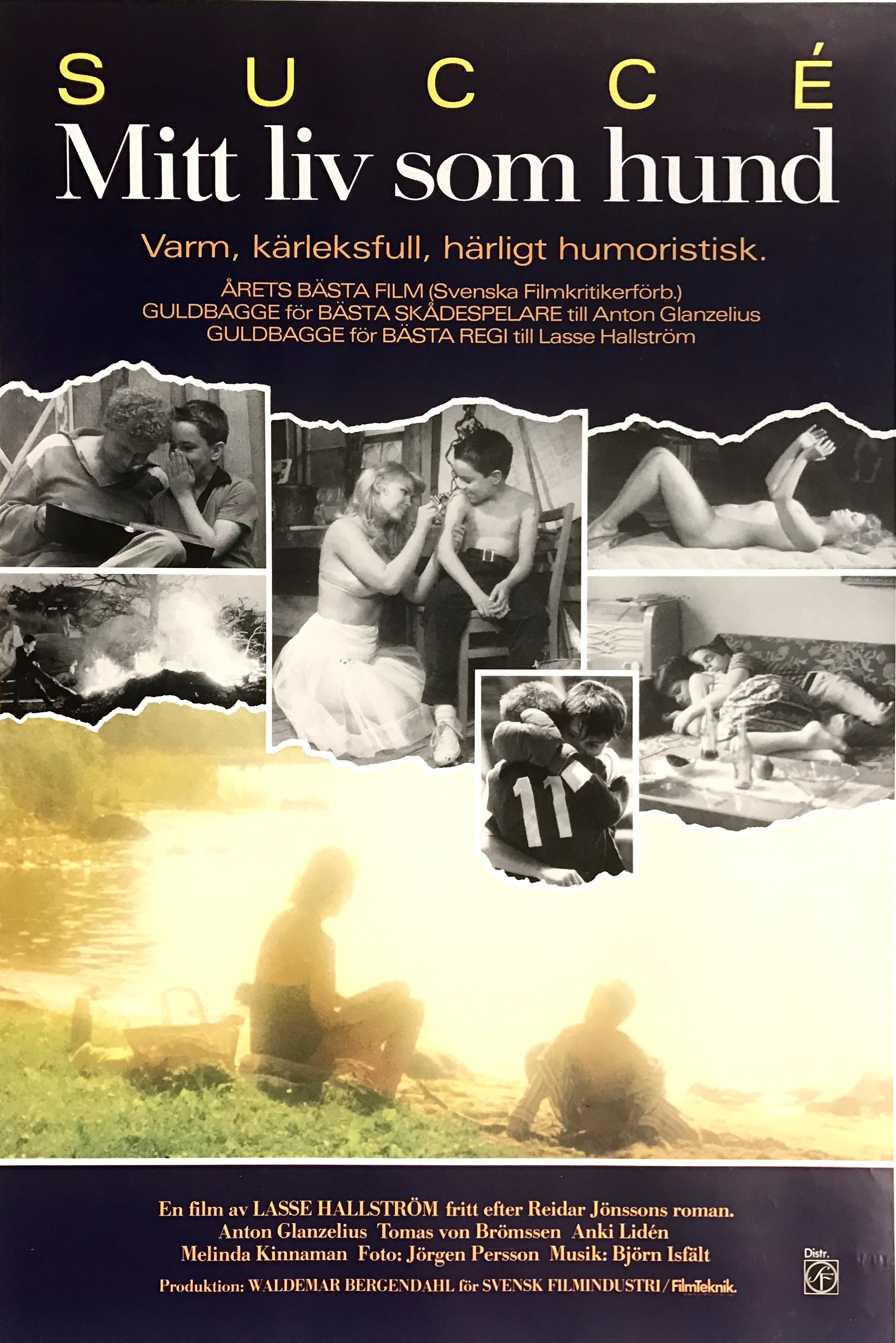
2/08:
Having remembered watching Mitt liv som hund (My Life as a Dog) in 1986 or so, I still don't
like the film.
It has memorable moments, but the plot leaves me underwhelmed. The child pornography is the most glaring that
makes it hard for me to overlook. Because the movie was filmed in Sweden, everybody got away with it because
it's conveniently labeled as "foreign." There are other factors rendering it unlikeable.
One, I don't like the characters as I find them uninteresting despite their cuteness.
Two, instances of sexual perversion are prevalent throughout, and this is a children's film?
Three, it's all about the eccentricities. That's not good enough.
Four, the mother shows no love for her children; hence, it's a depressing movie to watch at times.
Five, I'm not sure what's interesting about the girl pretending to be a boy.
On the other hand, there are several positive aspects. Among them is the ease of transitions as I'm able to absorb
the flow, allowing me to understand the characters. Moreover, I like the Swedish setting. Anton Glanzelius gives
a fine performance. Because of what he did, Michael Jackson phoned him to see if he was *shudder* interested.
All in all, it's hard to overcome the child pornography in Mitt liv som hund.
2/15:
Mitt liv som hund is one of the weirdest movies I've seen.
It combines too much of children and sex and goes far enough to expose them to pornography at such a young age.
Hence, it becomes easy for the filmmakers to throw Anton Glanzelius and Melinda Kinnaman into the mix to deflect
the attention away from what's essentially child pornography because they're cute-looking kids. No wonder why
Michael Jackson was impressed with Anton Glanzelius so much that he wanted to meet him.
On the other hand, the performances are good, and the story makes more sense toward the end in terms of the
film title, hence the English translation: My Life as a Dog. Ingemar feels abandoned by the
people around him and is treated like a pet wherever he goes because he's good-looking in the puppy sense.
All in all, Mitt liv som hund is cute at best and child pornography at worst.
Mo' Better Blues (1990)
Rate:
1
Viewed:
10/06

10/06:
After finishing Mo' Better Blues, the first thought that came to my mind is: "No mo' Spike Lee films."
There's nothing to like which has no story and is too long. I can think of at least ten pictures per decade
that have touched the same topic. Most of all, I'm tired of Spike Lee pulling out the race card. Enough already.
I wish Denzel Washington stayed away from Spike Lee. The truth is that his talent had been mostly wasted in the
90's because of his collaboration with the myopic director. On the other hand, Wesley Snipes is good, showing enough
potential to be a great actor.
All in all, Spike Lee is one of the worst directors ever.
Mo' Money (1992)
Rate:
4
Viewed:
3/04, 10/05

10/05:
Damon and Marlon Wayans tell it like it is: mo' money, mo' money, mo' money.
It started out as a skit in In Living Color. Because of the catchy line, it got transformed into a movie. In reality,
Mo' Money isn't good comedy although there are several memorable scenes and an array of interesting characters.
Damon Wayans is sometimes funny, but his acting is weak for the most part. Marlon Wayans is physically talented while
Stacey Dash's eyes are pretty.
All in all, Mo' Money doesn't generate enough laughs from me.
Mobsters (1991)
Rate:
3
Viewed:
5/04, 10/08
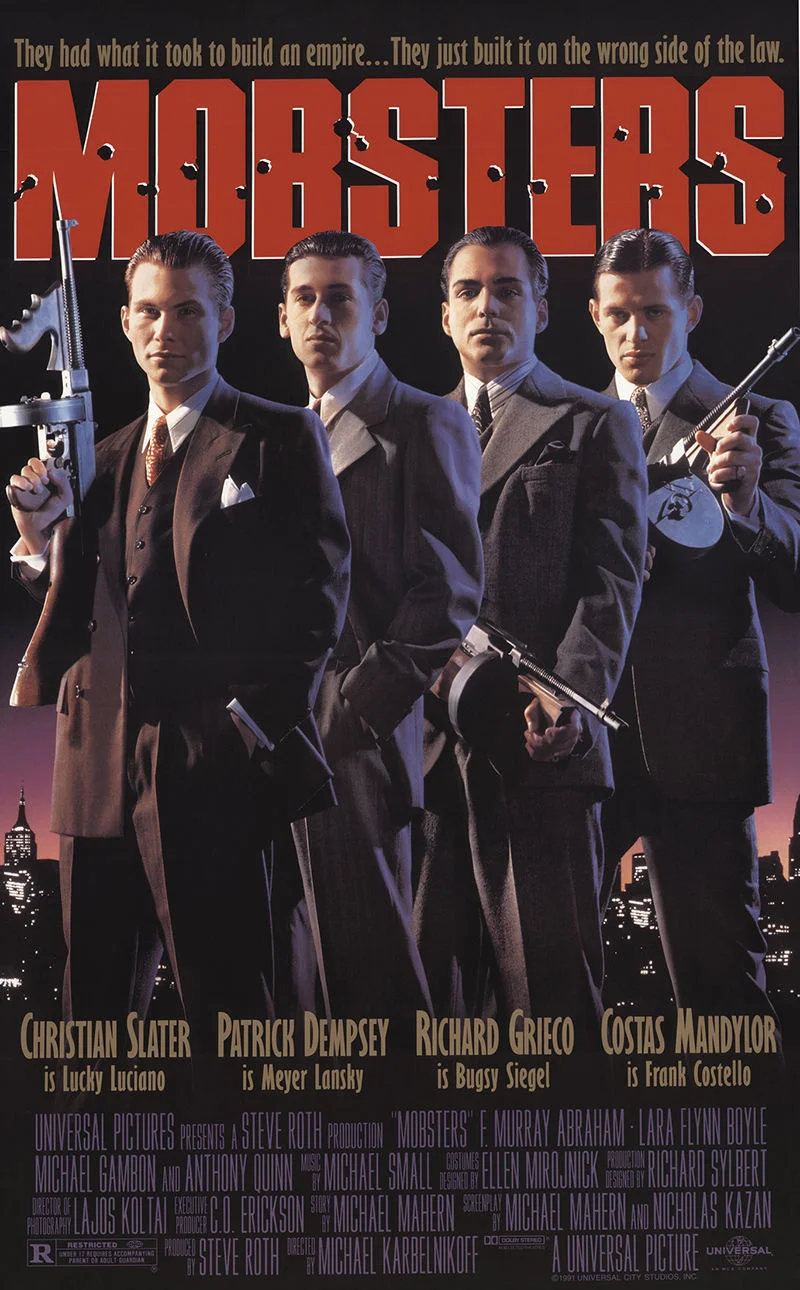
10/08:
Starring four heartthrobs Christian Slater, Patrick Dempsey, Richard Grieco, and Costas Mandylor, Mobsters
is the MTV version of The Godfather that was catered to clueless teens
during the early 90's.
Even worse is the fact that they play famous gangsters who are made out to be good guys. Anyone against them is
painted as a villain. Maybe we should build monuments to honor the bad guys and cherish their memories.
Anyway, the film is boring that's purely a marketing ploy with no substance. There isn't much of a plot to hold
it together. Although the setting is during the Great Depression, most of the scenes take place indoors; in other
words, it was too costly for the producers to permit lavish exterior sets.
Christian Slater is okay, but it's the other three stars who manage to stink up the joint. Anthony Quinn wastes
his time with such rubbish. Is it just me, or has F. Murray Abraham appeared in too many gangster pictures?
I like the scene when Mad Dog Coll used two Tommy guns to destroy a car, yet the three lead characters came
away unscathed. Ditto for Mad Dog Coll being shot by Lucky Luciano in his hotel room at a close distance but he
got away without a problem. These two sum up the silliness of the show.
All in all, I don't know why Mobsters wants me to cheer for the real-life gangsters.
Moby Dick (1956)
Rate:
8
Viewed:
12/15
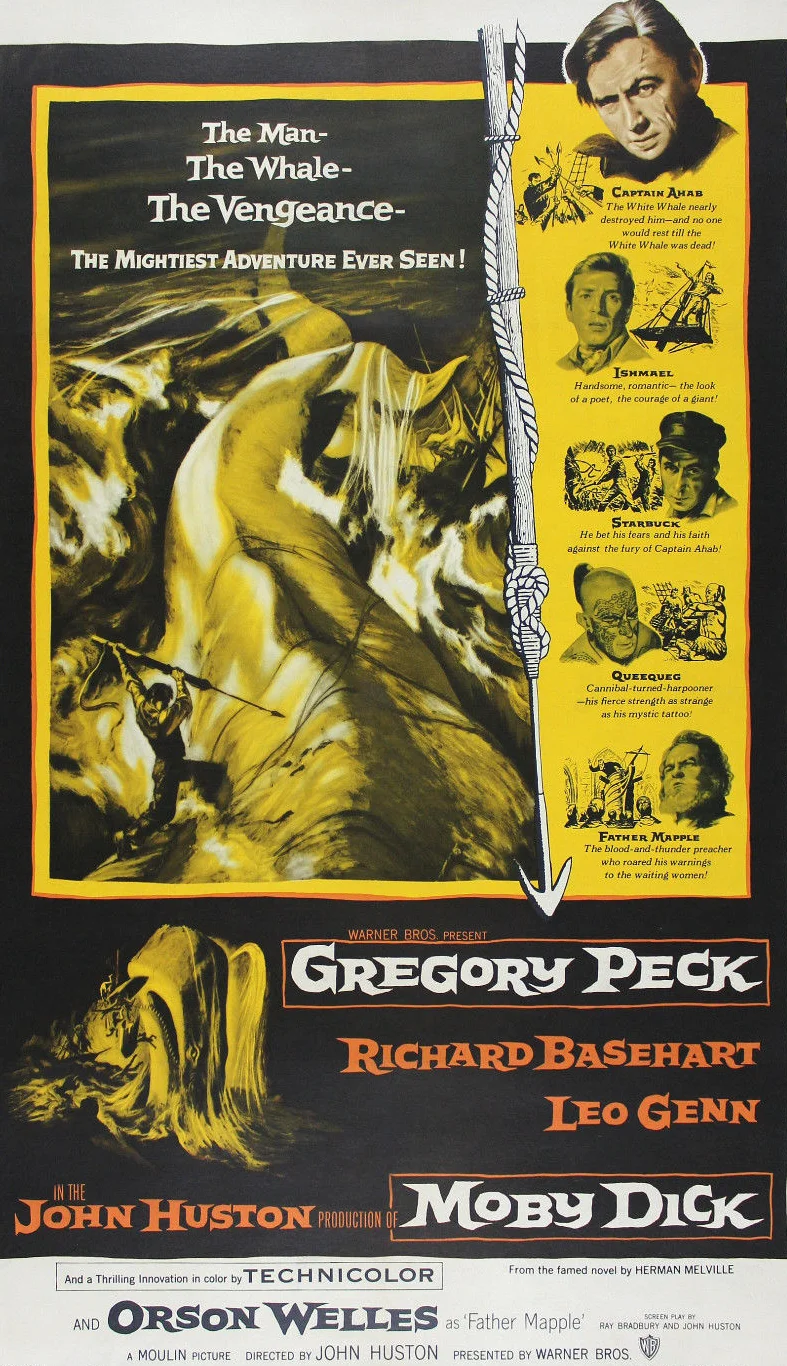
12/15:
I read Herman Melville's Moby Dick (yes! the fucking unabridged version) when I was in high school
but hadn't seen a film of it until two decades later.
I remember the story very well, but one thing that made an impression on me is how densely religious the novel was. Happily,
John Huston's film is faithful to it in spirit.
I know that I had bashed Gregory Peck in the past for his wooden acting, but I have to say he's a surprise as Captain Ahab.
Some have remarked that he was too young for the role and that Walter Huston would've done better if he were alive. Honestly,
Gregory Peck looks right, having been too hard on himself for not giving a great performance.
John Huston and Ray Bradbury's screenplay is through and through outstanding. Even better is Oswald Morris' immaculate
seafaring cinematography. The scenes with the fake whale are equally impressive. However, the special effects are somewhat
laughable and therefore unnecessary.
All in all, before there was Jaws, there was John Huston's Moby Dick, a grand spectacle of oceanic
action-adventure with a terrific Gregory Peck performance.
The Moderns (1988)
Rate:
9
Viewed:
6/17
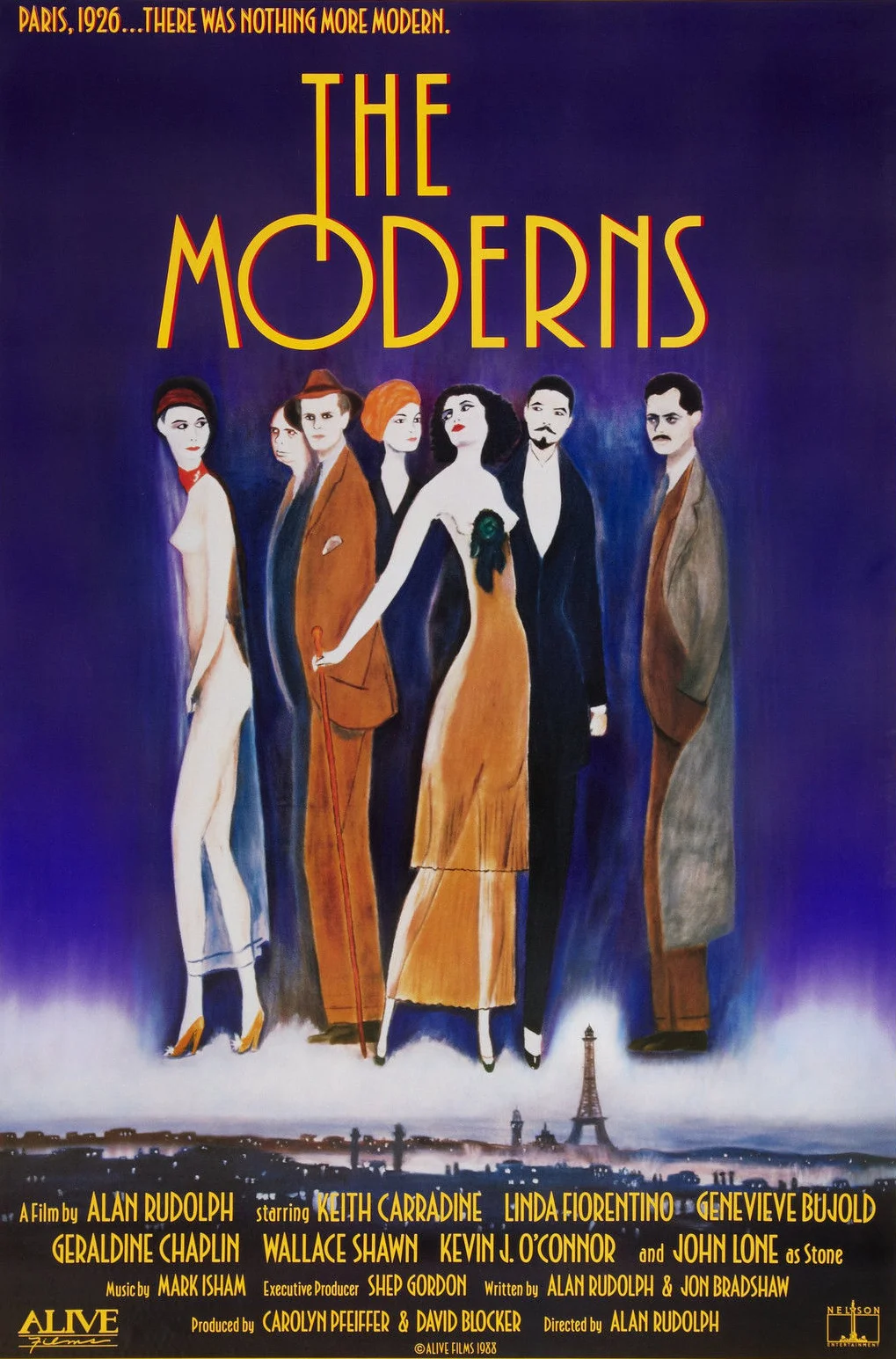
6/17:
Here's an overlooked film: The Moderns.
What an acting job by the cast. Keith Carradine, Wallace Shawn, Geraldine Chaplin, Geneviève Bujold, John Lone, and Kevin J.
O'Connor are all outstanding. It's their chemistry that makes it work.
Linda Fiorentino is just okay, being the only weak link. Her role was supposed to go to Meg Tilly. The best part is the
intelligent script that's full of delicious ironies. Keith Carradine is perfect by being in the center of it.
A lot of it reminds me of Robert Altman's pictures; hence, it's not a surprise that he's
Alan Rudolph's protégé. The zoom effect was used extensively in The Long Goodbye and then later
perfected in Vincent & Theo.
All in all, The Moderns is an all-around first-class picture with sharp intelligence and beautiful ambience.
Moll Flanders (1996)
Rate:
9
Viewed:
5/25
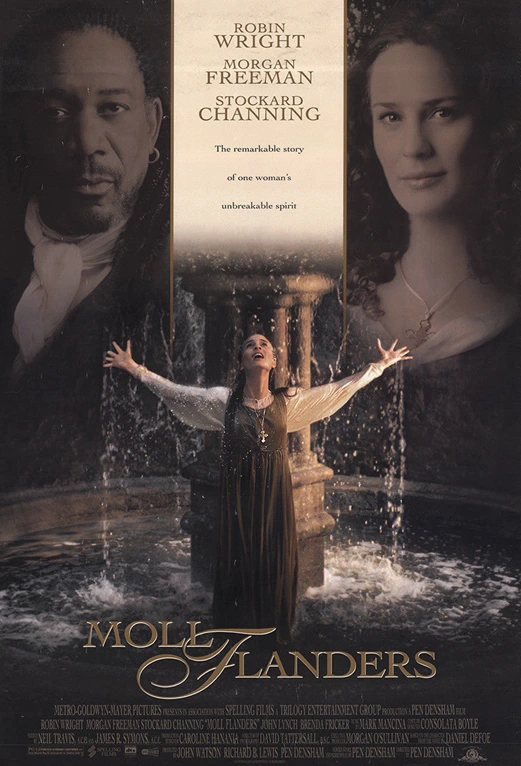
5/25:
I stayed away from Moll Flanders because of the negative reviews.
Because of Morgan Freeman, I decided to go ahead with it and got surprised by the quality of the writing
within five minutes which should've resulted in an Oscar nomination. It's a fine story with
first-rate costumes and wonderful cinematography, being on the same level as
Angels & Insects and Rob Roy, in
spite of showing little in common with Daniel Defoe's book.
This is really Robin Wright's film. She gives a commendable performance as the strong-willed heroine who puts
up with the hard conditions and finally sees the light at the end to get out of her desperate situation. In
other words, it's a classic story of one's fall and eventual redemption (think of
The Count of Monte Cristo). I'm just glad Robin Wright's role didn't go to Geena Davis; that would've
been bad. The supporting cast elevates the material as well, and extra points go to Stockard Channing, Morgan
Freeman, and John Lynch.
One reviewer said, "I loved how believable they made it. It was nothing crazy, no far-fetched fiction, just
every day people trying to find their place and worth in the world." That's true. I also like the narrative
style with Morgan Freeman reading the diary to the girl that brings back memories of
The Princess Bride. Everything was shot on location in Ireland.
All in all, I will want to see Moll Flanders again a while from now.
The Molly Maguires (1970)
Rate:
7
Viewed:
2/25

2/25:
If you liked Harlan County, U.S.A. because of the coal mining aspect,
you'll probably appreciate The Molly Maguires.
A period picture set in almost the middle of Pennsylvania during 1876, it highlights the struggles that
workers have while being paid low wages, living in a company-owned shanty town, and shopping
at a company-owned grocery store. Impressive is the high amount of blackness everywhere, even on the doors where
people normally touch. So is the photography by James Wong Howe.
Unfortunately, the issues are never made clear. Neither are the gangs' motives. What's the end goal?
The Molly Maguires doesn't explain. I've often asked why, and it's somewhat answered by Jack Kehoe (Sean
Connery) at the end. After researching a bit online, I found out that the Irish faced discrimination everywhere
and that coal mining jobs were the best they could get after moving to America. After a while, they ended up
owing more to the company than what they had been paid which, in effect, made them slaves.
Instead, the film is about James McKenna/McParlan (Richard Harris), as an employee presumably for the Pinkerton
Detective Agency, falling for Kehoe à la Point Break because he admires him.
But really...he got the job done and was ready to move on. The story of how it went down is what
happened for real except Kehoe was a saloon owner. Everything was shot on location at Eckley Miners'
Village in Eckley, Pennsylvania, which was at first abandoned and then converted into museum afterwards.
As for the cast, Richard Harris dominates while Sean Connery is average. Samantha Eggar does what she can,
and Frank Finlay comes out to offer a hand whenever he's needed. The rest of the players fill in the blanks. Apart
from the somewhat unclear script, the pace should be picked up more. Because of the film's commercial failure, it
damaged the careers of Richard Harris, Sean Connery, and Martin Ritt considerably.
All in all, The Molly Maguires is a decent picture that offers the bonus of seeing Richard Harris and
Sean Connery together in major roles for only one time.
Mom and Dad Save the World (1992)
Rate:
8
Viewed:
11/14
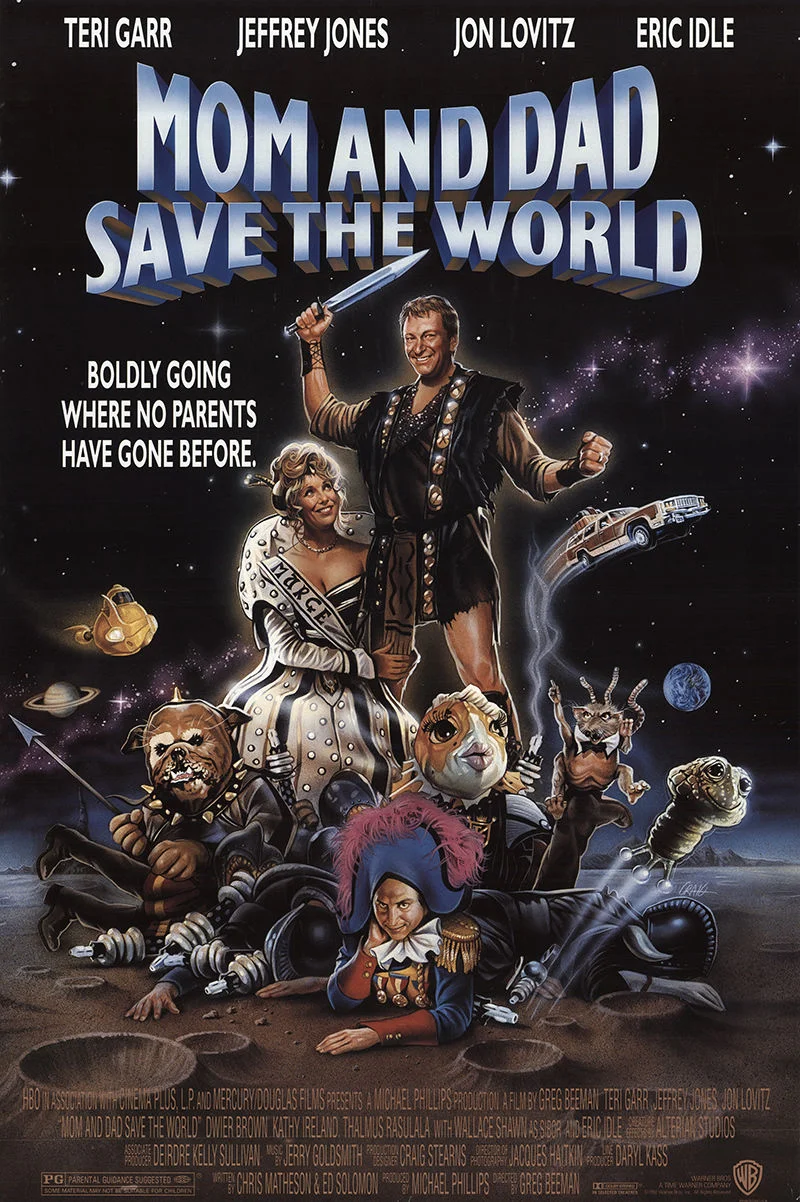
11/14:
I saw Mom and Dad Save the World on HBO many years ago and found it to be a memorable movie.
One scene that stuck the most in my memory is the light grenade incident. Upon hearing the explanation of how
it worked, Jeffrey Jones' character gave a deadpan reaction, calling it a stupid idea. Because the light grenade
is labeled with "Pick Me Up," the bad guys do so and die afterwards, they, one by one, continue to pick it up,
regardless, because that's what the label says.
Although not always funny, the movie is creative and has a lot of good-looking costumes and creatures. Nothing is
overboard when it comes to either vulgar or gross but keeps the palette even-balanced that's unlike Tim
Burton's films. Also, it's particularly nice that everybody, including Jeffrey Jones, is a good sport for going
along with the idea, even at the expense of Jon Lovitz's horrendous performance.
As fun as everything looks, I don't think it's suitable for kids because there's too much skin exposure which
sometimes goes too far, especially intimacy. If both aspects could be toned down significantly, it would've been
an appropriate children's film. By the way, Thalmus Rasulala, who plays Asir, died from a heart attack shortly
after the filming was completed.
All in all, Mom and Dad Save the World is high on creativity, but it's not consistently funny.
Mommie Dearest (1981)
Rate:
6
Viewed:
1/08, 5/17
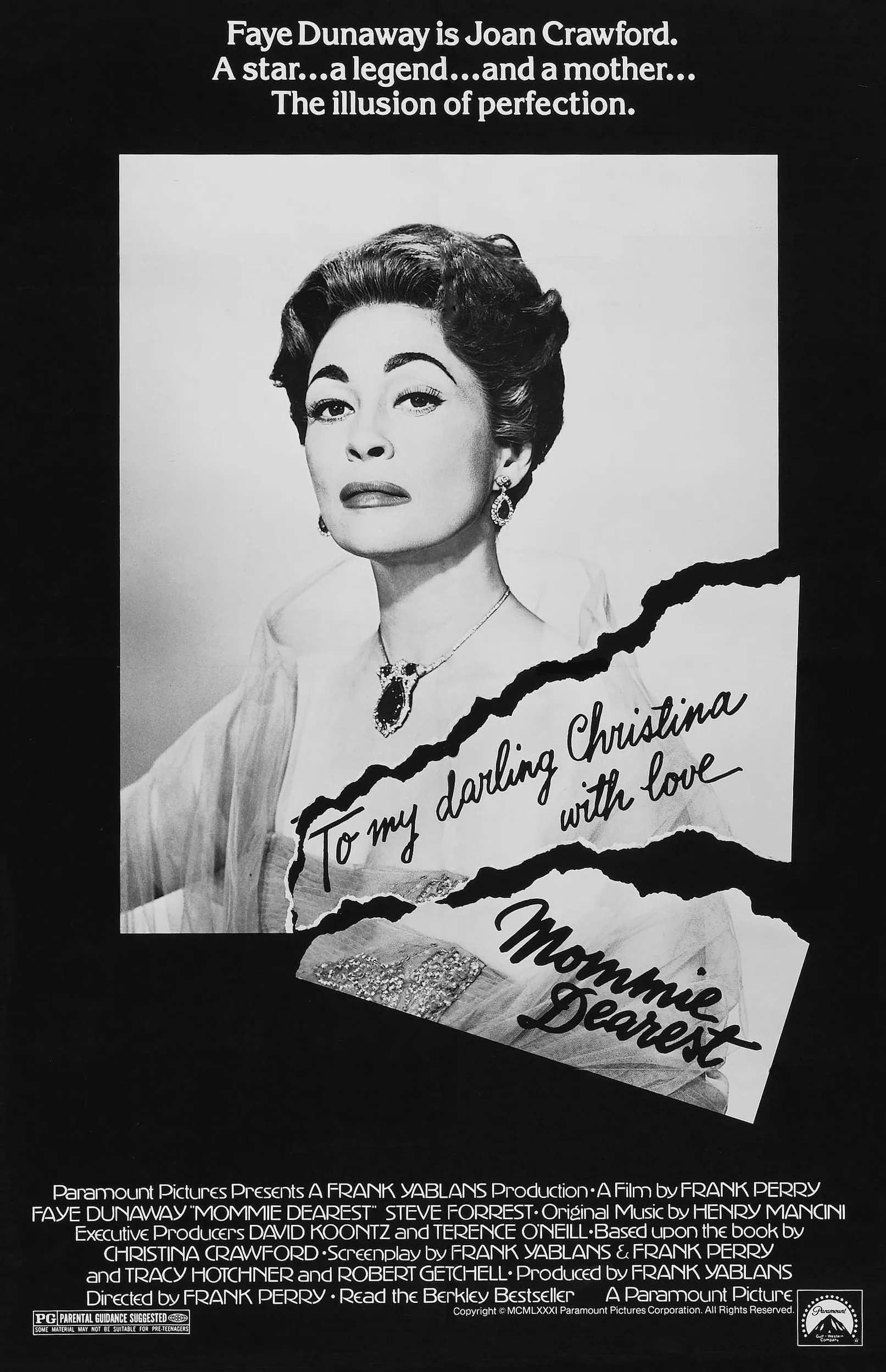
1/08:
Written by adopted daughter Christina Crawford, Mommie Dearest is the first and the most famous tell-all book
about Joan Crawford and the mystique of Hollywood.
It completely obliterated the movie star's reputation. To soil her image even further is Faye Dunaway's iconic camp performance.
Talk about two controlling kooks. What's lost in the shuffle is that the story was supposed to be about child abuse and
that Christina Crawford was the first to create awareness. So, kudos to her.
Back to the film, I don't think Mommie Dearest is that bad. It's more of a horror picture, at least
in the eyes of a child. Yeah, it goes overboard at certain times with the "No...Wire...Hangers!" scene that's the most infamous
of them all. It'll be forever etched in my memory when I think about Joan Crawford, and wire hangers will never be the same
again.
Fascinating are the obsessive-compulsive disorder, the bipolar moods, the gung-ho parenting, the bizarre rules, and the
spontaneous moments of insanity. However, the final thirty minutes falls flat which makes the whole thing a farcical
statement of what a total bitch Joan Crawford was; hence, it's better to read the book.
Now, we come to Faye Dunaway...she is Joan Crawford, period. I'm surprised that she wasn't rewarded with an Oscar nomination.
Having reminded me of Norma Desmond from Sunset Boulevard,
her performance is an Oscar winner if I've ever seen one.
All in all, my congratulations to Christina Crawford and Faye Dunaway for taking Joan Crawford down in flames in the worst
way possible; it's a much-deserved comeuppance.
5/17:
The most famous scene of Mommie Dearest is when Faye Dunaway, as Joan Crawford, yelled, "No...wire...hangers!"
Unfortunately, it was enough to propel the film into camp territory and ruin her career. That wasn't the intended message.
Rather, it's about child abuse, and everybody did a piss-poor job of not making it the central topic. If you read the book,
as I had, you can clearly see there's much more to Joan Crawford and the kind of mother she was.
The trouble is the awkward transitions from one scene to another and from one phase to another. The filmmakers seem more
concerned in capturing the highlights of the book. Hence, they've done a good job of making Joan Crawford a sympathetic
figure with poor parenting skills which is 100% bullshit.
All in all, Mommie Dearest mostly fails by not taking child abuse seriously.
Mon oncle d'Amérique (1980)
Rate:
6
Viewed:
2/17

2/17:
Mon oncle d'Amérique, which is translated as My American Uncle, is a French film about several professionals
who face stress in their lives.
My biggest issue is how workmanlike it is. It's evident through the narration which seems to be reserved for
educational videos. The stuff about how people react to stress and how they deal with problems that are out of their control
is interesting, but the side presentation, as explained to me right before it happens, is unnecessary. It's like being told
how to tie shoes in spite of it being second nature.
Yet it's a unique element of Mon oncle d'Amérique which is the reason for my weak rating of '6' when it should be '5'.
I feel the people who work in the corporate world can relate to it. The performances are fine; there's nothing to
complain. It's the writing that makes the film, hence the deserved Oscar nomination for Jean Gruault. In case if you're
wondering, the French thespians in the black-and-white pictures are Danielle Darrieux, Jean Marais, and Jean Gabin.
All in all, Mon oncle d'Amérique is not a film I will want to watch repeatedly, but it's
unusual for showcasing stuff that's commonplace nowadays.
Mona Lisa (1986)
Rate:
8
Viewed:
4/14, 9/20
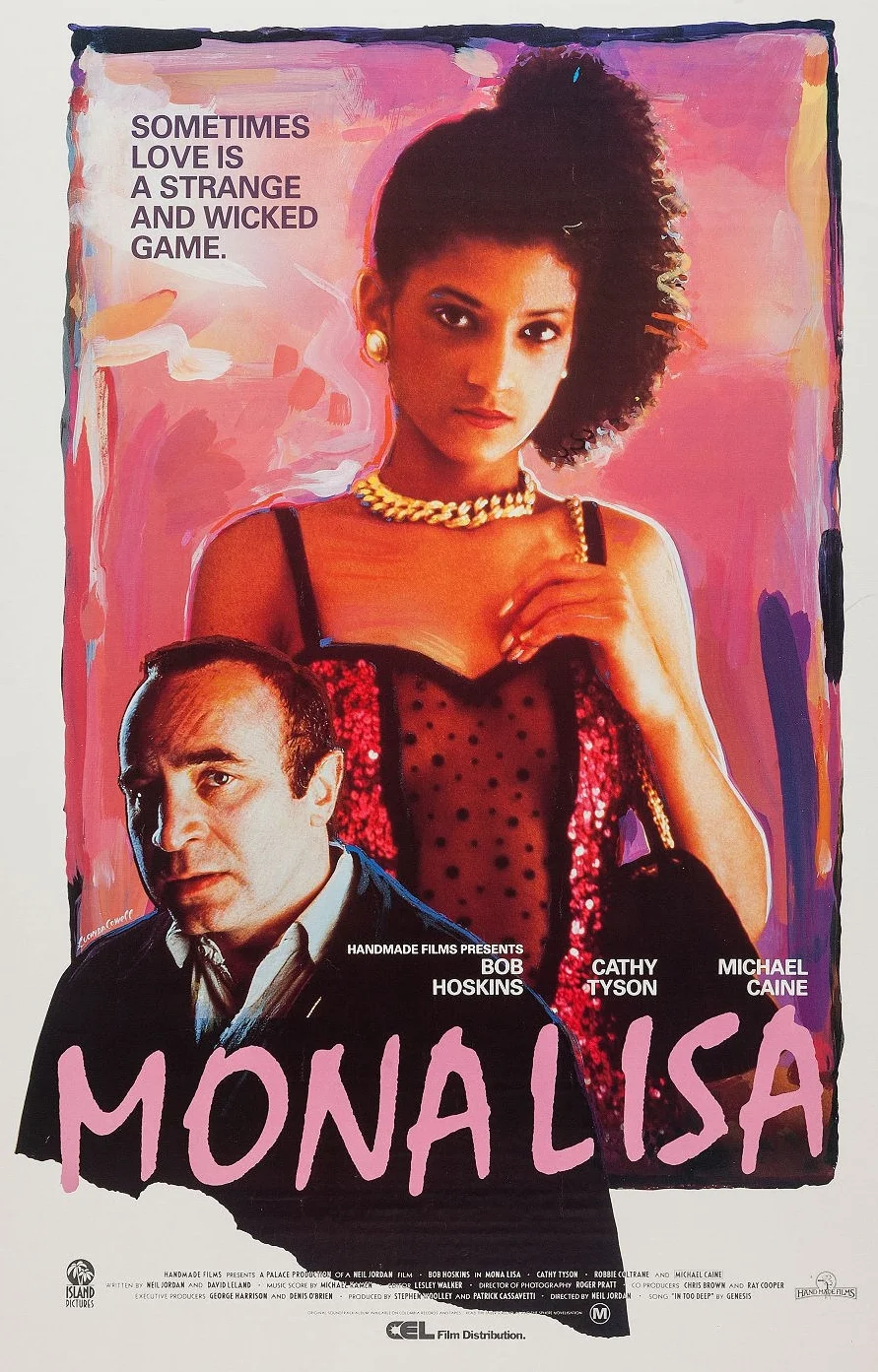
4/14:
I'm not a fan of Neil Jordan's films and don't think much of them, but there's one standout in his oeuvre: Mona Lisa.
Having first seen The Crying Game, an overrated film from the 90's, I'm now inclined to believe
Mona Lisa is where the source came from. Apparently, the director is obsessed with tall, thin, black tarts whether
they're transsexual or not.
Anyway, it's clearly Bob Hoskins' show. As a reward, he was given an Oscar nomination. I've always thought of
him a natural actor, and in Mona Lisa, Bob Hoskins makes most of his potential and is effective in creating
chemistry with Cathy Tyson.
His character, George, is peculiar because he's a bulldog who happens to be both stupid and naïve. Yet he's fascinating
because of his volcanic temper. George finally figured out at the end that he had wasted his time
with the black hooker after all. A strange odyssey into the seedy world of pornography and hustling, the film is, in many
ways, Taxi Driver and reverse Taxi Driver all rolled into one. Although the theme has been touched many times
before, it's nice to see the application of some British flavor.
The casting of Michael Caine, who's great by the way, is ironical if I think back to his character in
Get Carter
when he played a good guy (if you will), and see his transition to the other side. Robbie Coltrane plays a pleasant
secondary character who adds a bit of candy for the fun of it.
All in all, thanks to Bob Hoskins, Mona Lisa is a delightful, if disturbing, neo-noir picture with plenty of
verve.
9/20:
Some movies have been tailor-made for certain actors, and for Bob Hoskins, it's Mona Lisa which earned him an Academy Award
nomination.
As much as I want to like it, comparisons with Taxi Driver are difficult to avoid. Both are nearly the same
except that Mona Lisa is British and has a reverse ending. Regardless, it's been a pleasant viewing.
I don't have any sympathy for the "tall, thin, black tart," but what she goes through her job as a high-class call girl is
similar to the prostitution stories in a three-book-series for You'll Never Make Love in This Town Again. Hence,
Cathy Tyson's performance is true to the core. By the way, what the heck happened to her career afterwards? She hasn't
been in anything else of prominence.
George must be either stupid or naïve not to know what's going on, but he has one winning trait: his bulldog personality.
It makes him an endearing character, hence the perfect casting of Bob Hoskins. Michael Caine is great, having done a
similar picture called Get Carter.
All in all, Mona Lisa is the British version of Taxi Driver with Bob Hoskins giving the best performance of
his career.
Monday Night Mayhem (2002)
Rate:
7
Viewed:
9/21
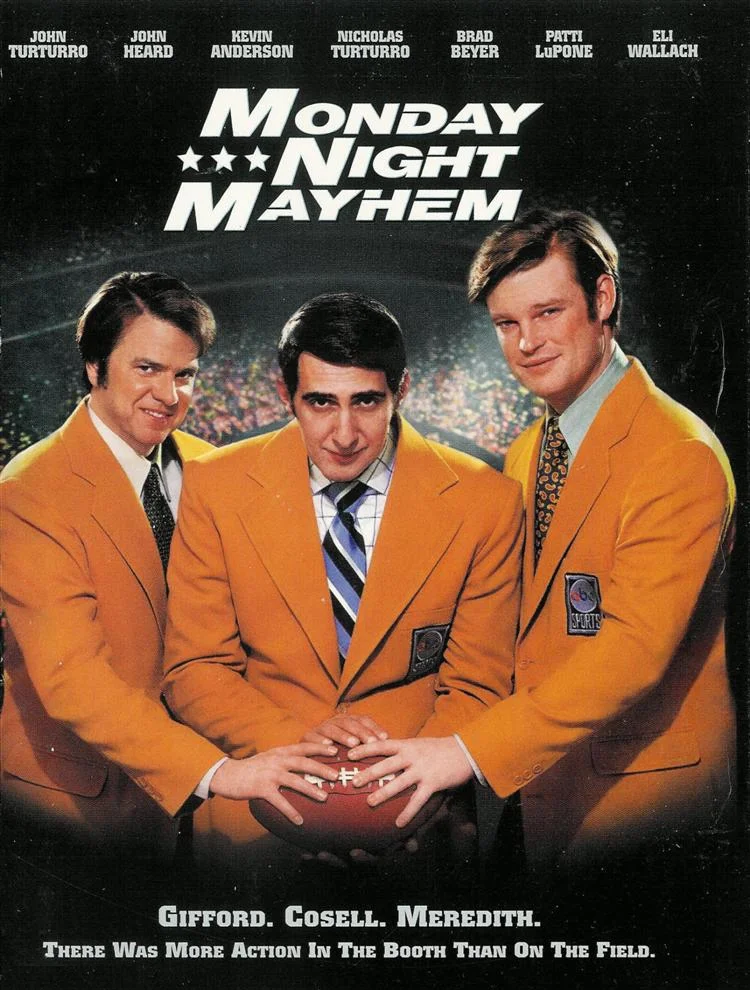
9/21:
Monday Night Mayhem tells an interesting backstory of the fractured relationships among who's who of televised sports
despite the show's tremendous success.
I knew who Howard Cosell was and never liked him. He was an arrogant, pompous, alcoholic, know-it-all wordsmith with a
boundless ego. Howard Cosell faded away into oblivion after he was unceremoniously booted from the lineup and then fired for
good when he announced baseball games while drunk. Ironically, Al Michaels worked with him during an 1984 ALCS telecast and
called him out for it yet was arrested for DUI in 2013. How Howard Cosell died can be attributed to many reasons, but one is
the clearest: his excessive cigar-smoking habit.
Monday Night Football used to be a big thing back then. The show lost relevance when ESPN took over, turning it into a
football game that happened to be on Monday night. For a while, Sunday Night Football was actually
Monday Night Football in disguise, and then it slowly became a football game that happened to be on Sunday night. Sadly,
after John Madden retired, the quality of the announcers went from bad to awful to putrid so much that I would automatically
mute the TV.
Back to the film, the toughest part is making the adjustment from real people to actors pretending to be a
caricature version of them with John Turturro being the prime target. I'm not going to take anything away from his
performance because it's a fantastic job, but he's no Howard Cosell. Only the man himself can play Howard Cosell.
As for Don Meredith, he was actually a big, handsome-looking guy, but Brad Beyer doesn't fit the bill. Kevin Anderson
of Liebestraum is kind of close as Frank Gifford. John Heard is more developed as Roone Arledge who's primarily
responsible for making Monday Night Football what it was, and he wanted only Joe Namath to start it off. The
guy who plays Chet Forte is John Turturro's brother Nicholas.
All in all, if the comparisons can be ignored, Monday Night Mayhem is a well-done movie that brings back memories.
Moneyball (2011)
Rate:
5
Viewed:
5/21
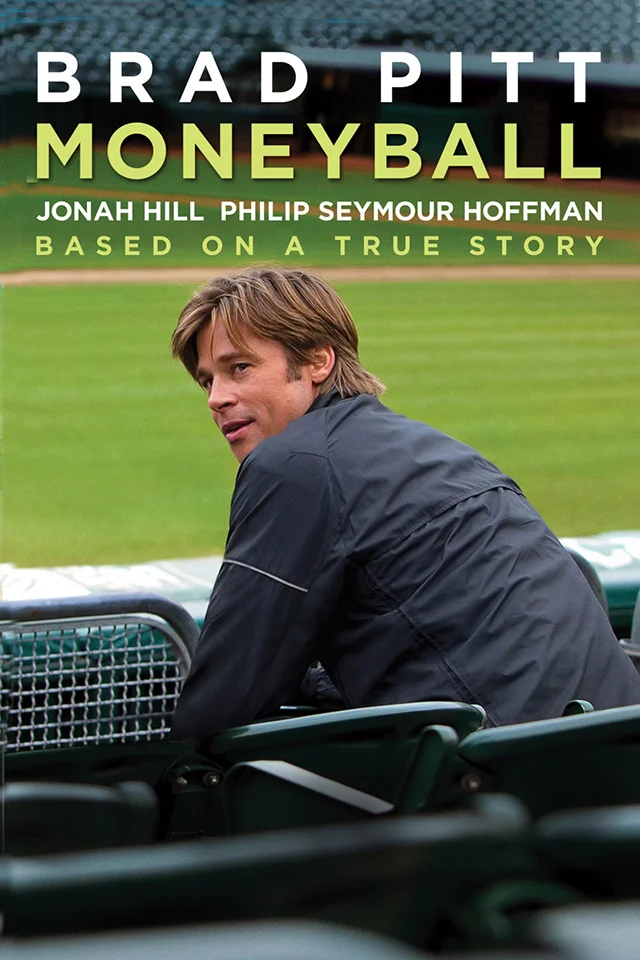
5/21:
"Moneyball renews your belief in the power of movies."
So sayeth a critic except that it's not the case for me. On the contrary, it failed in terms of telling the full story.
Ordinary people will take the narrative as presented to them: Billy Beane assembled a team of ragtag players for the
Oakland Athletics to win a lot of games. But to me, he got some fringe players to round out the rest of the roster to
squeeze an extra 15 to 25 regular season wins, that's it.
I don't give shit about baseball. There's nothing romantic about it. The strike of 1994 killed the game for good. Steroid
revelations, which started with Jose Canseco's book Juiced: Wild Times, Rampant 'Roids, Smash Hits & How Baseball Got Big,
punctuated everything that's wrong with the game along with what happened during the Astros' World Series
championship season. Back then, I used to know many players' names for every team, but today, I can't come up with
a single player overall.
An average of 44 million people watched the World Series in 1978. Today? It's around 14 million, a decline of 68%, and that
number continues to fall. Of all major professional sports, MLB has the oldest median age of fans: 57 which is still climbing. That's
because most of the concentration lies in the baby boomers of post WWII. Millennials and others born afterwards
have no general interest in baseball. Fields are often empty every time I drive past them.
The reason is crystal clear: who can watch a long, boring three-hour event of overpaid players scratching and adjusting their
dicks while chewing and spitting out tobacco? They do this for 162 games year in, year out. You must be out of your mind to
sit through this bullshit. Even Moneyball is shorter than the average baseball game nowadays. There are
better and more productive things to do.
With these facts in my mind, it's hard to watch this film and feel any better about baseball. In
fact, I had no idea of what happened in 2002. Any World Series championships that occurred in this century, I don't
know who won, but if I have to guess, it's the Yankees because they always win all the time, hence the phrase "damn Yankees."
Remember what I said about "not telling the full story"? The movie conveniently leaves out the core players (Miguel Tejada,
the AL MVP of that season, and Eric Chavez) and, more importantly, the dominant pitching staff (Mark Mulder, Tim Hudson, and
Barry Zito) who were primarily responsible for the season the team had had. Ironically, they were all scouted and drafted
through the traditional means. Steroids also had a lot to do with it as nine players including Miguel Tejada admitted to PED use
from 2001 to 2003. Prior to his departure, Jason Giambi was one of the biggest offenders while playing for the Athletics. So
was his brother Jeremy who was an average player for the most part (3/15/22 Author Note: Jeremy Giambi killed himself).
Oh, by the way, who played for the A's before then? Jose Canseco and Mark McGwire, two of the giants on the Mount Rushmore of
steroid users. About twelve miles away is where Barry Bonds used to play: San Francisco. Jason Giambi initially hooked up
with him through trainer Greg Anderson of BALCO. While all of the steroid stuff was going on, MLB did nothing
about it, and the game continued on while losing millions of fans in the process.
Finally, we come to the bare, basic facts about sports: talent wins championships and money buys the best talent. However,
there's only one thing that's undeniable: teamwork. It's the last and final ingredient to break through the glass ceiling. So,
how did the Athletics do this century? They still haven't won a World Series title. The 20-game winning streak in 2002? Who
cares? That's regular season stuff just like the New England Patriots' 16-0 record. It means nothing when the ultimate
championship hasn't been won. Of course, that's in the eyes of the fans, but to the owners, the bottom line is: profits.
And the owners consistently win, no matter what happens.
Funny enough, the Minnesota Twins that beat the Athletics in 2002 playoffs had almost the equivalent budget and was in the bottom
five for salary of all MLB. Since then, Oakland lost the edge and was never good again for a long time because the
book got published to chronicle its success, causing other teams to copy the blueprint which led to a World Series win for the
Boston Red Sox that had a former A's player named Johnny Damon.
As for the film, it makes for an okay viewing, but the feel is often cold, calculated, and lacking in humanity. Perhaps that's
why sports are difficult to get into nowadays due to the corporate nature of them, resulting in bland personalities as
demonstrated by many as compared to the guys of the 80's and 90's. Just think of the '85 Bears team and the superstars of
NBA like Charles Barkley and Dennis Rodman. Hell, Major League had a bunch of entertaining players and remains a
memorable baseball picture. I even liked watching tennis because of Andre Agassi, Jimmy Connors, and John McEnroe.
Brad Pitt is mostly fine and is largely the reason why I survived the dark, unentertaining movie despite many
product placements while Jonah Hill relies on his cuteness to make through the scenes. Neither resembles the actual
guys themselves. At one point, they were making a deal for a player, and I had no idea what the heck they were
talking about.
The thing between Billy Beane and his daughter is a major deviation from the central focus. Do I really have to listen to her singing?
I'm surprised to see little screen time being granted to Philip Seymour Hoffman; he must have done no more than four hours of work and
then signed off by saying, "Well, see ya around, guys...I'm gonna shoot up heroin." The actor would die three years afterwards.
All in all, a lot of facts have been left out in Moneyball because they don't fit the dreamy narrative that's
routinely thought up all the time at CNN.
Monkey Business (1952)
Rate:
4
Viewed:
7/25

7/25:
When the opening credits rolled for Monkey Business, I became disappointed after seeing that Ben Hecht,
Charles Lederer, and I.A.L. Diamond wrote the script.
They have a reputation for turning films into overly talky bores sometimes. After twenty minutes of
Monkey Business, my suspicion was confirmed. Then, the chimpanzee showed up and stole the show
effortlessly from everybody including Cary Grant and Marilyn Monroe. Unfortunately, that lasted for ten minutes,
and it's back to the same with the first half being full of talk and rear projection effect during the car scenes.
Finally, Cary Grant displays what he does the best in the screwball comedy genre, but it's too little, too late.
The 40-year-old Ginger Rogers tries to keep up with him, but she's somewhat out of her element and belongs in
musical pictures only. Peter Bogdanovich once asked, "Why not switch her with Marilyn Monroe?" That's an
interesting observation, but I doubt she's capable of pulling it off. By the way, Marilyn Monroe has a total
screen time of probably fifteen minutes and is thus rendered as a wasted valuable asset.
Therefore, Monkey Business isn't funny, and weird things happen during the second half with Cary Grant
applying paint on his face and doing the war cry as if he's Geronimo, Hugh Marlowe being tied to a tree with
a mohawk on his head, the sight of a fully naked baby boy, and Ginger Rogers treating Marilyn Monroe like an
idiot and a pin-up tramp (mucho jealousy in real life, eh Ginger?). Howard Hawks eventually admitted to the
failure of the film which is, believe it or not, more sci-fi in tone.
All in all, it's obvious what everybody should've done in Monkey Business: let the chimpanzee be the
star of the show from start to finish with Cary Grant and Marilyn Monroe on hand for support.
Monkey Shines (1988)
Rate:
7
Viewed:
10/11

10/11:
If Monkey Shines could be a drama film about a capuchin monkey helping a quadriplegic person instead of the horror
rubbish I saw, it would've been a winner.
Regardless, it's not a bad film that's a cross between Born on the Fourth of July and
The Brood. The first forty-five minutes or so is good because the premise is interesting and unique. However, the
last half hour drags a lot. What I like is the underlying psychological issues.
Moreover, the acting is well-done and convincing.
All in all, Monkey Shines is an enjoyable picture from George A. Romero, and not to worry, the amount of animal abuse
is practically nonexistent.
The Monster Squad (1987)
Rate:
10
Viewed:
10/07, 2/08, 3/17

10/07:
Imagine my delight when I found out there'll be a DVD release of The Monster Squad.
I remember how good the movie was, having seen it many times on HBO during the late 80's and early 90's. It's one of the
all-time great children's films. A delicious mix of horror and comedy, it's how well it bridges the gap, giving something
for everybody: horror fans, comedy fans, children, and adults.
The best part is putting together the five most famous movie monsters from Universal Studios in one film: Count Dracula,
Wolf Man, Mummy, Frankenstein's Monster, and Creature from the Black Lagoon. The
Goonies-like kids, with the
help of several adults, go against them in an all-out war to save the world. The results can't be any more entertaining.
The acting is natural across the board. There are some great one-liners including "Scary German Guy," "Kick him in the nards,"
and "Wolfman's got nards!" My favorite moment is when the little boy's father opened the closet door and said, "Ooh! Look
at that big, scary monster!", never looking back at it before closing the door.
Another is, which occurs at the end, when Van Helsing held Count Dracula through the time portal and he gave a thumb
up to Sean. Not to forget is when Rudy spit out the soda when he heard of the virgin question which turns out that
she wasn't. The saddest moment is when Frankenstein's Monster got trapped in the whirlwind of the time travel portal.
All in all, The Monster Squad is one of the greatest cult masterpieces.
2/08:
The Monster Squad has it all that I can ask for in a children's film.
I love the ingenuity of the plot. Even more impressive is the acting. The funniest part is when Horace the
fat boy yelled, "Wolfman's got nards!" Sadly, Brent Chalem, the actor who played him, died of pneumonia in 1997 at the age of
22. The "Scary German Guy" said he knew a lot about monsters. That's true for having survived the Holocaust. It's a great,
quiet homage to the victims.
All in all, I can't believe The Monster Squad is one of the most overlooked films of all time.
3/17:
The Monster Squad is still one of the best children's films made.
Duncan Regehr's Dracula is the best I've ever seen in any film, and I'm not kidding about it.
All in all, The Monster Squad is a brilliantly made horror film.
Monster's Ball (2001)
Rate:
8
Viewed:
4/05, 6/25

6/25:
Halle Berry won the Oscar for Monster's Ball.
So, what did it? Taking off her clothes or the drunk scene she had with Billy Bob Thornton? Either way, Halle Berry
has done a good job, but it's not Oscar-worthy. The sex scenes are overboard and therefore unnecessary.
Instead, she would've benefited from more conversations with her co-star.
I have to say that Billy Bob Thornton did most of the lifting and thus carved out a pretty good character
for himself. What a surprise he didn't get an Oscar nomination for it. Ditto for Peter Boyle who gave the
best performance of the show. He was the most believable as a scary guy, having done so in the past such as
Joe, Taxi Driver, and
Hardcore.
In 2001, Monster's Ball was The Crying Game of its time by
serving a weird twist of irony. Here's another: Sean Combs' character got executed in the film for murder,
and he's currently facing trial that may send him to prison for life. How about that shocking moment
for Heath Ledger? He also died young for real seven years later.
The setting confused me for a while. I thought it was South Carolina. Finally, the license plates showed up to
indicate it's Georgia. Yet when I saw the prisoners working outside with their hoes up in the air, that had to
be Angola. It turns out they shot the whole film on location in Louisiana including Louisiana State Penitentiary.
All in all, Monster's Ball is a well-made Southern Gothic picture with strong performances.
Monument Ave. (1998)
Rate:
4
Viewed:
7/20

7/20:
While Monument Ave. is about Irish losers doing loser things, I've been desperate to be told why I
should care.
For a short movie, it runs too long, and there's an editing issue in spots. For example, a cop stops two guys
jacking a Ferrari; one of them runs away with the heat following him, so what happens afterwards? Instead,
the movie cuts to guys walking on the street while having a chat.
Plenty of thespians such as Famke Janssen, Martin Sheen, and Ian Hart are given ample screen time to develop
their characters, but none of them turns out to be interesting. Instead, they go through their lives as if it's
the same from yesterday. Therefore, why am I being bored to death?
Mutton chops and all, Denis Leary is fine, but for only five minutes of screen time, Billy Crudup steals the
show. Because of the former's hockey and Irish background, Monument Ave. looks like a perfect pet
project for him. Yet the country yawned, allowing the film to gross $333,760 against a budget of $11 million.
That means not many people in Boston were enthusiastic about coming out for this work of Irish crap.
All in all, covering the same subject minus the ethnicity, Cop Land
is better than Monument Ave.
Moonlight (2016)
Rate:
6
Viewed:
3/17
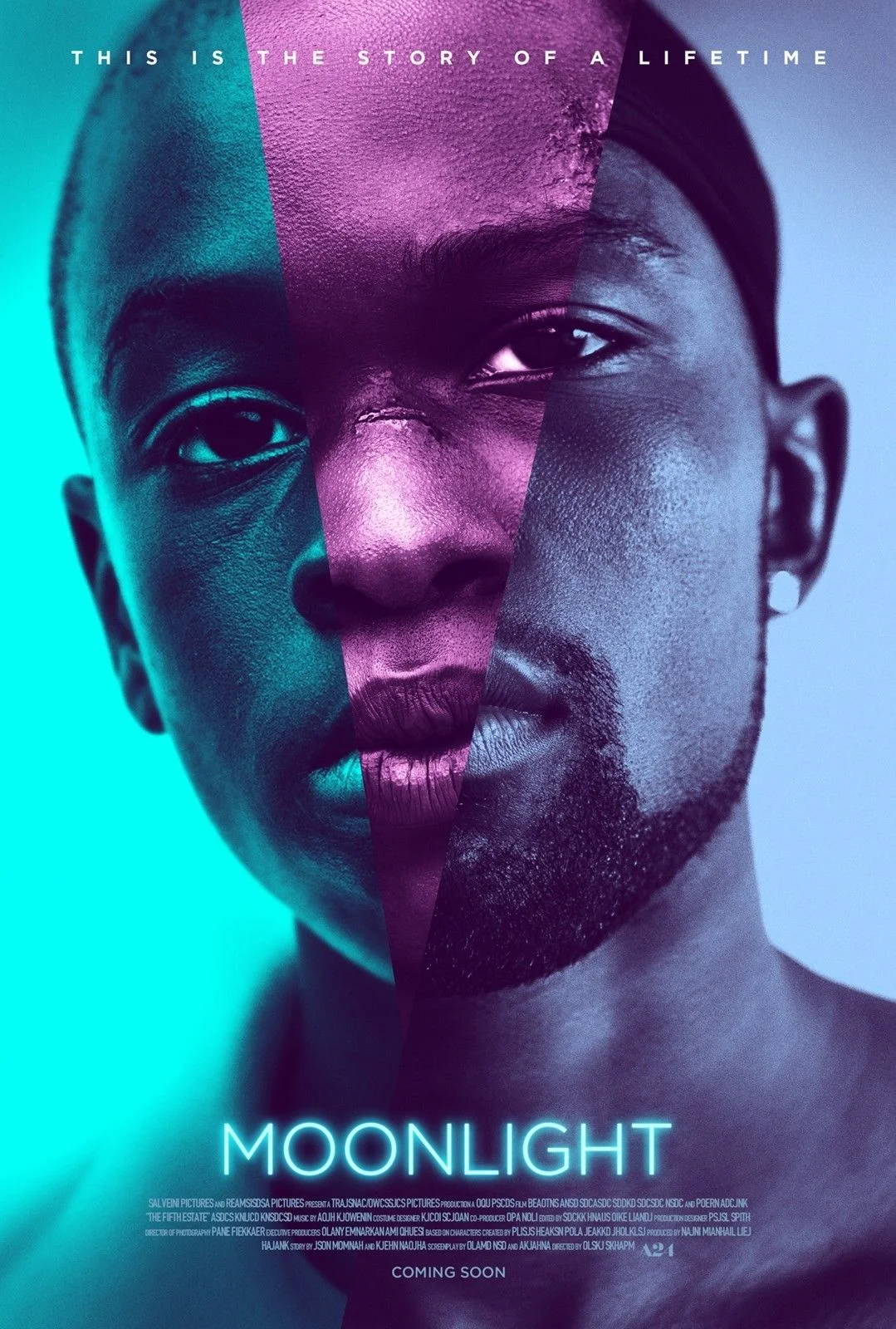
3/17:
Moonlight is the first picture with an all-black cast to win the Oscar for Best Picture.
That's amazing. So, let's think about the history of black cinema the last fifty-five years:
Shaft, Sounder,
A Soldier's Story, The Color Purple,
Lean on Me, Glory,
Boyz n the Hood, Rosewood, and
Antwone Fisher. Most of them would've won Best Picture if they didn't have to go against
a stacked deck of superior films.
But the last twenty years, the quality of filmmaking has gone straight downhill. There are no great pictures anymore.
Many of them are total dreck; that's why I've only seen a total of 22 feature films that were made the last ten years
compared to almost 800 from the 90's.
When a 21st century film wins Best Picture, it's not comparable to most pictures from the 50's through the 90's. Hence,
Moonlight is such that. It's told in three acts, and they've been inconsistent. The first act is okay but
is mostly irrelevant. The second is when things started to improve; it was coming together so well with haunting moments.
The third and final act is what torpedoed it, and the movie just sank to the bottom of the ocean floor like
the Titanic.
Overall, Moonlight is an above-average movie but is certainly no Best Picture material. If they can just stick with
Act II, I think we got something here. The truth is: nearly all films of the last twenty years aren't Best Picture
worthy and are either plain or awful. When I finished Moonlight, I was mystified by the sheer number
of awards that were heaped on everybody. The trouble with the voters is that they don't know how to evaluate a film properly.
The performances are good, and the players have done an excellent job of ensuring high quality filmmaking. Mahershala
Ali won the Oscar for Best Supporting Actor, and Naomie Harris was nominated for Best Supporting Actress. Neither deserved
it because they weren't remarkable enough. It's a case of "been there, done that."
One aspect I hate, which is a common complaint for many recently made films, is the shoddy camera work. This one gave me a
headache as the amount of close-up shots was almost 100%. Come on. Just show some space, and let me breathe, for goodness' sake.
All in all, the voters of the Academy of Motion Picture Arts and Sciences need to call a spade a spade by letting the
categories go default, even if it will last for years, until somebody truly deserves an Oscar for turning in an
exceptional piece of work.
Moonlighting (1982)
Rate:
6
Viewed:
3/25

3/25:
When people see the title Moonlighting, they immediately think of the TV show with Bruce Willis and
Cybill Shepherd, but there's also a movie starring Jeremy Irons.
Along with The Lightship, it makes clear that Jerzy Skolimowski is an
inept filmmaker. He doesn't know how to tell a meaningful story and get to the point. But Jeremy Irons is
something else. He's a one-man show from start to finish with the ability to speak Polish. The movie largely
has a pulse because of him. What a surprise that Jeremy Irons didn't get any accolades.
Back to Jerzy, how can he have four guys over from Poland to England and completely ignore three of them only
to focus on one? Why not just focus on about Jeremy Irons' character, Nowak, and forget the rest? It
worked well for Rowan Atkinson when he did Mr. Bean. I'm sure Nowak can do all the remodeling
work himself.
Something else that I don't understand is Nowak's method of stealing food. He does it by placing one of his
gloves at a specific place in order to bag whatever. How will that work when the store is too small and it's
easy to tell who has done the transaction if there's only one way in and out? If I were Nowak, I would spread
out at least five grocery stores in the area and do each once a month. Otherwise, why not go to a church? I'm
sure it will give out food for free.
All in all, Moonlighting isn't much of a film, but die-hard fans of Jeremy Irons will love it.
Moonraker (1979)
Rate:
3
Viewed:
2/11
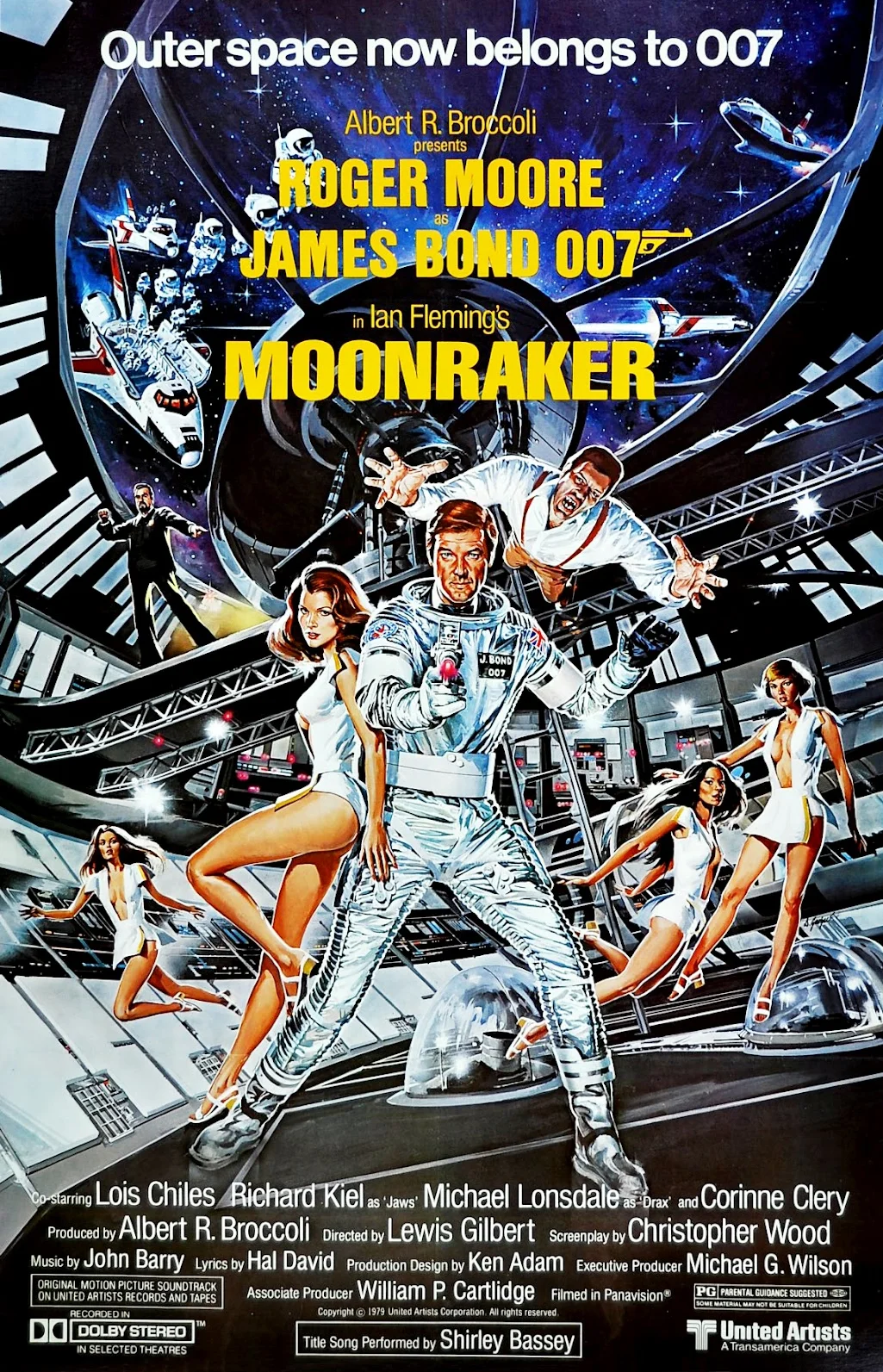
2/11:
After seeing ten James Bond movies, I noticed that, by reading the reviews, Moonraker was the worst of them all, and
so, I thought I would better brace for it.
The assessment turns out to be untrue. On Her Majesty's Secret Service is still the number one for me.
Moonraker is rather passable but boring to watch. It's hard to believe that Dr. Goodhead would pretend
to be a scientist at Drax's company and know it all when, in reality, he's just a CIA operative.
The worst part is when the lady, who helicoptered James Bond, agreed to help him procure information from the study and was
then hung out dry to death at the end. That has to be selfish and ignorant of him to do this to her. An impossibility is
when James Bond and his female sidekick were launched from Earth to outer space without their helmets on.
Of course, Jaws gets dropped like 20,000 feet through the air and lands without a parachute, surviving the fall. Eh is a
repeat of the scuba diving battle, but this time, it's with lasers in outer space. For the umpteenth time, James Bond
has to put on his sleazeball charm to woo "beautiful" tanned women. *yawn* I'm really sleepy.
All in all, the James Bond franchise keeps hitting new lows.
Moonstruck (1987)
Rate:
5
Viewed:
11/10, 6/21
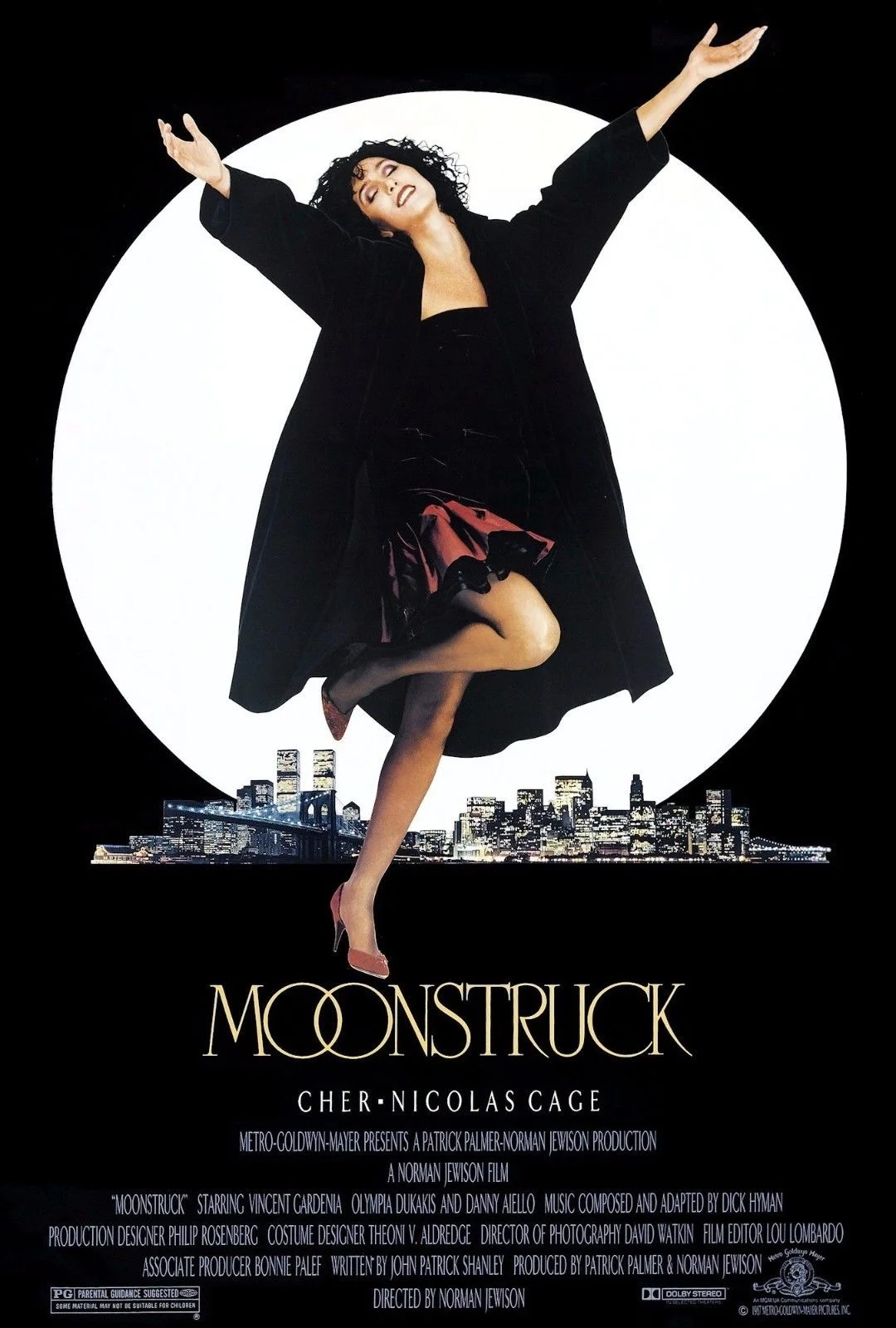
11/10:
Moonstruck is a unique, funny picture with quirks and ironies but can be overly theatrical at times.
Of the cast, Nicolas Cage gives the best performance and is easily the catalyst of what's to come. Knowing
Nicolas Cage's talent, what a waste it has been during the last fifteen years of his career. This means Cher, the Oscar
winner, wasn't responsible for getting me into it as I found her to be artificial. In other words, her performance is decent
but not award-winning enough.
Olympia Dukakis' performance is overrated. Her character is boring and uninteresting. Well known for playing Fraiser's dad,
John Mahoney is excellent in a small supporting role, and it's funny every time he gets thrown water in the face and
says something about removing all evidence of his female companion.
All in all, Moonstruck is a great romantic classic with a terrific ending.
6/21:
All right, I'm going to lower my rating for Moonstruck from '8' to '5'.
Having almost no plot to speak of, the movie is too Italian-fake and sentimental. Romance is constantly in
the air, and everybody is infected by it. Yet what's with some of the characters looking ashen? That's a bad makeup job there.
Oscar wins for Cher and Olympia Dukakis? Uh, right...one won it for looking so glamorous and the other for being so damned
mournful. Screaming constantly to keep up with Cher, Nicolas Cage is ridiculous. So is Danny Aiello for playing a character
who makes no sense.
All in all, a real plot, some more comedy, and less camp acting would've benefited Moonstruck more.
More American Graffiti (1979)
Rate:
2
Viewed:
11/05, 7/12
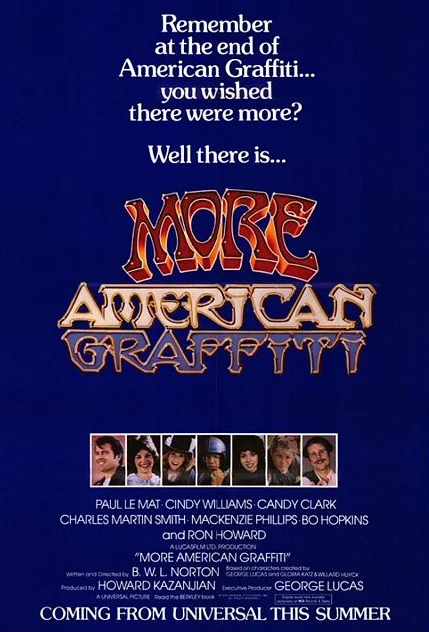
11/05:
If American Graffiti left you feeling good, then forget about More American Graffiti.
It's a bad sequel. The back-and-forth sequences are useless, and the subplots are superficial and emotionally
underwhelming. Ron Howard looks fucking stupid with a moustache.
All in all, More American Graffiti is what puke looks like.
7/12:
I feel like punching Ron Howard in the nose.
He looks stupid with a mustache. Everybody, minus Richard Dreyfuss, comes back for More American Graffiti. Even
Harrison Ford stars. It's nothing like the original but takes a rather depressing look at everybody's
life post-high school. The fancy camera work is unnecessary, and the additional characters serve no purpose.
All in all, I won't be surprised if I learn that George Lucas had disowned More American Graffiti just like
The Star Wars Holiday Special.
Morituri (1965)
Rate:
4
Viewed:
12/15
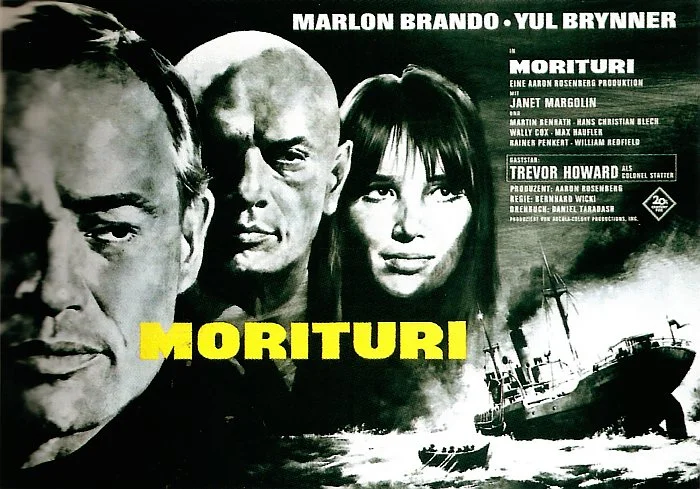
12/15:
Upon seeing the DVD cover of Morituri, the thought of Marlon Brando and Yul Brynner in black and white seemed
exhilarating to me.
Unfortunately, it's not a good movie. Not much makes sense. The script is hard to follow, and the running
length has me equally frustrated, too.
Marlon Brando had always been beautiful in black and white, and his acting ability was there. But his talent got
wasted. Forced to promote the film, Marlon Brando once said at a press conference, "You will be unable
to proceed in life unless you see Morituri." Afterwards, he was banned from doing any more. At least, Brando tried.
His co-star, Yul Brynner, looks worse in comparison. Having nothing much to work with, his character is ineffective and
not interesting. Both actors had expressed admiration for each other with Yul stating Brando was his
favorite actor while Brando said the following in his autobiography:
"Yul did something in that picture that impressed me. In one scene, I thought his acting was very stagy and artificial, but
when I saw the scene on film, it succeeded because the lighting was effective, and I learned he had suggested to the lighting
man how to light the scene. I had never paid much attention to lighting, and it made me realize that the man who sets it up
can do a lot for your performance or break your neck if he wants to. With lights, he can add drama to your face, make it dull,
or put you in darkness. From then on, I began checking with the lighting man before doing a scene, using a mirror to see what
effect different lighting gave my appearance and performance."
It's a sound advice, indeed. That's how it worked out for him in
Apocalypse Now, and it's the best performance
of the film. Also, you can see how it was effective for Yul Brynner in
Kings of the Sun which
is a brilliant piece of acting on his part.
All in all, it's hard to argue with Marlon Brando when he explained his reason for doing Morituri: "You see, I have
three households to support, and I pay alimony to two women."
The Morning After (1986)
Rate:
6
Viewed:
10/14

10/14:
There's little mystery going on in The Morning After with a lot of fillers in between.
Jane Fonda haters will surely be disgusted by the excessive amount of her screen time. It's so obvious that she was angling
for another Oscar win by virtue of her overdone performance. Eventually, Jane Fonda lost out to
Children of a Lesser God's Marlee Matlin because the Academy is a sucker for alcoholics, hookers, boxers, and people
with disabilities. Worse, I don't care for her washed-up alcoholic character.
I had high expectations for the film because of Sidney Lumet and Jeff Bridges. Yet it
doesn't feel like the former's picture and the latter has been mostly relegated to a supporting role with minimal impact
although Raúl Juliá isn't bad playing the husband. Hence, you're better off watching
Jagged Edge, a neo-noir thriller that was released a year earlier.
If you notice how small the cast is, the whodunnit mystery isn't hard to figure out because it's pretty much down
to two suspects and one of them can be safely ruled out if some logic will be applied. Because not much of time is spent on the
mystery, it's hastily wrapped up with a nice bow-tie in an implausible manner which seems the result of a last-minute creative
spark. Technically speaking, the movie is twelve minutes too long because of Jeff Bridges' all-too-familiar
ready-to-die smile just like Thunderbolt and Lightfoot and
Starman.
All in all, Sidney Lumet should've expanded the mystery plot and got rid of Jane Fonda.
Morons from Outer Space (1985)
Rate:
2
Viewed:
5/18
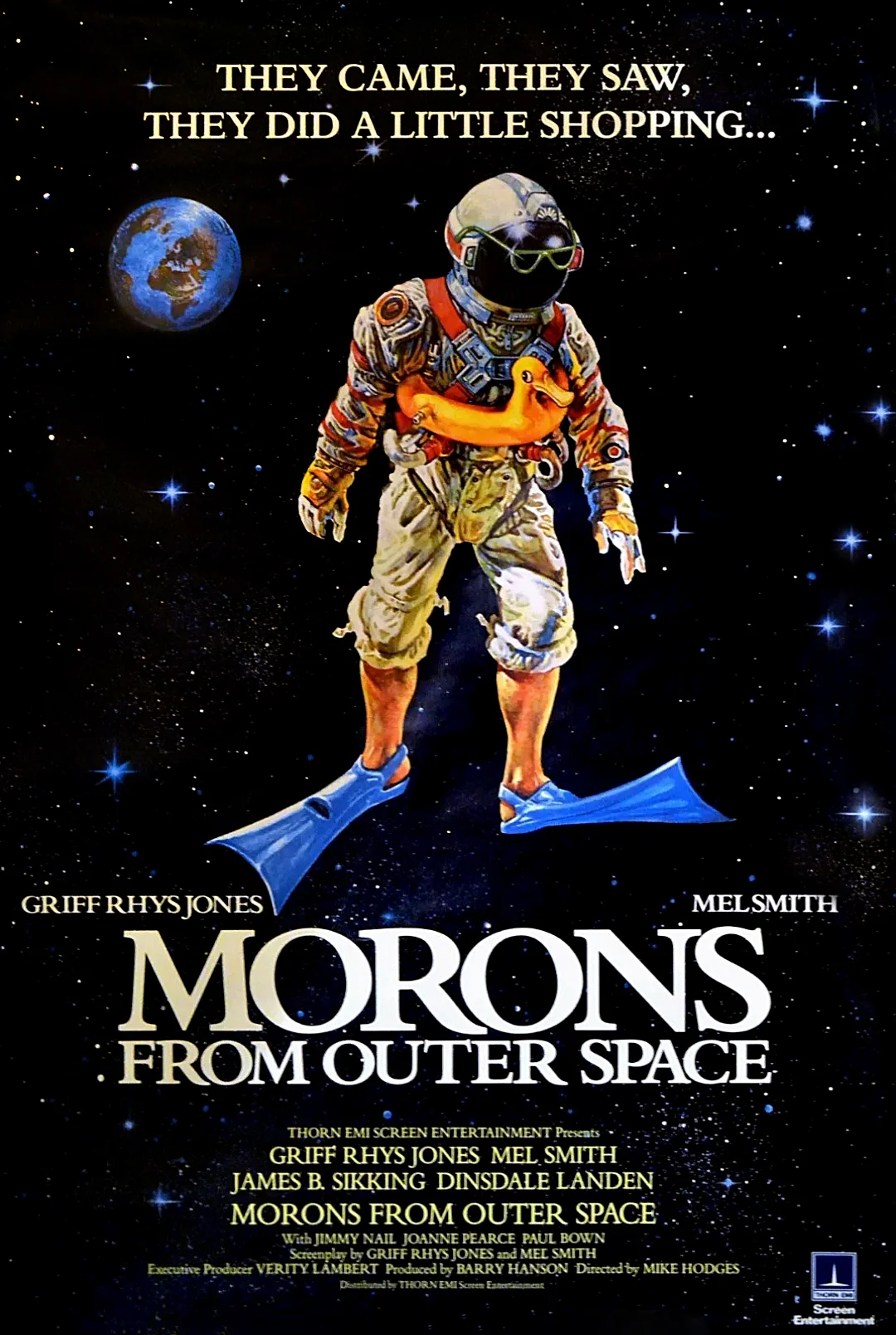
5/18:
The basic idea of a comedy is to make me laugh.
Apparently, the guys behind Morons from Outer Space didn't get the memo because it's anything but funny.
Well, this is a long fall from the top for Mike Hodges who directed
Get Carter starring Michael Caine. Mel Smith is
recognizable for having gotten his noggin smashed by André the Giant in
The Princess Bride which was released two years after this stinker
All in all, Morons from Outer Space is the British's answer to Spaceballs for failing miserably when
it comes to comedy in outer space.
Mortal Kombat (1995)
Rate:
4
Viewed:
7/11
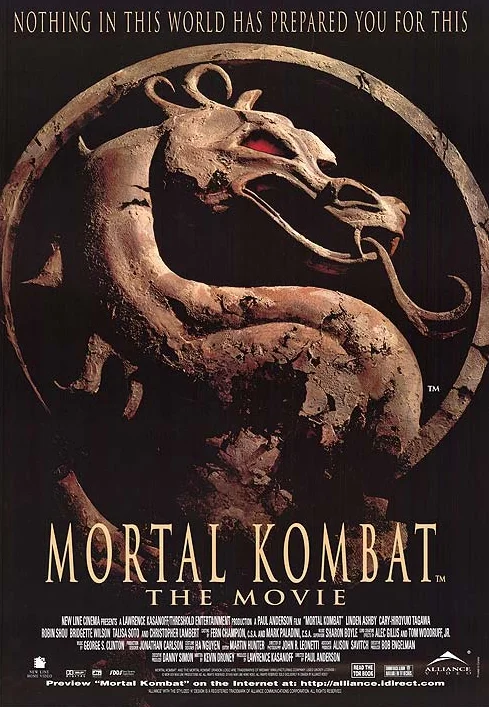
7/11:
Let me get this out of the way first: Mortal Kombat was specifically made for infantile boys and man-children who
wasted a significant portion of their lives playing the video game during the 90's.
They also spent countless hours memorizing combos and bragging to others that they were Mortal Kombat gods. The
result? They've become full-blown mental midgets with a twenty-year-old loser status that they've been struggling to get
rid of.
To cash in the popularity, a movie had to be made. I won't cheat you by what I think of it because I
played a bit of the game on SNES although I was never impressed. It's a great disappointment for many reasons.
One is the lack of blood and gore. I mean, it was the winning feature of the series and exactly the reason why
Mortal Kombat was one of the most popular game of all time.
Two is the inaccuracies when it comes to the depiction of the characters. Sonya Blade's uniform looks all wrong. Shang Tsung is
an old, not young, man. Raiden's name isn't spelled "Rayden."
Three, Raiden does nothing in the movie. What a fucking disappointment.
Four, nothing in the world has prepared me for this? Ha! Mortal Kombat is 100% pure rip-off of
Enter the Dragon,
but at least, this one is more coherent by getting the tournament play correct.
Five, if you look at Bridgette Wilson (who's Pete Sampras' wife if you can believe it) as Sonya Blade, it's
obvious that she had no martial arts training. Cynthia Rothrock would've been a better choice. And I was thinking more
of Brandon Lee or maybe Phillip Rhee for Liu Kang.
Six, the show gets boring and corny after a while, especially the fight scenes and when Shang Tsung kept using the well-known
lines from the game with a great deal of emphasis on each syllable.
Seven, the finishing moves were the hallmark of the game, yet nearly none of them is shown in the movie. Come on, that's full
of crap. You mean to tell me that it can only be done in the game but not in the movie? Lame-o.
Eight, what's with Johnny Cage? He's so annoying.
All in all, what I saw in the film isn't Mortal Kombat enough.
Mortal Kombat: Annihilation (1997)
Rate:
2
Viewed:
1/12
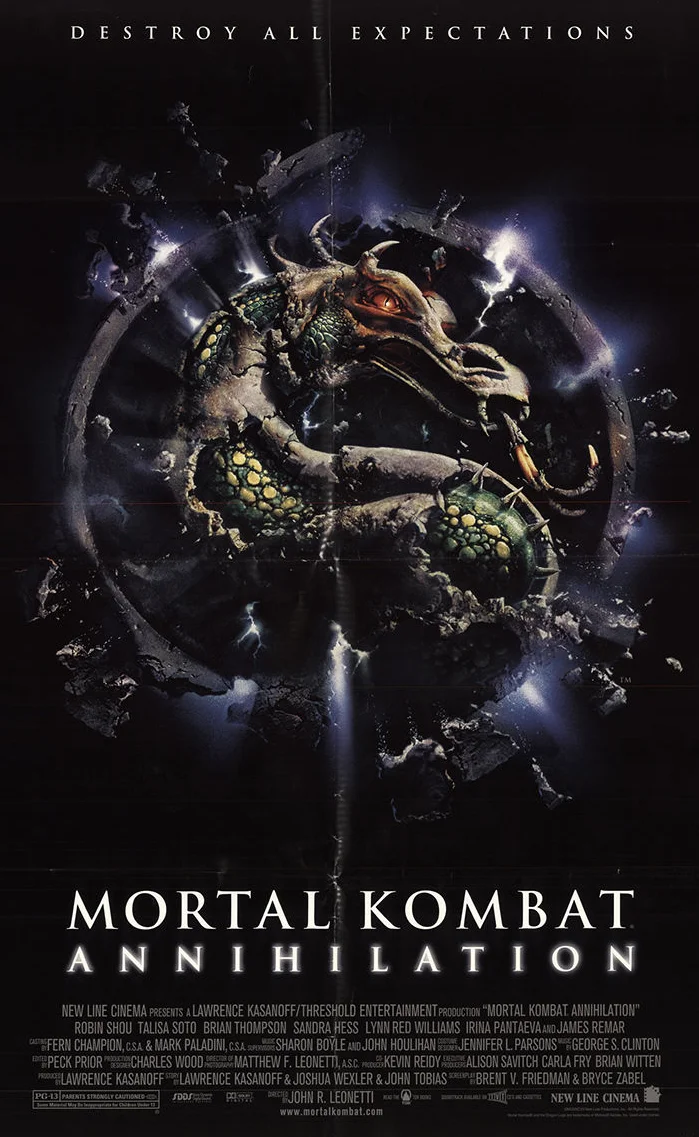
1/12:
Sometimes, it takes a horrible sequel to realize how good the original was.
Mortal Kombat: Annihilation is one of them. The poster tagline reads: "DESTROY ALL EXPECTATIONS." Mmm, okay...if you say
so. That's what I did. Of course, the movie turns out to be utter shit. The nonsensical dialogue, the incomprehensible
storyline, and the poor special effects all have done it in.
While watching the film, I thought of one simple idea: if the villains were mortal, why couldn't anyone get a gun and
shoot them dead? Come on...how hard is that?
All in all, Mortal Kombat: Annihilation has been saved from my rating of '1' because the filmmakers have done a nice job
with the background cinematography.
Mortal Thoughts (1991)
Rate:
6
Viewed:
11/08
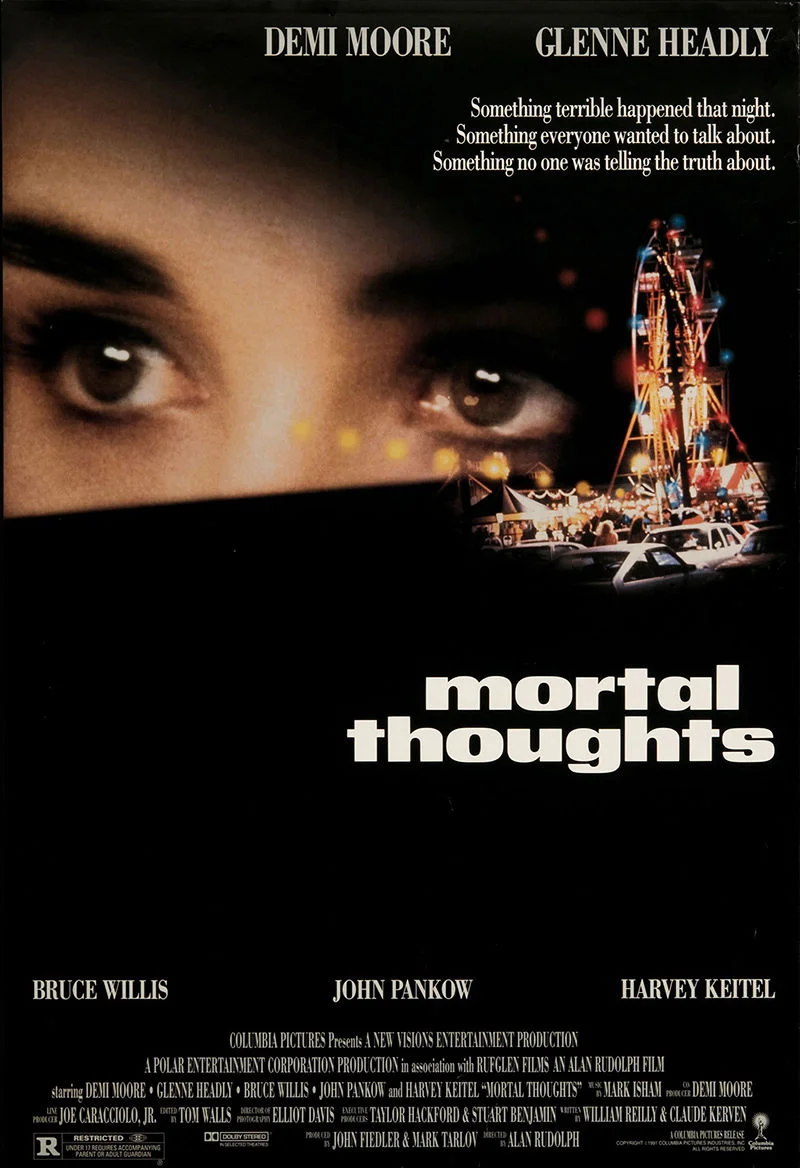
11/08:
Mortal Thoughts has turned out to be decent picture although I don't like it.
The performances by Demi Moore, Glenne Headly, and Harvey Keitel prevent the film from being labeled a stinker in
spite of Bruce Willis who's annoying. I like the plot, and it's interesting, but I think it'll be a lot easier to go straight
to the police and confess.
With supporting testimonies of how violent the husband was, the wife's case may hold up in court. Hence, there's no reason
to cover up the crime because it's been justifiable in the name of self defense against rape. For a while, I was predicting
that Demi Moore's and Bruce Willis' characters conspired to get together eventually because they happened to be married in real life.
All in all, Mortal Thoughts is a well-made picture, but it's not for me.
Morte a Venezia (1971)
Rate:
4
Viewed:
3/07
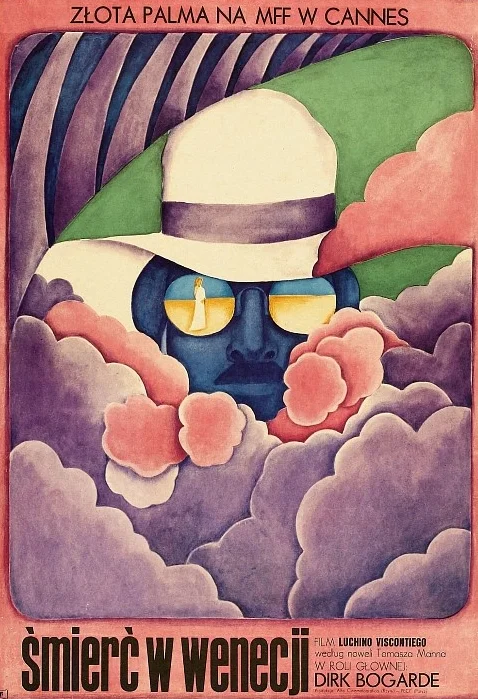
3/07:
Slow, slow, slow!
One of the slowest pictures I've ever seen in my life, nothing...absolutely nothing happens in Morte a Venezia
otherwise known as Death in Venice. Yet the cinematography is beautiful. Another highlight is Dirk Bogarde's
performance.
But the overemphasis on pace and zoom effects, which reveal nothing of the story, has doomed the picture. A suitable
title should be A Slow Death in Venice. I keep waiting for something to happen, but nothing ever does.
The first half-hour is difficult to sit through, and then the protagonist begins to evince interest in some weird-looking boy
which gets the ball rolling. And the rest of the way is a massive dud. It'll be nice to hear some meaningful
dialogue like how Gustav's daughter died or anything else about his past to learn more about him.
All in all, had Morte a Venezia gone faster, Gustav might have been saved.
Moses (1974)
Rate:
8
Viewed:
4/03, 5/22
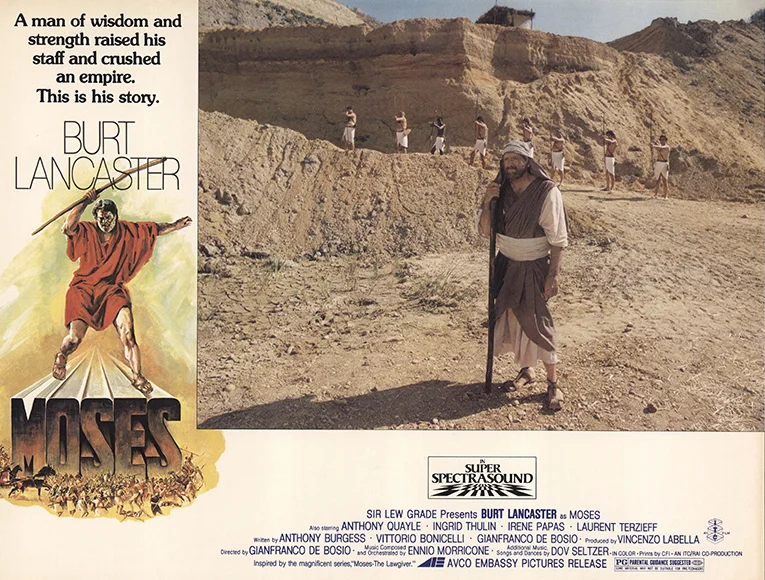
5/22:
At first, I thought why Moses when
The Ten Commandments had already been made, but after seeing it, my question
was answered.
Cecil B. DeMille's classic will always be the best Biblical epic picture made, but this one with Burt Lancaster is as natural as
it gets. Hence, that's the goal all along: no fancy special effects, no magnificent monuments, and no lavish colors but a
straightforward retelling of the Exodus tale. What's odd is the few changes. Instead of Rameses II, it's Merneptah. Aaron does
the speaking for Moses at times. There are more to go after the Ten Commandments tablets have been brought out.
The movie began as a five-hour miniseries under the title Moses the Lawgiver. All I could feel was relief.
141 minutes is still too long for my liking, but the editing is good and also clever by working around the impossible
scenes given the low budget. In fact, this version is a lot closer to the first fifty minutes of the 1923 silent picture by
DeMille.
I like the dialogue as one of the four writers is Anthony Burgess of A Clockwork Orange fame. The acting is fine, but
nobody including Burt Lancaster stands out that much. His son, William, plays the young Moses while Laurent Terzieff isn't
bad as Mernefta.
All in all, Moses may not be as splashy as The Ten Commandments, but it gets down to brass tacks by taking
the natural, ancient route of storytelling.
The Mosquito Coast (1986)
Rate:
7
Viewed:
4/04, 8/20

8/20:
I remembered for a long time that Harrison Ford said The Mosquito Coast was his favorite film.
For the role that's meant to go to Jack Nicholson who backed out because he wouldn't be able to watch Lakers games while in
Belize, Harrison Ford stretches himself to be real in the dramatic sense and thus succeeds. Hence, I'm willing
to say it's among five greatest performances of his career. There are many disillusioned, burned-out men who can relate to
his character.
Having extensive experience in this subject matter, River Phoenix may be in the film but is mostly overshadowed by
Harrison Ford. Hence, the movie is about the latter's character, Allie Fox, and his desire to create the most perfect Utopia that's away
from the polluted air and water and corruption. Unfortunately, he's a human being who's prone to ego.
Why I'm not favorable to The Mosquito Coast is the last thirty minutes. It's a weak finish. Things were going
so well in the middle when there was a budding community, but director Peter Weir had to wreck it. It's
just a stupid decision given how exhausting the movie has been to watch. By the way, it's the final film for Butterfly McQueen of
Gone with the Wind fame as she plays one of the churchgoers.
All in all, despite The Mosquito Coast falling apart during the final act, it should be seen for the sake of
Harrison Ford's riveting performance.
Mosquito Squadron (1969)
Rate:
6
Viewed:
1/25

1/25:
Although famous for the TV show The Man from U.N.C.L.E., David McCallum is an actor I'm not overly
familiar with, so Mosquito Squadron is the first time I've seen him as a leading man.
David McCallum handles his role with ease by showing the right demeanor given the serious gravity of the
situation. The last twenty minutes
of the film is excellent with plenty of exciting action. It has a goldmine premise that asks two important
questions: 1) Does it make sense to bomb a place which may kill their fellow RAF soldiers in order to end the
war earlier and save hundreds of thousands of lives?; and 2) Should Quint let Beth fall in love with him
without mentioning that her former beau Scotty isn't yet dead after all?
I like the concept of a plane carrying Highballs, yet what happened during the mission is odd despite
the commanding officer declaring it a success. Let's replay the concept for
a minute. The fliers were trained to release a Highball on time in order for it to roll correctly,
leading me to think that the thing had to go inside the cave to blow up everything. Yet
it never happened once at Château de Charlon with one of the three planes crashing atop the cave. The
point is: if that's good enough, why not instead drop bombs the regular way?
Anyway, Mosquito Squadron has a lot of made-for-TV feel with a mostly undeveloped romance between Quint
and Beth. When I started to play the video, I got confused at the beginning, which showed the exact same
thing from Operation Crossbow, a film that I saw a few days
earlier, and thought for a minute whether or not I put the wrong DVD in the player. Some footage of
633 Squadron is also lifted. Elsewhere, the red car that David McCallum
drove is a 1935 Godsal V8 Corsica.
All in all, Mosquito Squadron is a decent WWII British aviation picture.
The Most Dangerous Game (1932)
Rate:
8
Viewed:
6/08
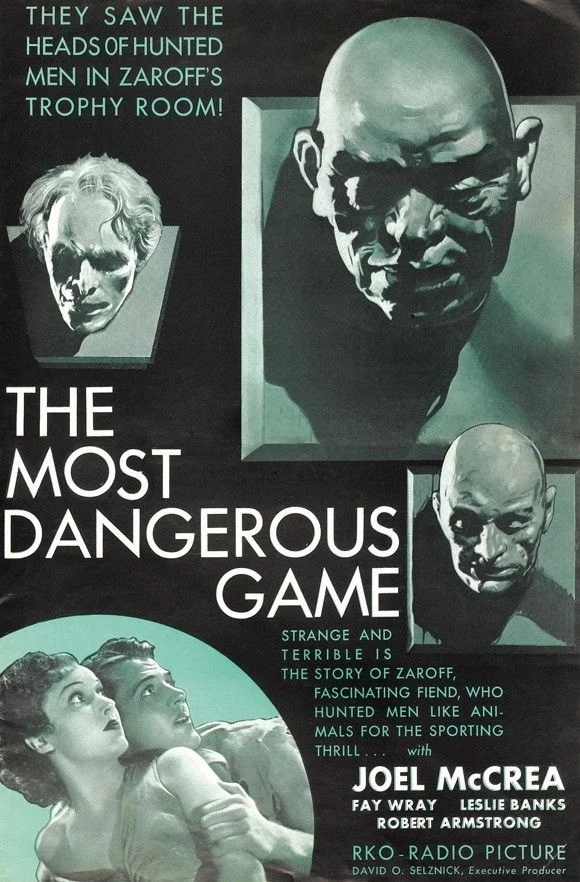
6/08:
All of my life, I've always hated hunters who kill animals for either sport or food.
It makes no sense. I thought their positions should be switched to see how the hunters feel about that.
Hence, I didn't know a film existed until now. Far ahead of its time, The Most Dangerous Game is fascinating
but feels too simplistic. Even the boat at the beginning looks fake, but I like the fact that the movie is only one
hour long.
The acting is excellent with Joel McCrea and Leslie Banks who's a treat as Count Zaroff. However, I question the
need for Eve to go along with Rainsford on the trip. She takes away the attention and undermines the buildup of suspense during
the chase.
As for the finale, I'll like to see Count Zaroff winning for the sake of morality. The best part is when
Rainsford climbed up the tree as he's being hunted by the dogs and said, "Those animals I cornered...now, I know how they felt."
All in all, The Most Dangerous Game is unique.
Motel Hell (1980)
Rate:
8
Viewed:
4/12
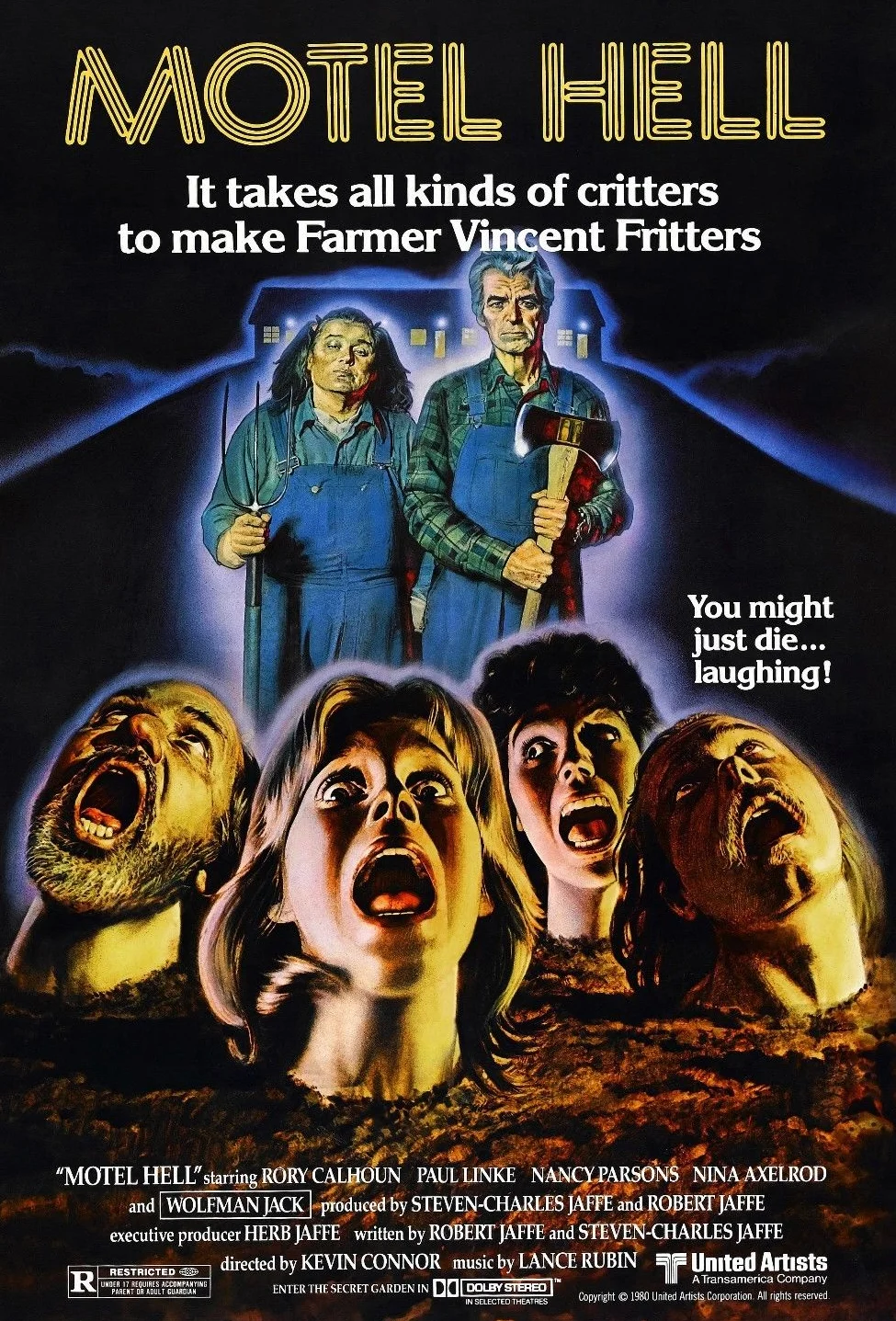
4/12:
Forget Bates Motel...this is MOTEL HELL.
Twenty years after Psycho, horror is finally back in motels, and this time, it's Motel Hell which features
one of the most bizarre stories I've ever seen on celluloid. It's almost a cross between
The Wicker Man and
Psycho. Yet there's a human side to it. Unfortunately, the last fifteen minutes is a downer.
Rory Calhoun, who sported an extensive rap sheet in real life, is sinister as Farmer Vincent, and Nancy Parsons is
perfect for her role. She'll go on to play Ms. Balbricker in Porky's.
Wolfman Jack makes a cameo appearance.
All in all, Motel Hell is one of the best films in the horror genre.
Mother Night (1996)
Rate:
7
Viewed:
1/19, 3/25

3/25:
"ONE OF THE TEN BEST FILMS OF THE DECADE."
Really? Stop making me laugh. Nobody has ever heard of Mother Night. That's why it took in merely
$400,000 while the budget was $6 million. No matter what, it's not a bad movie because of the strong narrative style
with a touch of absurd as usual in Kurt Vonnegut's works. Even the author himself makes a cameo appearance
while walking past Nick Nolte in New York City.
Could Howard W. Campbell, Jr., have done anything differently? Probably not. It's just bad luck that's made worse
by each revelation. Adolf Eichmann has a strong comeback line after being asked, "Do you believe you're guilty
of murdering 6 million Jews?" by saying, "About those 6 million...I don't need credit for all of them. I'm sure
I could spare you a few."
The film can't have worked without Nick Nolte. A lesser actor would've made it boring. The most
interesting part is when Campbell did his radio broadcasts that were disguised as codes. I wondered how
they were translated on the other end. One big issue is the language isn't in German. Anyway, the rest of the
cast is stellar which includes Alan Arkin, John Goodman, Sheryl Lee, and Kirsten Dunst.
All in all, Mother Night comes right down to this moral: "You must be careful what you pretend to be,
because in the end, you are what you pretend to be."
Mother's Boys (1993)
Rate:
7
Viewed:
4/20

4/20:
It's Jamie Lee Curtis' chance to be the bad girl with spunk, and is she ever delicious as the fierce blonde-haired Jude
in Mother's Boys.
This is pretty good stuff with lots of great noir photography. Because of it, the movie keeps getting better
until the last fifteen minutes to reach for the absurd cliffhanger ending.
Although the story is centered around Luke Edwards' character Kes, he and his two brothers are stupid and get in the way at
times. I don't view them as essential. Once the spotlight is on Jamie Lee Curtis, Peter Gallagher, and Joanne
Whalley-Kilmer, it's when things start to cook.
Yeah, everything has to be on Jude's terms. Manipulative to the nth degree, she's fun to watch. What's nice about
her is she has style that's not of the trashy kind. This led me to think she was probably born a rich daddy's
little girl who must insist on having finer things in life. Her mother is played by Vanessa Redgrave who turns in a nice
little performance.
All in all, Jamie Lee Curtis is simply fantastic in Mother's Boys.
The Mothman Prophecies (2002)
Rate:
2
Viewed:
1/24
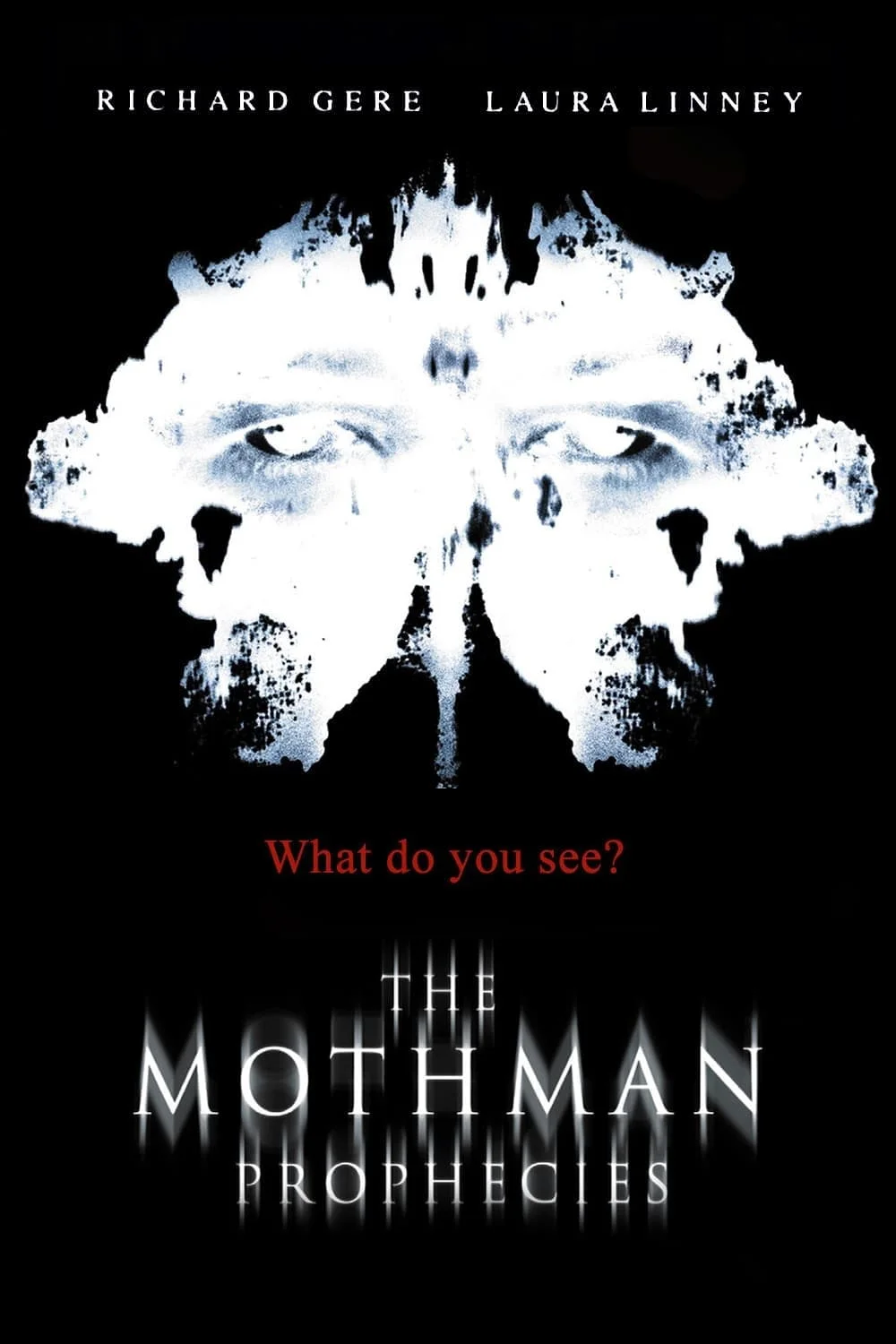
1/24:
"This story is based on events which occurred in Point Pleasant, West Virginia."
That's the part that I remember the most when I saw The Mothman Prophecies in 2002. Five minutes later,
I began to laugh and had never stopped doing so thereafter. What a ridiculous movie. Even funnier is the
people who really believe this bullshit. It must be the moonshine drinking like for Will Patton's character.
Of course, I don't read The Washington Post. Currently, it's owned by Amazon. If that's not a conflict
of interest, you can call me Howdy Doody. So, what happened when the Silver Bridge collapsed? It's simple:
bad engineering which is similar to what happened to the Tacoma Narrows Bridge in 1940. And it had absolutely
nothing to do with moths or some idiot named Indrid Cold!
Who's John Klein? Is there an actual person by that name who reported for The Washington Post? How
about Alexander Leek? Does Connie Mills exist? No? So, why did these morons say The Mothman Prophecies
was "based on true events"? Director Mark Pellington came out later to admit the whole thing was made up.
Imagine these poor saps who got lured to Point Pleasant, West Virginia, because they believed everything
in the film.
All in all, Richard Gere should try jumping into a freezing body of water in the middle of the night and
holding his breath underwater for five minutes while looking for his brain somewhere inside a drowning car.
Moving (1988)
Rate:
5
Viewed:
3/24
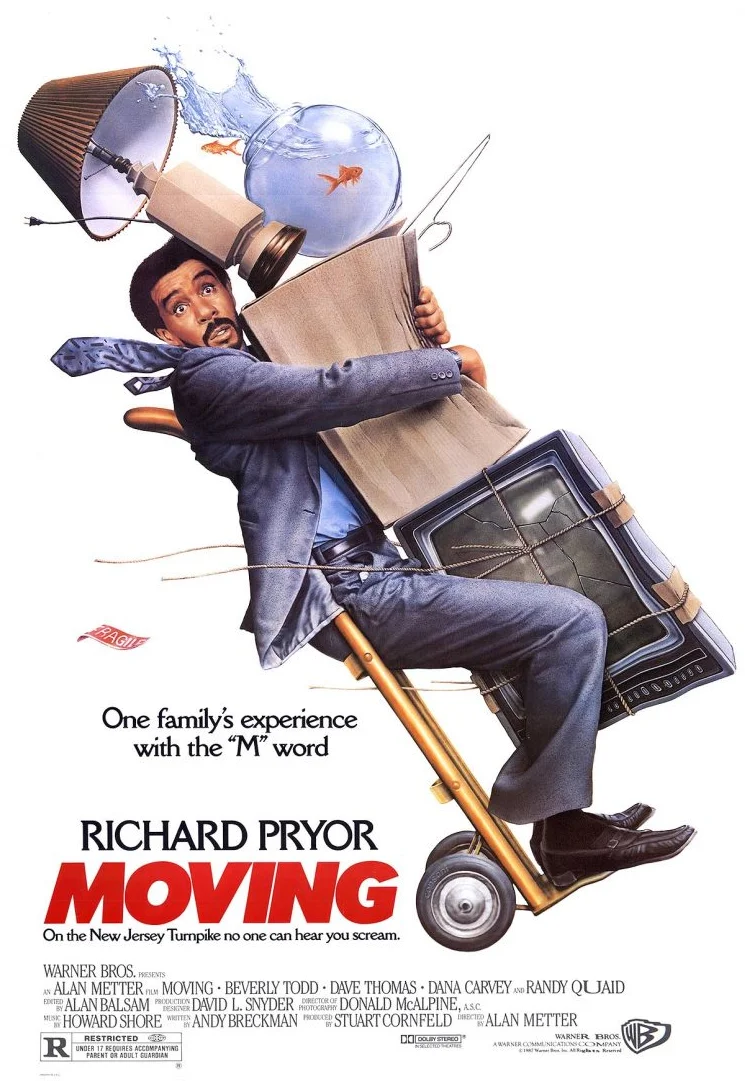
3/24:
I remember seeing Moving back in the day and thinking of it as a funny movie.
Today? Well, it kind of holds up, but the last half-hour sucks. Everything was going fine until that point, but
for some weird reason, the filmmakers lost control over it. At least, the material looks fresh, and there are
plenty of funny moments with the topic being relevant as ever.
Richard Pryor does a great job. The supporting cast is fine. It's Randy Quaid's characters and the movers who
bother me the most. First, the furniture and other stuff are broken on purpose. Then, the house in Boise, Idaho,
is stripped despite the former residents jokingly saying they'll take everything. Finally, the Saab is thoroughly
ruined because...why not? So, the question for Arlo Pear is: how is he going to afford everything? That's when
the movie stopped working for me anymore.
All in all, Moving is more mean-spirited than funny.
Mr. & Mrs. Smith (1941)
Rate:
2
Viewed:
5/06

5/06:
Mr. & Mrs. Smith is a zzzzz...
I beg of you, Alfred Hitchcock, to go back to what you do the best at. According to IMDb, the following explains the
reason why Mr. & Mrs. Smith was made:
"Alfred Hitchcock decided to direct this film because of Carole Lombard's request. This was one of the few films where
Hitchcock wasn't involved in the scripting process. Since he really didn't understand the type of people who were portrayed
in the film, all he did was basically photograph the scenes as written."
Naturally so. One year later, Carole Lombard died in a plane crash. What an awful movie this is.
It's not funny at all. I hate the characters, the dialogue, and just about everything else.
All in all, Mr. & Mrs. Smith is one of the worst films in Alfred Hitchcock's oeuvre.
Mr. Arkadin (1955)
Rate:
3
Viewed:
1/16

1/16:
While watching Mr. Arkadin, I was like, "Uhhhh...?"
It was the same reaction from my mother when I let her see it. Hey, Orson...how about getting off your high horse and start
making a coherent movie for once? We aren't brilliant as you are. At least, the cinematography is vintage Welles,
reminding me of The Lady from Shanghai, which literally got me through it.
All in all, Orson Welles was never the same again after Mr. Arkadin.
Mr. Baseball (1992)
Rate:
6
Viewed:
8/25
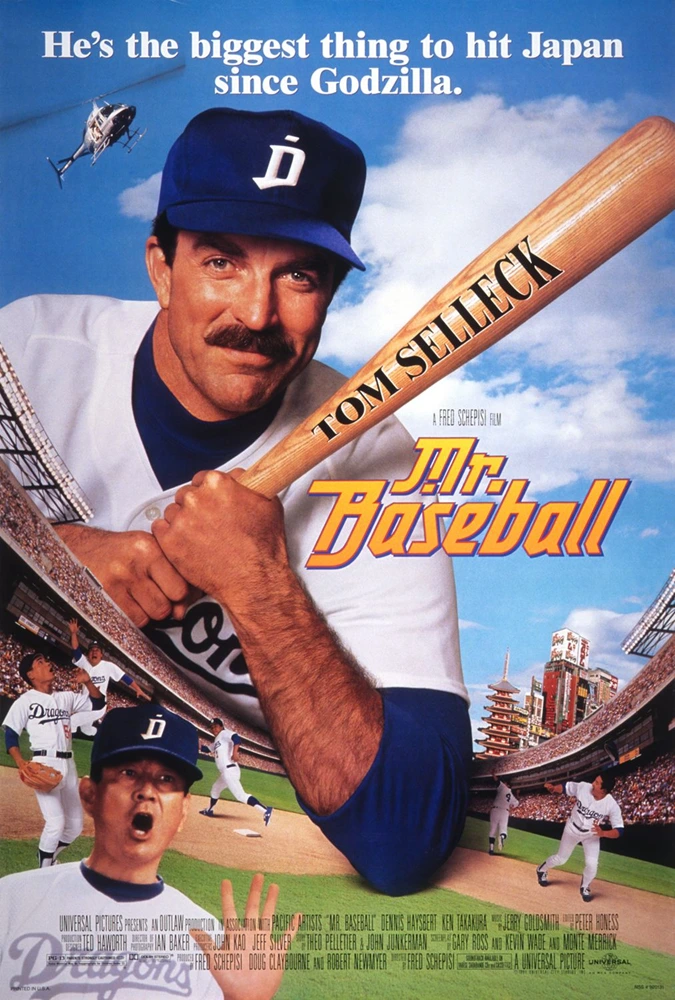
8/25:
In some ways, Mr. Baseball feels like the Japanese version of
Major League with some Gung Ho thrown in.
Tom Selleck is Jake Taylor, an aging veteran who can't let go of baseball or his womanizing ways yet meets
somebody to settle down with and finds a new meaning in the sport. By readjusting his ways, he has to go
through the five stages of grief.
In Japan, he makes friends with Max Dubois for Pedro Cerrano, has well-meaning battles with the
manager, and helps his new team win a pennant title in front of the naysaying owners. At the same time,
cultural differences between Americans and Japanese are touched upon. Everything ends well as expected, but
this time, there's no Wild Thing.
Unfortunately, the movie is more bland than not with a lot of undeveloped characters and hardly any humor. No
matter what, Tom Selleck is faultless. He gives a strong performance and looks the part of a Major League
Baseball player. In fact, he once had an at-bat in Detroit Tigers uniform during a spring training game on
April 3, 1991, striking out. It's an impressive feat because he was 46 years old at the time and actually
connected with several balls that went foul.
All in all, Tom Selleck's charm goes a long way for Mr. Baseball to be at least watchable.
Mr. Brooks (2007)
Rate:
6
Viewed:
11/25
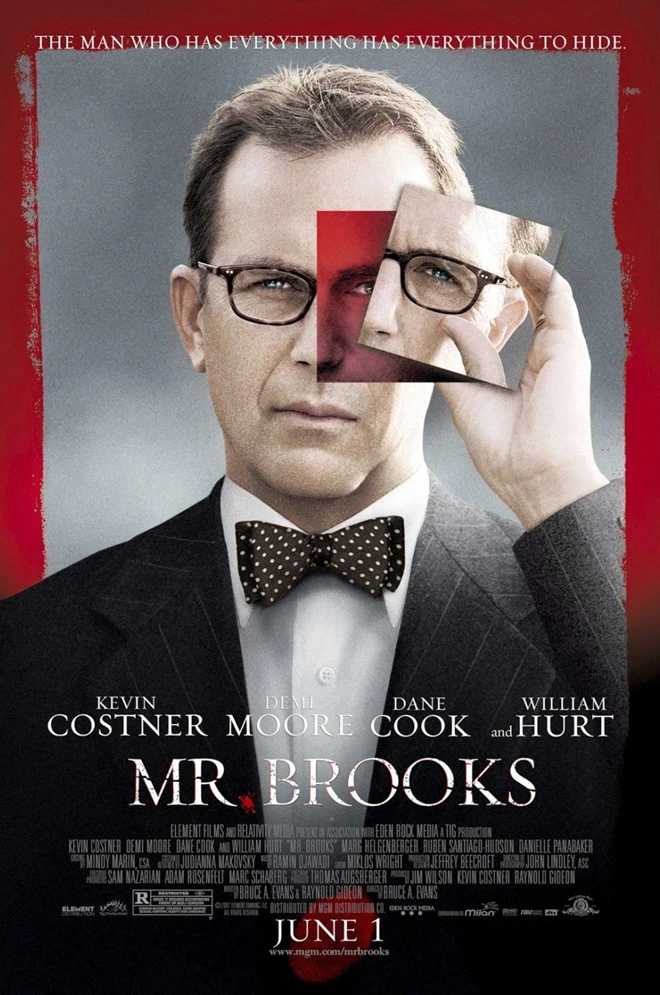
11/25:
"Overstuffed" is how the critics described Mr. Brooks.
I agree with them, and it starts with Demi Moore as Atwood. What is she doing in the film?
This is supposed to be about Kevin Costner. His character is interesting enough that there's no reason to
add various subplots into the equation.
The most unbelievable scene is when Atwood got thrown from the van with her back landing on the windshield
which should've rendered her paralyzed afterwards. Instead, she gets stitches on her head. In the meantime,
who cares about Atwood's divorce problems? What does Meeks have to do with the grand scheme of things?
Consequently, Mr. Brooks has become an ordinary serial killer in the final thirty minutes.
Trying to be clever with Graves Baffert doesn't help. Ditto for Jane who happens to "inherit" his father's
tendency to kill. Her connection to Atwood as some kind of an analogy is ridiculous. How about Mr. Brooks
having the ability to obtain anybody's personal information in one sitting? At least, director-writer Bruce A.
Evans has done a good job of making William Hurt an important player as his alter ego which is keen because of
Kevin Costner missing out on working with him during two Lawrence Kasdan pictures during the 80's:
The Big Chill and Silverado.
In past films, a common complaint I have is somebody putting his gun into the deceased person's hand to make
it appear that the latter did the killing instead of the former. But it's not going to be proven
true because there's no gun residue on his hands or forearms, hence the plastic bag on Mr. Brooks.
All in all, by failing to control the material in Mr. Brooks, Bruce A. Evans never worked again in
Hollywood.
Mr. Destiny (1990)
Rate:
8
Viewed:
7/18
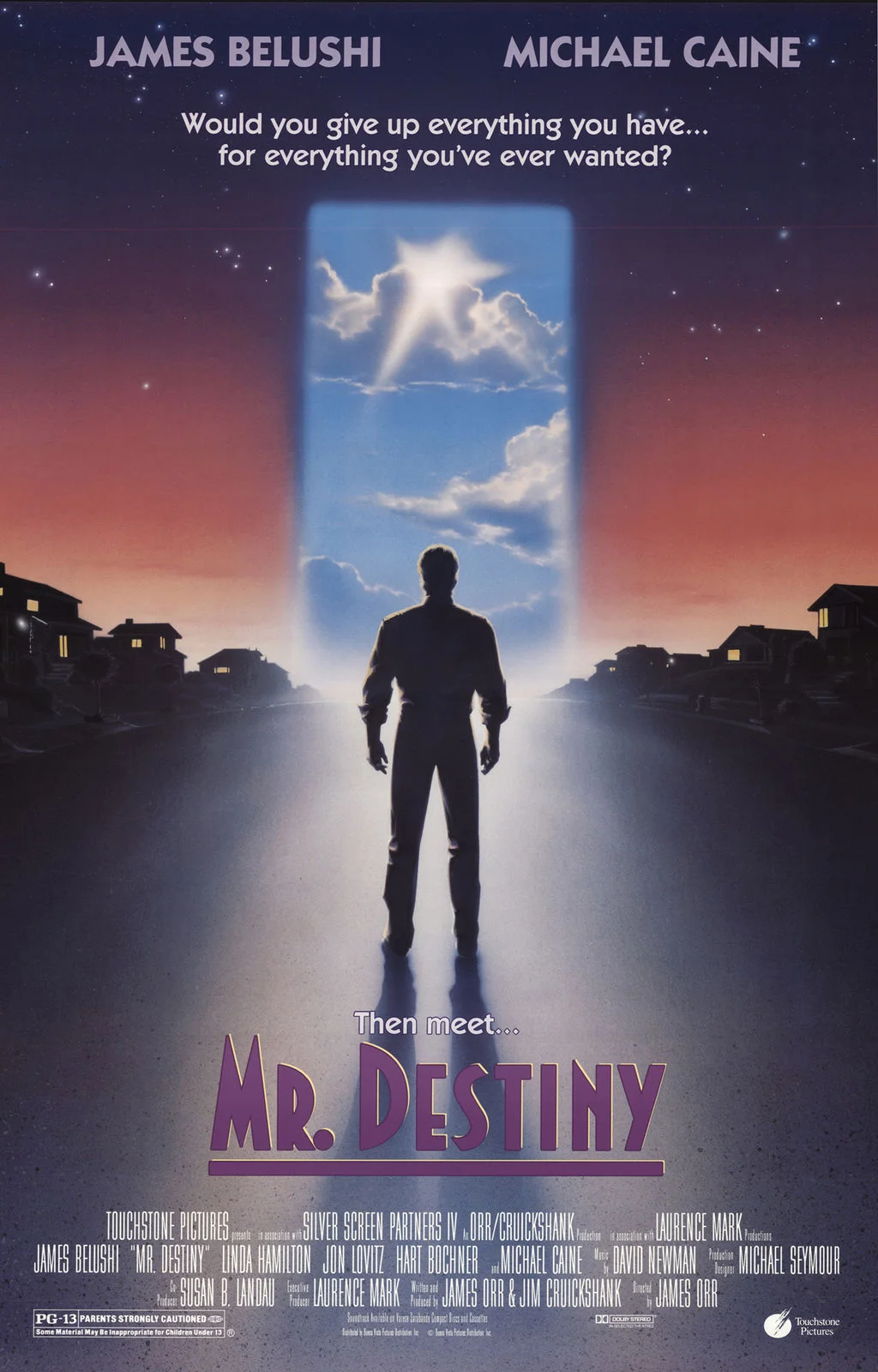
7/18:
Here's a good James Belushi movie: Mr. Destiny.
I've forgotten how underrated of an actor he is. Not many people give him enough credit for his decent yet
low-key performances. The 1955 Porsche Beck 550 Spyder James Belushi's character was driving is the same car
that James Dean died in on September 30, 1955.
It's nice to see Michael Caine in a small role. His classy presence plays a big part in the film that's
similar to It's a Wonderful Life which was based on
A Christmas Carol by Charles Dickens. The supposedly life-changing baseball scene is an
homage to Bernard Malamud's The Natural, having been highlighted a great
deal in the film version starring Robert Redford.
The supporting cast is also terrific: Linda Hamilton, Jon Lovtiz, Rene Russo, Courteney Cox, Hart Bochner (who,
believe it or not, played Ellis in Die Hard), and Bill McCutcheon for the final
role of his career. They all put their faith in the project and therefore gave credible performances. It's a
charming movie that's often thought-provoking. The story is interesting. Another positive is how well-written
the dialogue is. There aren't many profane words which is a refreshing change for once in a while.
All in all, Mr. Destiny may be It's a Wonderful Life all
over again, but it's an enjoyable picture nonetheless.
Mr. Holland's Opus (1995)
Rate:
9
Viewed:
8/15

8/15:
For Mr. Holland's Opus, I didn't see Richard Dreyfuss in Mr. Holland but Mr. Holland in Richard Dreyfuss.
In other words, it's been a wonderful piece of acting. What I like is twofold: Holland's distant relationship
with his deaf son and his experiences as a music teacher. There aren't many films that cast people who are actually deaf, and
they usually propagate myths about deaf people. This one gets everything
right about Cole and the nature of his relationship with the parents.
Most of the time, deaf children and their parents are strangers to each other due to communication issues. Parents don't
bother putting in the effort, whether it's through voice or sign. Instead, they're sent away to a state residential
school for the deaf.
When Cole or his mother signs, it's clear, crisp, and articulate. But when the father signs, it's choppy, incomplete,
and rudimentary which indicates he doesn't spend a lot of time with his son. Instead, he devotes himself to his students
because he can teach them music skills; with his son, he finds the task futile.
Hence, it's hard for the average viewer, due to not having sufficient background, to understand the fracture between
father and son. Although there are key moments taken in context, he or she misses out the little details. Meanwhile, I'm not sure
about the use of flashing lights to decode music for the deaf. Maybe it works for the hard of hearing, but the deaf? I
don't think so.
Mr. Holland's battles as teacher are realistic, and anyone who has been in his position can relate to them. Of
course, music and art programs are usually the victim of budget cuts because they're viewed as irrelevant in the world of
standardized tests. That's a shame when football should be the first to go for being so utterly pointless in life.
Although Mr. Holland's Opus seems flawless, it's too long, and some of the running length should be
spent on the exploration of Mr. Holland's relationship with his deaf son and different students. Instead, it sticks with
the same motif to fill in the time. The love subplot that's centered around Rowena is ridiculous which sets up a
stereotype that teachers can take advantage of a student sexually and vice versa. It would be nice if Rowena showed up at
the end to neutralize the effect, but she didn't.
Regardless, the performances are decent. I like Glenne Headly and Jay Thomas as Mr. Holland's wife and the
football coach, respectively. Many kudos to the filmmakers for casting real deaf people. Although I'm not a fan of William H. Macy, he's
spot-on with his character. By the way, I saw the film
twenty years ago, but I never knew that the drummer was Terrence Howard. It's because he didn't become popular until
2005 when Hustle & Flow came out.
All in all, I prefer Mr. Holland's Opus over Goodbye, Mr. Chips.
Mr. Mom (1983)
Rate:
4
Viewed:
10/08

10/08:
Mr. Mom tries to generate comedy but fails.
It has many dead-end scenes, vaudeville acting, and pointless subplots. At times, it's funny for no reason, but there
are many flat moments. It's not clear whether the film is about a husband who defies the stereotype of a stay-at-home parent
while his wife is the breadwinner, her husband's depression, workplace sex harassment, or a test of faithfulness.
Michael Keaton is okay, but he'll have better roles. Teri Garr is disappointing and looks bored to death.
The children are too precocious to be believed.
All in all, Mr. Mom is dated.
Mr. Saturday Night (1992)
Rate:
6
Viewed:
10/24
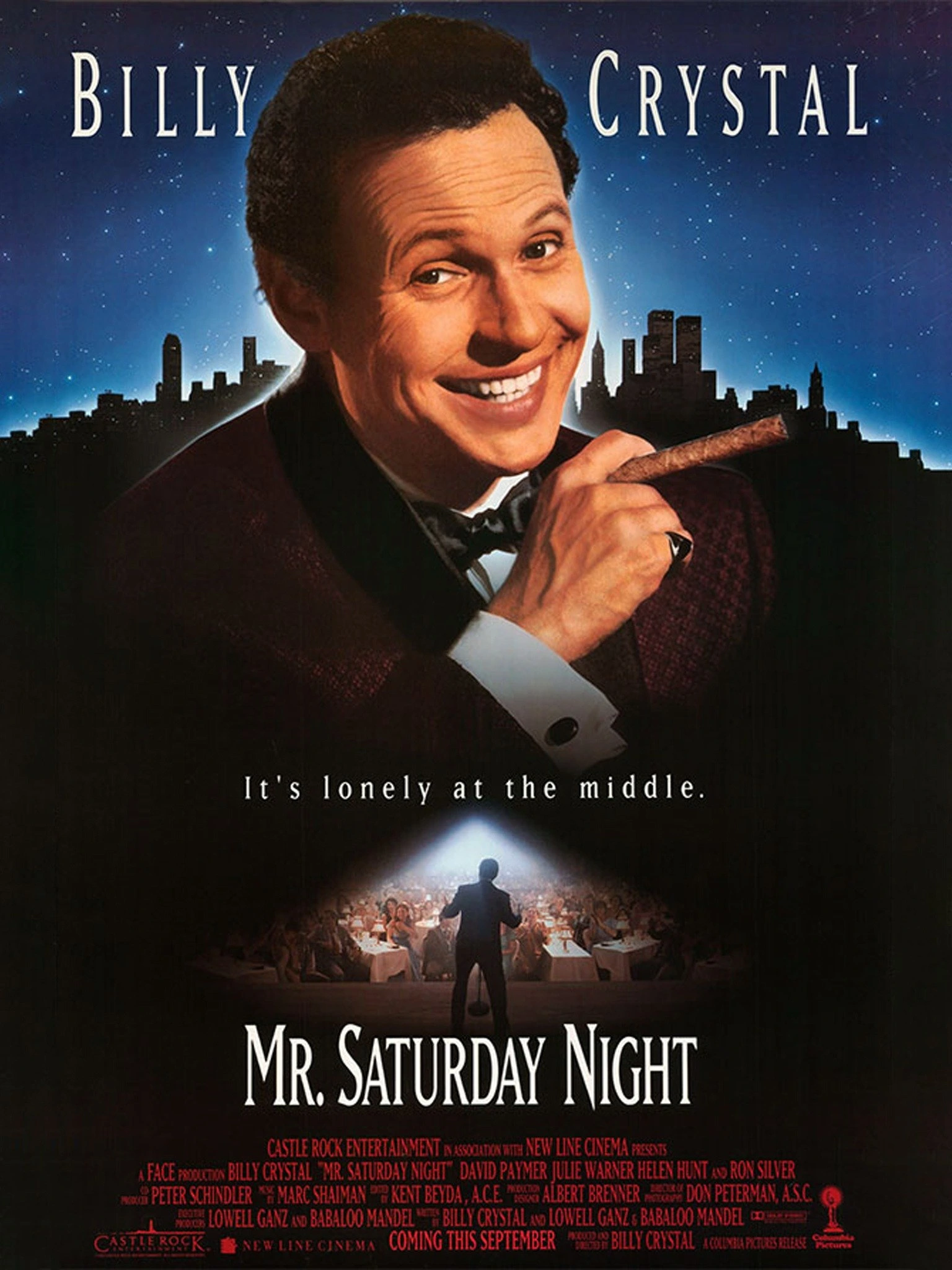
10/24:
I didn't laugh once throughout Mr. Saturday Night, but I wouldn't say it's a terrible movie.
The strongest asset is the acting. I can see why David Paymer received an Oscar nomination for Best Supporting Actor,
and he earned it. The biggest trouble is Billy Crystal. Like Barbra Streisand in lots of films such as
Yentl, he keeps dominating the show throughout and won't shut the hell up for a second.
However, his performance is fine, and it's clear that Mr. Saturday Night is a personal project to him.
As for the writing, it's mostly okay but is neither insightful nor deep in a Death of a Salesman
way. Among the issues is the childhood stuff along with the family; what's shown on screen doesn't add much to the overall story.
It's better to focus on the personality traits. Then, there's the atrocious makeup for several players to
appear aged. Whoever did them needs to take lessons from Paul Muni who was a master at it. However, I give credit to the
thespians for doing so in order to keep playing their characters.
I'm not sure if I consider Billy Crystal a funny guy because I just don't remember like I can for Roger Dangerfield.
Ironically, Billy Crystal plays a comedian in the film, but he's so painfully unfunny. Maybe it's the 50's thing. There
was a point when his character didn't laugh during a TV episode and I wondered what that was about. Maybe he realized
they were funnier than him. By the way, I refuse to believe that Buddy Young, Jr., is able to live this long because of
his constant cigar smoking which should've subtracted decades off his life, courtesy of cancer.
All in all, although the comedy is wholly nonexistent, Mr. Saturday Night works well because of the performances.
Mr. Smith Goes to Washington (1939)
Rate:
6
Viewed:
3/10
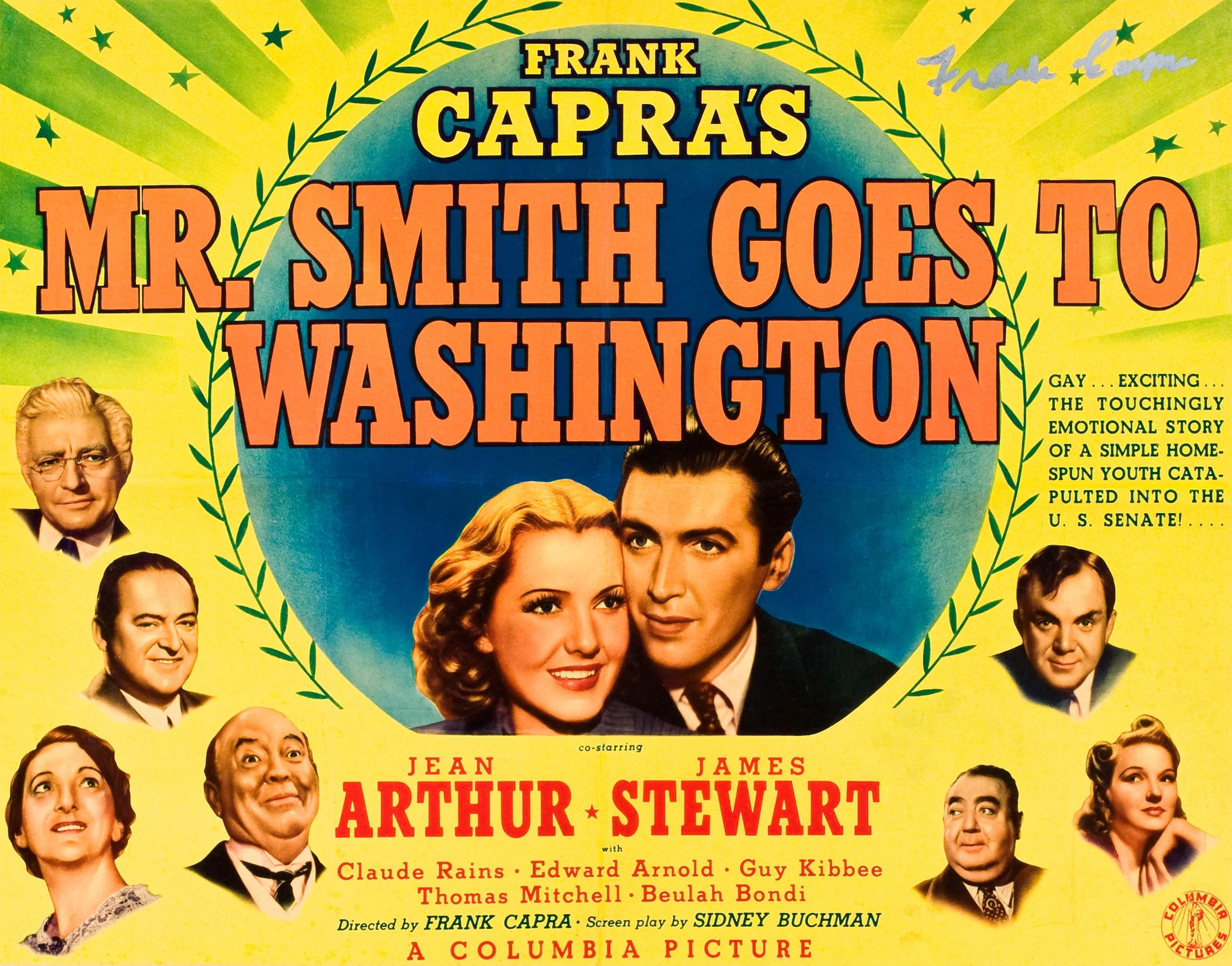
3/10:
Mr. Smith Goes to Washington is the one that capitulated James Stewart as a household name.
He's a natural. However, it isn't a great film and is too idealistic, but the ending is good.
All in all, Mr. Smith Goes to Washington is an overblown sentimentalist tripe.
Mr. Wonderful (1993)
Rate:
10
Viewed:
8/13
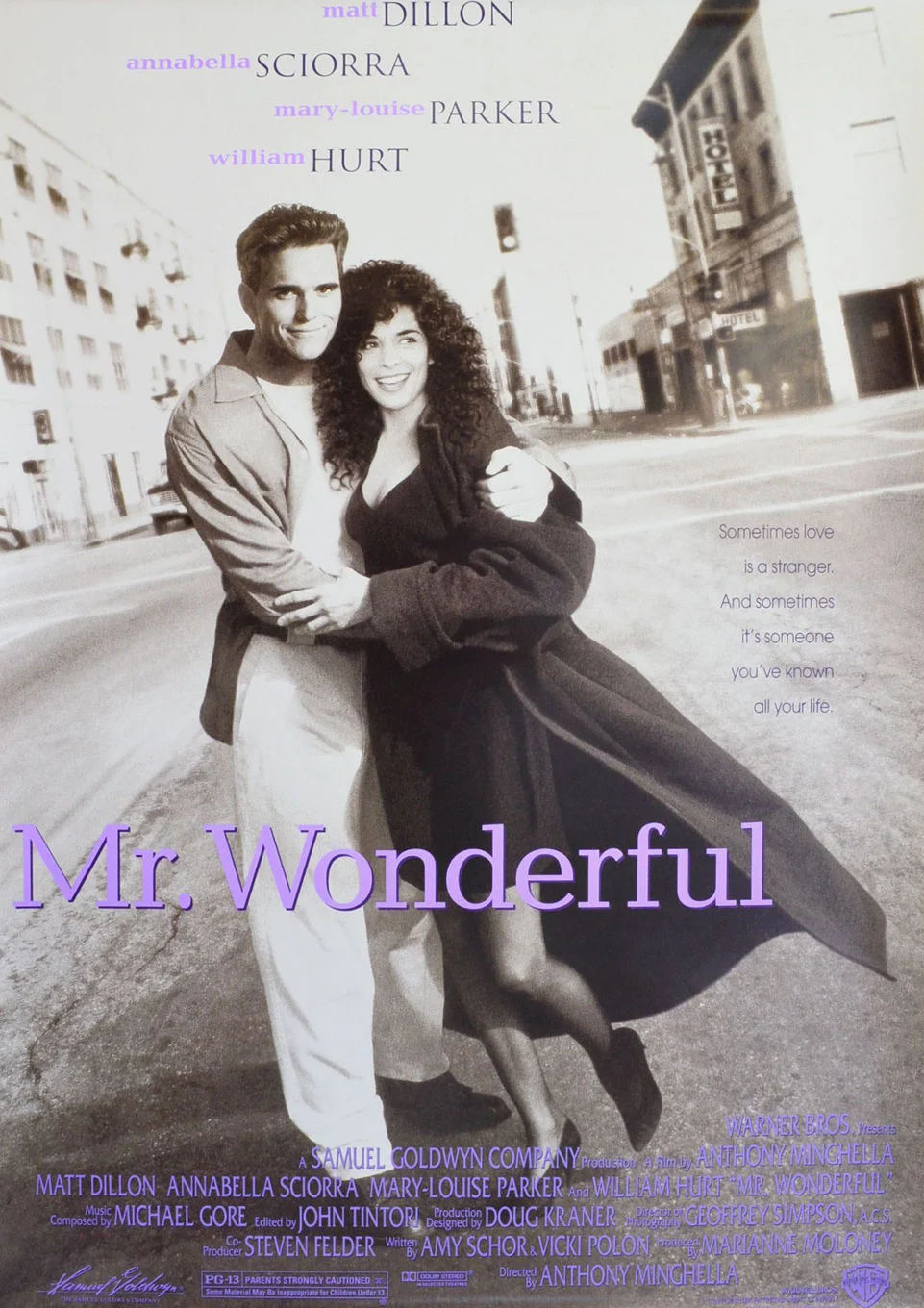
8/13:
Chalk up Mr. Wonderful as one of the best movies featuring Matt Dillon.
He's spectacularly good. Annabella Sciorra, who lights up the room in every scene she appears in, matches her
co-star minute for minute. They're excellent when together and excellent when not together.
Mary-Louise Parker and William Hurt lend their supporting hands to keep the story lively and refreshing. The writing by
Amy Schor and Vicki Polon is the chief reason why it's well-paced with a lot of twists and turns.
I felt energized and
looked forward to what would happen next compared to
The English Patient that was
artificial and detached. I mentioned the latter because both films were directed by Anthony Minghella.
All in all, do I think Mr. Wonderful is a '10' picture? Yes, I do.
Mr. Wrong (1996)
Rate:
2
Viewed:
5/24
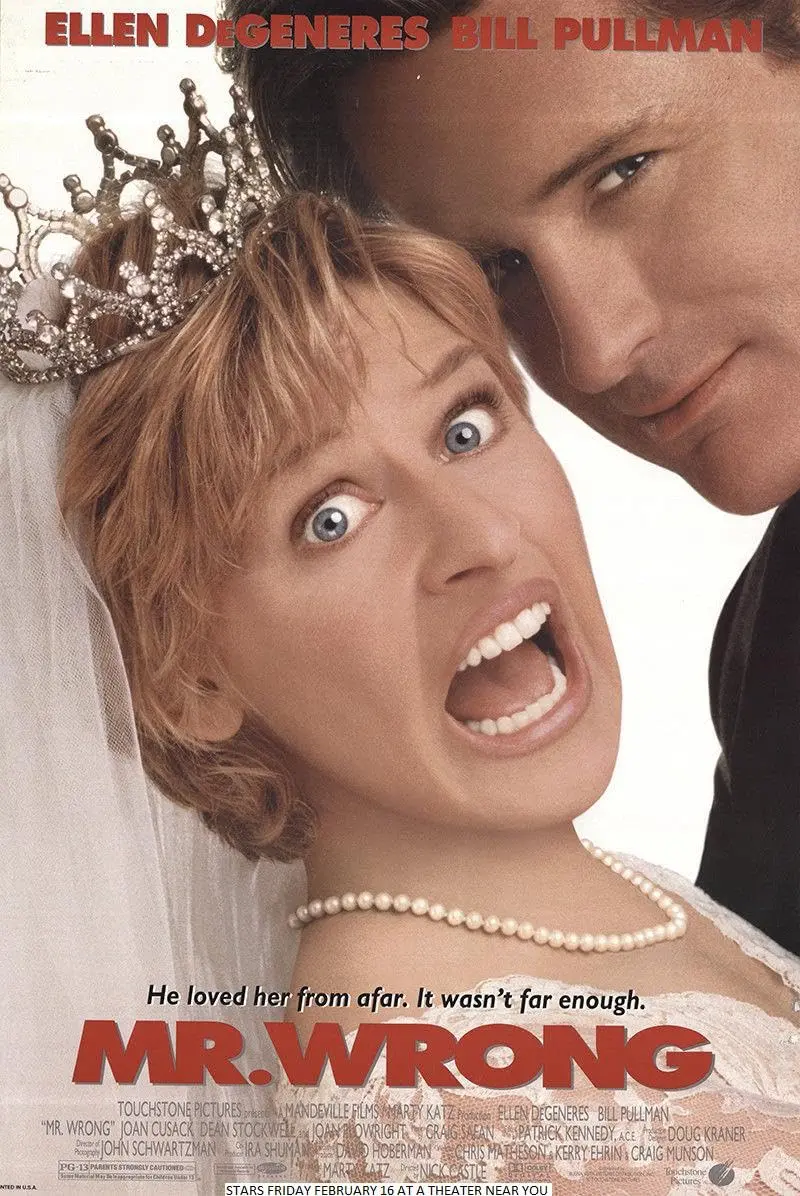
5/24:
Mr. Wrong is an awkward, unfunny piece of crap that was penned by three idiots.
Ellen DeGeneres isn't an actress. She and "romance" don't belong in the same sentence. I can tell she's a
lesbian a mile away. It's what I had been doing the entire time while watching the film: screaming at the
obvious. Her character is an uptight bitch who must have everything perfect in her life.
On the other hand, Bill Pullman is okay but has zero chemistry with Ellen DeGeneres and keeps trying to force
it. His character can be a good fit for some women; it's just a matter of taste. Worse than him by far is Joan
Cusack. I can't stand her, and I never want to see her in anything at all. Why is Dean Stockwell acting like
Sam Beckett's sidekick once again? John Livingston as Walter? Please, get out of here...he's gay.
All in all, because of Ellen DeGeneres, the film should've been retitled as Ms. Wrong.
Mrs. Doubtfire (1993)
Rate:
4
Viewed:
8/25
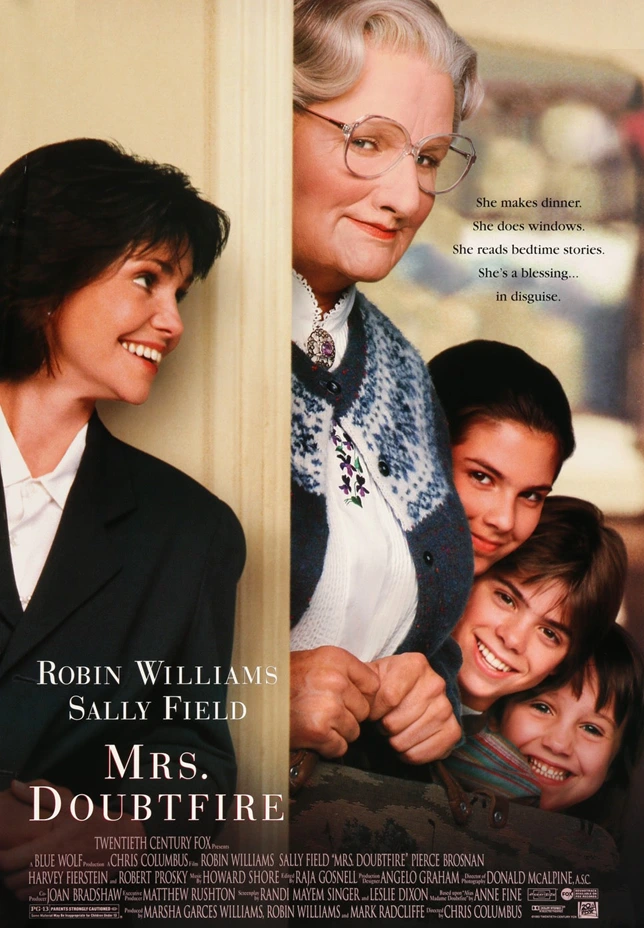
8/25:
The last time I saw Mrs. Doubtfire was in a theatre, and I hadn't revisited the film until now and thought
it would still be funny.
And...wow, it's so bad. For starters, Robin Williams talk way too much on top of his 1,000 different voices.
Clearly, he gives an overdone, immature performance. At one point, Pierce Brosnan, a true Briton, asked him
something like, "That accent...whereabouts in England are you from? It sure sounds nothing familiar,"
but never got a straight answer. I didn't appreciate the part when Mrs. Doubtfire exploited Stu's pepper
allergy; it would've killed him, or was that really an attempted murder?
However, the makeup team deserves the Oscar; it's very impressive work, yet Dustin Hoffman's in
Tootsie is still the most natural I've seen on a man. Here's my problem, but
I'll let the following trivia from IMDb speak for itself first: "The film was shot over 70 days with 40 being
taken up with Robin's makeup which took 4 and a half hours to complete with work starting on him at 5 AM so
that he was ready for filming to start around 9." How can Mrs. Doubtfire have the time to do it repeatedly in
the restaurant and still look great? By the way, the prosthetic mask was never actually worn, and it only
showed up at the end to reach for the gag effect.
Now, we have the mother of all time: how could the wife not recognize her husband through Mrs. Doubtfire?
They've had sex many times for over fourteen years, and she still can't do it? Ditto for the kids (minus the sex,
of course). I've seen twentysomething movies featuring Robin Williams which comes to roughly forty hours total,
and therefore, I am able to spot him immediately. When the wife and kids discovered the truth for the
first time, I suddenly found the whole thing creepy.
Elsewhere, it's a mistake to give Harvey Fierstein a small amount of screen time. I thought he would play
a big role, but nope. As a matter of fact, he could've been a valuable asset for Robin Williams to make the
restaurant scenes easier to swallow. On the other hand, Sally Field is ridiculous; it's always the same face
she makes. The first two kids are passable, but the youngest is super annoying and should've been dropped.
All in all, Some Like It Hot and
Tootsie are so much better than Mrs. Doubtfire.
Mrs. Miniver (1942)
Rate:
6
Viewed:
9/25

9/25:
"Average middle-class family"?
With a mansion, a huge patio, a maid, a fancy car (1936 Lagonda LG45, mind you), a son attending Oxford
University, and elegant clothes in England? Yeah, suuuuure.
In Mrs. Miniver, Greer Garson looks too beautiful all the time, but doesn't she or anyone else realize
there's a war going on? More than anything, they, save for Richard Ney, are detached, preferring to resume
their privileged, sheltered lives, hence the propaganda. In fact, Joseph Goebbels was duly impressed by
what he saw.
I can't believe everybody thought it was a good idea to hold the annual contest for best-looking flowers
and have a ceremony to award prizes. This was done during WWII! When tragedy occurred at the end, I was like,
"Yeah, no surprise." All Mrs. Miniver and Carol Beldon had to do was stop in the middle of the forest and wait
out the attack. I admit the latter's death caught me off guard because I was expecting it to happen to Vin.
Of the cast, Walter Pidgeon sucks and doesn't belong in the film. He's obviously gay in real life, showing
no chemistry with his leading lady. Richard Ney and Teresa Wright are better and more real, giving the film
a purpose. If Greer Garson kissing Richard Ney seems strange for mother and son, then you're right. They even
married each other after the film was theatrically released despite their 12-year age difference.
Greer Garson is okay but relies on perfect pose to get through all scenes despite her limited set of
emotions. May Whitty plays an annoying character [memo to Hollywood: just stop with the "Dame" crap; it's
so pretentious!]. Almost everybody including Henry Travers has been Oscar-nominated, but I'm surprised that
Richard Ney wasn't. Only Greer Garson and Teresa Wright won.
All in all, Mrs. Miniver is a passable Best Picture winner.
Mulholland Drive (2001)
Rate:
3
Viewed:
8/05, 2/11, 3/17

2/11:
News flash! News flash! News flash!
You've been had. I repeat, you've been had. My goodness, Mulholland Drive is so David Lynch that nothing happens.
To keep things interesting, he manages to convince Naomi Watts and Laura Elena Harring to take off their clothes and
fondle each other. As a reward, David Lynch was given an Oscar nomination for Best Director. What a talent he is.
The truth is that David Lynch hadn't been relevant since 1986 when he did
Blue Velvet. Twin Peaks is what killed
him. He isn't even on the same level as Peter Greenaway.
All in all, it's okay to dislike a film like Mulholland Drive in spite of how highly many pseudo-intellectuals think of it.
3/17:
I gave Mulholland Drive a second try, and it's still trash.
All in all, the saying "the emperor has no clothes" has never been more true for David Lynch.
Mulholland Falls (1996)
Rate:
4
Viewed:
6/16
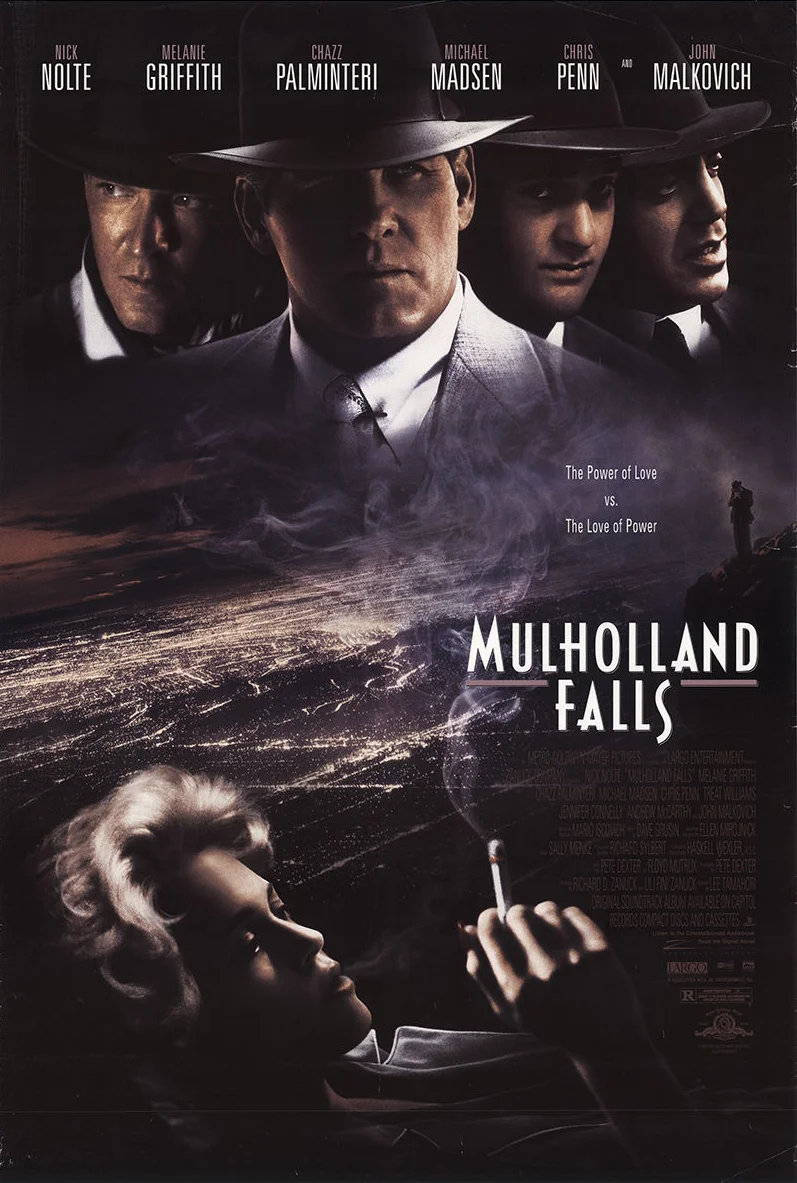
6/16:
Think of Mulholland Falls as The Four Stooges with Hats.
Looking up who directed it, I was like, "Lee Tamahori? Lee Tamahori?" A familiar name notwithstanding, I
drew a blank. After checking out his résumé, it seems he had spent a part of his career directing sequels. Interestingly,
in 2006, Lee Tamahori, while dressed up as a woman, was arrested for offering an undercover cop oral sex.
Okay, back to the film. Basically, it's about finding out the reason why the hooker with the most
amazing breasts was killed. That's it. The movie ends. John Malkovich is grinning from ear to ear for having touched them.
Nick Nolte is fine. Everybody else is wasted. There's no point for having Chazz Palminteri, Michael Madsen, and
Chris Penn on board. I'm surprised that Andrew McCarthy was cast. I thought his career died at the end of the 80's,
and this is 1996. By the way, atomic bombs don't create craters.
All in all, Mulholland Falls is a slightly better movie than
L.A. Confidential, but it's still a stinker all the same.
Multiplicity (1996)
Rate:
7
Viewed:
7/25

7/25:
It only takes a goldmine premise to make a film and a bad director to tear it down partially.
That's what happened to Multiplicity. There are not one or two or three but four Michael Keatons in the
same scene. It's ingenious, requiring extensive special effects work. The other option is finding a real
quadruplet to pull it off. What a surprise the movie lost money at the box office. I thought people would like it.
There are funny moments, thanks to Michael Keaton's antics. I like the issues that cloning presents and a couple
of witty lines: "I trust him like I trust myself" and "Oh, my God, Doug. You could have bipolar disorder or
multiple personalities." Andie MacDowell hadn't done well in some romantic comedies like
Green Card and Just the Ticket, but
she's a lot better this time.
However, the movie is way too long. Seeing three or four Michael Keatons in many scenes can sometimes be
overwhelming. The decision to turn the third clone into a full-blown mental retard is a mistake that's rather
offensive. Secondary characters are simply discarded, and the worst of them all is the scientist, played by Harris
Yulin, when he should be providing help and advice. The original husband going away for a sailing trip makes
zero sense.
All in all, Multiplicity is a must-see film for Michael Keaton fans, but a better director than Harold
Ramis is needed to reach for that full dose of entertainment.
The Mummy (1959)
Rate:
4
Viewed:
2/08
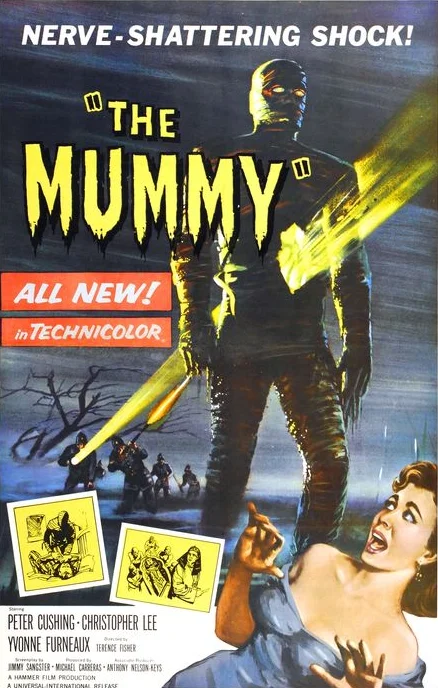
2/08:
I'll be generous by giving The Mummy a weak rating of '4'.
The acting is fine but is nothing special. Christopher Lee is probably the best thing going. Unfortunately, he's not helped much
by the dismal script. I can spot maybe at least twenty-five instances that have gone wrong, so here are some of them:
One, when the treasure is found, the inside looks new when it should be old, dirty, rotten, and dusty.
Two, the room where Princess Ananka's tomb is found, look at how clean and well-lit it looks and how fresh the paintings are.
Three, how can the sun make contact with the ruby to allow the green light appear in the room?
Four, the rope by the door looks none the worse for wear.
Five, the English language spoken by the Egyptians during 2000 B.C. is modern. So, what's the need for hieroglyphics?
Six, speaking of hieroglyphics, as the Egyptians are reading from the scroll, the papyrus and the symbols look new.
Anyway, I don't like the first half, but it gets better during the second. Plus, the ending is disappointing for being abrupt.
All in all, The Mummy is a terrible film.
Mummy's Dummies (1948)
Rate:
7
Viewed:
12/07

12/07:
Comedy is finally restored for the Three Stooges in Mummy's Dummies.
It's much funnier this time around and doesn't disappoint me like the previous film shorts. Oddly, one of the King's men
looks like Curly. Who can believe an Egyptian chariot is equipped with rubber tires?
All in all, Mummy's Dummies is hilarious.
Munich (2005)
Rate:
2
Viewed:
12/08
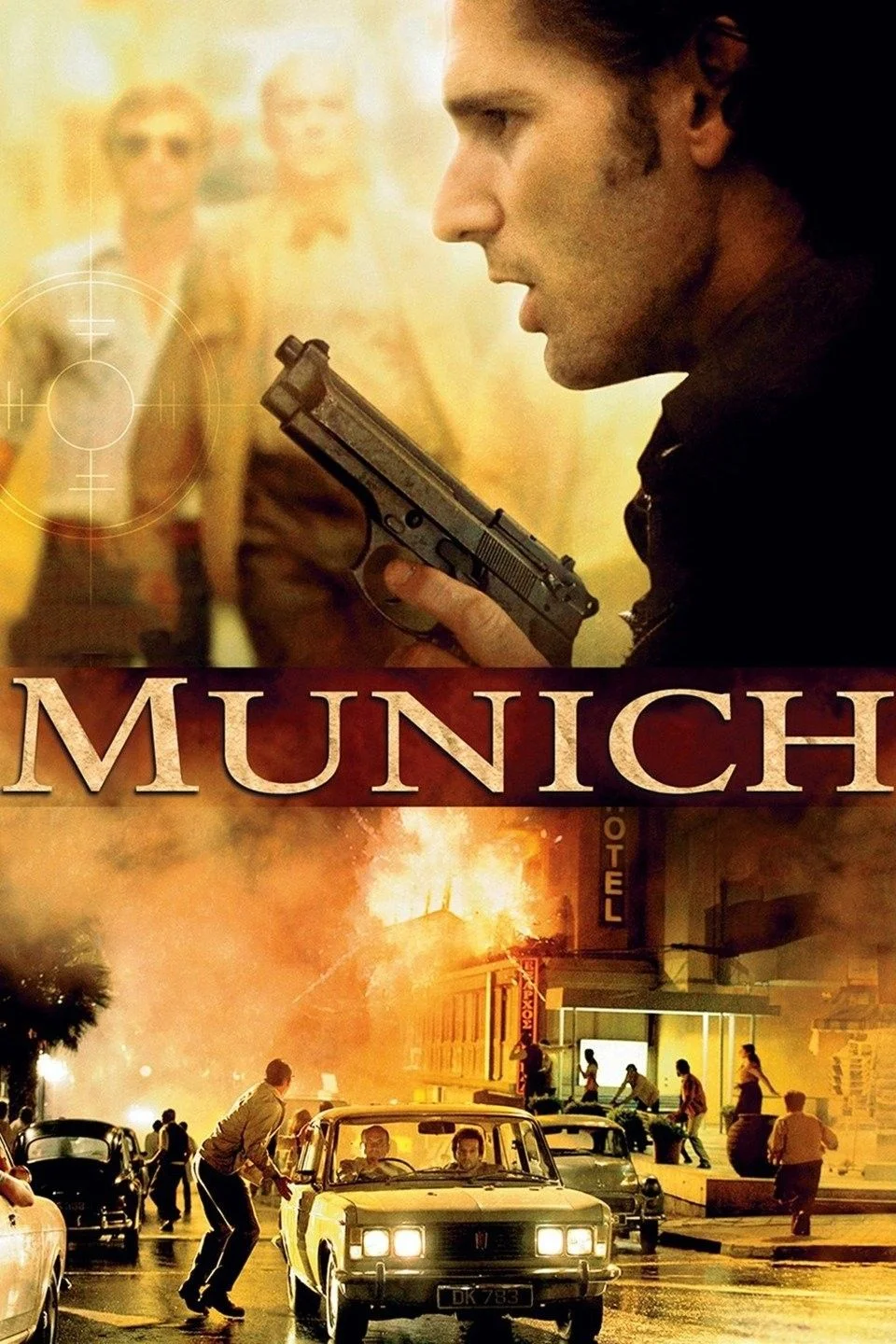
12/08:
I guess what Munich is saying is that revenge is a very beautiful thing.
Despite the fact that I don't care about the differences among people when it comes to their political beliefs, race, and color,
among others, how can I relate to the rubbish that's spewed out by the film?
From time to time, I've forgotten what the premise is. Much of what's happening is murky, leading me to say, "Okay,
this Arab is killed for something that's related to the incident in 1972. And we're moving on to the next Arab."
That's been the case the whole time until the last half hour when the protagonist has sex with his wife and he
visualizes the final showdown at the airport despite not being there. Hm, tell me again, what's the point of the movie?
It's counterproductive when the "good" guys looking for the terrorists end up being terrorists themselves.
All in all, Munich is pointless.
Murder at 1600 (1997)
Rate:
8
Viewed:
6/05, 2/21

6/05:
You got to love the movie poster: it's all about the sunglasses.
Anyway, Murder at 1600 is a stupid, weak murder mystery picture with a whodunnit angle that can be easily
figured out right from the outset. The formula is typical: throw out a lot of red herrings and let the
murderer stay in the background for as long as possible. That's why I knew who might have done it.
Wesley Snipes' acting is sometimes poor. Diane Lane is awful. The rest of the cast isn't any better. Everybody
is too serious and robotic.
When Harlan Regis saw the wet footprints inside his apartment before attempting to apprehend the intruder, why
didn't he shoot his leg to prevent him from running any further? If the murder happened at 1600 Pennsylvania
Avenue, then it'll mean the President of the United States would have to cooperate with the authorities,
right? Speaking of them, why is the D.C. police involved (they can't figure out shit, believe me) when it's
supposed to be the FBI?
All in all, Murder at 1600 is a major insult to intelligence.
2/21:
Murder at 1600 has aged well.
The strongest selling point is Wesley Snipes. He's fun to watch. What I remember the most over the years is his
character's dilemma of what to do with the Civil War landscape project. To help Wesley Snipes out is the
engaging murder mystery with plenty of suspects, but why a D.C. detective when the FBI has the jurisdiction?
There are some who's who in the cast: Ronny Cox of Deliverance, Harris
Yulin of Clear and Present Danger, Daniel Benzali of
Murder One, and Alan Alda of M*A*S*H. Only Diane Lane is the weakest
link; she's just all right. Dennis Miller occasionally disappears for a long stretch for some weird reason.
I figured out right away who did it in 1997 when Alan Alda first appeared due to his run of baddies in several
films: Whispers in the Dark,
And the Band Played On, and
White Mile. So, it's no surprise there. If he weren't cast, then yes...the
movie would've been unpredictable.
What I like about Murder at 1600 is that it's close to the truth. The U.S. Secret Service is often
involved in a cover-up of anything that concerns the president or his relatives. It's been applied many times
during JFK's term for his sexual liaisons despite the fact that he's married and a supposedly practicing
Catholic.
The White House is one of the, if not the, most heavily guarded place in the United States. It's also the most
surveilled. I find it all stupid that the murder case can't be solved by showing the video recording of the
murderer. The tape just needs to be produced which reminds me of what happened with Ray Rice in Atlantic City.
It's the only part bothering me throughout.
Remember the guy who wanted to commit suicide at the beginning of the film and Wesley Snipes punched him in
the face? Believe it or not, the actor did do that for real by slashing his throat in 2005, and his name was
Charles Rocket.
All in all, Murder at 1600 is entertaining as long as I don't think deeply about it.
Murder by Contract (1958)
Rate:
2
Viewed:
1/25

1/25:
Vince Edwards stinks, and Irving Lerner stinks.
Because Murder by Contract was made before City of Fear, a film I saw
first, I thought the former would be better than the latter, but nope...it's much worse. The description
reads, "Claude is a ruthless and efficient contract killer." No, he is not; he's just an idiot. At one
point, his handler told Claude to use a gun, and he replied that he didn't believe in firearms. Eventually,
he decided to use a sniper rifle. Some hypocrite Claude is.
One of the two handlers is named Marc. He's the single reason why the movie sucks because he won't
shut...the...hell...up. I was hoping Claude would kill him already. He did, but it's way too late. The
other issue is the script. It's a lot of pointless talking. Just get the job done and move on; who cares
about the philosophies and all that bullshit?
On the last job, Claude decides to waste days (10!) by taking in the sights of Los Angeles and whatever. Finally,
he's ready to go to work before finding out it's a *gasp* woman he has to kill. He's shocked and then demands
a double of the price. No...no...no...get rid of him, and start all over again.
By the time Claude is inside the house, he has her in person. What does he do? Nothing, and he leaves.
Brilliant.
All in all, you can do way better than Murder by Contract by watching
Collateral.
Murder by Death (1976)
Rate:
9
Viewed:
1/15
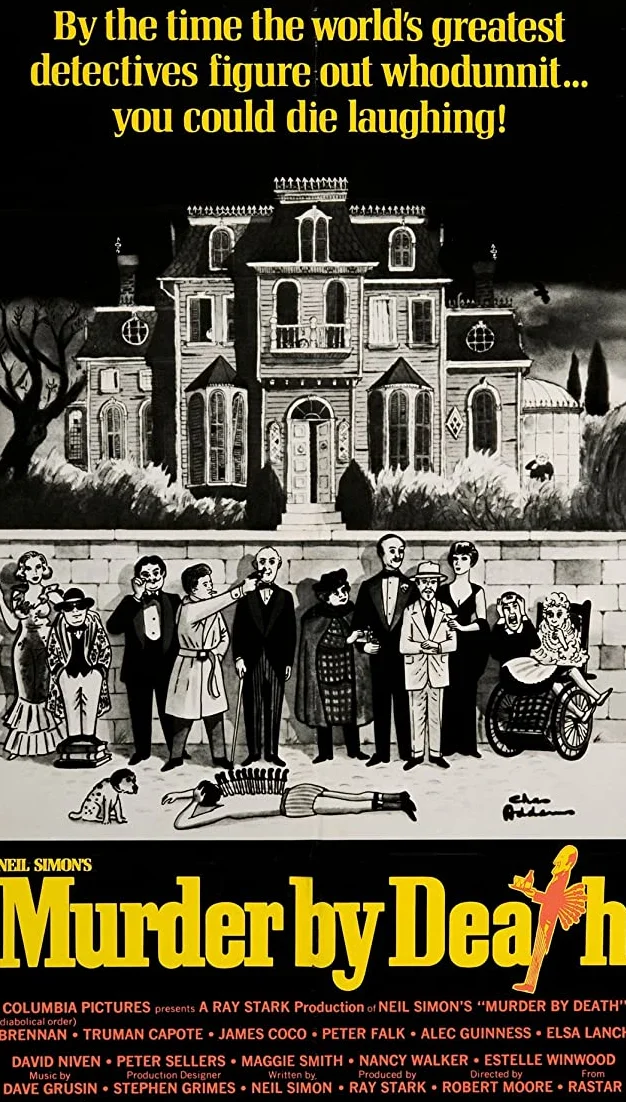
1/15:
Murder by Death is terrific fun at the hands of Neil Simon.
I love how he pays homage to various famed movie detectives. The impressions are clever and funny, too. Sidney Wang is
Charlie Chan of the eponymous movie franchise. Sam Diamond is Sam Spade of
The Maltese Falcon. Milo Perrier is Hercule
Poirot of Murder on the Orient Express, among others.
Jessica Marbles is Miss Marple of Agatha Christie's works.
Along with their dog, Dick and Dora Charleston are Nick and Nora Charles of
The Thin Man.
You have to see the aforementioned films first in order to appreciate the humorous subtleties.
Although I don't like Peter Sellers, his impression of Charlie Chan is the funniest of them all. He's hilarious, has great
lines, and is constantly omitting articles to Truman Capote(!)'s dismay.
Mocking the authors of detective novels, Truman Capote gripes about how characters appear from nowhere in the last five pages,
surprise endings are conceived, and important clues are hidden from the readers, making it impossible for
them to solve the mystery. It's really true. Henceforth, the ending is funny because the tables are turned around against
them. Even funnier is the blind butler and the deaf mute maid's antics who are respectively played by Alec Guinness and Nancy
Walker.
All in all, Murder by Death is a treat for lovers of the detective genre.
Murder by Decree (1979)
Rate:
1
Viewed:
8/12
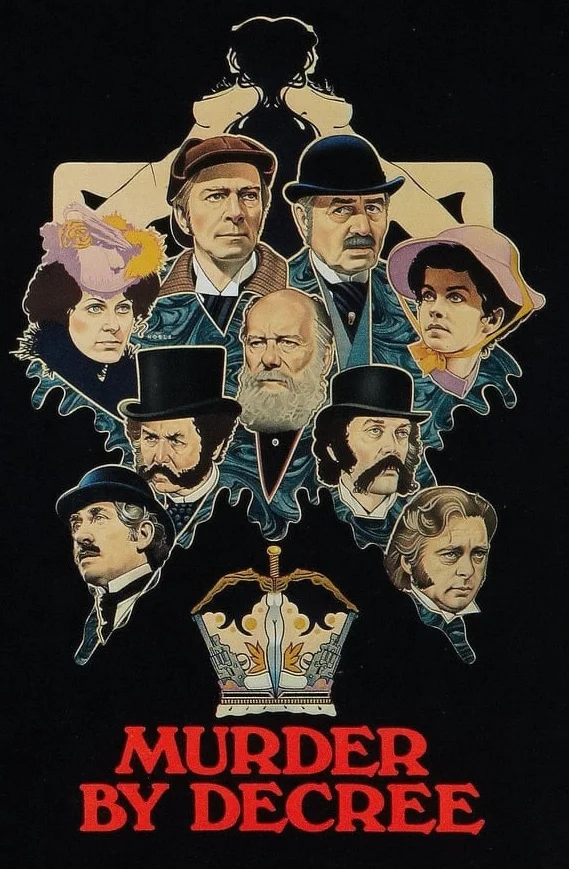
8/12:
Proclaimed to be the best Sherlock Holmes film ever made, Murder by Decree is a fraud.
I read all of the stories penned by Arthur Conan Doyle, and I knew what Sherlock Holmes and Dr. Watson were. That wasn't
either in the film. Both are frauds who are poorly played by Christopher Plummer and James Mason. The former needs to give it
up and read the book for real. The latter should've retired from acting altogether.
Oh, man. Christopher Plummer's "Sherlock Holmes" cries on screen. He's also manhandled, gets tossed around,
and thinks out loud. There's not a single trace of genius in him.
How weird is this "Sherlock" cost people's lives instead of saving them and not solving the case in a quick
workmanlike fashion. I can come up with the typical Holmesian tactics of how it's supposed to be done, but I'm not going to bother. And
believe me, the real Sherlock Holmes will never need a clairvoyant for help. He would be shooting up to five times the usual
amount of cocaine into his vein if the thought ever occurred to him. On the other hand, "Watson" is a pushy and obnoxious
meddler who does too much which is unlike him in the book. Lestrade and others have chided "Holmes" for
trespassing around the crime scene. Ridiculous shit.
The Sherlock Holmes stories in print were rich in language. But the screenplay contains none of it. In fact, I had no goddamn clue
of what's going on during the entire film. Besides, what's with the insertion of profane words such as "bloody," "damn,"
and "blokes"? Nobody ever said them in the book.
Remember the funeral scene for the murdered prostitute and notice how eloquent it was
for a dirty, slovenly woman with no teeth? That's hardly likely. The thoroughfares and mews of London weren't paved back then;
mud ruled the streets. Sherlock Holmes did a study of it, right down to the location for each specific mud type.
Disappointingly, Donald Sutherland, who's the sole reason why I decided to watch the film, appears for mere five minutes,
mostly in trance. I've considered giving the film a '2' because of the well-constructed Victorian English look, but the
negatives have been too much for me to overcome.
All in all, I want to take these little peas and shove them up Watson's snotty noseholes.
Murder by Numbers (2002)
Rate:
7
Viewed:
10/19
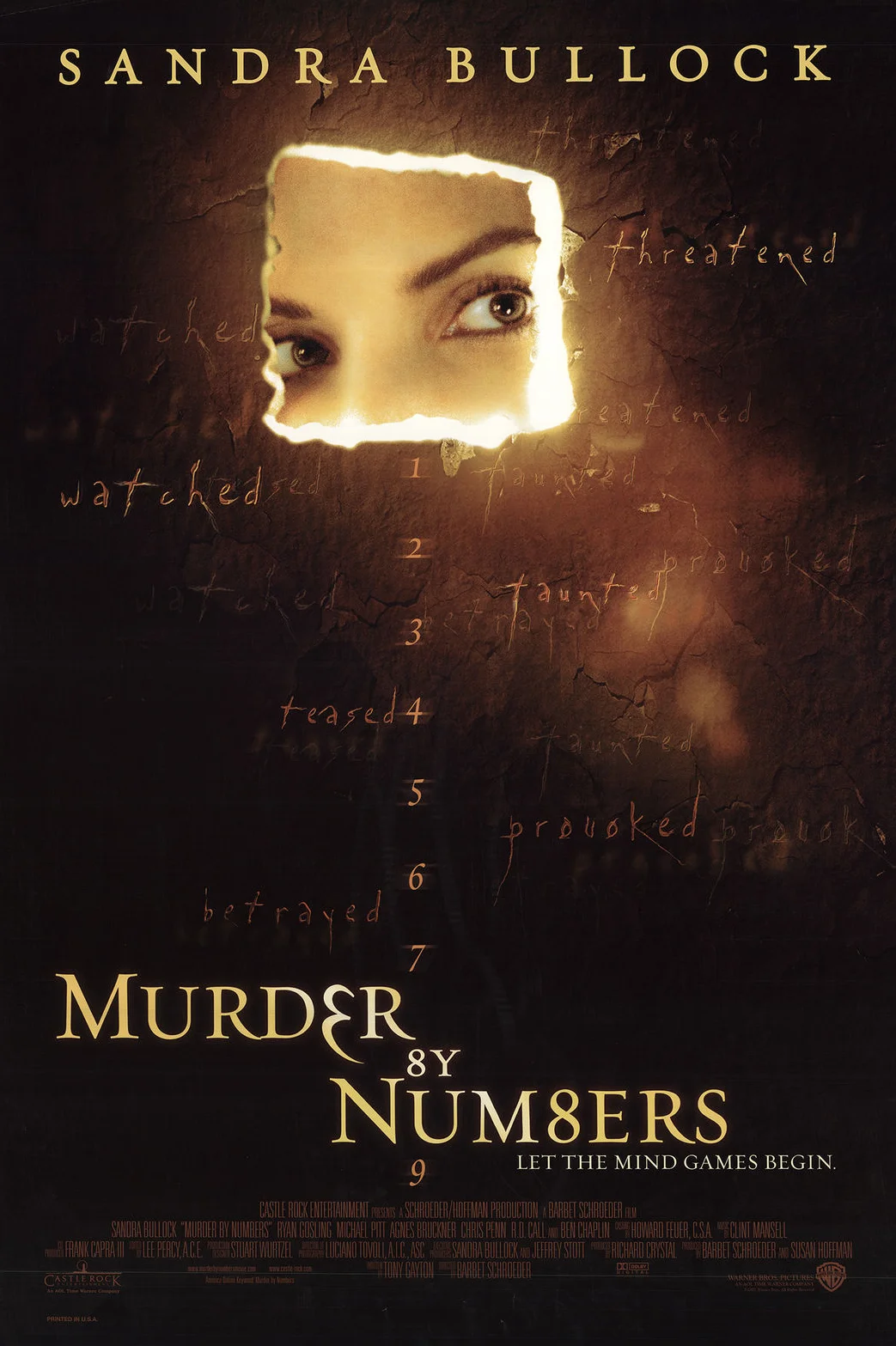
10/19:
I hate Sandra Bullock, and she's the primary reason why I avoided Murder by Numbers for a long time.
After seeing it, it's still the same bullshit acting from her, and nothing has changed. Sandra Bullock has never been
nude in any film; when her character is having sex with Ben Chaplin's, she has a shirt on?!? Ladies and gentlemen, this is
not a real actress. Now move over, bitch...here comes a real actor: Ryan Gosling.
What an amazing performance. Ryan Gosling should've been Oscar-nominated for Best Supporting Actor. Charming,
manipulative, and a bit of James Dean wannabe, he, hands down, steals the show and is on another level as compared
to the rest of the cast.
The other two, Ben Chaplin and Michael Pitt, have done a great job of holding their own against the difficult-to-match Ryan
Gosling and the pushover Sandra Bullock who tries hard to wrest away some of the attention for herself. But who are we kidding
here? She's secondary to Ryan Gosling.
Yes, I can tell right away that Murder by Numbers is Rope. It's straight out of Leopold and Loeb's playbook
which is the genesis of films like Strangers on a Train,
Compulsion, and Heavenly Creatures. One
nice thing about Murder by Numbers is that it's not confined within a room. My favorite line is when
Justin told Lisa, "I wish I met you first." That's an understatement of the century. Had he did, the direction of his life
would've been totally different.
Another downer is the terrible special effects whenever the house on the cliff is shown. I can tell it was
superimposed against the green background, and the whole composition never meshes well. The cliffhanger scene is
Final Analysis all over again; it's the same exact setup minus the lighthouse. Didn't they do the same thing for
Color of Night, too? Come on, can we have some originality here? Of course, I don't have to tell you this, but the car
that Gosling's character drives is the same type used in Bullitt.
All in all, Ryan Gosling is the super krazy glue that holds Murder by Numbers together.
Murder by the Book (1987)
Rate:
3
Viewed:
3/15

3/15:
Murder by the Book is a cheesy murder mystery telefilm starring Robert Hays of
Airplane! fame.
He plays Hank the mystery writer who's involved in several murders and art fraud and asks for help
from the detective character of his own novels to get out of his predicament but doesn't listen to anything he says.
Sounds stupid, doesn't it? What I don't get the most is: how can Hank not know what
to do despite the fact that he wrote the murder mystery novels and seemed to have an idea of how the story went? It doesn't
make sense. Meanwhile, no one, and I don't care who he is, is ever granted bail after being charged with three murders. And
how will his lawyer make a case for him?
All in all, although the concept is novel, Murder by the Book has me overcome with many eye-rolling scenes and bad
acting.
Murder in Coweta County (1983)
Rate:
8
Viewed:
9/21
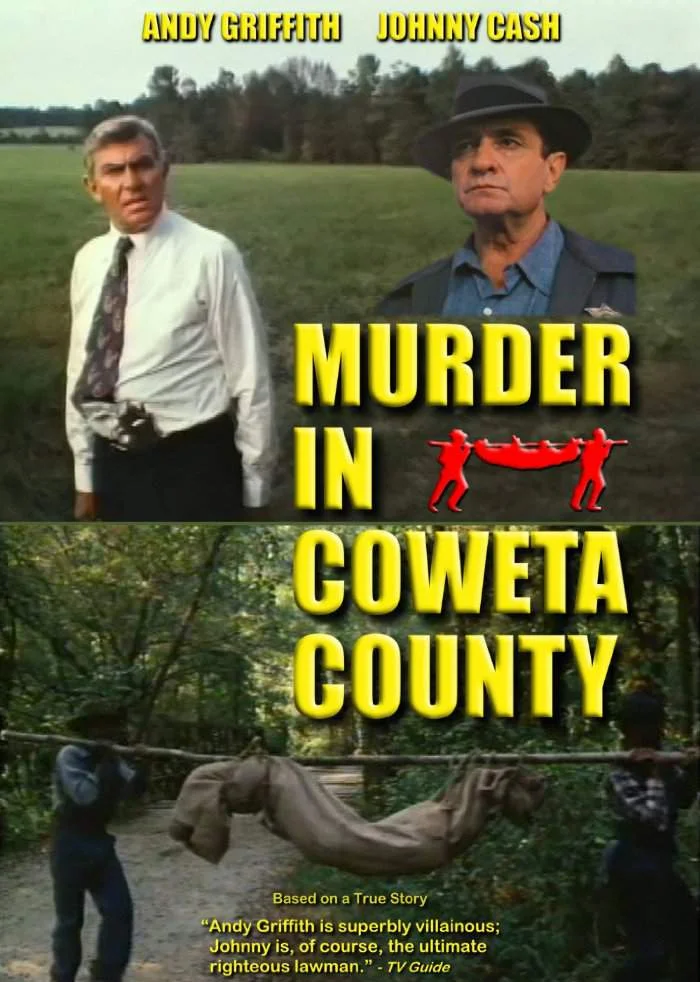
9/21:
Andy Griffith...Johnny Cash...two black men carrying a dead body that's wrapped in burlap blanket on
pole...Murder in Coweta County.
Spooky stuff. Based on the book by Margaret Anne Barnes, the film is as Southern Gothic as it gets.
Solid police work makes for a straightforward case. The made-for-TV quality is obvious, but still, the acting
is great with Andy Griffith taking top honors by going against type. Johnny Cash is terrific as the
righteous sheriff. The seer is played by his wife June Carter Cash.
The story happened for real in 1948. Coweta County is on the west side of Georgia that's directly north of
Meriweather County, both not far from Atlanta. John Wallace was a wealthy white landowner who controlled
everybody in Meriweather County including the sheriff. Wilson Turner's truck was supposed to have less than
enough gas not to go past the county line, but it did, reaching Coweta County where everything started to
unravel for Wallace.
Because the murder happened in the wrong county, Wallace had no control over the events, was subsequently found
guilty of murder that got sealed by his unthinkable speech on the stand, and died on the electric chair. The
case set two precedents: a wealthy white landowner could be punished by death and the testimony of two black
men was taken seriously.
All in all, like In Cold Blood and
The Onion Field, Murder in Coweta County is a factually true
crime picture with inspired casting choices of Andy Griffith and Johnny Cash.
Murder in the First (1995)
Rate:
8
Viewed:
3/06

3/06:
Murder in the First is a well-directed picture by Marc Rocco who got the best effort out of Christian
Slater and Kevin Bacon.
If there's a top performance in Kevin Bacon's oeuvre, it's this one. The same goes for Christian
Slater. However, I'm disappointed with Gary Oldman's phony acting.
I love the story and the courtroom drama although the movie can be meandering at times. No matter what, it's exciting
and arresting to watch.
All in all, Murder in the First is compelling.
Murder in Three Acts (1986)
Rate:
8
Viewed:
12/10
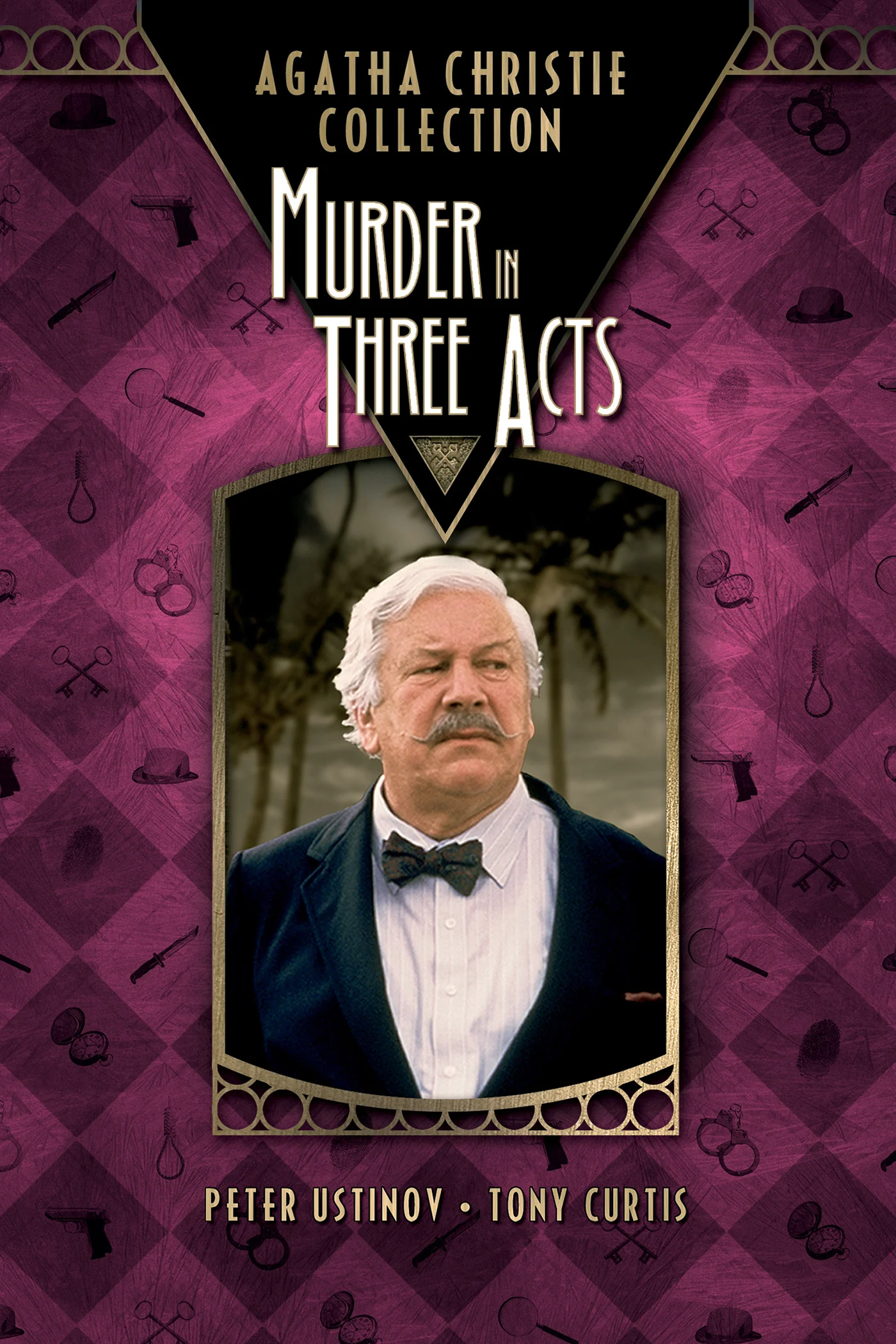
12/10:
The great Peter Ustinov serves up a delicious dish in Murder in Three Acts which is based on an Agatha Christie story.
Of course, all of her adapted films are always fun to watch because of one common theme: murder mystery. Needless to say,
Murder in Three Acts is no different.
The first half hour is funny as Jonathan Cecil keeps throwing out subtle maneuvers. Then, things slow down in
the middle, but the film finishes well in the last fifteen minutes. Tony Curtis, who passed away two months ago, is
wonderful.
All in all, Murder in Three Acts is a nice treat for all murder mystery fans.
Murder Is Easy (1982)
Rate:
6
Viewed:
10/12, 7/25

10/12:
The Incredible Hulk does the incredible in Murder Is Easy: solve a murder mystery by getting lucky
despite getting everything wrong.
I suppose there are two aspects the film has going to overcome the meandering script: the English
cinematography and Lesley-Anne Down's incomparable beauty. The performances are fine, but Olivia de Havilland
overacts, especially toward the end. I solved the mystery right from the outset as soon as I saw one of the
characters appearing the least likely to be a suspect. Hence, the ending didn't surprise me although the
plot is convoluted.
Worse is the idea of Bill Bixby playing professor of mathematics who specializes in probability. Hell, look at
the rubbish computer program he used to "solve" the case. There's no reason for him to be involved. Leave that to
the professionals. It's what they're trained for. No matter what everybody said, the professor was being
lied to.
Not to be missed is the big catfight between Olivia de Havilland's and Lesley-Anne Down's characters. It's
a hoot. Notice how the doctor sampled the drug by tasting it. Suppose it's fatal? What a stupid man. I got to
love the dark gloves Olivia de Havilland had on to give her character away in the most obvious manner.
All in all, Murder Is Easy is an okay murder mystery picture.
7/25:
The clue was given away in the first ten minutes when Helen Hayes said, "You see, the person in question
is just the last person anyone would suspect. And so long as no one suspects you, murder is easy."
After everybody had been lined up, I quickly pointed out Olivia de Havilland, and ergo! The mystery was solved
very, very, very early. Had anyone seen
Hush...Hush, Sweet Charlotte?
Prior to that, Helen Hayes' character died; talk about getting rid of the goose that lays the golden eggs
so early. Imagine doing the same to Albert Finney or Peter Ustinov.
The most laughable aspect, apart from the catfight between Lesley-Anne Down and Olivia de Havilland, is Bill
Bixby. He's the worst amateur sleuth in a long while, getting absolutely nothing right. How is it possible that
he's granted access to all suspects and their premises and that they'll talk to him so freely? He isn't even
English but an American. By the way, where was police the entire time, especially when the bodies kept
piling up? Worse, what did Lesley-Anne Down see in Bill Bixby? He's way too old for her. They're twenty years
apart in age.
All in all, Murder Is Easy is silly, but Lesley-Anne Down saves it, thanks to her beauty.
Murder on the Orient Express (1974)
Rate:
8
Viewed:
1/06, 1/14, 3/19, 10/20
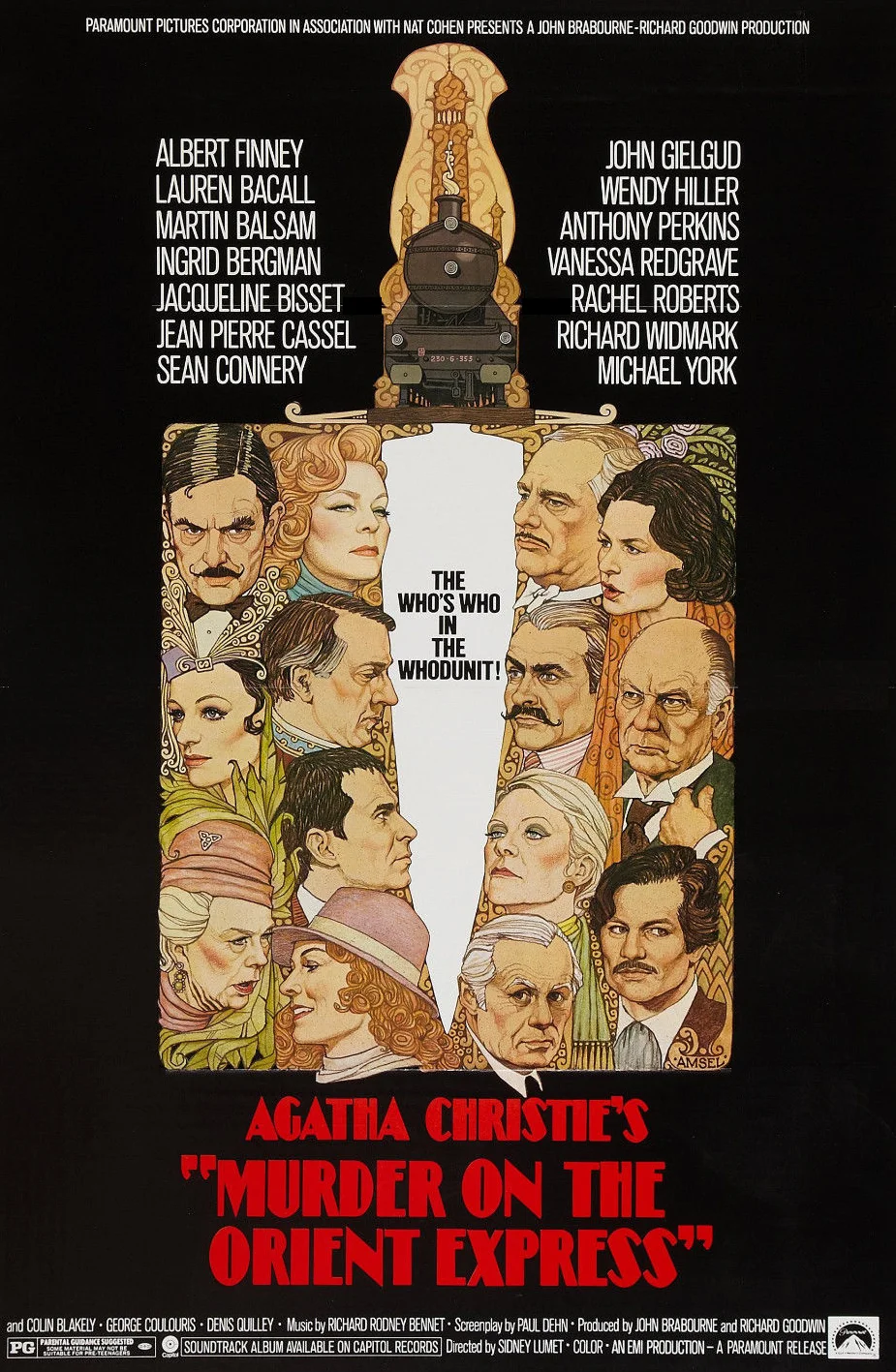
1/06:
Murder on the Orient Express is an adroitly made film by Sidney Lumet that consists of an all-star cast.
Albert Finney is the bona fide maestro of the show. How he plays Hercule Poirot so well. I thought I would hate
him because of his hubris. But watching him, I was won over.
All in all, Murder on the Orient Express is a superb yarn of murder mystery intrigue.
1/14:
Murder on the Orient Express is a lovely atmospheric murder mystery train picture.
The best acting job of the show goes to Albert Finney for his masterful portrayal of Hercule Poirot, a fastidious detective
with Asperger's syndrome. Speaking of performances, how about the overrated Oscar win for Ingrid Bergman?
It's shocking how her looks had gone downhill since Casablanca.
All in all, Murder on the Orient Express is a satisfying picture.
3/19:
Albert Finney recently passed away, and the first thing I could think of was Murder on the Orient Express.
It's the best performance of his career. The movie is star-studded (twenty-nine Oscar nominations and nine
wins including one honorary award), but nobody tops Albert Finney.
A lot of people don't understand how Poirot figured it out, but what he did is merely fact-checking to see
if the people knew their stuff, especially in matters concerning Europe. They all flunked the test. That's why he couldn't
contain his glee toward the end. I admit Lauren Bacall isn't bad, playing a fake actress only because she's no
thespian.
This is the only film adaptation that satisfied Agatha Christie. She was
pleased with Albert Finney's portayal of the famed detective but didn't like his mustache. But Ingrid Bergman winning the
Oscar? Puh-lease! Her looks had certainly disappeared by 1974.
All in all, Murder on the Orient Express is a celebration of Albert Finney's acting greatness.
10/20:
I finally read the book for the first time before seeing the film version of Murder on the Orient Express.
There are slight differences between these two but nothing major. The book is better dialogue-wise and takes its time while
the film deserves credit for making the show happen. What I like about the latter is the nostalgia through the rich
cinematography. The mystery is easy to figure out in the book, but trying to through Poirot's eyes in the film is a
waste of time, hence the need for a longer running time.
With the exception of John Gielgud as Beddoes who doesn't exist in the book and is rather superfluous (really he's a split of
MacQueen in two), the cast is absolutely perfect; they're whom I envisioned in the book. Whoever thought of the
thespians for the characters should be commended. It's who's who of major American and British
stars of the time, adding glamour to the film in the likes of Grand Hotel.
The best part is the characters walking through the platform before aboarding the Orient Express. The train ready to depart
from the station is a remarkable sight. However, things are routine afterwards except for Albert Finney's
virtuoso performance as Hercule Poirot. His proposal of two solutions at the end is spectacular, earning him an
Academy Award nomination.
I can't say that Ingrid Bergman deserved the Oscar for what...five minutes of screen time. It's safe to say the voters
were more shocked to see how much her looks had gone away since Casablanca. She's as good as everybody else while Albert
Finney is the only one who stands out. Interestingly, Vanessa Redgrave will go on to play Agatha Christie in
Agatha with Dustin Hoffman.
All in all, Murder on the Orient Express is always a treat to watch.
Murder with Mirrors (1985)
Rate:
8
Viewed:
2/16
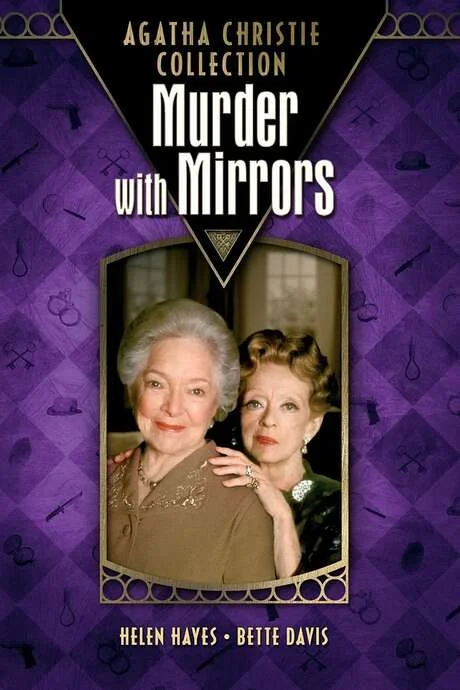
2/16:
I like it when a film doesn't try too hard to deliver a good, easy-to-follow story.
Murder with Mirrors is just that. What I hate about murder mysteries is the need to throw out a lot of red herrings
to prevent me from trying to figure them out. But in this one, who did it won't be hard because the filmmakers
pointed out everybody as a possible suspect.
In the final role of her esteemed career, Helen Hayes is great as Miss Marple. Her co-star
Bette Davis, who's long past her prime, looks none the worse for wear; it'll be among her final films
before passing away four years later. Incidentally, both of them were double Oscar winners.
A rare treat is the sight of the youthful-looking Tim Roth who gives an energetic performance. It's obvious at
that point he was going to be a great actor in the long run.
All in all, as a Miss Marple movie, Murder with Mirrors is better than
A Caribbean Mystery.
The Murders in the Rue Morgue (1986)
Rate:
4
Viewed:
4/24

4/24:
The DVD cover of The Murders in the Rue Morgue seemed interesting that I thought the movie would be
the same way, but alas, no.
George C. Scott has his moments of excellence, and I can tell that he knew how to listen, but the rubbish script
keeps letting him down. Appearing to be totally out of place, Val Kilmer is too much of a newbie to be in George C.
Scott's league and thus shouldn't have been cast. Looking surprisingly old for 44 (too much alcohol?), Ian McShane
is better while Rebecca De Mornay is okay and has a good scene with George C. Scott to get him going.
I like the clothes and the Parisian setting to make the film an easy period piece to digest, but the pace is
so slow that the murder mystery isn't worthy of my attention. When George C. Scott's character began figuring it
out, I was left in the dark all the way to the end. So...what is it? A werewolf? A lion? Nope...it turns out
to be an ape that's played by a human being. Then, the movie ends. That's when I knew I got treated like a joke.
All in all, the director of The Murders in the Rue Morgue invested too much in the look of the period
than anything else.
Murder! (1930)
Rate:
1
Viewed:
7/24
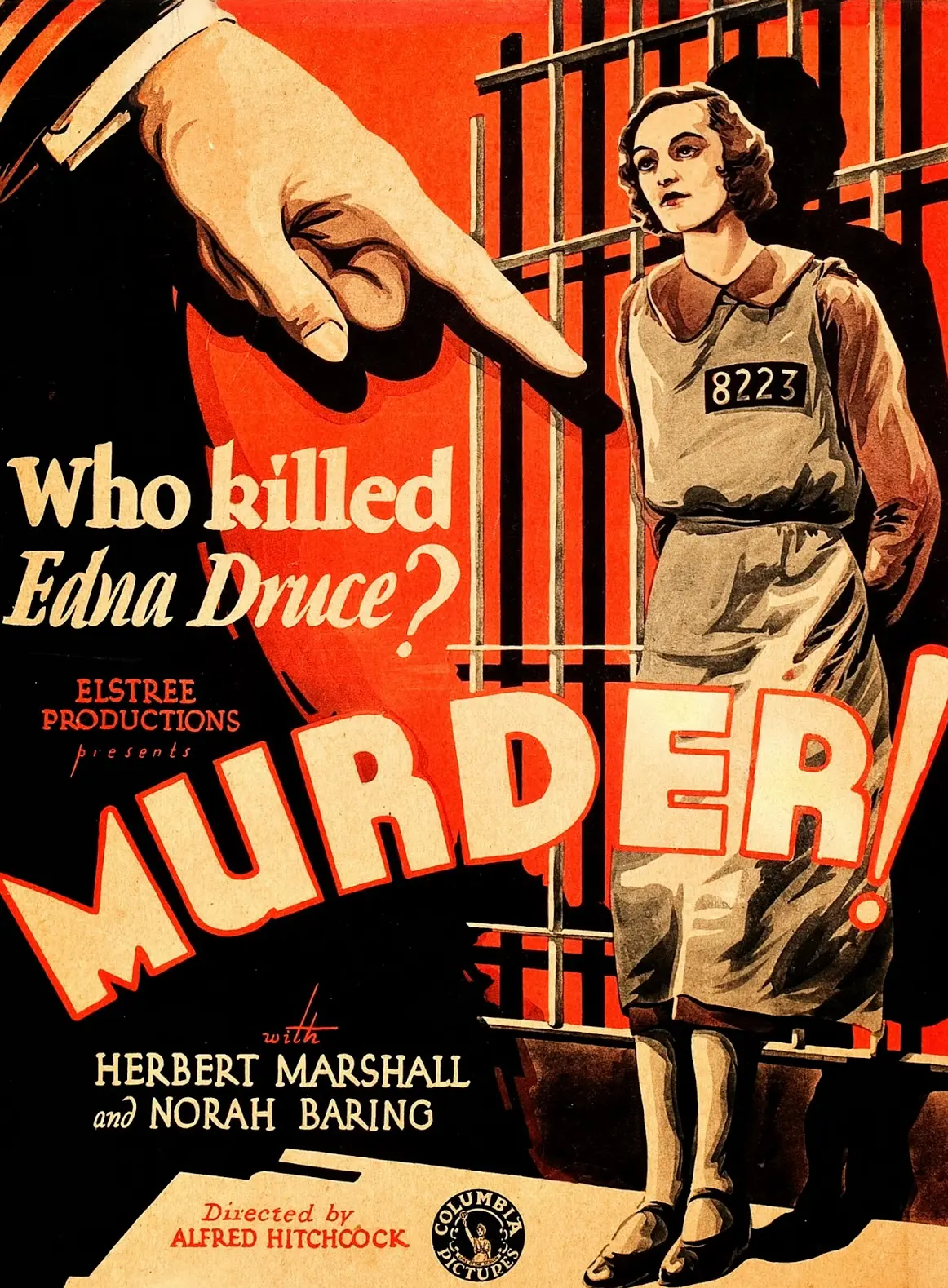
7/24:
I would like to say Murder! was the worst movie Alfred Hitchcock had ever directed, but my vote
still goes to The Trouble with Harry.
The case was over after the jury rendered its verdict. There's nothing else to talk about. Yet this moron by
the name of "Sir" John decides to pursue the matter more. It's what the jury is for! There's no rule that they
have to decide in an hour or less. Take your time...days, weeks, months...however long. They also have the power
to visit the murder scene and explore anything that's on their minds. At the end, the murderer comes freely out
of his own volition and subtly acknowledges that he did it. Yeah, sure.
But really, the movie is ruined by lack of explanation to shed light on what happened. As a result, I got lost
from start to finish on top of the poor script. Instead, I'm treated to a lot of pauses by Herbert Marshall,
slowing the film down a great deal, because he thinks that's what constitutes "acting." No, it isn't...he's
just wasting my time while boring the heck out of me! Alfred Hitchcock is also interested in different technical
aspects such as following two women as they walk between two rooms, but they're so distracting and unnecessary.
All in all, Alfred Hitchcock was most certainly a bad director during the early period of his career until
The 39 Steps came along.
Murder, Inc. (1960)
Rate:
4
Viewed:
3/21

3/21:
Murder, Inc. barely covers much.
I'm given a rambling story that can't decide who the leading star should be. In one direction, it's about
Louis "Lepke" Buchalter. Going the other way, it's Abe "Kid Twist" Reles. Before I know it, Joey and Eadie
Collins take over. Somewhere along the way is a black female who sings her heart out for a long minute. Finally,
it's the cop's show that's led by Burton Turkus and William Tobin. This is what happens when two directors are
attached.
However, the only reason to see the film is the brilliant performance by Peter Falk. It's like watching Joe
Pesci but better. As a reward, he was given an Oscar nomination. I have to say Peter Falk deserved the win more
than Peter Ustinov for Spartacus. Every scene he is in, he's amazing. When
he's away for a short period of time, the movie dies.
Other than Peter Falk, everybody is more or less soap operatic. Most of it is heavily supplied by Stuart Whitman.
May Britt is the blonde-haired woman who stopped acting after Sammy Davis, Jr. married her, a rarity given that
interracial mariage was illegal in 31 states. David J. Stewart plays a stupid character because somebody of
his high stature won't move into an apartment of nobodies and immediately talk shop, especially when murder
is involved.
It's interesting to hear in a Hollywood film the actual names who were involved in the mafia. The truth is
that everybody had been long dead and wasn't important in the grand scheme of things. For the most part, the
government, especially the FBI, turned a blind eye to the Mafia, allowing it to flourish unchecked, and it
wouldn't crumble until the 80's, thanks to RICO.
All in all, if Murder, Inc. didn't exist, there would've been no Columbo.
Murder, My Sweet (1944)
Rate:
2
Viewed:
11/06
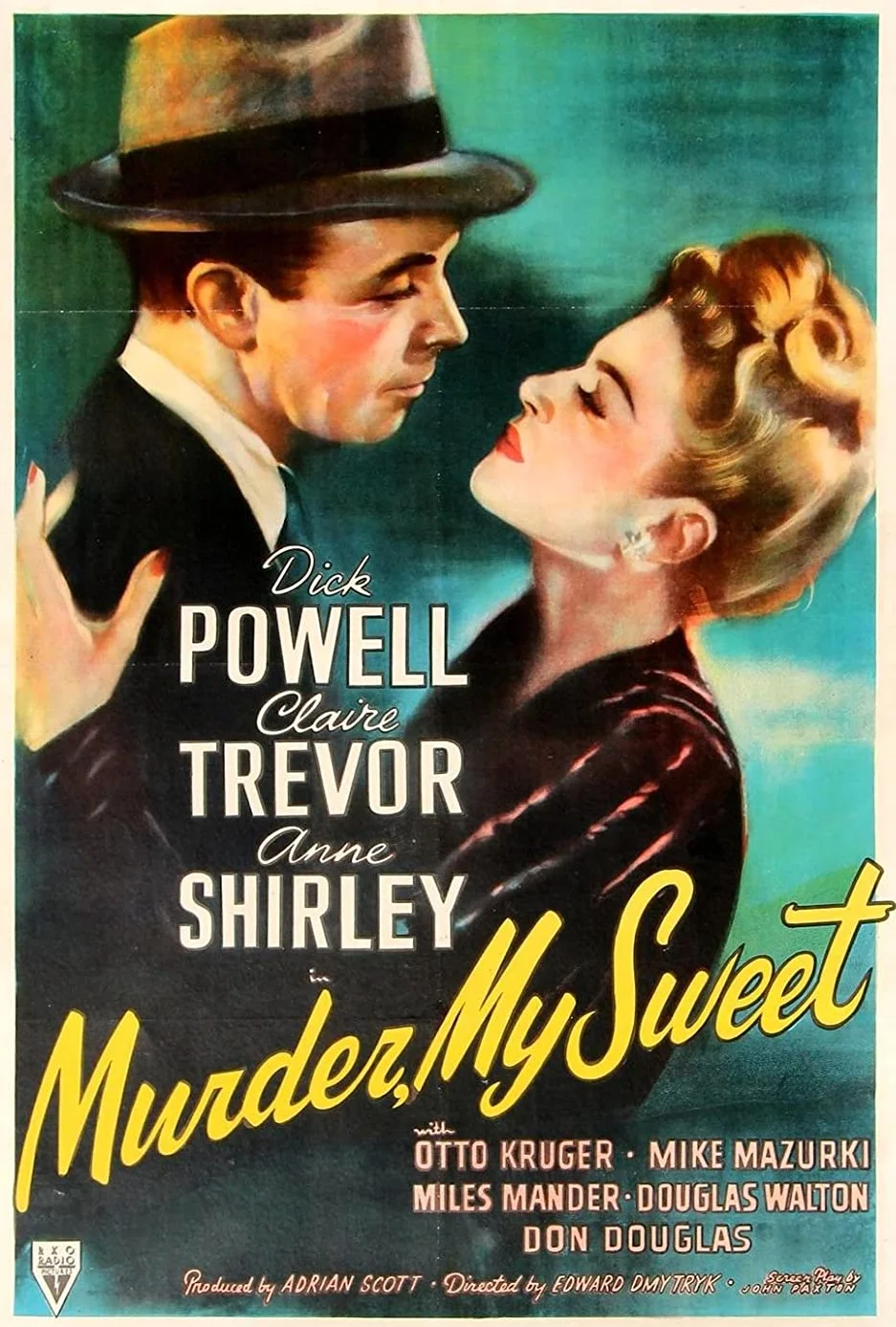
11/06:
I had high expectations prior to seeing Murder, My Sweet and thought it might be a film noir great.
It turns out to be a talky picture that tries too hard to be in the mold of
The Maltese Falcon. Dick Powell is
the wrong fit for a private detective. He doesn't have it. In fact, Dick Powell was never a good actor to begin with.
The characters talk too much. Why can't they shut up and let things evolve naturally? I mean, that's how
Chinatown
worked out. Instead, it tries to use the dialogue to baby me through the mystery.
The definition of film noir as a genre wasn't realized until many years later, and nobody was
conscious of it at the time. But for Murder, My Sweet, the filmmakers sure knew what they were doing and tried too hard to make it work.
All in all, Murder, My Sweet is a heavily flawed film noir picture.
Music Box (1989)
Rate:
10
Viewed:
3/19, 5/19

3/19:
Joe Eszterhas is a gifted writer, and he finally wrote a screenplay that didn't require suspension of disbelief.
All too real, Music Box is a powerful drama about a daughter realizing the truth of who his father is, a
former Nazi commandant who went unpunished for the brutal murders of Jews. The lies he tells her are chilling,
and she has been in denial for so long because she's thinking about how well she was treated by him all of her
life.
Outstanding performances are rendered by everybody, most especially Jessica Lange and Armin Mueller-Stahl. The
former was Oscar-nominated, but the latter was not and should've gotten it. Neither was Joe Eszterhas for his
masterful writing which is a shame.
All in all, Music Box is a film I'll be seeing again and again.
5/19:
The story of Music Box is so compelling that it's hard for me to give it less than a '10'.
Jessica Lange and Armin Mueller-Stahl are excellent. The story is powerful. I wonder if the witnesses during the
trial were actual Holocaust survivors because their testimonies felt real.
All in all, Music Box is a welcome addition to the Holocaust genre.
Musical Tramp (1914)
Rate:
1
Viewed:
6/07

6/07:
Like Colonel Kurtz would say, "The horror...the horror..."
It's exactly how I felt about Musical Tramp. Nobody can act. There's no story. Nothing interesting
ever happens.
All in all, skip Musical Tramp.
Mutiny on the Bounty (1935)
Rate:
9
Viewed:
2/14
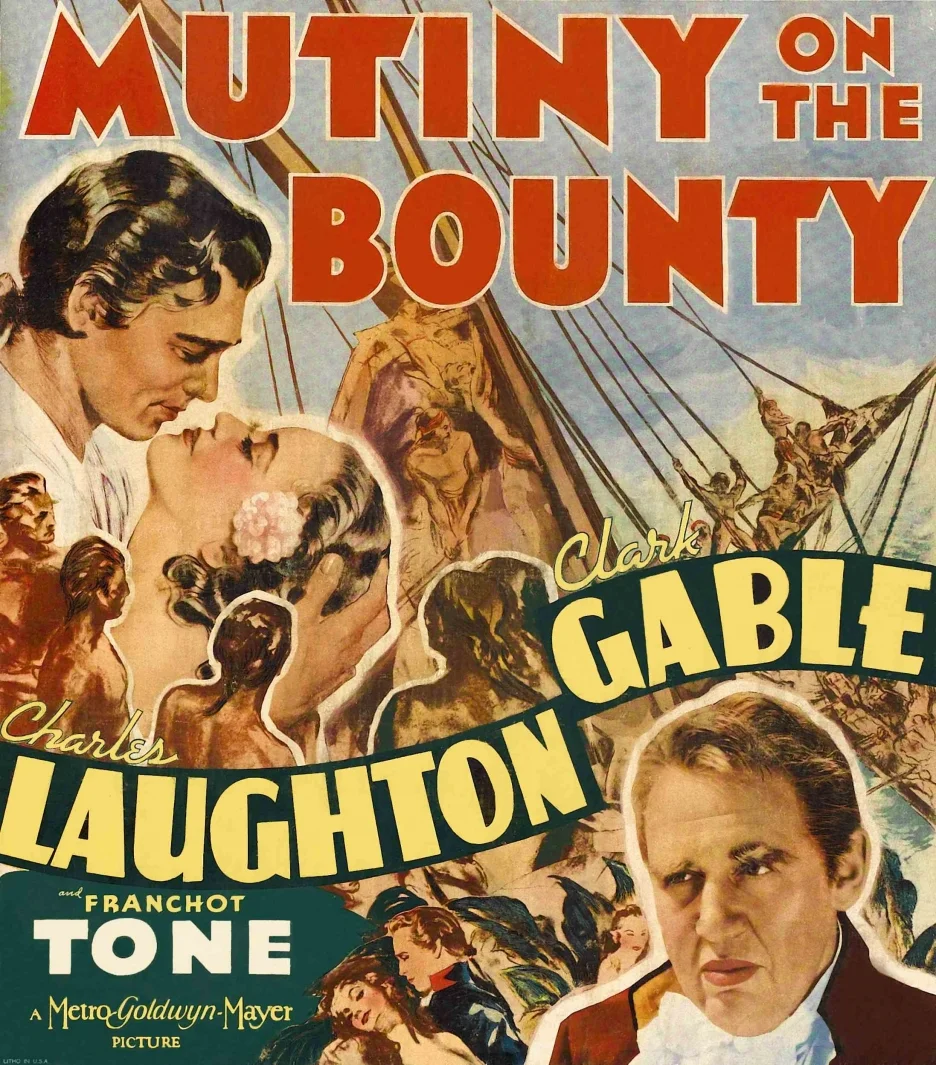
2/14:
Mutiny on the Bounty is a well-made picture given the year it was filmed in, and it features a sweeping story.
It's highly watchable because of Clark Gable who steals the show in every scene. Charles Laughton is
mesmerizing as Captain Bligh who's the precursor to Humphrey Bogart's character in The Caine Mutiny.
Although I saw the remake first, my expectations didn't diminish that much. Both are great films and have similar
but unique merits. It's the color that helped the remake sail through while it's been the strength of acting for
the original.
All in all, Mutiny on the Bounty, Best Picture winner of 1936, is highly recommended.
Mutiny on the Bounty (1962)
Rate:
8
Viewed:
10/08

10/08:
Having never seen the original with Charles Laughton and Clark Gable, I like the colorful, albeit historically
inaccurate, remake of Mutiny on the Bounty with great performances by Marlon Brando and Trevor Howard.
It's perhaps the most infamous film of Marlon Brando's oeuvre for being infatuated with the island Tahiti, purchasing
an atoll for himself, and taking one of the residents as his third wife: Tarita Teri'ipaia. Strangely, his second wife was Movita
Castaneda who appeared in the 1935 version. According to IMDb:
"Marlon Brando, wearing his naval uniform, was widely booed and jeered at the New York premiere while Trevor Howard received
thunderous applause. Brando walked out of the cinema after the audience started laughing at his English accent."
It would take him ten years to restore his respectability by appearing in The Godfather. What I love about Marlon
Brando in Mutiny on the Bounty is his sensitivity. It almost reminds me of The Ugly American.
When he made a speech of why his group of shipmates should sail back to England to plead their case, it's brilliant.
On the other hand, I'm impressed with Trevor Howard. I don't see his character as a villain. If I have to pick the
best part other than the performances, it's the beautiful-looking ship HMS Bounty.
All in all, Mutiny on the Bounty is better than its reputation suggests.
My Beautiful Laundrette (1985)
Rate:
6
Viewed:
10/15
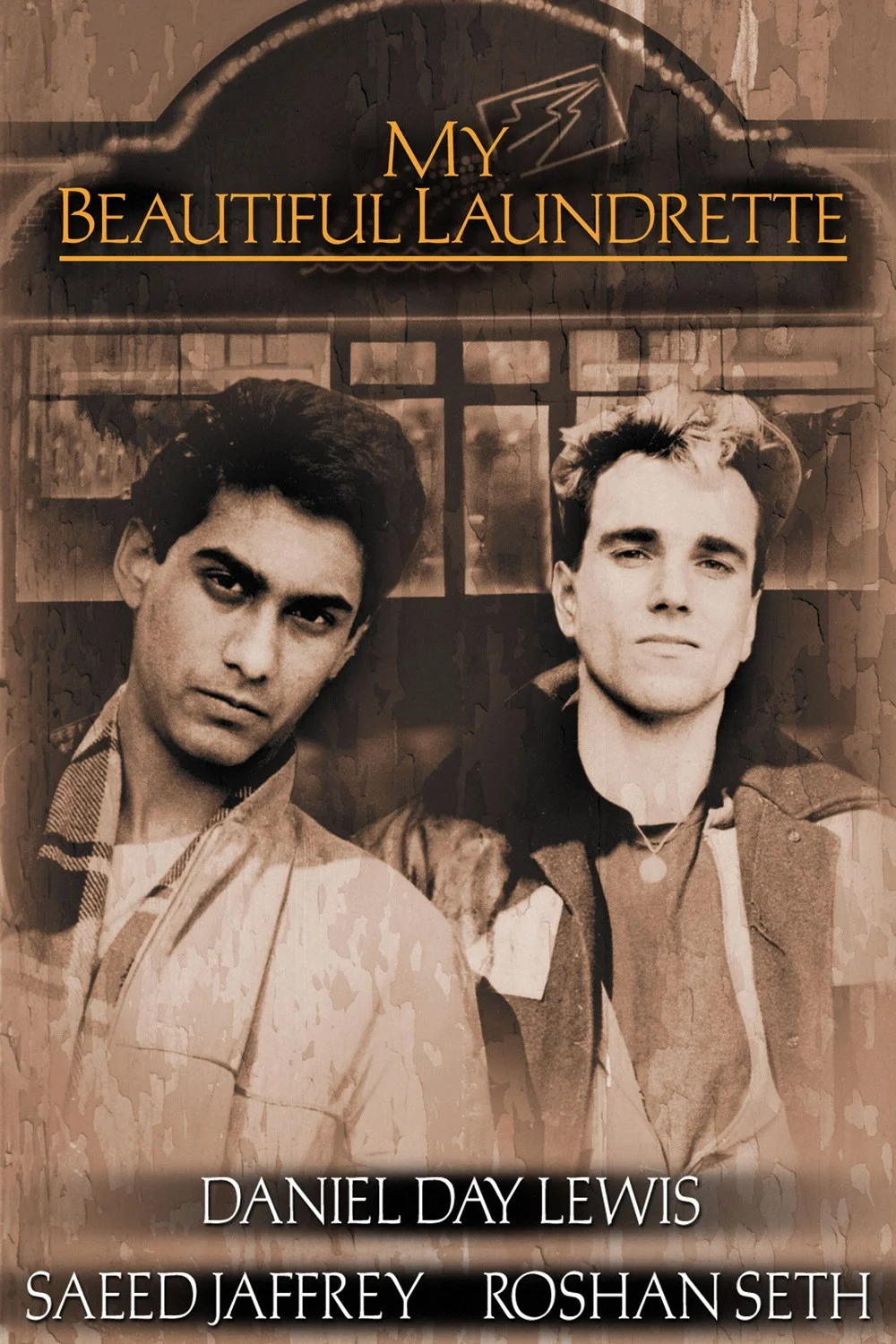
10/15:
It'll be unfair to call My Beautiful Laundrette a Daniel Day-Lewis film because it's not.
In many ways, it's Gordon Warnecke's because he plays the protagonist. Also, the title isn't a girl's name but a laundromat that's run by Omar with the assistance of his homosexual friend Johnny.
What makes Daniel Day-Lewis a great actor is his willingness to go far for his character. That's the case
here as he pretends to be a homosexual and has full-on french kissing scenes with Gordon Warnecke.
During the same year, Daniel Day-Lewis played an arrogant, pretentious upper class gentleman in
A Room with a View. That's impressive if I think about it.
Unfortunately, My Beautiful Laundrette isn't good on the whole. The plot is minimal, and there's no point. There are
many random, unconnected parts that struggle to come together as one. The characters aren't interesting, and the acting is
bad at times.
All in all, My Beautiful Laundrette is worth watching for Daniel Day-Lewis.
My Best Friend Is a Vampire (1987)
Rate:
6
Viewed:
11/10
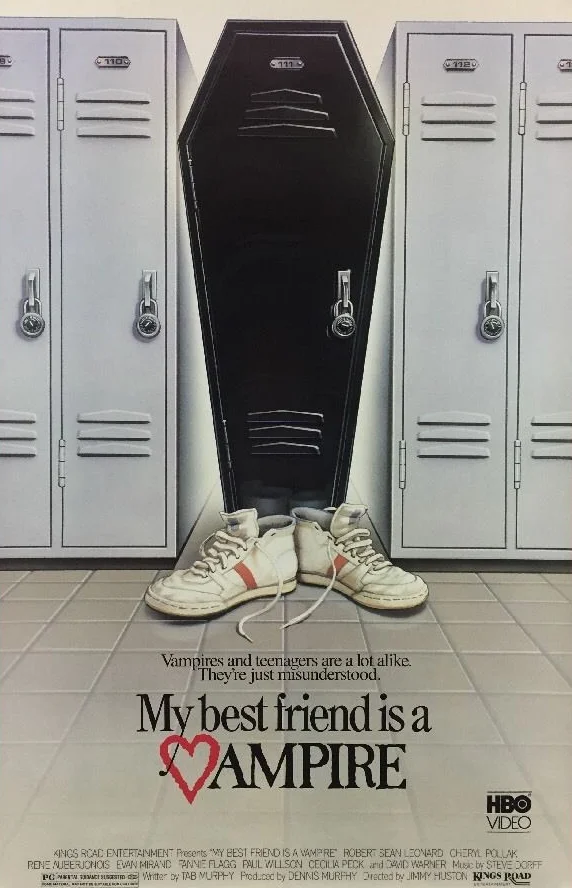
11/10:
My Best Friend Is a Vampire is an uneven picture that goes back and forth between funny and stagnant.
There's a lot of inconsistency when it comes to adhering to the traditions of vampirism. The most obvious is when
Jeremy Capello (Robert Sean Leonard) was able to withstand sunlight despite converting into a vampire. Another is
he's supposed to possess the strength of twenty men yet can't break a car window. Well, Jeremy will never go
back as a human being, so he's stuck.
Reminding me of Oliver Platt, Evan Mirand has done a nice job of giving the movie a much-needed verve.
What the heck happened to his career? However, the film suffers when Jeremy is becoming deathly pale. The professor
and his assistant acting like idiots is unnecessary.
All in all, My Best Friend Is a Vampire needs more balance.
My Bloody Valentine (1981)
Rate:
4
Viewed:
5/15
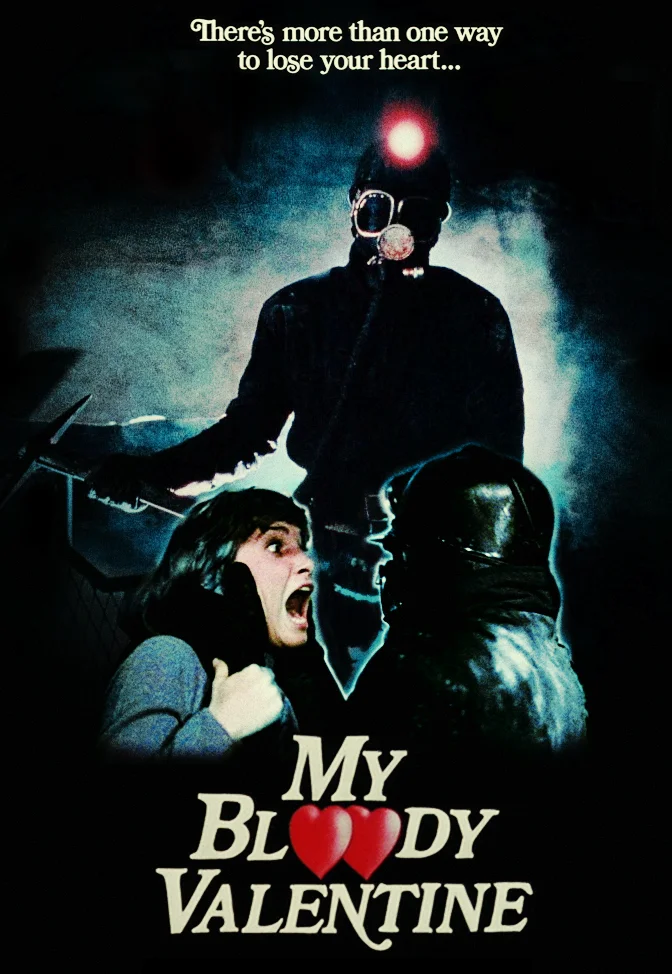
5/15:
My Bloody Valentine is The Deer Hunter of the slasher genre
except the characters, who probably sniffed too much coal dust, are so brain-dead stupid that I've lost
interest in whether or not they live.
As far as horror goes, nothing much happens because it went through extensive cuts to achieve an R rating. Not
that it matters either way; hence, it's a by-the-numbers slasher flick that offers more of the same just like
anything from the Friday the 13th franchise.
The plot is about idiots smoking, drinking, fornicating, getting killed, and overcoming scary moments
while playing the survival game until the identity of the masked killer is revealed at the end.
All in all, here's an important memo to Hollywood: come up with something new; otherwise, stop making the same
crap again and again.
My Blue Heaven (1990)
Rate:
8
Viewed:
1/05, 10/25
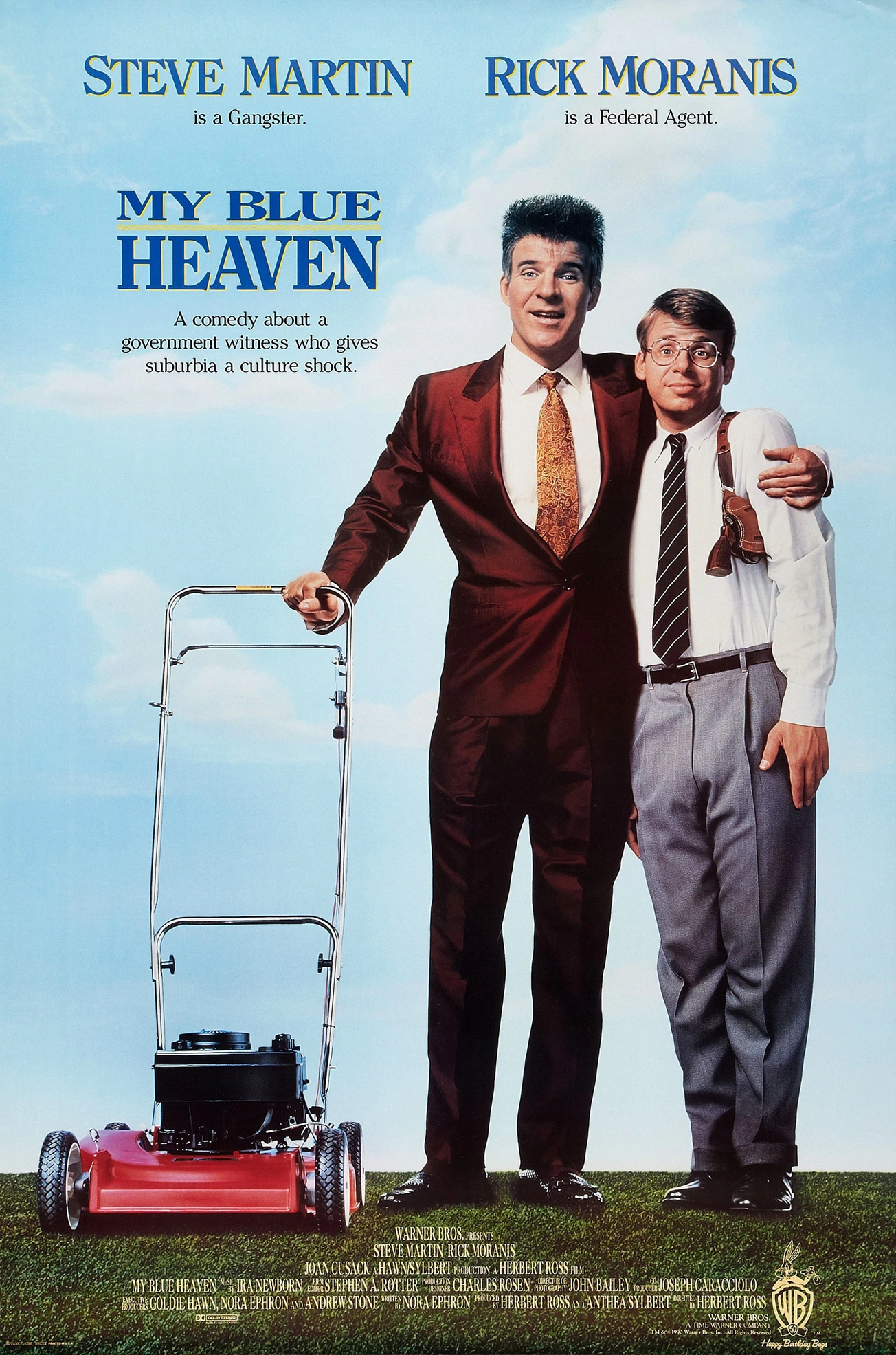
10/25:
My Blue Heaven has to be in the top five when it comes to Steve Martin's great performances.
He dominates the show from start to finish and has a memorable character in Vincent "Vinnie" Antonelli
who may have been based on Henry Hill of Goodfellas fame. Yet it won't
be a stretch to think of Jimmy "The Weasel" Fratianno for the most part. As a matter of fact, Donald McPherson,
a deputy marshal of the federal witness protection program, said the following:
"The movie was a comedy, but it was more accurate than other movies and shows I've seen about relocated
witnesses. Steve Martin was just like dozens of mob guys I knew. There's a scene where Martin, who has never
mowed grass in his life, learns how. So he is out mowing the lawn one day in his silk suit and he calls to
his neighbor, 'Hey, good day for a mow.' That's how these guys were. They didn't fit in."
Another marshal, Mason Ebhardt, was in agreement with his assessment, "Everything that happens in that movie
is what we had to go through." And that's Rick Moranis who's always being put on by Steve Martin due to
his smooth, cunning talk, so he can be conned in various ways. There are similar incidents that
happened to district attorneys like Joan Cusack's character whose hands were tied behind her back because of
the witness' importance over the presently crimes they committed by putting away major players in the Mafia.
How about these scams including stamping a new price on the meat containers? That's how their minds
operate. During the 70's, so many mob witnesses ended up being relocated in Orange County of California that
they accidentally ran into each other and went on to stage a big reunion. Speaking from experience, I 100%
agree with the complaint made by the mob witnesses how there's no good Italian food for hundreds of miles. One
of the funniest "aha!" moments is when Vinnie pointed out that he didn't marry Shaldeen under his real name and
therefore it couldn't be bigamy.
All in all, My Blue Heaven is the comedic equivalent of Goodfellas.
My Bodyguard (1980)
Rate:
9
Viewed:
7/14
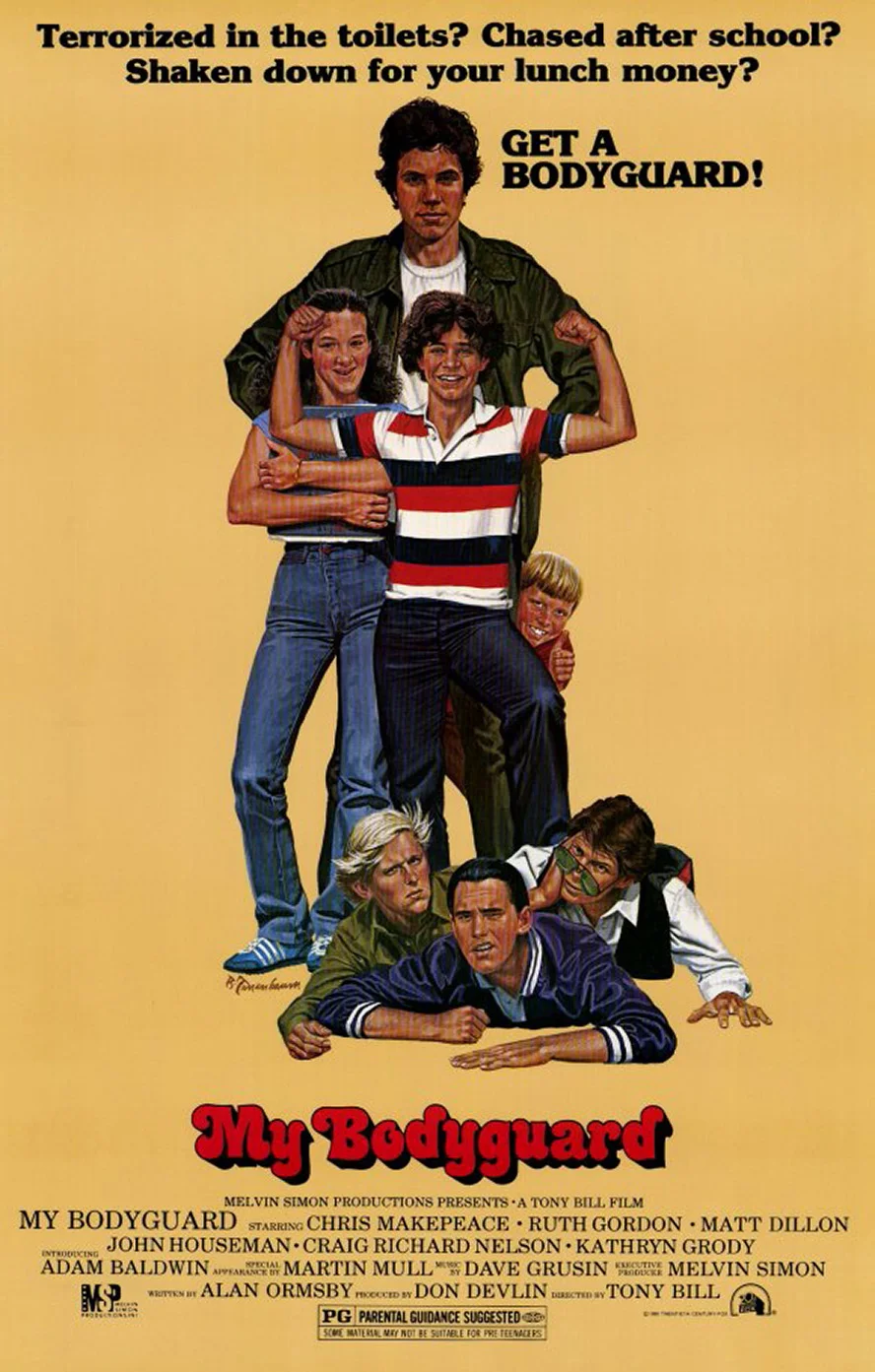
7/14:
My Bodyguard is an early Matt Dillon picture.
He's terrific. Another star of the show is Ruth Gordon who never fails to deliver. It's the story of two boys
who become friends by force of circumstances. The relationship between Clifford and Ricky Linderman, who are
well-played by Chris Makepeace and Adam Baldwin respectively, is the impetus.
If I were Clifford, I would switch schools, preferably those that cater to students like him just to save myself
the aggravation. There are many victims today who are either dead or scarred for life because of bullying issues
which makes the film relevant. However, it presents an unrealistic solution to Clifford's problems.
All in all, My Bodyguard is a superb picture about bullying among children.
My Cousin Rachel (1952)
Rate:
10
Viewed:
3/17

3/17:
As both films are based on Daphne du Maurier's novels, I prefer My Cousin Rachel over
Rebecca.
Taking place at a lonely sumptuous-looking house against the seascape, the stories are similar with the same
haunting tone in gothic style but different kinds of acting from Richard Burton and Laurence Olivier. One is
rough, the other is smooth. One is fiery, the other is melancholic. One is born a movie star, the other is a
theater star who's training to be a movie star.
Making his debut in a Hollywood film, Richard Burton steals the show from start to finish. He's brilliant and
impossible to overlook. Mad, bad, and dangerous to know, Richard Burton would've made a good Heathcliff. For his
effort, he was rewarded with an Oscar nomination, the first of seven. Strangely, it went for Best Supporting
Actor. Really? Um, Richard Burton was in almost every scene, having pretty much led the show.
His co-star Olivia de Havilland is perfect: the sort of woman you won't accuse of anything because of her face.
She's able to match Richard Burton scene for scene as if it's a swordplay: a hard thrust by Burton and a soft
parry by de Havilland over and over. By the way, Vivien Leigh was first offered the role of Rachel Ashley but
declined. Who knows how well she might have pulled it off?
The dark, brooding atmosphere is beautifully set up. It's very hard to find films like this. At best,
My Cousin Rachel is a gothic picture that follows the same tradition of
Wuthering Heights. Even the ending is an open-ended cliffhanger
which suggests Philip Ashley didn't believe her cousin as a schemer. But one thing is for sure: whatever you
do, stay away from tisane!
All in all, thanks to Richard Burton and Olivia de Havilland, the acting is of the first order in
My Cousin Rachel.
My Cousin Vinny (1992)
Rate:
8
Viewed:
7/06
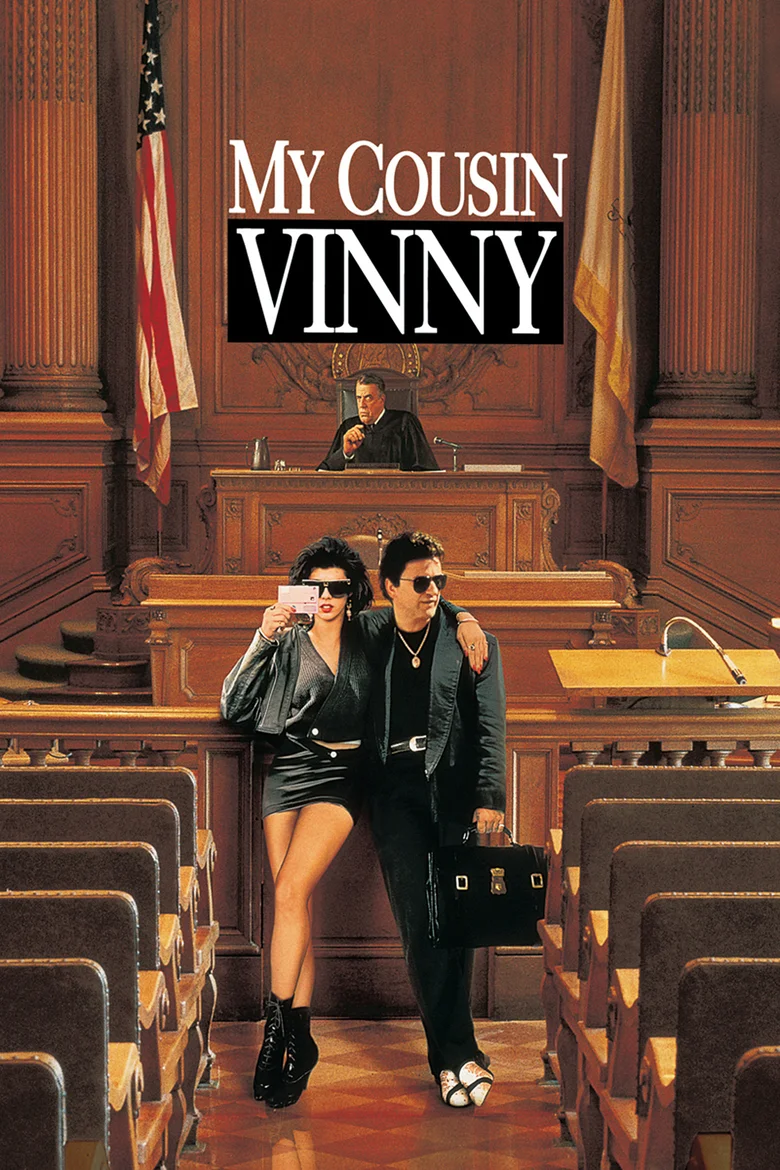
7/06:
A surprise winner in 1991, My Cousin Vinny is an unusual comedy that saw Marisa Tomei win an Oscar for
Best Supporting Actress which was clinched by the automotive knowledge test scene.
She, Joe Pesci, and Fred Gwynne are the best parts of the film. They all are funny. When I saw it at a theatre
in 1991, I thought Marisa Tomei would win the Oscar. Hence, I wasn't surprised. She pretty much stole the show.
Famous as Herman Munster in The Munsters, Fred Gwynne passed away a year later, making
My Cousin Vinny the final film of his career. Austin Pendleton is funny as the stuttering laywer. He'll
be the judge in Trial and Error with Jeff Daniels and Michael Richards.
Coincidentally, both films are directed by the same guy: Jonathan Lynn who has a law degree to begin with.
All in all, highly praised for its credible courtroom procedure and trial strategy,
My Cousin Vinny is one of the funniest movies made.
My Dinner with Andre (1981)
Rate:
2
Viewed:
8/12
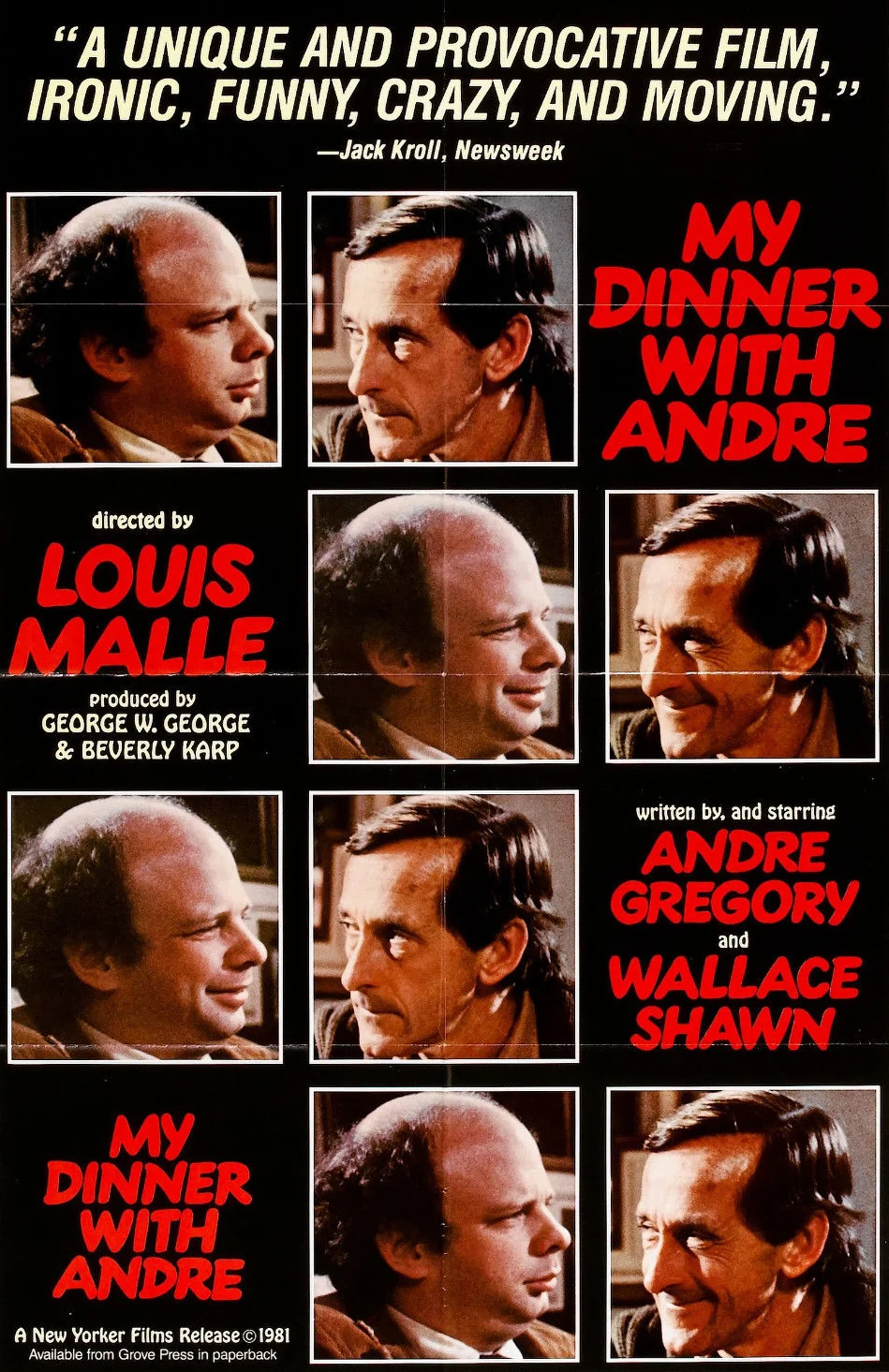
8/12:
Uh, what dinner?
My Long-Winded Conversation with Andre is a tough film to sit through. My brain turned to mush not
long into it. First of all, I want to take a look at the surrounding environment. Neither Andre nor Wally eats
much. The bread is never touched or given any thought. I don't think the glass of water was drunk, either.
There are a few, if any, patrons at the restaurant.
The waiter seems annoyed by making faces of dejection. The bartender just stands there and does little. Easy pay,
I suppose. Oh, did I mention that nearly everybody in the restaurant was white? And they're men? This is a
relevant point that'll make sense later.
Okay, this is not the first time that the topic of discourse has been touched upon. In fact, it's probably the
trillionth time. The question is: what's the meaning of life? Obviously, it's to live it. The film is a one
big philosophical bore around it. No matter how often a dead horse is beaten, it's still a dead horse. There's no
great enlightenment being made out of it. Life just goes on.
During the first hour of My Goddamn Boring Dinner with Andre, I ended up laughing so much because I
couldn't believe at myself for watching such drivel. Are you fucking kidding me? This is what I'm watching? For
two hours? This is a movie? This is a movie I'm going to watch for two hours? About two white New York males
philosophizing about life? My fucking goodness.
Things improve at the 90th minute mark when the diminutive Wally finally counterargues with the
pseudo-intellectual Andre. Because these two are white, somewhat well-do guys, it makes a lot of difference.
Those who are from New York City or one of the northeast states have a warped point of view about life
compared to those who live somewhere else like the South. That's how culture works.
Those who have money think differently from those who don't have money. White people think differently from
others of different races. Diversity is made possible by various cultures. Males think differently from females.
People with disabilities think differently from people without them. They all have varying points of view on
the same topic. Yet, at the end of the day, nobody is right or wrong.
Thus, I don't see the point of watching a film about two white, somewhat well-do New York City males
philosophizing about the meaning of life, but that's my misfortune of wasting two hours sitting through it. In
a way, My Goddamn Fucking Boring Dinner with Andre feels like a contest in terms of who can throw more
wise philosophical tidbits and come away looking magnanimous.
Wally's head appears ready to explode after spitting out lines with tongue sticking out through his teeth. I
kept thinking that "Inconceivable!" would do. Of the three characters, I find the waiter to be the most
interesting. There's a lot of character in his face, and he never has to speak. Oh yes, one last thing. Notice
how Andre is harping on cutting out the noise. Mmm...*looking at him*...you see what's the problem here, yes?
All in all, My Truly Fucking Goddamn Boring Dinner with Andre is endless blather about nothing.
My Fair Lady (1964)
Rate:
2
Viewed:
6/15
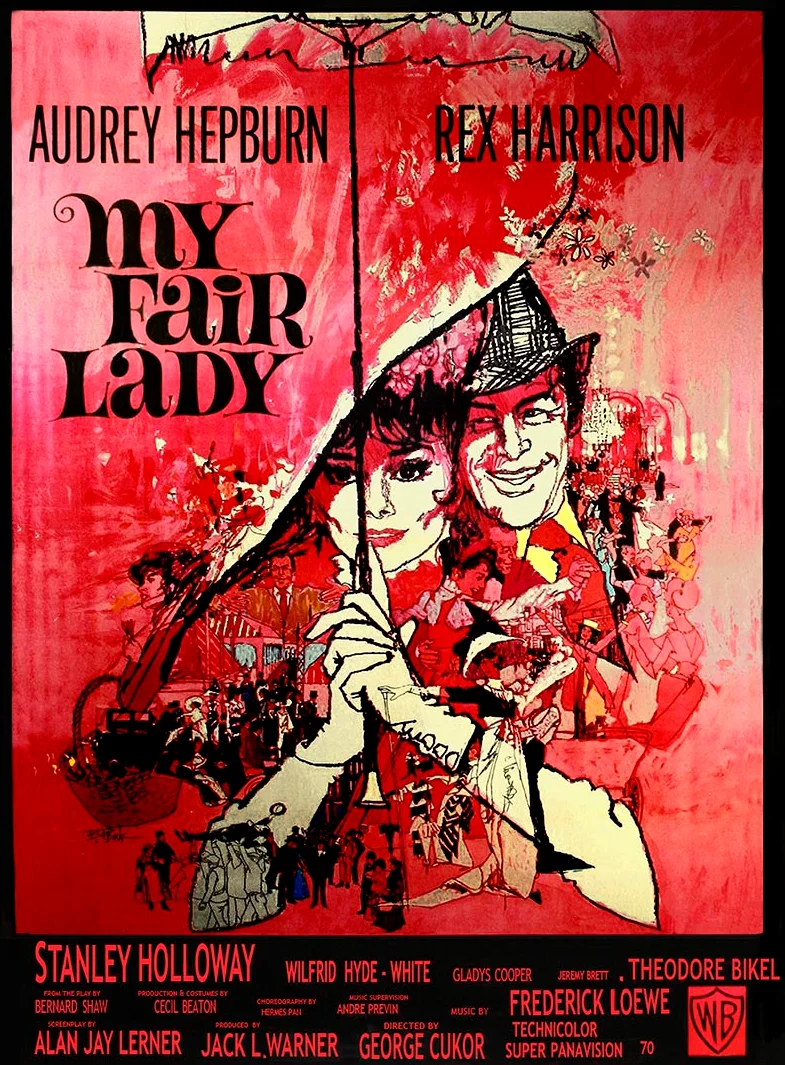
6/15:
My Fair Lady...the winner of eight Oscars including Best Picture.
What the fuck were they thinking in 1964? Truth be told, it was a year of slim pickings. I looked at the
contenders, and none of them stood out. As a matter of fact, My Fair Lady feels like a representative of
the Old Hollywood Establishment. Losing money left and right, the studios tried hard to protect it but were
eventually washed away by the imminent wave of independent pictures that finally tore down the Hays Code.
My Fair Lady took home the honors by virtue of having a long run on Broadway which consisted of 2,717
performances, not counting the additional 2,281 performances in London, with many revivals thereafter. It was
the play that made Julie Andrews' career. Although not considered famous enough, she never made
the cut for the film version. Instead, the role went to Audrey Hepburn, whose movies were thought to be
flop-proof, despite not being able to sing worth a lick. Hence, according to Audrey Hepburn, 90% of her songs
were dubbed by Marni Nixon.
During the same year, Julie Andrews debuted in Mary Poppins that saw her win the Oscar for Best Actress.
Having been punished for the dubbed songs, Audrey Hepburn wasn't nominated. I suppose Julie Andrews must have
felt good that night for giving the middle finger to everybody associated with My Fair Lady.
Originally cast in the Broadway show, Rex Harrison reprised his role for the film version and therefore won the
Oscar. I guess it's the Academy's silly way of paying him back for his hard work. I'm going to be fair and say
he was a great actor, but I rather see him in dramas. His performance in My Fair Lady isn't for me. Plus,
Rex Harrison was too old to play Audrey Hepburn's love interest.
The idea of using Eliza Doolittle for his social experiment leaves me feeling icky. So is the ending for two
reasons: Higgins is at least 30 years her senior and Eliza is happy and willing to be his slave. Already too
old for the part, Audrey Hepburn needs to eat more food because she must have been somewhere between 75 and 90
pounds. I can see a lot of bones on her body. Audrey Hepburn's on-screen transformation from a guttersnipe to a
grand lady at the ball is no surprise because she had been like that in previous films.
My Fair Lady validates the reasons why I hate musicals. It's long, boring, pretentious, theatrical, and
slow-paced. The story is so stupid that I can't believe such rubbish was sold on the stupid people.
Infantile and silly are the lyrics; sometimes, they have nothing to do with the story. Most of it takes place
on a soundstage, especially the "Horse Race" scene. George Cukor's Oscar for his directorial achievement is
undeserved. He has only succeeded in directing a filmed theatrical play that's already terrible in all aspects.
All in all, Hollywood needs to learn how to keep film and theater separate.
My Left Foot (1989)
Rate:
10
Viewed:
12/03, 4/07
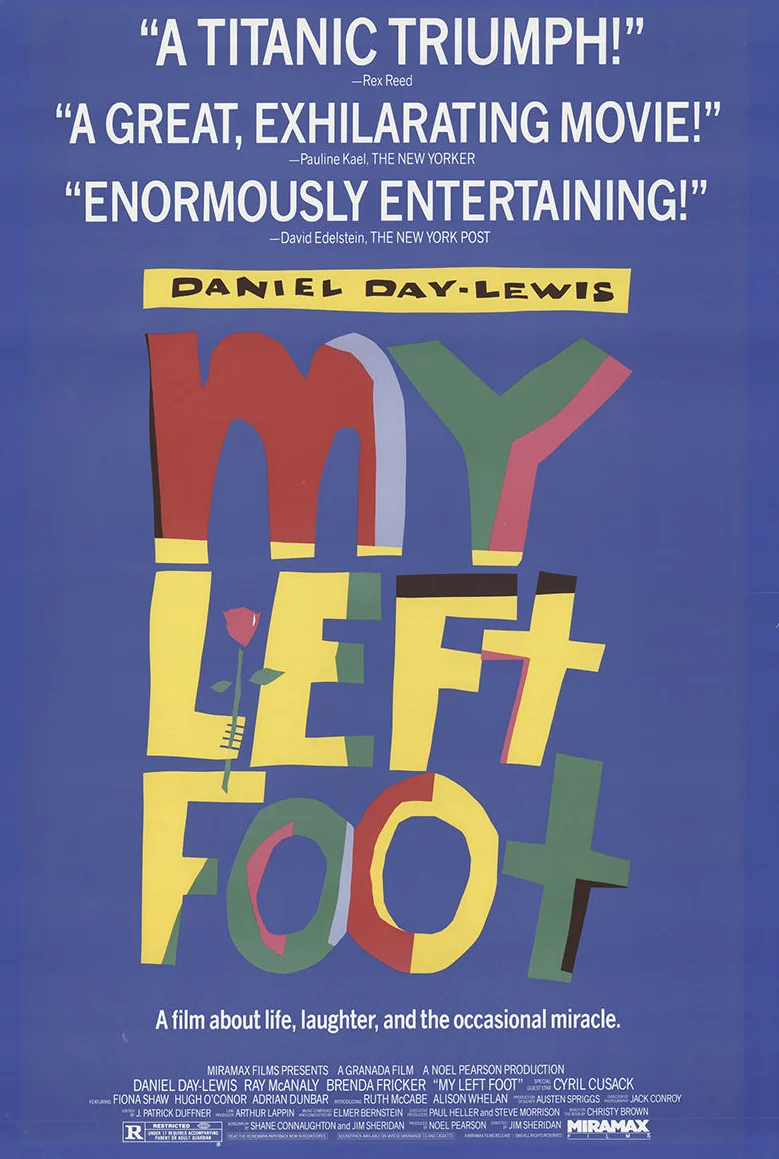
4/07:
My Left Foot proves why Daniel Day-Lewis is a gifted actor.
However, not much of credit is given to Hugh O'Conor who should've gotten the Oscar in a tie with Daniel Day-Lewis.
Oh, don't know who is that? He's the lad who played the young Christy Brown, having done bulk of the work, but was mostly
unrewarded for his efforts. Very strange indeed.
Brenda Fricker is special as Christy Brown's mother, winning the Oscar for Best Supporting Actress. The most dramatic scene
is when Christy Brown used his left foot to spell out his mother's name. The funniest is when he tried to blurt out the F
word in frustration.
All in all, Daniel Day-Lewis will always be remembered for My Left Foot.
My Man Godfrey (1936)
Rate:
7
Viewed:
4/16
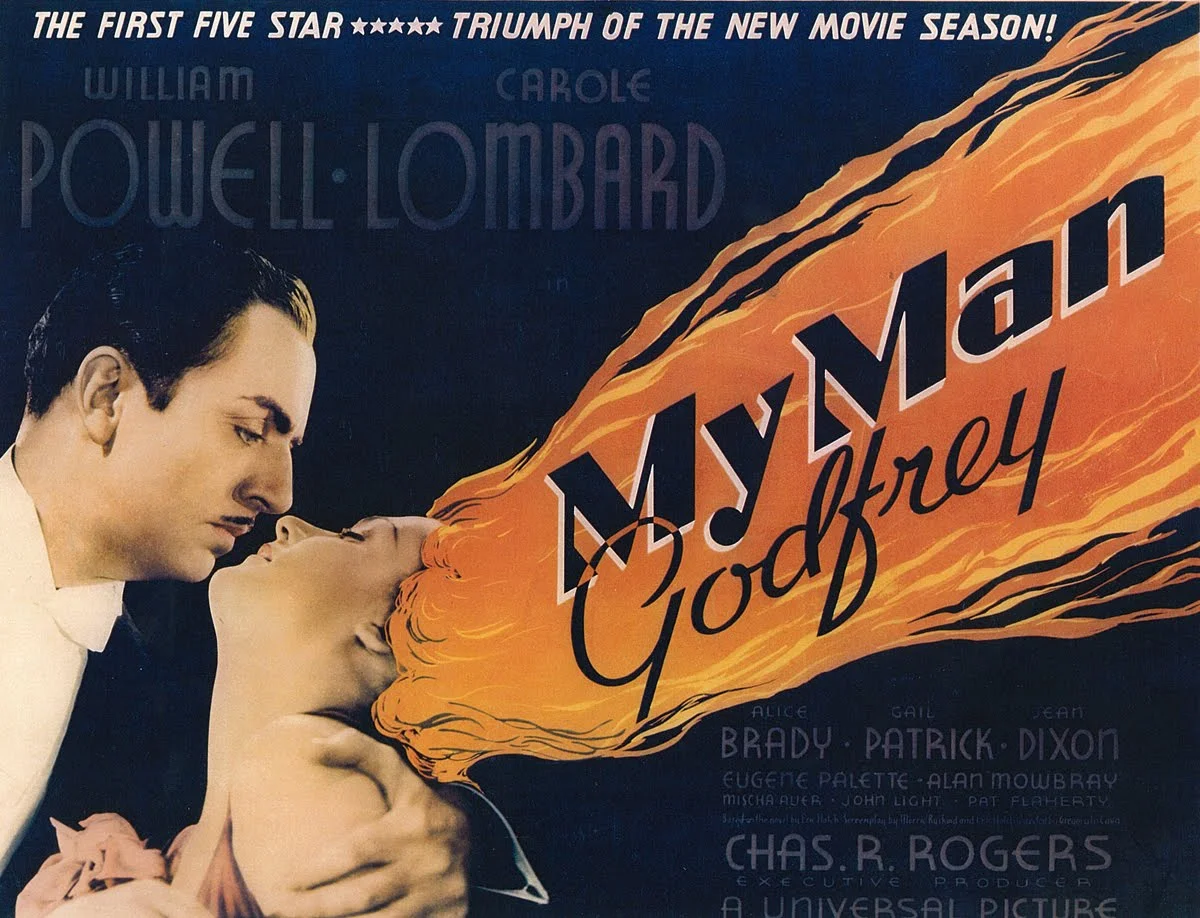
4/16:
Talk about classics.
One of them is My Man Godfrey which is the first film ever to garner Academy Award nominations in all four acting
categories for William Powell, Carole Lombard, Mischa Auer, and Alice Brady.
The true winner is Alice Brady who plays the ditzy wife. She's perfect. Sadly, Alice Brady will pass away three
years later from cancer at the age of 46. William Powell is excellent as Godfrey and oozes class. However, I'm not sold on
Carole Lombard's performance. She's merely okay but may have killed the movie with her overbearing presence. It's Gail Patrick
who's better, and I was rooting for her character to be with Godfrey at the end.
I can't say it's a funny movie. The pace is also uneven, making it hard for me to enjoy the screwball picture thoroughly. Yet
it moves well and I like the story; it's unique. Most impressive is the city lights title sequence at the opening. I've
never seen anything like it.
All in all, My Man Godfrey, thanks to William Powell, is what a classic film looks like although it has left me hoping
for more.
My Name Is Bill W. (1989)
Rate:
4
Viewed:
2/10
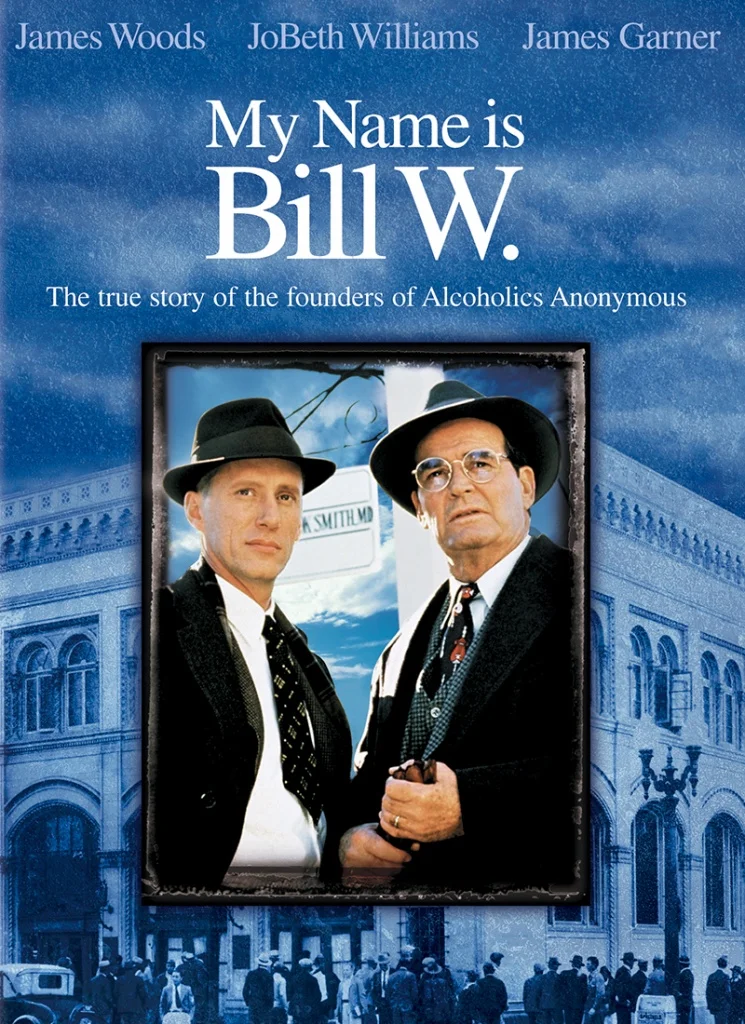
2/10:
My Name Is Bill W. is a decent film about how Bill Wilson co-founded the Alcoholic Anonymous (AA) with Dr. Bob Smith.
But the real story is more compelling than what's presented in the film. That's why I was surprised to learn additional stuff
when I looked it up on the internet.
James Woods is excellent as usual, but his performance is ultimately hampered by the weak, inept direction. JoBeth Williams
is terrible while James Garner is okay. Gary Sinise inexplicitly disappears during the middle.
All in all, My Name Is Bill W. is a good start to learn how Alcoholic Anonymous was founded.
My Own Private Idaho (1991)
Rate:
8
Viewed:
5/07, 7/20, 3/25

5/07:
If there's any doubt of River Phoenix's greatness in acting, it will go away when you watch
My Own Private Idaho.
Before there was Good Will Hunting, Gus Van Sant started
exploring vagrancy and drug abuse among young adults in
Drugstore Cowboy and then followed it up with My Own Private Idaho.
He wrote the screenplay during the 70's but couldn't secure financing for a long while.
There's a long-standing rumor that goes like this: "One day, Gus Van Sant showed his script of
My Own Private Idaho to Keanu Reeves who agreed on the spot to take the role of Scott Favor. Not being able
to get through River's agent, he rode his motorcycle solo from Canada to Gainesville, Florida, to share the script
with the elusive actor, and they made a handshake deal on it." However, it's not true; both got the script while
making I Love You to Death and took their time before deciding to do it
because of the gay component. As a result, My Own Private Idaho became a successful independent picture
that's a hybrid of Midnight Cowboy,
Easy Rider, and
Drugstore Cowboy.
River Phoenix may have been Oscar-nominated for Running on Empty, but
he gave the most definitive performance of his career in My Own Private Idaho. Keanu Reeves is fantastic as
his sidekick. What I like is the style. It's sometimes strange and hallucinatory that moves in a circle but stays
centered. No answers are proffered to the meaning of it all; characters go through the day in any way they can.
If there's a negative, it's the Shakespearean scenes that throw me off the track.
All in all, My Own Private Idaho demonstrates what a true talent River Phoenix was.
7/20:
The Midnight Cowboy of the 90's, My Own Private Idaho displays
the most definitive performance of River Phoenix's career.
River Phoenix had done a few films like
Indiana Jones and the Last Crusade,
I Love You to Death, and Sneakers
that weren't spiritually right for him. But when he rolled the dice on My Own Private Idaho, it was
the perfect channel to show off his talent. The same is said for Keanu Reeves, but he's an all-around
great actor who can dabble in any genre.
Not a lot makes sense, but there's one interpretation that might will: it's the story of two wayward young males
trying to get out of the hole they've dug for themselves, but that's dependent on the kind of upbringing they
had. That's why Scott was able to while Mike couldn't and would probably end up dead within a few years. Ironically,
it's what happened to Keanu Reeves and River Phoenix, respectively, in real life.
All in all, there's no My Own Private Idaho without River Phoenix and Keanu Reeves.
3/25:
My Own Private Idaho still holds up well.
Mystery Date (1991)
Rate:
6
Viewed:
2/18

2/18:
It's hard for me to enjoy Mystery Date, a cross between
License to Drive and After Hours,
when Ethan Hawke has to put on an incredulous stare constantly.
The twists and turns are nice and fun, but I can't shake off the similarities from Martin Scorsese's comedy
picture with Griffin Dunne. Also, there are too many highs for one film, making the ride intolerable.
Eventually, it becomes silly.
Ethan Hawke is okay but will be a better actor in a few years' time. I don't care for his co-star Teri Polo
who's one-dimensional. Fisher Stevens of Short Circuit fame has a brief role and isn't bad. B.D. Wong
can be recognized as Father Ray Mukada in Oz.
All in all, Mystery Date is a harmless choice to kill time on a rainy Sunday afternoon.
The Mystery of the 13th Guest (1943)
Rate:
1
Viewed:
3/15
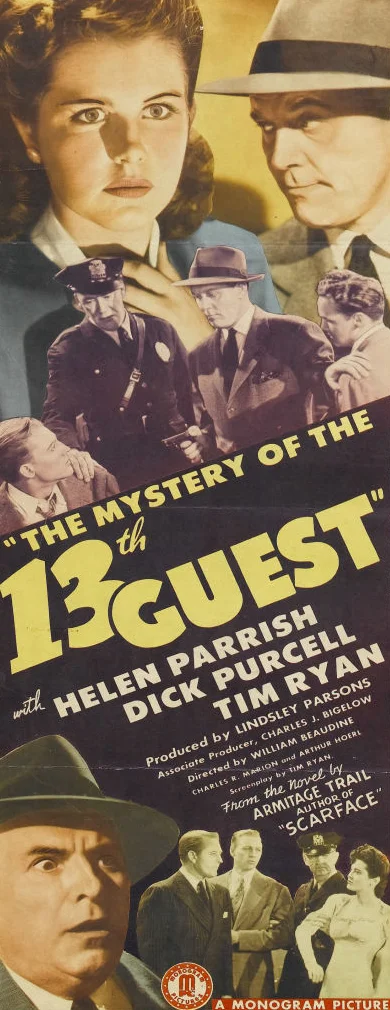
3/15:
Don't be deceived by the short running time of The Mystery of the 13th Guest like I was.
The film is that bad although it initially had the potential of heading down the same lane as
And Then There Were None.
Somebody once said a good film must begin with a well-written screenplay; otherwise, forget about it. In
the case of The Mystery of the 13th Guest, which is directed by none other than "One-Shot" William
Beaudine, the plot is incomprehensible at best and full of swiss-cheese holes at worst.
There are too many characters, giving me a hard time to keep up with them in term of who's who and their
names. The constant stream of hokey one-liners has my head shaking. From the first moment the detective was
bickering with the private investigator, it's beginning of the end. The cops are unprofessional in terms of
how they do their jobs and don't care if people are killed.
The oddest part about the title is that it fails to answer the question. There's also the indication of a
mystery murder; however, it's been anything but, being more of a bad comedy picture that's beset with annoying
comic relief. The most hilarious part is the sight of Michael Myers look-alike working on the electrical
switch.
All in all, The Mystery of the 13th Guest is along the lines of "you have to be shitting me."
Mystery of the Wax Museum (1933)
Rate:
9
Viewed:
8/07

8/07:
Before there was Casablanca, there was Mystery of the Wax Museum.
Michael Curtiz directs a well-constructed horror picture with a superb script, great acting, and a beautiful look.
It's famous as the final film to use the two-color Technicolor process. You can't miss it.
When people visited the new wax museum, most of them had no idea of what they were looking at which are actual
corpses. Now, that's what I call horror. The story takes place in London in 1921 but quickly moves to New York City twelve
years later. However, I wasn't told of it.
All in all, Mystery of the Wax Museum is one of the best horror films made which is helped by the unique
two-color Technicolor look.
Mystery Science Theater 3000:
The Movie (1996)
Rate:
2
Viewed:
7/17
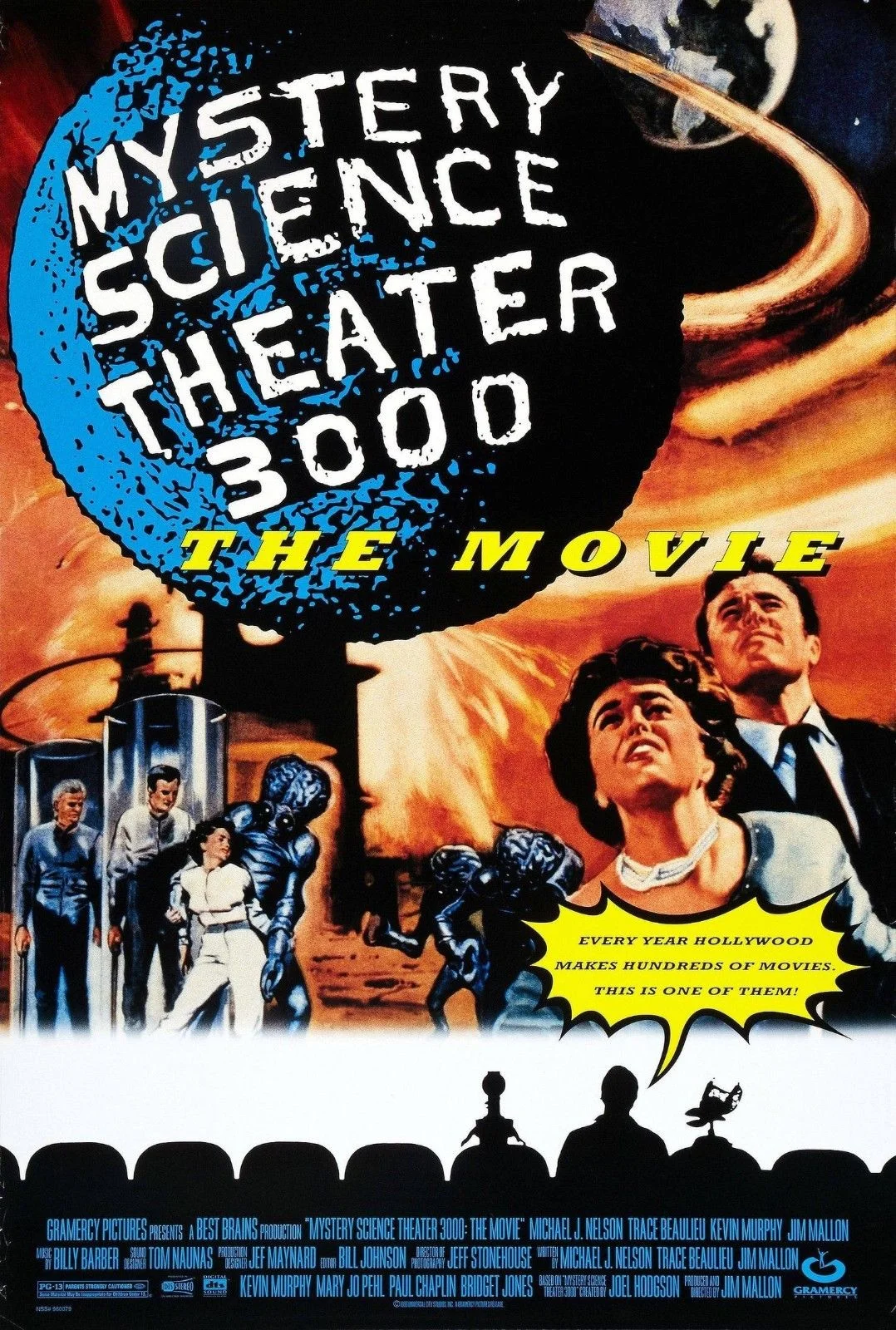
7/17:
I had heard a bit about Mystery Science Theater 3000 but didn't know what it was nor did I care.
So, I finally picked up the film to see what the fuss was about which turns out to be a big mistake. Basically,
the premise is a guy and his two robot characters select a 50's sci-fi film and make fun of it while they're
silhouettes sitting in front of the screen.
As short as the movie is, it's too long to sit through, and I took a lot of breaks to prevent
my mind from decaying at an exponential rate. You know, I've seen a lot of crap back in the day, but
Mystery Science Theater 3000: The Movie takes it to the next level that I hope not to experience again.
The weird part is I did enjoy watching the supposedly parodied 1955 picture This Island Earth
despite being annoyed by those who tried to make fun of it. I only wanted them to shut the fuck up once
and for all, so I could watch in peace.
All in all, thanks to Mystery Science Theater 3000: The Movie, I'll be sure to stay very far away from
anything that's MST3K.
Mystery Street (1950)
Rate:
4
Viewed:
1/09

1/09:
Mystery Street is a rare film when it comes to me hating all of the characters but liking everything else,
especially the forensic science part.
Speaking of latter, it's not the earliest picture for accomplishing it, having been done two years earlier in
He Walked by Night which led to Dragnet.
Of course, some of the scientific breakthroughs, most notably the discovery of the bullet in a record-breaking time,
are too good to be true.
Yet the unfolding of the plot is nice, if predictable, because the killer's identity has already been revealed. However,
the characters are stupid. What kind of person ransacks a desk and leaves the office with a loaded gun? And for what?
All in all, I like Mystery Street for the forensic science part, but no thanks to the rest.